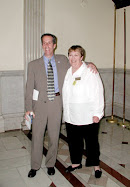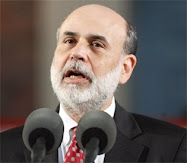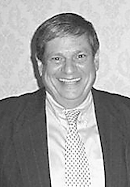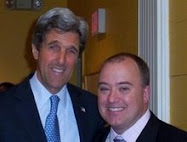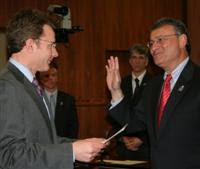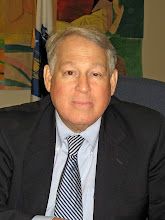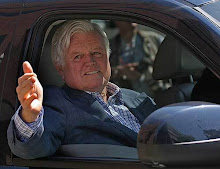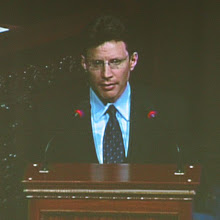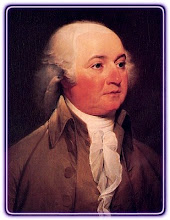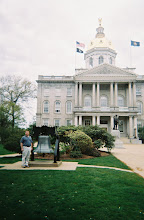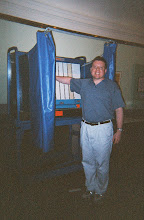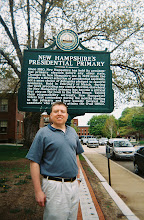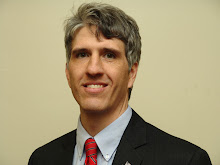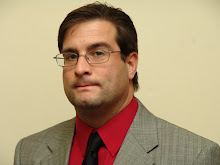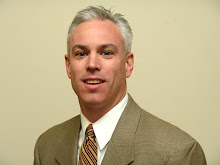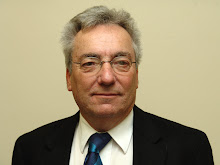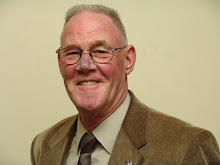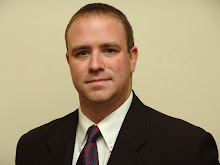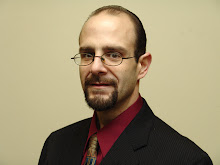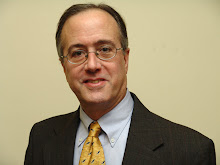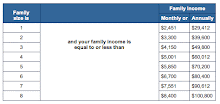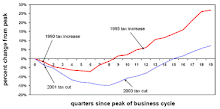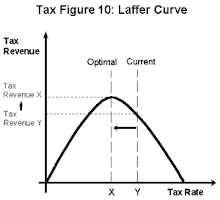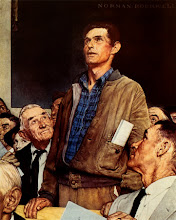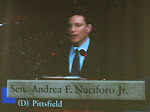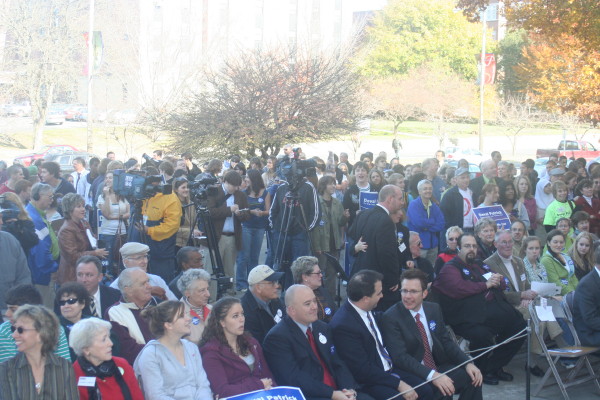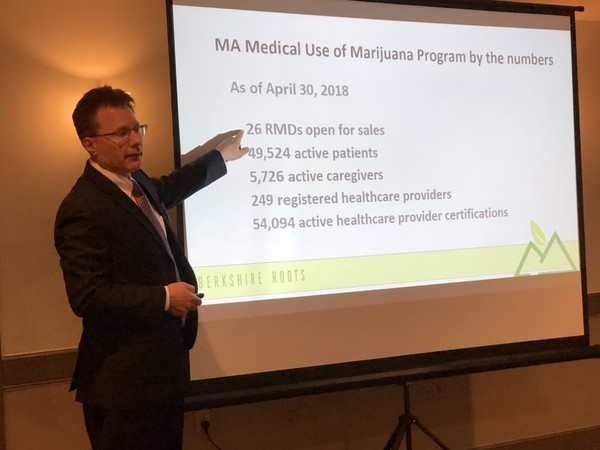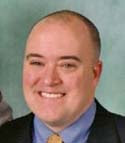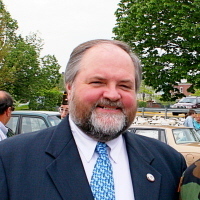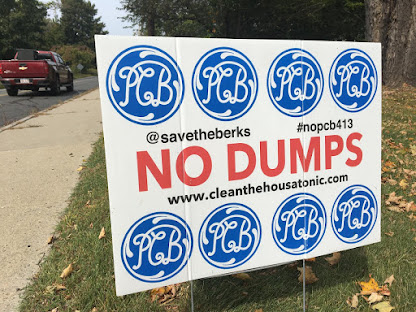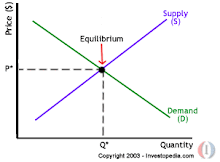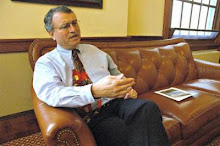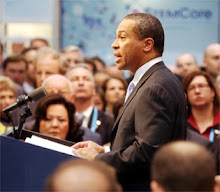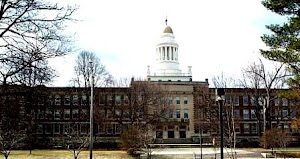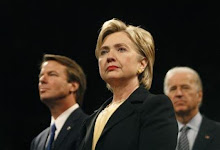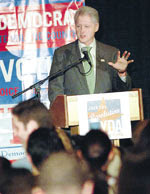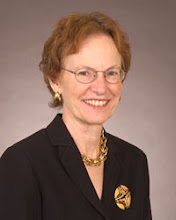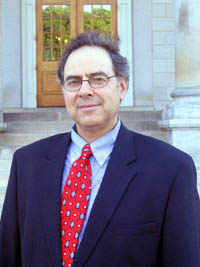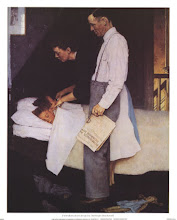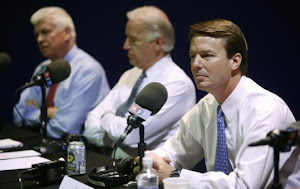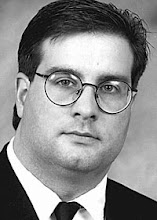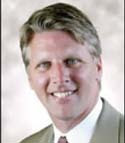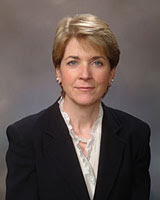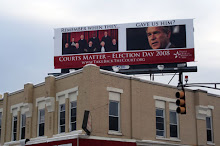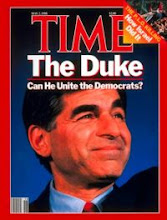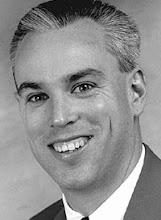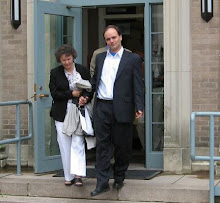
-----
Smitty PIGnatelli is undermining the will of the people by sponsoring legislation that would gut 2008's Question 2 that removed criminal penalties for possessing an ounce of marijuana. H. 477 filed by Representative Smitty PIGnatelli seeks to re-criminalize possession of an ounce or less of marijuana if captured on school, youth center, or community center grounds. Does "Smitty" PIGnatelli really want teenagers to once again receive a criminal history and possibly go to jail?
I found the news story at the following web link:
www.tauntongazette.com/newsnow/x1872804044/Guest-Opinion-A-regulated-marijuana-market-is-better-than-a-black-market
The author of the news story concludes: "What I know for sure is that when making such proposals they are not adhering to the fundamental principles of our government founded upon the consent of the governed and those of justice, moderation and frugality, absolutely necessary to preserve the advantages of liberty, and to maintain a free government.”
Smitty PIGnatelli is an undemocratic politician. PIGnatelli voted for top-down Speakers (now convicted felons) Tom Finneran & Sal DiMasi. PIGnatelli has come out in opposition of sunshine laws that would subject the state Legislature to open meeting laws and accountable governance. Now, PIGnatelli is undermining the will of the people who voted to decriminalize possession of an ounce of marijuana. PIGnatelli wants teenagers to have a criminal history and possibly go to jail for possessing an ounce of marijuana.
www.topix.com/forum/city/pittsfield-ma/TLUVTF654JODJACUO/p14
-----
Guest Opinion: "A regulated marijuana market is better than a black market."
By Steve Epstein - Op-Ed - The Taunton Gazette - October 21, 2011
Two members of the Massachusetts congressional delegation and four members of the Massachusetts legislature endorse ending marijuana prohibition. The rest of our congressional delegation has yet to catch up with Barney Frank and Michael Capuano, and 196 members of the state legislature have yet to catch up with Ellen Story of Amherst, Ruth Balser of Newton, Lori Ehrlich of Marblehead and Anne Gobi of Spencer.
These representatives understand, as did a majority in a recent Gallup Poll, that a regulated market is better than a black market.
There are nine representatives on Beacon Hill who continue to suffer from reefer madness. Although it is difficult to assess who suffers the worst case, here are nine nominees. Is it Democrat James M. Murphy of Weymouth, Republican Todd Smola of Palmer, William “Smitty” Pignatelli of Lenox, George Ross of Attleboro, Gailanne Cariddi of North Adams? They are all sponsoring legislation that would gut 2008’s Question 2 that removed criminal penalties for possessing an ounce or less of marijuana.
A proposition supported statewide by more than 64 percent of the voters.
Alternatively, is it John Binienda and John Fresolo both representing Worcester who suffer more? They are the only sponsors of H. 3138, proposing a doubling and in some cases, quintupling of the penalties on those caught engaging in growing or commerce in marijuana.
Representative Murphy’s H 1836 repeals Question 2, while giving municipalities the option of accepting it. His H 1837 restores the criminal law to offenders encountered just about everywhere police are likely to encounter it. In 2009 and again this session this former Assistant District Attorney has filed these bills without co-sponsors.
Representative Smola’s H 507 seeks to make marijuana possession of any amount the only “possession only” controlled substance offense subject to a mandatory minimum 2-year sentence if possessed within 1000 feet of a school or 100 feet of a park. He files this, while legislation seeking to reduce expense to the taxpayers by reducing the number of non-violent offenders serving mandatory minimum sentences is making headway in the legislature. His H 508 seeks to reinstate criminal penalties for possession upon the operator of a motor vehicle in which police find marijuana in the passenger compartment, even if in a passenger’s pocket.
Alone this year, in 2009 Jeffrey Perry, Elizabeth Poirier and Richard Ross joined him. Jeff Perry has left the state legislature. Richard Ross won the Special Election to fill Scott Brown’s seat and may have recovered. Elizabeth Poirier also may have recovered from her reefer madness.
Perhaps the realization that more than 62 percent of their constituents voted for Question 2 cured them with a booster shot in November 2010 when a similar percentage told Ms. Poirier and other representatives in the area to “vote in favor of legislation that would allow patients, with their doctor’s written recommendation, to possess, grow, and purchase marijuana for medical use.”
Finally, there is H. 477 filed by representatives Pignatelli, Ross and Cariddi. It seeks to re-criminalize possession of an ounce or less of marijuana if captured on school, youth center, or community center grounds. Do they really want teenagers to once again receive a criminal history and possibly go to jail?
I leave it to you to decide which of these nine legislators suffers the worst case of reefer madness. What I know for sure is that when making such proposals they are not adhering to the fundamental principles of our government founded upon the consent of the governed and those of justice, moderation and frugality, “absolutely necessary to preserve the advantages of liberty, and to maintain a free government.”
Steven S. Epstein, Esq. practices law in Georgetown, and is a founder and officer of the Massachusetts Cannabis Reform Coalition.
-----
"Rep. Pignatelli: Track drunken drivers' licenses"
By Trevor Jones, Berkshire Eagle Staff, June 2, 2012
BOSTON -- State Rep. William "Smitty" Pignatelli on Friday introduced legislation intended to curb the potentially deadly impact of repeat drunken drivers getting behind the wheel while intoxicated.
Pignatelli’s bill would require anyone whose license had been revoked or suspended due to a drunken driving conviction to get a new license, when eligible, with a red stripe prominently displayed across its face for a period of two years.
The Lenox Democrat said the idea sprang from a meeting of friends and family of Moira Banks-Dobson that was organized by Castle Street Cafe owner Michael Ballon in March. The gathering was held in the wake of the Feb. 28 multi-car crash in Sheffield that killed the 24-year-old resident and severely injured another driver, Russell Brown of Great Barrington.
That crash was allegedly caused by Frederick Weller, 35, of Sandy Hook, Conn., who was seen swerving in and out of traffic on Route 7 before crashing head-on into Brown’s and Banks-Dobson’s vehicles. Weller is facing multiple felony charges, including motor vehicle homicide while under the influence of alcohol and fifth offense drunken driving.
The drunken driving charge was actually Weller’s seventh in four states since 1994, but the maximum charge in Mas sachusetts is fifth offense.
Pignatelli said the purpose of the red stripe would be to give bars, restaurants and package stores pause before excessively serving someone with a past record.
"I don’t look at it as a scarlet letter," said Pignatelli. "I look at it as raising awareness and making the people selling the alcohol more aware and more in tune with the societal problem we have with drinking and driving."
Because the bill was introduced near the end of the legislative session, it likely won’t pass this year. The reason to introduce the bill now, he said, was to raise awareness heading into the prom and graduation season.
Pignatelli said he will push hard to pass the bill next session if he’s re-elected. There are similar laws in Georgia and other states, he said.
Pignatelli said Massachusetts has some of the toughest drunken driving laws in the nation and he acknowledged his bill won’t stop people from driving while intoxicated if they really want to. But if it ends up saving just one life, he said, it will be a success.
-----
"Pignatelli, Laugenour battle over income taxes, marijuana, nonprofits, leadership"
By Clarence Fanto, Berkshire Eagle, October 23, 2012
GREAT BARRINGTON -- In a fiercely combative public debate, 4th Berkshire District state Rep. William "Smitty" Pignatelli, D-Lenox, and Green-Rainbow Party candidate Scott Laugenour tangled on state income tax rates, a binding ballot question on legalizing medical marijuana, a potential proposal to tax nonprofits, and leadership issues.
The one-hour debate was attended by about 50 citizens at Monument Mountain Regional High School on Monday night.
"The fire in the belly is strong, the passion for this job is as great as it ever was," said Pignatelli, 53, seeking his sixth two-year term in Boston. The 4th Berkshire District, under redistricting, expands to 20 towns in Berkshire and Hampden Counties as of the new year. The House district will be the largest geographically in the state, stretching from Richmond to Russell.
"I'm proud of the tough votes I've taken, and I can defend, if I even need to be defending, every vote," declared Pignatelli.
Laugenour, 55, is re-challenging Pignatelli, who took 83 percent of the ballots in their 2010 matchup. He emphasized his policy of accepting every public discussion opportunity offered and criticized his opponent for setting a limit on the number of debates. There are two more coming up.
Outlining his 25-year management career with Marriott Resorts, Laugenour explained that his goal is to "challenge lobbyists' power and expose corporate influence on legislation" and he stressed openness, transparency and "an innovative approach to democracy" based on his independence from major political parties.
Calling for upending the state's "regressive tax policy," Laugenour proposed eliminating state income taxes on the first $46,000 of income, while raising the rate to 8.3 percent above that threshold. The current Massachusetts income tax rate is 5.3 percent of gross income. According to Laugenour, his plan would produce $1.5 billion in new revenue for the state.
But Pignatelli countered that Laugenour's progressive tax proposal would require changing the state's constitution, which currently requires a flat tax on all personal income. Attempts to amend the constitution for a progressive rate failed in 1976 and 1994, according to the independent Massachusetts Budget and Policy Center.
Laugenour denied that a constitutional amendment would be needed for his income tax proposal, which he claimed would result in lower taxes for income below $90,000.
As an alternative, Pignatelli proposed a review of how state tax dollars are spent, citing a $54 million credit to Evergreen Solar Inc., the clean energy company in Devens that declared bankruptcy six months later, closed its factory, cut 800 jobs and shifted production to China. "That's a waste of $54 million," Pignatelli stated. He described Laugenour's tax plan "as the wrong policy at this stage of the game. Let's not raise taxes and put an additional burden on people's pocketbooks."
Outlining the battle to win a fair share of state aid for regional school districts such as Berkshire Hills, Pignatelli said, "I don't think my opponent has any idea of what happens in the state Legislature on the priorities we have. We've got to fight the fights we can win, we've got to be willing to compromise on the ones we can't, but it's all about the [4th Berkshire] district first."
Pignatelli blasted a proposal endorsed by his opponent to tax nonprofits such as Tanglewood, which pays in lieu of taxes and injects $63 million into the county's economy annually during its summer season, and organizations such as the Railroad Street Youth Program in Great Barrington, which deals with at-risk young people. "We need to be very careful, we'd be putting them out of business," Pignatelli said.
Laugenour called the incumbent's statement "a gross mischaracterization," explaining that he signed a petition circulated by Mount Washington resident Gail Garrett calling for an examination of nonprofits based on a definition of charity "that predominantly helps the poor. The nonprofit sector has morphed into something quite large. There were no proposals there, it was an opportunity to begin discussions."
Asked about support for statewide ballot question 3, which would legalize marijuana for medical purposes as of Jan. 1 if approved, Laugenour voiced his support in a brief statement, while Pignatelli expressed in detail "very serious reservations" about the language of the proposal, which he termed "very open-ended and very loose, there's not even an age restriction."
He called marijuana a "gateway, not for everybody but for some people" to more serious drugs such as heroin. According to Pignatelli, "there's no medical proof that marijuana actually has any healing agents, it may provide some comfort." He predicted the binding referendum would pass on Nov. 6, "but then the Legislature is going to have to fix it."
Laugenour accused Pignatelli of "double-dipping" by "claiming travel deductions on federal tax returns that are already reimbursed by state taxpayers." Pignatelli told The Eagle on Tuesday that the federal tax code allows state lawmakers who must travel more than 50 miles from their districts to claim the deductions, which he compared to deducting interest on home mortgages.
Questions were prepared and presented by student moderators Bridget Monti and Kevin Marzotto, with followups by Meghan St. John, an English and journalism teacher at Monument High and adviser to the student newspaper, the Maroon Tribune. William Fields, a retired social studies teacher, served as emcee. Written queries submitted by audience members were included. Earlier, the candidates discussed the issues in a high school civics class and at a session with reporters, covering many of the same topics.
The candidates debate again at the Lenox Library on Wednesday, Oct. 31, at 7:30 p.m.
-----
December 15, 2014
Re: Smitty Pignatelli's real public record
Lenox State Representative William "Smitty" Pignatelli's real public record includes voting for top-down State House Speakers/Convicted Felons Tom Finneran and Sal DiMasi. Pignatelli opposes sunshine laws for the State House. Pignatelli spoke in favor of behind closed doors meetings to decide important state government policies. In 2008, the voters in Massachusetts endorsed decriminalizing one ounce or less of marijuana possession. Since then, Pignatelli targeted youth who possess one ounce or less of marijuana near a school, youth center, or community center grounds. Pignatelli wants to ruin the future of youth by giving them a criminal record so they won't receive student loans for college or be able to get a good job due to a criminal record. In this year of 2014, Pignatelli ran unopposed for re-election for State Representative. Pignatelli spoke out about how it is a good thing to run unopposed because he believes the people support him. Pignatelli doesn't believe it is due to the high cost of campaigning, insider politics, and voter apathy. After all, Pignatelli is a career politician due to all of these aforementioned civic problems. In the winter of early 2004, I asked Pignatelli to sign my nomination papers for Berkshire State Senator. Pignatelli looked at me and lied, saying to me, "I don't sign nomination papers." I knew right then and there that Pignatelli is not a man of the people. Instead, Pignatelli is a top-down state government politician who supports corrupt, top-down House Speakers, behind closed-door politics, and targets youths who use a small amount of marijuana to ruin their futures by giving them criminal records. Pignatelli represents top-down politics of the banal!
- Jonathan Melle
-----
"More ‘sunshine’ a must: State law needs reboot"
By Colman M. Herman, The Boston Herald, January 16, 2015
There is an adage that goes information is the currency of democracy. The trick is how to pry the information loose.
In Massachusetts we have the Public Records Law at our disposal. Sometimes it can help uncover waste and incompetence in government. But the sad reality is that the law is in need of a major overhaul.
One glaring problem is that the Legislature and the judiciary are not covered by it, and governors back to Paul Cellucci have claimed that they are not covered either, relying on one legal case in which they twist the court’s reasoning to suit their purposes.
Every year many pieces of legislation are introduced that would improve the Public Records Law, but they go nowhere.
In the session just ended, for example, Rep. Peter Kocot (D-Northampton) introduced legislation that would have established a special commission to explore whether the Legislature should be subject to the Public Records Law. It would also have limited the fees that can be charged for public records, mandated the providing of more records in electronic form, and required state agencies to post reports, decisions and votes.
But the bill died a quiet death. I strongly believe that it was deep-sixed because legislators wanted no part of any law that might expose the details of their dealings — heaven forbid!
Kocot says he will refile the bill in this session.
Besides exempting key elected public officials, the law has 70 or so exemptions that officials can, and often do, disingenuously claim in order to shield records from public scrutiny.
One often abused provision is the “deliberative process” exemption, which says that citizens cannot get access to any records related to a policy while it is being developed. The question becomes, why not? Are citizens not entitled to know what their elected and appointed officials are thinking as they formulate policy?
Imposing high fees for records is another way to discourage people from obtaining them.
I had previously reported in CommonWealth magazine that oversight of state leases by the Department of Conservation and Recreation has been lax. Rent from some of the state’s leases was going uncollected, expiration dates on others were being ignored, and deals were being renewed in perpetuity at bargain-basement rents.
As a result, last April, DCR Commissioner Jack Murray hired a consultant, TR Advisors, for over half-a-million dollars to try and straighten things out. I recently asked the agency for copies of any documents that might shed light on the specifics of TR’s findings.
But DCR wanted $716 to turn over the records, which they insisted would take the work of seven people to assemble: an accountant, a systems analyst, a program manager, an administrator, a clerk, an attorney and a paralegal.
There is an appeals process through the public records division of the secretary of state’s office. But despite the fact that there is a staff of four attorneys who handle those appeals, it often takes months for a ruling to be issued — even though most of the cases are cookie-cutter.
Kocot’s legislation would fix a lot that is wrong with the Public Records Law. So legislators need to put on their big-boy pants and pass it this time out. After all, it’s been 235 years since the Massachusetts Constitution established the principle of open government.
Colman M. Herman is a freelance writer and reporter living in Boston.
-----
Massachusetts Public Official Personal Financial Disclosures
State officials are required to submit personal financial disclosures to the State Ethics Commission each year.
The following are state-mandated statements of financial interest made available for public inspection.
link: http://www.masslive.com/news/index.ssf/2015/09/massachusetts_financial_disclo.html
“Smitty” Pignatelli:
http://www.documentcloud.org/documents/2307435-rep-william-pignatelli-d-2014.html
Ben Downing:
http://www.documentcloud.org/documents/2307395-sen-benjamin-downing-d-2014.html
-----
January 25, 2016
Re: Down with Smitty Pignatelli; No to him as the next State Senator!
Ben Downing stepping down as Pittsfield State Senator after a decade of public service. I wish him well.
I wonder who the G.O.B.'s are going to place in this important political office? Rumors say it will be William "Smitty" Pignatelli.
I dislike Smitty Pignatelli because he represents top-down government of the banal. Rep. Smitty Pignatelli's first vote as on Beacon Hill's State House was a vote for Speaker Tom Finneran in January 2003. Many new state reps. voted "present", while Smitty Pignatelli fell in line with the rest of the bureaucrats impostering as Legislators. Smitty Pignatelli openly spoke out in support for closed doors legislative sessions where a few legislative leaders decided the agenda, while hundreds were powerless or silenced. Smitty Pignatelli even hosted Speaker Tom Finneran at a Lenox fundraiser at Cranwell.
In early 2004, I was gathering signatures for a would be run for Pittsfield State Senator, and I asked all the insiders like Smitty Pignatelli to sign my nomination papers. They all refused! I wasn't an insider, corrupt Berkshire County Democratic Party political hack so I was refused all of their signatures. I knew Smitty Pignatelli was not a man of the people, and that he represented the worst of state and local politics. I read on the blogs that if you are important or a wealthy campaign supporter, Smitty Pignatelli is a complete brown-noser. But if you are someone like me, he gives you an arrogant attitude like he is someone important.
Smitty Pignatelli went on to vote for Speaker Sal DiMasi, who like Tom Finneran, became a convicted felon.
With all of the issues and problems facing the Berkshires and Massachusetts, Smitty Pignatelli focused on giving youth criminal records if they possessed a small amount of marijuana near a youth center. What a guy! Instead of helping youth achieve successes in their young lives, Smitty Pignatelli wants to give youth criminal records so they will have trouble getting ahead in their young lives.
I hope the G.O.B.'s don't set Smitty Pignatelli up to be the next Berkshire State Senator!
- Jonathan Melle
-----
“State Reps. Smitty Pignatelli, Tricia Farley-Bouvier consider Massachusetts Senate runs”
By Shira Schoenberg | sschoenberg@repub.com – The (Springfield) Republican - January 26, 2016
Two Democratic state representatives are considering running for the state Senate seat that will be vacated by Sen. Ben Downing, D-Pittsfield, when he leaves at the end of this term.
State Rep. William "Smitty" Pignatelli, D-Lenox, and State Rep. Tricia Farley-Bouvier, D-Pittsfield, both told The Republican / MassLive.com that they are seriously considering running.
Pignatelli said he plans to decide in the next couple of days. "I'm working on it with family, friends and key supporters to see what they think," Pignatelli said.
Farley-Bouvier does not have a set time frame, but said she is considering what is best for her family and her constituents. "The compelling issues are around how best to serve the people," Farley-Bouvier said.
While Pignatelli has more political experience than Farley-Bouvier, Farley-Bouvier has a strong base of voters in Pittsfield, the largest city in the 52-community district. She has been a progressive voice on social issues, particularly related to child protection, while he has focused on economic development and education.
The Senate district is geographically the largest in the state, covering parts of all four Western Massachusetts counties.
Pignatelli, who was first elected to the House in 2002, considered running for the Senate a decade ago. He decided not to run then, in order to get more experience in the House, and Downing won the seat.
"Here I am in my seventh term ... saying if I'm going to do it, this will be my next opportunity, and I may never have one again," Pignatelli said. "It's foolish not to look at it."
A decade ago, Pignatelli was raising his children. Now, his son is 26 and his daughter is a college senior. "I'm in a different time in my life. I have a different level of experience that I think could carry over nicely if I do decide to jump into this," Pignatelli said.
Pignatelli is vice chairman of the Joint Committee on Tourism, Arts and Cultural Development, and he serves on the committees on Education, Ways and Means, and Redistricting. But he has not been able to secure a committee chairmanship under House Speaker Robert DeLeo, D-Winthrop.
Pignatelli stresses the work he has done on constituent services and working on issues related to his district in areas such as education, job creation and health care. "I take great pride in being a district representative," Pignatelli said.
Pignatelli's district in the Berkshires is geographically the largest House district in the state, and he said he is not intimidated by jumping into the state's largest Senate district.
Pignatelli grew up in Lenox and worked as a master electrician for 20 years before taking over his family's electrical contracting business. He then worked as business development director for Lee Bank before running for the House. He also has served on the Lenox Planning Board and Board of Selectman and as a Berkshire County Commissioner.
Farley-Bouvier was first elected to the House in a 2011 special election. Before that, she was a special education teacher and had worked with English language learners and immigrants. She has also served on the Pittsfield City Council.
In the House, Farley-Bouvier has been an active member of the progressive caucus. Issues that she has focused on include criminal justice reform, pay equity for women, establishing a survivors' bill of rights for sexual assault victims and pushing for a bill protecting the rights of transgender people in places of public accommodation.
As a member of the Joint Committee on Children, Families and Persons with Disabilities, she has been active on issues related to reforming the troubled Department of Children and Families. Farley-Bouvier said she has tried to give voice to foster families and children and others "who don't get a heard a lot."
She also serves on committees related to mental health and substance abuse and to climate change.
She has three teenagers, the youngest of whom is a junior in high school.
As of the end of 2015, Pignatelli had close to $90,000 in his state campaign account. Farley-Bouvier had just $7,000.
-----
January 27, 2016
Re: Stop Smitty Pignatelli!
"Smitty" Pignatelli is considering a campaign run for Berkshire State Senator. There are many news stories that Smitty Pignatelli and Tricia Farley Bouvier are both in the process of deciding to run for Berkshire State Senator.
Once again, I do not believe Smitty Pignatelli should be elected to State Senator. Smitty Pignatelli is a Democratic Party, Good Old Boy political hack! He voted for now convicted felons, Speakers Tom Finneran and Sal DiMasi. He spoke out against reforming the state Legislature through sunshine and open meeting laws. He spoke in favor of the way business is done on Beacon Hill behind closed doors where hundreds of elected officials are shut out and silenced from setting the political agenda.
He is not a man of the people, and he supports the very corrupt, insider state and local politics that ran Pittsfield and the Berkshires into the proverbial economic ditch.
Smitty Pignatelli even sponsored legislation to give youth criminal records if they possessed a small amount of marijuana near a youth center. His priority is not finding opportunities for local youth, but rather, he wants to make life difficult for them by slapping them with criminal records.
Smitty Pignatelli is a career politician who would die of old age in political office if he could stay in politics long enough. Down with Smitty Pignatelli!
- Jonathan Melle
-----
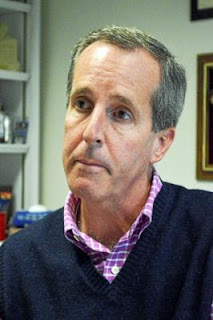
State Rep. William "Smitty" Pignatelli, D-Lenox, is saying no to a run for the state Senate to replace his longtime friend Sen. Ben Downing of Pittsfield. (Eagle File Photo)
“Rep. Pignatelli won't run for state Senate, will seek new House term”
By Jim Therrien, The Berkshire Eagle, February 2, 2016
PITTSFIELD - State Rep. William "Smitty" Pignatelli is saying no to a run for the Senate to replace his longtime friend Sen. Ben Downing of Pittsfield.
Pignatelli, D-Lenox, had been considered a strong candidate for the Berkshire-Franklin-Hampshire Senate district and said recently he was seriously considering a run. However, he said in an emailed release on Tuesday that he wants to remain in the his 4th Berkshire District House seat.
"The opportunity to serve in the Massachusetts state Senate is, admittedly, very tempting," Pignatelli said. "However, I love the House! I am honored to serve! In that spirit and in the best interests of my family and the district that I call home, it will be an honor to run for re-election to the House."
Pignatelli's decision leaves no declared candidates to replace Downing, who announced Jan. 25 that he wouldn't seek another term after 10 years in the Senate. He will, however, serve out his term through the end of 2016.
State Rep. Tricia Farley-Bouvier, D-Pittsfield, who also had considered a run for the Senate, said Tuesday that her decision to run for another House term instead won't change. She said that decision "was made without regard for who the other candidates would be."
Farley-Bouvier said of the now wide-open Senate race, "I would expect to see some movement over the next few weeks."
"After an extremely successful run as our state Senator, Ben recently announced that he will not run for another term," Pignatelli said in his statement. "With this news, my name has been offered as a likely candidate to run for Ben's seat and so, today, I have an important decision to make. Running for office, for any office, is a deeply personal and intense decision. I have been on an emotional roller coaster ever since Ben's announcement.
"I have spent considerable time reflecting on my 14 years of service as your state representative for the 4th Berkshire District, and what we have achieved together," Pignatelli said.
After noting ups and downs for the county and some recent successes, Pignatelli added, "Ben and I didn't succeed in all of this as solo enterprises, or even as one half of a 'dynamic duo;' we succeeded together, and we succeeded because of our supporters. In terms of legacy, together, I believe that we have achieved something we should all be proud of."
Quoting the late Sen. Edward Kennedy, Pignatelli said, "'The work goes on, the cause endures, the hope still lives, and the dream shall never die.' Those words inspire me each and every day to do good work for the people who have entrusted me to represent them."
Contact Jim Therrien at 413-496-6347. jtherrien@berkshireeagle.com @BE_therrien on Twitter.
related link: www.iberkshires.com/story/51127/Pignatelli-Seeking-Return-To-House-Not-Running-For-Senate.html
William "Smitty" Pignatelli: "Reflections on a team, and a decision"
By William "Smitty" Pignatelli, Op-Ed, The Berkshire Eagle, February 3rd, 2016
LENOX - "Politics" wasn't a dirty word in my house growing up. Nor were politicians thought of as "bad people". On the contrary, my parents, leading by example, taught their children that a life spent in service to others — with passion, leadership and vision — was an honorable profession.
My parents expected my siblings and I to do whatever we could to help others and they proved to us, time and again, that doing so helped to raise our own hopes and aspirations.
Ten years ago, Ben Downing, my lifelong family friend, was first elected to the Massachusetts state Senate. Since then, he and I have tackled the tough issues of the region and delivered great results.
After an extremely successful run, Ben recently announced that he will not run for another term. With this news, my name has been offered as a likely candidate to run for Ben's seat and so, I had an important decision to make.
Running for any office is a deeply personal and intense decision. I have been on an emotional roller coaster ever since Ben's announcement. I have spent time reflecting on my 14 years of service as your state representative for the Fourth Berkshire District and what we have achieved, together.
Together, we have seen the ups and downs of our local, state and global economy. We have seen long-established businesses close and we have seen entrepreneurs open the doors to new endeavors. We have seen buildings, long dormant, brought back to life. We have seen restaurants, theaters and world-class companies once again employ hundreds of hard-working people. We have seen roads and bridges and "streetscapes" repaired and replaced. We have seen new and renovated public schools throughout the district as well as much-needed investments in higher education. We have seen 17 communities pull together in an historic initiative to "share services" that will strengthen municipal budgets and save money for the hard-working taxpayers who call our towns "home".
Ben and I didn't succeed as solo enterprises, or even as one half of a "dynamic duo", we succeeded together, and we succeeded because of our supporters, In terms of legacy, together, I believe, that we have achieved something we should all be proud of.
Throughout my career in public service, I take the greatest pride in providing good constituent service. When the parent of a child with disabilities needed assistance in their school, I was there. When someone was having difficulty finding home care for an elderly parent, I was there. When someone needed help getting veterans benefits or health care, I was there. Whatever the issue, whatever the circumstance, I AM there. I have approached each constituent case with personal attention. I love my job and I aspire to help as many of my constituents as I can. I promise always to do this; with the same passion, leadership, and vision that my parents taught me.
To quote our late US Senator Edward Kennedy "The work goes on, the cause endures, the hope still lives, and the dream shall never die".
Those words inspire me to do good work for the people who have entrusted me to represent them. The opportunity to serve in the State Senate is admittedly tempting. However — I love the House! I am honored to serve!
In that spirit and in the best interest of my family and the district that I call home, it will be an honor for me to run for re-election to the House of Representatives. Together with each of you and with the Berkshire delegation, we will continue to make the Berkshires great.
"Smitty" Pignatelli officially announced his decision on Monday, February 1st, 2016.
-----
Clarence Fanto | The Bottom Line: “Pignatelli passes on Senate shot, but Mark weighs bid”
By Clarence Fanto, Op-Ed, The Berkshire Eagle, 2/6/2016
LENOX - There's a job open in the state Senate as top lawmaker representing 51 cities and towns in Western Massachusetts, filling Ben Downing's very big shoes.
But the dean of the Berkshire delegation, state Rep. William "Smitty" Pignatelli, won't be trying them on for size.
Observers and many of his supporters were quite surprised this past week when the Lenox Democrat announced that he would not be a candidate. He was widely considered the most qualified successor to Downing, whose achievements on behalf of his constituents over the last decade cannot be overstated.
With another potentially strong candidate, state Rep. Tricia Farley-Bouvier, D-Pittsfield, also deciding to pass up the Senate contest in order to seek re-election to her current seat in the House, political prognosticators are left scratching their heads.
During a conversation in his district office here on Thursday, Pignatelli emphasized that his decision to run for an eighth two-year term as state rep instead of pursuing Downing's seat was entirely personal, not political.
"I saw no political impediments," he said, noting his three decades of service in local and state government. At the interviewer's suggestion that his election to the state Senate might well have been a slam-dunk, Pignatelli acknowledged that possibility but cautioned, "that's why we have elections, there's a reason they count the votes because nothing's a sure thing."
But he did not quarrel with the notion that he would have been a formidable candidate, given his strong base of supporters and a campaign war chest of nearly $90,000.
He characterized discussions with family and friends as "are you ready to do this, do you want to do this, do you need to do this? And that's what it came down to." Pignatelli had declined to run for state Senate 10 years ago, clearing the way for Downing, then 24, to win the seat.
LETS WINDOW SHUT
At 56, Pignatelli acknowledged, he won't have another shot at a Senate race: "Whoever the next state senator is, unless they're a complete knucklehead, will probably be there for the next 10 years, maybe longer. This was my window of time if I was going to do it."
Instead, he hopes to continue in his current position for the next decade, or even longer, subject to approval of the voters, of course.
Pignatelli evinced no desire for greater power on Beacon Hill, listing his membership on three major committees — Ways and Means, Higher Education, Cultural Development.
Becoming a committee chairman is "totally irrelevant to me," he stressed, because the route to a chairmanship is currying favor and "going lockstep" with the House leadership. "I haven't been able to do that, I vote my conscience, I vote my district and I don't always endear myself to the leadership because of that. So I like that independent streak."
Pignatelli also touted the leading role of the state House in crafting state budgets after the governor offers his template and in playing a key role on other major legislation.
"I like the House, my friends are there and the real work is done in the House, in my opinion, and I like what we're doing. It was very tempting, but I made the right decision I have no regrets and I'm at peace with it."
So, if not Pignatelli, who? As of this writing, only community advocate Adam Hinds has announced his candidacy.
But state Rep. Paul Mark, D-Dalton, is seriously considering a run, according to Pignatelli. Mark's zigzag district in northeastern Berkshire County extends into mostly rural Franklin County, 16 towns in all.
"He would be extremely formidable, one of the hardest-working state reps in the Legislature," Pignatelli said. "Paul was supporting me, but now that I'm out, he's interested."
DECISION TO COME SOON
In a brief phone interview on Friday afternoon, Mark confirmed that he's seriously discussing with family, friends and advisers a potential run for Downing's seat.
He said he expects to announce his decision within the next several days.
Other contenders are likely to emerge, and a competitive Democratic primary in September would be healthy, Pignatelli affirmed, as he prepares to run for re-election himself, whether or not he has a challenger this time.
"I always say, nobody should run unopposed but me," he joked. "Everybody else should have a race."
Turning serious, he explained that "whether I have opposition or not, I run hard, put up my lawn signs, I do my radio ads, I do what it takes to run for re-election and don't take anything for granted."
But Pignatelli does not anticipate a Republican candidate emerging for state Senate. "I think this is a Democratic seat, a Berkshire seat even though the district is very sprawling."
"I've always said that in a presidential election year, Democrats in Massachusetts are unbeatable. I don't see how we could get beaten if we have a legitimate candidate running a legitimate campaign."
He cited a surge of online voter registration, as reported by Secretary of the Commonwealth William Galvin, that could produce an unprecedented turnout of nearly 3 million statewide in November.
The Democrats' favored presidential candidate should become clear after the delegate-rich March 1 "Super Tuesday" Democratic primaries and caucuses in a dozen states, including Massachusetts, Pignatelli predicted. (Republicans choose delegates in 14 states).
If Hillary Clinton emerges as the likely nominee, he said, "I hope she keeps Bernie Sanders engaged in this whole campaign, it's too critically important not to lose this election. I personally think Hillary is the best-suited, she's not the perfect candidate by any stretch of the imagination, but Ted Cruz or Donald Trump? That's kind of frightening."
For Democrats, it comes down to "who's the best candidate to win a 50-state election," he added.
My crystal ball is totally cloudy on the national contest in both parties, but closer to home, there's good reason to feel confident that in the post-Downing era starting next January, the Berkshire delegation to Beacon Hill will remain in steady, capable hands. In this gloomy and stressful campaign year, that's something worth cheering about.
Contact Clarence Fanto at cfanto@yahoo.com
-----
“Group: Massachusetts lawmakers' open meeting exemption unconstitutional”
The Associated Press, 2/26/2016
BOSTON - The Legislature's exemption from the requirements of the state's open meeting law is unconstitutional, a conservative-leaning think tank said Thursday, but Attorney General Maura Healey declined to wade into the dispute.
The Boston-based Pioneer Institute said the self-exemption restricts public access to certain legislative meetings and undermines the constitutional tenet that government be accountable for its actions.
"A public kept in the dark about critical policy decisions cannot hold its elected representatives accountable," the organization said in a statement.
In a letter to Healey, a Democrat, Pioneer asked that she issue an informal advisory opinion agreeing with its contention that the exemption written into the open meeting law was unconstitutional.
Chris Barry-Smith, first assistant attorney general under Healey, responded in a letter that the office lacked the authority to issue such an opinion. While it was empowered to offer opinions on the operation and implementation of the law, it could not conduct the constitutional analysis that the Pioneer Institute was seeking, the letter said.
The group said it disagreed and has asked Healey to reconsider.
In defending the exemption, lawmakers have said the ability to confer in private, set priorities and have frank exchanges of ideas out of public view is vital to the smooth operation of government.
The open meeting law requires that "all meetings of a public body shall be open to the public," with exceptions for meetings that may involve sensitive information about a government employee.
John Sivolella, a senior fellow in law and policy at the institute, said legislative committees often vote to close meetings or poll its members about legislation by email, which he contended could also be construed as running afoul of the open meeting law.
The institute has not decided whether to ask the state's highest court to rule on the constitutionality of the exemption, Sivolella said.
-----
December 9, 2016
I continue to read about Lenox State Representative William "Smitty" Pignatelli asking municipalities to consolidate and share administrative services as a form of sacrifice to the hard hit local taxpayers. I would like to point out the following about Smitty Pignatelli:
* He will serve his 8th 2 year term in the State House over the next 2 years
* He is a career politician who plays into the hands of the Good Old Boys club that has tanked Pittsfield's local economy
* He explains how bad things are for the struggling working class families in Western Massachusetts, while he collects all of his taxpayer funded pay and benefits
* He wants the local government to make sacrifices in the name of the hard hit taxpayers, but he never offered to sacrifice any of his own state government pay and benefits
* He will probably serve decades in public office and is banking on collecting a big state government pension in his future old age
In closing, Smitty Pignatelli is everything that is wrong with Pittsfield politics!
- Jonathan Melle
-----
Letter: “Shared services work, but not in this instance”
The Berkshire Eagle, January 6, 2017
To the editor:
I feel certain that every Stockbridge citizen is in favor of sharing services. I am!
We need to understand that the proposal we will be talking about on Monday (Jan. 9) is about being managed/governed by a shared regional administrator and one regional assistant among three towns. That is it, period! It is not about whether to or not to share services. We do share services and have for many years.
If we were to share a regional town administrator and an assistant with two larger towns we may lose more than we gain. When one enters any agreement there has to be protection. There has to be balance. I believe there is no way to achieve equality with two larger towns. We are the smallest town. We have the potential to be voted down or gobbled up.
I believe that sharing a town administrator would be detrimental to our town. I also believe we may find other areas of sharing that have not been looked at yet. Let's spend our time doing that and get out of this concept where as the smallest town of the three we may not be able to speak for ourselves on important issues or situations.
Consider what the towns of Lee and Lenox found out when they tried to hire a shared school superintendent (Eagle, Jan. 2). After a year, the idea has been abandoned. Lee stated it wanted someone who is vested in its own school district and would be accessible and be the face of Lee schools. They did not move forward with sharing a superintendent, but they did decide to share a food service director.
We have participated in shared services for many years with our neighboring towns and continue to find places where we can share equipment and purchase things together. We already share a highway construction roller and the lake weed-eater. We purchase salt and gravel together. We share "moments of need" among towns, such as in emergency situations. We share the Tri-town Health Department. Let's continue to look for places that make sense, but not at this regionalization of management/governance of our town!
I hope this has helped to clarify what we are talking about and what will be discussed at the Jan. 9 meeting. Please attend Monday at 6:30 p.m. in the gym at the Town Offices.
Mary T. Hart,
Stockbridge
-----
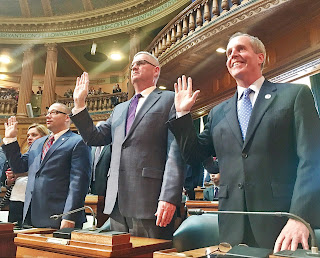
Rep. William "Smitty" Pignatelli, D-Lenox, right, takes the oath in the Statehouse joined by his colleagues, from left, Rep. Frank Moran from Lawrence and Rep. Stephen Hay from Fitchburg. Photo provided by Rep. William "Smitty" Pignatelli. January 4, 2017.
"Eleven issues to watch in the 2017-2018 session"
By Michael Norton, Katie Lannan, Andy Metzger, and Matt Murphy, State House News Service via The Berkshire Eagle, January 7, 2017
BOSTON — In addition to the wildcard that is Donald Trump's presidency, here's a look at 11 simmering issues that could escalate to a full boil in the 2017-18 legislative session, which got underway Wednesday on Beacon Hill.
1. CRIMINAL JUSTICE REFORM
Smaller prison populations and lower costs, better re-entry programs and services, and reduced recidivism rates are among the goals of criminal justice reform advocates who have seen their policy proposals wither in past sessions. Legislative leaders told Gov. Deval Patrick in 2012 that they would revisit criminal justice and sentencing reforms in the 2013-14 session, but they didn't. The 2015-16 session was also a wipeout for activists, who watched as policymakers and Gov. Charlie Baker punted the issues to outsiders to see if they could come up with a plan. Heading into 2017, administration officials and lawmakers are waiting to see what a special commission recommends after working with outside consultants from the Council of State Governments' Justice Center. Activists pressing major reforms fear the CSG report — scheduled to be released in mid-January — and subsequent legislation will be narrow in scope, with a focus on probation, parole and other post-release services. Frustrated after years of being told to wait for broad reforms, advocates are gearing up to fight for other measures including bail changes, repeals of mandatory minimum sentencing and greater use of diversion programs. Some initiatives that cleared the Senate in 2016, including expungement of juvenile misdemeanor records and raising the cash value at which larceny becomes a felony offense, are expected to resurface in the new session. A new House chairman of the Judiciary committee, to be appointed in January or February by Speaker Robert DeLeo, will play a role in determining how far those and other criminal justice issues make it through the legislative process.
2. HEALTH CARE
Total health care expenditures have outpaced the state's economic growth rate for two straight years, a significant portion of the state's population remains uninsured despite a mandatory health insurance law, and rising premiums and access to care, including oral care, are issues for many patients. Massachusetts is also on the verge of having a staggering 2 million of its residents enrolled in Medicaid, the taxpayer-funded health insurance program for those who are income eligible and individuals with disabilities. Amid the rollout of health care access and cost control laws, the market itself has undergone dramatic consolidation in recent years and there's continuing concern over the financial health of community hospitals. Medicaid is now experimenting with an accountable care payment model, with results due in 2017 that will determine how those pilots perform on cost and patient care measures. At the same time, there's talk in the Trump administration about converting Medicaid to a block grant program in an attempt to limit the flow of federal funds to the state. And a special commission looking at variations in prices charged by hospitals is closing in on possible recommendations. If it sounds like a lot, it is. Per usual, the health care policy arena in Massachusetts is active, with plenty of uncertainty.
3. ENERGY
Diversification, costs and reliability remain the legs of the state's three-legged energy policy stool. Heading into 2017, Gov. Charlie Baker and his administration are implementing a major renewable energy law to procure large-scale hydropower and develop offshore wind farms that will eventually help power homes and businesses around the state. A big hitch is that the fruits of that labor are several years from ripening. In the meantime, expect battles to be fought along familiar lines. As the administration works to finalize a new tariff-based solar renewable energy credit program, solar advocates are pressing the Department of Energy Resources to come up with a plan to bridge the gap between January and the summer, when the new program takes effect, to keep the subsidies flowing to the industry. Caps on solar net metering are also being bumped up against in most utility territories, meaning that debate will perk up for another round early in the year. And while hydropower might eventually address some of the demand and reliability concerns in the grid, a Federal Energy Regulatory Commission investigation of the ongoing maintenance issues at the Pilgrim Nuclear Power Station will continue to fire up Pilgrim opponents who are pressing Baker to demand the plant's shutdown before a scheduled refueling in 2017 designed to keep the plant running until 2019. Any adjustments to the state's energy mix — including new gas pipeline capacity — must all be balanced against greenhouse gas emission reduction requirements and targets. Lawmakers like Rep. Jay Kaufman and Sen. Michael Barrett will undoubtedly continue to make the case for a carbon tax, but more likely is a more aggressive effort by the Baker administration to promote the purchase of electric vehicles. A boost in zero-emission vehicle sales would dovetail nicely with the aims of the new court-ordered emission regulations from the Department of Environmental Protection that are up for hearings in February. The Supreme Judicial Court ordered the state to spread its emission reduction efforts across all sectors, including transportation, but some critics would like to see stricter caps on power plants.
4. INSTITUTIONAL RIVALRIES
The battles in the 2015-16 session were largely between the House and the Senate, both controlled by Democrats, rather than between the Legislature and the new Republican governor. In addition to famously disagreeing about rules governing the flow of bills, the more liberal Senate was often at odds with the more moderate House. While Gov. Baker's working relationship with legislative leaders is not likely to entirely fizzle in 2017, 2018 is an election year and Democratic legislative leaders just in December bumped heads pretty hard with the Republican governor over spending cuts they viewed as hurtful to people and unnecessary. Democratic legislative leaders have settled their rules-reform differences and have a new party chairman, Gus Bickford, who is taking an aggressive posture toward Baker out of the gate. There are some Democrats who would probably be fine with Baker in the Corner Office for another four years — they can score points for bipartisanship when things are going well and have a convenient target when things are not. But many other Democrats are hoping a strong candidate will step forward to challenge the governor. Another session featuring divided Democrats in the Legislature would bode well for Baker, who like his mentor Bill Weld has made bipartisanship one of his main political selling points. But if Democrats draw clear lines with Baker on a series of issues — the income surtax for example or privatization or new taxes on marijuana or online rentals — the dynamic could shift back to the traditional Republican-versus-Democrat format. And no one can say at this point whether Donald Trump in the White House will be good politically for Baker, or bad. The conventional wisdom is bad, but we saw what happened to conventional wisdom in 2016.
5. ETHICS REFORM
Eight years after passing a reform package strengthening ethics laws in the wake of the indictment of the former speaker on corruption charges, lawmakers plan to revisit the state's approach to conflict of interest laws. A 13-member task force led by the chairs of the House and Senate Ethics committees and the co-chairs of the Committee on State Administration and Regulatory Oversight has a deadline of March 15 to produce a report reviewing conflict of interest, financial disclosure laws, and the regulations of the State Ethics Commission, which enforces state ethics laws. In February after publicizing the idea of the review of ethics laws, House Speaker Robert DeLeo said it was intended "with the idea that some may be strengthened because they haven't been looked at for a period of time, some may have to be updated, again, because they haven't been looked at in a period of time, and some have to be clarified actually." Before agreeing to the task force, lawmakers removed directives from an earlier version to study campaign finance, lobbying and the feasibility of extending the lobbying law to cities and towns. While the task force's mandate has been honed, its charge also remains open-ended. House Ethics Chairman Chris Markey in November said he hopes the process will make the law "more manageable for municipalities as well as appointed and elected officials." Any moves by lawmakers to alter state ethics laws bears watching.
6. FULL-TIME BUDGETING
Gov. Charlie Baker will propose a fiscal 2018 budget Jan. 25, but budgeting has become a year-round necessity for Baker and the Legislature and the story is far from written yet on fiscal 2017. Legislative leaders fuming about Baker's unilateral budget cuts in December are pondering a supplemental budget to restore spending and directly challenge the governor, but their next move will depend on how revenues perform in the next month or two. Around the same time new lawmakers are getting sworn in on Wednesday (if not before), the Department of Revenue will be preparing its latest revenue report for December after mid-month collections showed positive signs with 4 percent growth. With an expected re-election effort in less than two years, Baker's next budget will be viewed through that prism as well as through the usual spending and policy lenses. Baker and the Legislature are under pressure from Wall Street credit rating agencies to boost the state's rainy day fund balance and not back off its pension-funding schedule. Money saved and invested in future pension liabilities, however, is not the stuff campaigns are built on. Everyone involved in the budget-making on Beacon Hill also has to be concerned about relatively anemic tax revenue growth during an economic recovery and the state's positioning should the next economic downturn come sooner rather than later. One concern for early 2017 that appears to have been alleviated for now is how the state planned to come up with the cash to pay for the new Cannabis Control Commission and the enforcement and regulation of recreational marijuana. By passing a six-month delay, lawmakers not only bought themselves time to consider changes to the law, but ensured that paying for the new bureaucracy would not put additional spending pressures on the fiscal 2017 budget.
7. INCOME INEQUALITY
Many pundits are interpreting President-elect Donald Trump's win this year to the frustration of the American worker, both with their own situation and the availability of good jobs and with the widening gap in America between those who make the least and the super wealthy. Backed by a powerful coalition of interest groups, low-income workers in recent years have racked up big wins in Massachusetts with a ballot law broadening access to earned sick time and a law increasing the minimum wage from $8 to $11 an hour, effective Jan. 1, 2017. Now workers are threatening to place on the 2018 ballot a proposal to boost the wage floor to $15 an hour, which could be coupled with a constitutional amendment adding nearly $2 billion in higher taxes on households with incomes above $1 million. The issues are forcing lawmakers and voters to take sides — with workers and tax raisers or with businesses and other opponents of new taxes. The minimum wage and income surtax loom as potentially huge policy matters on Beacon Hill and political issues in November 2018.
8. POT POLITICS
Sooner or later, Massachusetts lawmakers were going to get around to debating marijuana legalization; 2017 qualifies as later — much later. The Legislature's new Committee on Marijuana next year will jump into the debate after not one, not two, but three marijuana-related laws were placed on the books while legislators stayed on the sidelines, unwilling to intervene on an issue with far-reaching societal impacts. Now that adult use of marijuana is legal, lawmakers say they want to make changes to the 2016 voter law. On Dec. 28 the Legislature rushed a bill to Gov. Baker's desk pushing back retail marijuana implementation dates by six months. Baker signed it. Other potential areas for meddling include tax rates, startup regulatory costs, edible marijuana products, marketing and advertising tactics. The debate will bring marijuana industry lobbying off the campaign trail and onto Beacon Hill, where some of the people rewriting the voter law opposed the ballot question. Legislative leaders hope to tackle this issue over the first six months of 2017.
9. TAXES
A riddle that has perplexed lawmakers all year — anemic tax revenue growth amid surging job growth — could receive an answer from the Democrat-led Legislature in the form of new taxes next session. Short-term room rentals, marijuana sales and seven-figure incomes have all emerged as likely candidates for new or increased taxes. Gov. Charlie Baker will not be able to wield his veto pen against a proposed constitutional amendment adding a 4 percent surtax to incomes over $1 million. In a 2016 joint session the House and Senate advanced the measure, which would need one more vote by the branches in constitutional convention — scheduled to begin meeting no later than Wednesday, May 10 under the current joint rules — before potentially advancing to the 2018 ballot. The Democrats who control the flow of business in the House and Senate have raised taxes in 2009 and 2013, and in recent weeks have refused to rule out tax hikes in 2017. Lawmakers are already making time in the first part of the two-year session to grapple with changes to the legalized marijuana sales law passed by voters, with some suggesting the 10 percent combined state sales and excise tax on pot is not high enough. Generally ill-disposed toward tax hikes, Baker initially supported a Senate move last summer to subject vacation rentals to the hotel room tax — a move also backed by Airbnb, the highest-profile online repository of private room rentals. The governor then reversed course arguing the legislation would "impose burdensome taxes and government bureaucracy on folks who utilize short-term vacation rentals." A tax bill, which would need to originate in the House, could open the door to a variety of revenue-raising proposals.
10. EDUCATION FUNDING/REFORM
Lawmakers have identified education funding reform as a priority for the upcoming session, but a combination of overspending (versus budget) and slow revenue growth leaves the question hanging of where any new funding would come from. School aid formula changes wouldn't come cheap — a 2015 report found the current system's starting point underestimates the cost of educating students by at least $1 billion. There's considerable overlap between backers of a funding formula overhaul and the opposition campaign that shut down a 2016 ballot question that would have allowed the up to 12 new charter schools each year. While teachers unions, public school parents, local school committees and others who pushed against the ballot question aren't likely to back down, expansion proponents are rallying supporters for Round 2. "Although we took a punch, we're back at it," KIPP Boston parent Dawn Foye wrote in Dec. 21 email from Great Schools Massachusetts campaign, continuing, "We'll come at it in a different way." A signature issue of Gov. Charlie Baker's in 2016, charter expansion was defeated on two fronts with the loss at the ballot coming after the House and Senate failed to agree on an expansion bill. Baker called for a lift of the charter cap in his State of the State address last year and could use that platform in 2017 to lay out a new plan to ensure there are no gaps in education adequacy or to send a message to forces looking for major new investments. A Senate-backed plan to tie a modest charter cap lift to an big infusion of money across all public schools didn't pique interest in the House, but the distaste voters showed in November for the broader expansion favored by many representatives could change their minds. Baker has also pledged to boost education aid by the projected growth in state revenues, a promise that will be sized up when he releases his fiscal 2018 budget on Jan. 25.
11. ONLINE GAMING, LOTTERY WOES
It's been five years since lawmakers came around to embrace the idea of casino gambling as a panacea for its transportation, local aid and economic development spending desires. But apart from the trickle of slot revenues from Plainridge, that dream is still just that. MGM Springfield isn't expected to open until 2018, and Wynn Resorts won't start dealing cards until a year after that. In the meantime, the lottery —the state's main source of profit for local aid to cities and towns — is showing its age, or maturity. Treasurer Deborah Goldberg testified last month that profits next year would likely fall by $3 million to $965 million. Scratch ticket sales through November were down 3 percent and the Keno market is "virtually saturated," the treasurer said. In other words Lottery revenues are slipping and casinos haven't even opened yet. Though not cataclysmic, Goldberg's forecast for a period of "stagnation" could be the potion needed to get lawmakers to come around to the idea of moving the lottery online to reach a different, and younger, audience. A grab for more gaming revenues could prove enticing because it would not require raising taxes and could be a tact legislative leaders can convince the governor to go for. It wouldn't be easy though. Convenience store owners have never warmed to the idea, and critics will argue safeguards to protect problem gamblers will be difficult to enforce online. Gambling opponents warned casinos would not be the end of expansion and it appears the chase for the eternal gambling dollar is headed into the online world.
-----
February 3, 2017
Did anyone else notice Lenox State Representative William “Smitty” Pignatelli’s hypocritical vote for a second legislative pay raise this year? He has some nerve! It is the same Smitty Pignatelli who wrote Op-Ed’s in the Berkshire Eagle telling municipalities that they have to make “sacrifices” and regionalize or consolidate their public services.
So on the one hand, Smitty Pignatelli is for 2 legislative pay raises in one year, while on the other hand, local governments must find savings by sacrificing, consolidating, and regionalizing.
Smitty Pignatelli gets 2 pay raises this year, while the rest of us can “eat cake”.
Do as I say, not as I do!
This is politics at its worst!
– Jonathan Melle
*
A true leader, leads by example. When I was in the U.S. Army, I was told to lead from the front lines instead of behind the brave Soldiers who fight for our freedom on our behalf.
If Smitty Pignatelli was a true leader on sacrificing on behalf of the hard hit taxpayers, he would not have voted for 2 legislative pay raises so far this year! Instead, Smitty Pignatelli would have told his legislative leaders that the taxpayers come first and that the Legislature receiving 2 pay raises in one year sends the wrong message.
But no! Smitty Pignatelli voted to override Gov. Charlie Baker’s veto and enriched himself and his fellow politicians, while the taxpayers get poorer.
– Jonathan Melle
*
When people write that “Smitty’s done a lot of good”, they never name even one example of what he has accomplished during his 13+ years as a State Representative.
Smitty Pignatelli wrote Op-Ed’s on how Berkshire County’s local economy has tanked. Over one dozen factories in his legislative district have closed. Municipal taxes along with a aging and diminishing population is financially constraining local governments and school districts. Major employers like GE and Sprague are long gone. Sabic moved to Houston, Texas. The creative economy that Smitty Pignatelli touts produces low wage jobs in the tourism and hospitality industry. In other words, working class families are hurting more than ever!
Smitty Pignatelli’s first vote was for Speaker Tom Finneran. He then voted for Speaker Sal DiMasi. Both are convicted Felons and disgraced politicians. Smitty Pignatelli voted for the current Speaker for Life, Bob DeLeo, whose first piece of legislation was to give himself a huge pay raise, which Smitty Pignatelli voted for.
What makes Smitty Pignatelli so great in the eyes of voters? My answer is that he is a failure! He is a career politician who is intimidating to people who want political change. He comes from a political family and he is enriching himself at the expense of the hard hit taxpayer!
– Jonathan Melle
-----
February 28, 2017
Smitty Pignatelli recently wrote depressing Op-Ed's in the Berkshire Eagle about how many jobs, companies, and population have been lost in Western Massachusetts over the past couple of decades. Smitty Pignatelli wrote that municipalities must make financial sacrifices by consolidating their public services into regional compacts to spare the hard hit local taxpayers. Yet, Smitty Pignatelli did not offer any personal sacrifices from his own pay and benefits paid for by the same hard hit taxpayers. Then, Smitty Pignatelli voted for his second pay raise this year of 2017! That is the very example of hypocrisy and poor leadership!
- Jonathan Melle
FACTS:
* First pay raise of 2017! The legislators’ base salary was increased from $60,032 to $62,547 beginning in January, 2017.
* Second pay raise of 2017! Stipends for most committee chairs are doubling from $15,000 to $30,000. Even the largely honorary positions of Senate president pro tempore and House speaker pro tempore are getting a hefty raise with their bonuses increasing from $15,000 to $50,000.
* Hypocritical financial management! The same Democratic legislative leaders now getting big bonuses decided last summer to skip the traditional sales tax “holiday” because the state could not afford to forgo the estimated $26 million in revenue that would have been lost. It was only the second year since 2004 that consumers did not benefit from the tax holiday.
* Retirement security for Stan Rosenberg and Bob DeLeo! Stan Rosenberg and Bob DeLeo are among the chief beneficiaries of the pay hikes, with their annual salaries increasing by $45,000, to $142,547 — a 46 percent boost. The pay hikes for legislative leaders take effect immediately. State pensions are based on the three highest-salaried years.
* No public hearings! The hefty raises were passed by the Legislature without a full public airing of the details or justification of increases.
Source: Editorial: “Pay raise windfall for Legislature", The Daily Hampshire Gazette, February 2, 2017.
-----
Letter: “Eversource should help, not hurt, county”
The Berkshire Eagle, April 16, 2017
To the editor:
Berkshire Democratic Brigades wants to thank Attorney General Maura Healey and everyone who gathered last Monday in Pittsfield to oppose Eversource's electric rate hike proposal.
If the Department of Public Utilities approves it — or anything close to it — the decline of the economy of Berkshire County and all of Western Mass. will accelerate, falling even further behind that of Eastern Mass. As state Rep. William "Smitty" Pignatelli told the audience, in Berkshire County "We are smaller, we are older, we are sicker and we are poorer," and an electric rate hike of this magnitude will only exacerbate the situation.
Very simply, our problems with Eversource's rate hike fall into three categories: revenue and shareholder returns; investments in grid modernization; and rate design.
As AG Healey notes in her DPU testimony, "From 2011-2014, WMECO's average return on equity was over 10 percent and NSTAR's was close to 11 percent — very high profits given today's historically low interest rates. In 2015, NSTAR reported a return on equity of over 13 percent. Last year, no state public utility commission in the country allowed a return that high." Additionally, Healey noted, "In 2016 the average allowed return on equity in the country for electric distribution companies was 9.3 percent. In our neighboring states, it was even less, with Connecticut and Maine allowing ROEs of only 9.1 percent and 9 percent, respectively." Each 1 percent reduction will save Mass. customers $28 million per year.
Yet even having been overpaid compared to our New England neighbors, Eversource has not shown that it has met the DPU's 2014 demands to modernize the grid by: a) reducing the effects of outages; b) optimizing demand, including reducing system and customer costs; c) integrating distributed resources; or d) improving workforce and asset management.
Putting this all together, we can see how absolutely blind Eversource is, not only to its Western Mass. customers' needs, but also its own long-term interests. As Healey has said: "This is an important opportunity for the [DPU] to reset the balance between company profits and customer rates." A progressive, forward-looking utility would work with us to build our economy, not destroy it. While Boston surges, Berkshire County teeters on the brink, and higher electricity prices could push us over the edge.
Frank Farkas,
Sherwood Guernsey,
Lee Harrison,
Williamstown
The writers are all members of Berkshire Democratic Brigades.
-----
Letter: “Bond rating wake-up call on corporate loopholes”
The Berkshire Eagle, June 18, 2017
To the editor:
Following Massachusetts' credit downgrade from an AA+ to AA by the S&P Global Ratings for the first time in 30 years, it's time we took a serious look at some of the leaks in our state's tax system — especially on the corporate side.
We know that the downgrade will affect bonds that provide funding to critical services, which has been tight for a long time. So many programs have seen shrinking budgets, from education to housing and other services.
We also know that there are hundreds of millions of dollars given away in corporate tax subsidies with very little accountability for what kind of public impact they may have. We know that some hide profits in offshore tax havens to avoid states and federal taxes.
Is the credit downgrade enough of a signal that we can't let millions upon millions slip through the cracks? Everyone should pay a fair share.
Natalie Oakes,
Boston
The writer is a member of Massachusetts Fair Share.
-----
Our Opinion: “A key position stays in county with Pignatelli”
The Berkshire Eagle, Editorial, July 23, 2017
The recent death of State Representative Gailanne Cariddi has obvious ramifications for her North Berkshire district but it impacts the Berkshires as a whole. If the county had lost the leadership of an important committee that Representative Cariddi chaired it would have been a blow, but that has been averted.
Last week, Representative "Smitty" Pignatelli was appointed House chairman of the Joint Committee on the Environment, Natural Resources and Agriculture that Ms. Cariddi had led by Speaker Robert DeLeo. This committee is an important one to the rural Berkshires as it has an impact on a wide variety of critical issues, such as the Rest of River cleanup, natural gas pipelines, land use, recreation and farming.
In an interview, Representative Pignatelli said the appointment was "bittersweet" because it resulted from the loss of Representative Cariddi, described by Mr. Pignatelli as a "dear friend." Keeping the chairmanship, however, was important to the Berkshires.
"I've never been hung up on who from the Berkshires had a chairmanship as long as someone from the Berkshires had a chairmanship," said Mr. Pignatelli. "It means that we're in the room."
The Lenox Democrat said his position will enable him to pressure Eversource to address a proposed rate hike that is disproportionately weighted against Western Massachusetts, which could result in Berkshire employers being hit with punishing rate hikes. An advocate of Berkshire farmers participating in what promises to be a thriving market for recreational marijuana, he is particularly bullish on the growing of hemp, which has uses in the production of clothing, rope, construction material and other products that far outweigh its use as a recreational drug. As to the "Environment" in the title of his committee, Mr. Pignatelli says "We are the environment" in reference to the Berkshires.
Over the past decade or so, the Berkshires largely lost its senior leadership on Beacon Hill with the departures of veteran House members like Daniel Bosley of North Adams and Peter Larkin of Pittsfield who chose to pursue opportunities elsewhere. Representative Pignatelli is the senior member of the Berkshire delegation and with Representative Paul Mark and Tricia Farley-Bouvier, the delegation is beginning to get back that seniority and the ability to claim what Mr. Pignatelli calls "first tier" committee assignments and chairmanships. The delegation, of course, lost an experienced veteran in Representative Cariddi, whose seat will be filled in a special election.
Seniority matters on Beacon Hill, and it particularly matters to the sparsely populated Berkshires, which are far from the Boston center. The chairmanship of the Joint Committee on the Environment, Natural Resources and Agriculture was an important leadership post to have and it's a critical one to have kept going forward.
-----
December 22, 2017
Re: Open letter to Alan Chartock
Dear Alan Chartock,
You wrote: “State Rep. William “Smitty” Pignatelli will be signaled out by a statewide organization as THE example of what a state rep should be. A citation will be issued saying, among many other things, that Pignatelli is always there to help.” Source: Alan Chartock/I, Publius: New Year’s predictions offer a fanciful look ahead to 2018”, By Alan Chartock, The Berkshire Eagle, December 22, 2017.
I point out the following facts about Smitty Pignatelli’s public record:
He voted for the pay raise bill earlier this year. It doubled the pay and pensions of the House Speaker and Senate President on Beacon Hill. The pay raise bill was political hack business of the worst order!
He wrote an op-ed in the Eagle pointing out all of the lost population and jobs in Berkshire County in support of shared municipal services. First of all, he is a career politician who has been in state government political office since 2003 through present day. One would think he would take a share of the blame for the economic pain and financial constraints on local governments and taxpayers! Secondly, he is vocally against a return to county or regional government. One would think that Berkshire County would have a county or regional government when a majority of Massachusetts’ 14 counties have such entities.
His first vote in state government office was a vote for Speaker Tom Finneran. While many legislators voted “present”, he fell right in line like a “good” bureaucrat and voted for Finneran. Shortly thereafter, he hosted the then- Speaker [Finneran] for a hometown fundraiser with a big smile on his face published in the Eagle. He then voted for Speaker Sal DiMasi. Like Finneran, DiMasi is a convicted Felon! The current House Speaker, Bob DeLeo, ended the term limit law on the House Speaker to become “Speaker for Life.” Pignatelli votes for these top-down, entrenched so-called “leaders” term after term.
He proposed legislation to give youth a criminal record if they possessed marijuana near a youth center, school, and the like, after the state voted to decriminalize marijuana. Instead of helping youth, he wanted to give them criminal records. His proposal was undemocratic because it went against the will of the people!
He is a career politician who will serve in state government office for as long as he can. He runs in non-competitive “elections” every two years. He followed in his father’s political footsteps like so many Pittsfield area politicians, who are also known as the “Good Old Boys”. His public record is more of a bureaucrat than a legislator. He votes for hack pay raise bills, top-down House Speakers, has job security as a political insider, points out his constituents’ economic pain without taking a share of the blame, wants to give youth criminal records, and gets rewarded for following orders. In closing, Smitty Pignatelli represents top-down politics of the banal!
Sincerely,
Jonathan Melle
-----
Letter: “Short-term rental bill contains many flaws”
The Berkshire Eagle, March 25, 2018
To the editor:
The Massachusetts House of Representatives passed legislation to regulate and tax short-term lodging rental. We support their effort even though the bill is flawed and doesn't go far enough in addressing the new realities in today's hospitality industry.
If the legislators are serious about leveling the playing field they need to understand the inequity of the competition in the hospitality industry. Small family-owned bed and breakfasts (defined as less than 30 rooms) have been competing with chains like Marriott and Hilton. They have been required to pay the same tax rates (excise and property) and maintain the same building code standards and inspections. In today's internet-driven economy, they are now competing with platforms like Airbnb ($30 billion) which in revenue generates more than Marriott ($22.9 billion) or Hilton ($9.14 billion) without owning a bed.
Airbnb is only one of several internet platforms that spend millions of dollars advertising. There is also Homeaway, VRBO, Flipkey and Trivago. Even traditional online travel agencies like Booking.com advertise houses for short term rental. The lack of regulation is a public safety hazard and the lost tax revenue is enormous.
House Bill H 4314's first and foremost flaw is in the definition of a unit. The bill states: "Residential unit," a room, group of rooms or other living or sleeping space for the lodging of occupants; a single-family dwelling, multi-family dwelling or residential dwelling unit in a multi-unit structure; or a condominium, cooperative, timeshare or similar joint property ownership arrangement, including vacation rentals.
A single family home is treated as one unit, in the same way as renting one room in a home. Each rental should be defined by the number of occupants that can potentially be housed. A fair definition of a unit must factor in the number of occupants that the unit is advertised to accommodate. If a unit is advertised as accommodating eight people it should be defined as four units.
The second major flaw is in that cities and towns are given the option to impose the excise tax on short-term rentals. If the city or town currently imposes the excise tax on hotels and bed and breakfasts it should be required to impose the same level of tax on all short-term rentals. Local officials frequently have a conflict of interest because they, their family, or friends have been engaged in short-term rental activity. Making this bill fair means making it apply to everyone.
House Bill 4313 does not address the disparity in property tax rates. Many cities and towns in the Commonwealth have chosen to separate the residential from the commercial tax rates. In all cases the commercial rate is higher than the residential. It is not unusual to see rates as much as 20 to 40 percent higher. If residential units, as defined by H 4314, are used to generate income for the owner, they are commercial properties and this should be taken into account when leveling the playing field.
We hope that when the bill is presented to the Senate that these flaws are corrected before the bill is sent to the governor.
Phil Halpern,
Linda Halpern,
Stockbridge
-----
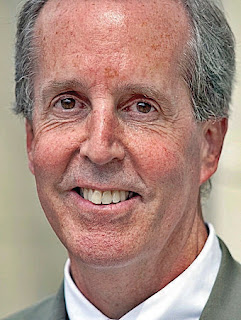
-
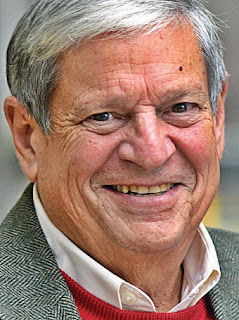
“Pignatelli, Barrett seek 10 percent funding hike for regional transportation authorities”
By Adam Shanks, ashanks@berkshireeagle.com – The Berkshire Eagle, April 21, 2018
PITTSFIELD — With the Berkshire Regional Transit Authority facing a budget shortfall, and potential service cuts, local legislators are stepping up to push for more funding.
State Reps. William "Smitty" Pignatelli, D-Lenox, and John Barrett III, D-North Adams, have filed an amendment to the House of Representatives budget that would increase funding for regional transportation authorities by 10 percent.
"That's what they need to just sustain what they now have," Barrett said. "It's not even to increase any service; it's just to get to a level of sustainability."
The three-paragraph amendment would see state funding for transit authorities rise from $80.4 million to $88.81 million — an amount "equivalent to 1 percent of the penny of the sales tax revenue" set aside for the Massachusetts Bay Transportation Authority.
"It frustrates the heck out of me and the delegation," Pignatelli said.
This month, the Berkshire Regional Transit Authority announced looming reductions in service because of a budget gap of $378,400.
Over the past three years, during which the Berkshire Regional Transit Authority was level-funded, Berkshire County has contributed more than $150 million to the MBTA via the sales tax, according to Barrett.
"The MBTA is important, but there's also the rest of the state that's not served by it," Barrett said.
Gov. Charlie Baker's budget called for $80.4 million in funding for transportation authorities, as did the House Ways and Means Committee budget. Of that, the BRTA would receive $2.5 million.
Pignatelli noted the role public transportation plays locally in providing access to health care and education.
"I think we need to recognize public transportation is just as important to the Berkshires as it is to Boston," Pignatelli said.
Rep. Tricia Farley-Bouvier, D-Pittsfield, and Rep. Paul Mark, D-Peru, have also signed onto the Pignatelli-Barrett amendment.
Transportation officials have said the state continues to fail to meet its funding obligations, forcing local authorities to raise fares or reduce services.
The BRTA is not alone in its belt tightening — transportation authorities in Worcester, the Pioneer Valley and Franklin County also are facing deficits.
If the governor's funding level is adopted, the BRTA is considering increasing fixed-route fares when using the Charlie Card electronic ticketing system.
The BRTA also would consider discontinuing paratransit service on Saturdays and/or Sundays.
Routes potentially cut or reduced include the 3 Shuttle between Williamstown and North Adams, Route 1 between North Adams and Pittsfield, Route 2 between Pittsfield and Lee, and Route 21 between Great Barrington and Lee.
Rep. Sarah Peake has filed a nearly identical amendment to Barrett's, the only difference being that it calls for an increase of $8 million in funding, instead of $8.4 million. Barrett, Pignatelli and Farley-Bouvier also have signed on to Peake's proposed amendment.
"I believe that one or the other will receive [support]," Barrett said.
The House is set to begin debate on the budget and proposed amendments Monday, after which it will head to the Senate before being finalized in conference committee and heading to the governor's desk for approval.
Adam Shanks can be reached at ashanks@berkshireeagle.com, at @EagleAdamShanks on Twitter, or 413-629-4517.
-----
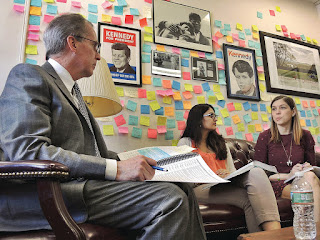
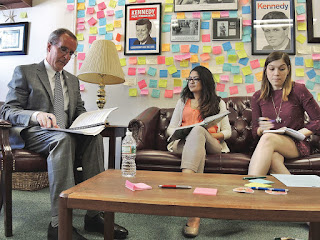
State Rep. William "Smitty" Pignatelli, D-Lenox, goes over budget planning documents with his legislative director, Vasundhra Sangar, center, and Serafina Zeringo. Larry Parnass - The Berkshire Eagle
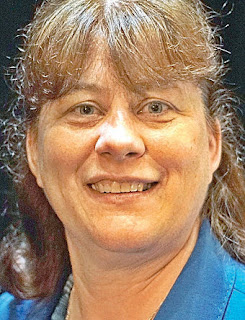
Tricia Farley-Bouvier
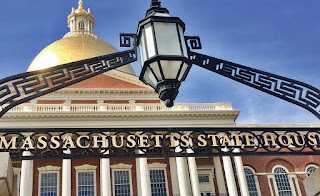
This was budget week at the Statehouse in Boston, as members of the House routinely worked 12-hour days on their version of a budget for the fiscal year that starts July 1. Larry Parnass - The Berkshire Eagle

Paul Mark
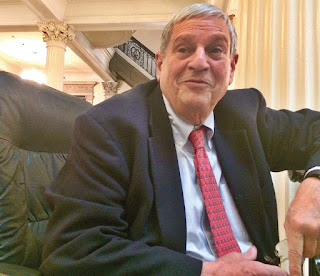
State Rep. John Barrett III, D-North Adams, sits outside the House Chamber last week in the Statehouse in Boston. While Barrett had often come to press lawmakers for funding in his 26 years as the mayor of North Adams, this was his first go at budget-making from the inside. Larry Parnass - The Berkshire Eagle

State Rep. William "Smitty" Pignatelli, D-Lenox, looks over a list of budget amendments while leaving the House Chamber at the Statehouse in Boston. Larry Parnass - The Berkshire Eagle
“House budget week: Looking out for constituents amid the 'chaos'”
By Larry Parnass, The Berkshire Eagle, April 28, 2018
BOSTON — "God of justice," the priest intoned, "we ask your blessing upon the women and men of this House as they begin in earnest to create a budget for our commonwealth."
It was minutes after 10 a.m. last Monday. Nearly 160 members of the House of Representatives stood in their mahogany-paneled chamber in the Statehouse, fortified by mugs of coffee and communal candy bowls, to face one of their longest and most chaotic weeks.
"Grant representatives a spirit of collaboration," the Rev. Rick Walsh added, "and share your spirit of hope."
Lawmakers had put their hopes in writing: 1,400 proposed amendments to the nearly $40 billion budget already crafted by the body's Ways and Means Committee, under new leadership by Rep. Jeffrey Sanchez, D-Boston.
Until 7:33 p.m. Thursday, when the House passed a budget that was $81 million fatter, lawmakers engaged in long days of persuasion and maneuvering, trying to put their marks on the spending plan.
Four Berkshire County representatives joined their colleagues — at times as allies, but also as rivals for limited funding — in this yearly quest to push projects that, if they survive later tests, would bring benefits to their home districts.
"If you don't file any amendments to help out your district, then what the heck are you doing here?" asked State Rep. William "Smitty" Pignatelli, a Lenox Democrat.
This was Pignatelli's 16th budget week, but a first time for state Rep. John Barrett III, the North Adams Democrat who joined the House after winning an election to replace the late Gailanne Cariddi.
Joined by two fellow Democratic representatives from Berkshire County, Tricia Farley-Bouvier of Pittsfield and Paul Mark of Peru, they all had a long list of amendments to track.
By week's end, all could point to victories.
Though the House chamber buzzed with activity through the week, with occasional floor speeches and skirmishes, the most important conversations took place in Room 348, a members-only lounge, or in other places, including the echoing third-floor lobby outside the chamber.
Through the week, the chamber itself was mostly inactive, as squads of student-athletes on spring break cruised through to take bows for winning seasons.
It was to Room 348 that representatives were summoned to pitch, elevator style, the merits of proposed spending tweaks to Sanchez and members of his team.
As it all got underway Monday morning, Sanchez had walked to the rostrum. The committee's budget, he announced, helps real people, including the state's most vulnerable.
"This budget is all about meeting people where they're at," Sanchez said, taking a few minutes to tick off examples of spending.
Then it was time for levity. "I guess we don't need any amendments. Right?" Sanchez asked. "I thought I'd try."
It's the economy
Barrett got his first taste of those discussions after trouping off to Room 348 later Monday morning.
By early afternoon, he was back in his newly assigned seat in the back row of the chamber, with the visitors' gallery behind him and five historical Massachusetts murals looking down from above the well and rostrum.
While Barrett had often come to press lawmakers for funding in his 26 years as the mayor of North Adams, this was his first go at budget-making from the inside. He was taking advice from colleagues and working to build the relationships all lawmakers need to pass legislation.
All quite different, he said, from being at the top of the municipal ladder.
"Now I'm one of 160," Barrett said. "In that way, I'm starting on the ground floor."
For this legislative newcomer, the economy is the name of the game. Barrett's amendments sought to expand workforce training, aid startup companies, direct more money to underfunded schools and examine remaining gaps in high-speed internet service, particularly in areas already wired for cable.
Small manufacturers need help getting workers, he said. "That's a challenge we have in Berkshire County. We have an available workforce, but we need a trained workforce."
As Sanchez's team went through budget categories, representatives were told privately whether their amendments had made the cut, even in reduced amounts. That's when unsuccessful measures usually are withdrawn. On Monday, more than 60 amendments were pulled by their sponsors; others were consolidated with other proposals.
"We could keep it in there and fight for it on the floor, which would be a futile effort," Barrett said. "In the end, it's like anything else, whether you are a mayor or a president. You have to make that decision."
As the days passed, Barrett said he was hoping to get to know his colleagues. He rose for his first-ever speech in the chamber Tuesday, introducing his amendment to rename the Mount Greylock visitors center for Cariddi.
After Speaker Robert A. DeLeo banged a gavel and asked members to sit, Barrett told of his long friendship with Cariddi.
"She epitomizes all that was good, how we should be as leaders, no matter what position we held," he said. "She taught us all persistence. Her walk through life was a short one, but she accomplished so much."
When Barrett was done, members came forward into the well to congratulate him on his first remarks in the chamber. A roll call vote on the amendment to honor Cariddi passed 153-0.
On defense, too
For Farley-Bouvier, this year's gamesmanship over amendments wasn't quite as intense.
As a member of the Progressive Caucus, she had seen many of her priorities, including higher pay for people who work in early education, make it into the Ways and Means budget.
"Which was pretty exciting," she said in the lobby outside the chamber, as visitors and lobbyists churned through.
"Our success came because of our ongoing advocacy. The House Ways and Means chair has similar priorities," Farley-Bouvier said.
One of her amendments, though, sought to benefit Pittsfield specifically. The measure asked for funding that could be directed to help developer David Carver redevelop the former St. Mary of the Morning Star Church into 29 market-rate apartments.
Farley-Bouvier says the Tyler Street project is a "linchpin" in the wider revival of the Morningside area, long one of her legislative projects.
"There's a little bit of a funding gap there, which is typical in Gateway cities," she said, referring to a designation used for municipalities with economic challenges.
While construction costs can be the same across the state, developers in areas like Pittsfield are not able to command the rents fetched in more affluent places.
The money would help preserve the former church property's bell tower, aid an environmental cleanup and perhaps underwrite sidewalk construction, she said.
"I've asked for $200,000; we'll see what we get," Farley-Bouvier said with a laugh.
Since Farley-Bouvier didn't need to monitor as many pending amendments, she also was poised to fend off efforts by House Republicans to cut revenue — efforts that came Monday and were all defeated.
Building relationships
One of Pignatelli's main concerns came up Monday afternoon, when the House came back into order at 3:58 p.m.
Lawmakers backed his call to increase the tax credit available to state dairy farmers.
Shortly before winning the increase in the dairy tax credit, Pignatelli, in an interview, was reeling off dismal numbers on the collapse of the dairy industry in Massachusetts, which has fallen to about150 farms from the 3,000 that operated not long ago.
Farms still hanging on face production costs that are higher than the wholesale prices allowed. The tax credit offers a measure of aid to try to preserve the industry, he said.
As chairman of the Committee on Environment, Natural Resources and Agriculture, Pignatelli no longer serves on other committees, including Ways and Means.
His amendments this year addressed his long advocacy for youth projects, better transportation options for elders and a plan to study the availability of ambulance services in rural towns.
Of the 20 towns in his district, representatives of a dozen of them had asked for help in determining how such service can be provided.
Of those district towns, only Lenox, Pignatelli said, provides round-the-clock paid police, fire and ambulance services, leaving volunteers to shoulder those duties in other towns.
"Some of the smaller towns are feeling the pinch of a smaller population, an aging demographic and volunteerism isn't what it used to be," he said. "How do we still deliver services?"
Pignatelli also had worked to build support for an amendment to add $2 million in spending to expand staffing in state parks and forests.
In remarks on the floor just before noon Tuesday, Pignatelli said he felt the budget was dealing with inadequate spending, including on the Department of Environmental Protection.
The chamber buzzed with conversation. Speaker DeLeo banged his gavel and asked people to listen "to the gentleman at the microphone."
While the Berkshires has two park rangers, Pignatelli noted privately that 35 rangers are assigned to duty in the Statehouse, where their work includes security checks for visitors.
"It doesn't make sense. We have the highest elevation in Massachusetts, in Mount Greylock, we have October Mountain in my district," he said before the measure passed. "There are beautiful and pristine areas, and yet we're not very welcoming. I think we need to have them professionally staffed, and that's what the DCR budget amendment is all about."
Budget week at the Statehouse, Pignatelli said, calls to lawmakers to think about those who sent to them to Boston.
Even as they work to back statewide concerns, such as the viability of regional transit authorities, representatives must think parochially, he said.
"I think that's got to be your No. 1 priority," he said. "The people who hire and fire you are the ones who live in the district. And that's why I want youth development. That's why I want elderly transportation. That's why I want to do an ambulance analysis. All politics is local. I think that's what budget week is all about for me."
After 16 years of helping to fashion the state budget, Pignatelli knew he'd lose on some amendments. He planned to bring some up again, another year.
"I've seen a lot of colleagues come and go here, very quickly. We just have to keep chipping away at it and build relationships," he said. "It's almost my favorite week of the year. We'll put in some long hours, but I don't know of a better time than this week to build those relationships. I love this week. It's tiresome, but I love it."
`Organized chaos'
Mark, whose 16-town district runs northeast from one Pittsfield precinct into Franklin County, monitored some of the week's action from his office, following a TV feed and text messages.
After shaping proposed amendments on behalf of his district, Mark joined others in waiting to see how Sanchez's team would run the winnowing process.
"This week it's all chaos, organized chaos," he said.
That included weighing the best ways to make a case to the committee. "We're all trying to figure out what are his priorities, and how can we advocate most effectively to him," Mark said of Sanchez.
One of Mark's wins came when budget-makers agreed to fund a new effort in Berkshire County to combat opioid abuse.
Arguments in its favor were clearly persuasive. Since 2013, a task force based in Greenfield overseen by the Franklin County sheriff, the local district attorney and the register of probate has won notice and secured millions in federal funding.
In 2016, as fatal opioid overdoses rose 15 percent across the state compared with the year before, they fell 26 percent in Franklin County.
Along with renewing support for that task force, Mark put a request in to re-create a version of it in Berkshire County, after consulting with Sheriff Thomas Bowler and the Berkshire County District Attorney's Office.
The idea was proposed, he said, by the Berkshire Opioid Abuse Prevention Collaborative.
"For the whole region it's a problem, and it's now considered a public health epidemic across the country," Mark said. "I think this is a good opportunity to get a new set of eyes on this."
In two other amendments related to Berkshire County, Mark hoped to sustain funding for the Massachusetts Office for Employee Involvement and Ownership. That effort was zeroed out when the last recession hit in 2008 but was rekindled with a $150,000 allocation for this year.
The office works to help people create new cooperative businesses with employee ownership, or transition to them.
It took seven tries to bring the office back for this year, and Mark hopes not to have to begin from scratch again.
He also was pushing as lead sponsor of an amendment for programs statewide that provide services to children who have faced sexual abuse. In Berkshire County, that work is done by the Kids' Place program.
While that amendment addresses a problem across Massachusetts, the lion's share of the measures either embraced of batted away by Sanchez's team are local.
For Mark, as for others, budget week is a kind of homecoming week.
"When you look at this state, every region has its own unique flavor and its own unique needs," he said. "Possibly nowhere more so than Berkshire and Franklin counties, the most rural counties in the state."
Larry Parnass can be reached at lparnass@berkshireeagle.com, at @larryparnass on Twitter and 413-496-6214.
-----
“How area lawmakers fared with budget amendments”
BOSTON — Here is a recap of how the four lawmakers sent by Berkshire County communities to the state House fared on budget amendments they submitted.
The funding is part of the $41.065 billion budget passed Thursday by the House for the fiscal year that starts July 1. The plan must be reconciled with the budget the Senate will approve in May, then pass muster with Gov. Charlie Baker.
— Larry Parnass, The Berkshire Eagle, [Saturday] April 28, 2018
State Rep. John Barrett III, D-North Adams
WHAT HE WANTED: New line item for $100,000 for advanced manufacturing.
WHAT HE GOT: Received $25,000 that will be split between McCann Technical School in North Adams and BerkshireWorks in Pittsfield.
WHAT HE WANTED: Language change and earmark worth $5 million in education and local aid to create a category for economically distressed communities in Chapter 70 appropriation.
WHAT HE GOT: Not accepted, but Barrett said he is pleased to have built support for funding from other communities.
WHAT HE WANTED: Earmark of $200,000 in the Office of Travel and Tourism line item for the Bay State Games.
WHAT HE GOT: Accepted. "That's a big boost," Barrett said.
WHAT HE WANTED: Adding $8.4 million to regional transit authorities, and language change dedicating sales tax revenue for regional transit authorities.
WHAT HE GOT: House added $2 million. The Senate budget might increase funding.
WHAT HE WANTED: Adding $100,000 in the school-based health programs line item for the Massachusetts Model of Community Coalitions.
WHAT HE GOT: Accepted. Money will be split between the Northern Berkshire Community Coalition in North Adams and a group in the Athol-Orange area.
WHAT HE WANTED: Adding $50,000 for establishment of a Susan B. Anthony memorial in Adams.
WHAT HE GOT: Not accepted. But a local group will be able to apply for a share of $175,000 allocated for women's suffrage celebrations.
WHAT HE WANTED: Renaming the Mount Greylock Visitor Center as the "Representative Gailanne M. Cariddi Visitor Center."
WHAT HE GOT: Accepted.
WHAT HE WANTED: Adding $150,000 for feasibility study on broadband internet in Western Massachusetts for municipalities that are not considered unserved.
WHAT HE GOT: Not approved. Barrett hopes to find partial funding from the lieutenant governor's Community Compact grant program.
WHAT HE WANTED: Adding budget line item for the Innovation Commercialization Seed Fund to support economic development in Western Massachusetts. Was seeking $25,000 for Lever Inc. program in North Adams.
WHAT HE GOT: Not accepted.
State Rep. Tricia Farley-Bouvier, D-Pittsfield
WHAT SHE WANTED: Adding economic development funding for the Morningstar Residences in Pittsfield.
WHAT SHE GOT: Received $125,000. "This is such an amazing project," Farley-Bouvier said.
In addition, Farley-Bouvier filed for amendments in support of increased human services funding, particularly for at-risk youths, on behalf of agencies. And as co-chair of the Progressive Caucus, Farley-Bouvier and other representatives reported these gains through the overall House budget:
- Increase in amount of state aid that children in low-income families receive under the Transitional Aid to Families with Dependent Children program.
- $5 million increase for the early educator rate reserve, a fund that enables schools to recruit high-quality teachers and pay them a competitive salary.
- $200,000 increase in funding for the Department of Ecological Restoration over the governor's budget.
- $750,000 increase for the Massachusetts Legal Assistance Corp.
- $500,000 increase in funding for YouthWorks. The program subsidizes jobs for at-risk and low-income youths.
State Rep. Paul Mark, D-Peru
In addition to amendments related to district communities in Franklin County, Mark submitted this one for Berkshire County, along with others:
WHAT HE WANTED: Adding $250,000 to the Berkshire Sheriff's Office appropriation for creation of a Berkshire County opioid education and awareness task force.
WHAT HE GOT: Funding approved.
State Rep. William "Smitty" Pignatelli, D-Lenox
WHAT HE WANTED: Name a section of Route 7 in Sheffield the "Elizabeth Mumbet Freeman Highway to Freedom," in honor of a former slave who sued for her freedom and won in the late 18th century.
WHAT HE GOT: Received. DOT will put up signs.
WHAT HE WANTED: Increase the Division of Marine Fisheries appropriation by $30,000 and earmark same amount for the Atlantic White Shark Conservancy.
WHAT HE GOT: Not accepted.
WHAT HE WANTED: Increase the state park and recreation appropriation by up to $2 million and earmark the same amount for visitor centers and parks.
WHAT HE GOT: Through financial juggling in other accounts, the House budget freed up that amount to increase staffing.
WHAT HE WANTED: Increase Energy and Environmental Affairs appropriation by $171,000.
WHAT HE GOT: Not accepted.
WHAT HE WANTED: Increase the Department of Transportation line item by $200,000 and earmark same amount for renovations to the Park Street Bridge in Lee.
WHAT HE GOT: Approved $100,000 for emergency bridge repairs on a span that needs to be replaced.
WHAT HE WANTED: Increase grants to councils on aging appropriation by $50,000 and earmark the same amount for the Claire Teague Senior Center in Great Barrington.
WHAT HE GOT: Accepted.
WHAT HE WANTED: Increase the state dairy farm tax credit from $4 million to $8 million.
WHAT HE GOT: Won approval for $6 million.
WHAT HE WANTED: Increase the Energy and Environmental Affairs Information Technology appropriation by $1.5 million.
WHAT HE GOT: Not accepted.
WHAT HE WANTED: Increase the Office of Environmental Law Enforcement appropriation by $670,000.
WHAT HE GOT: Not accepted. "That's a disappointment," Pignatelli said.
WHAT HE WANTED: Increase the health care quality and improvement line item by $50,000 and earmark the same amount for an EMS feasibility study in Berkshire County.
WHAT HE GOT: Accepted.
WHAT HE WANTED: Increase the Bureau of Substance Addiction Services appropriation by $200,000 and earmark the same amount for the Berkshire County Youth Development Project.
WHAT HE GOT: Accepted. "I had a great week," Pignatelli said. "Our staff did a great job."
-----
Our Opinion: “Legislature's inexcusable July bottleneck of laws”
The Berkshire Eagle, Editorial, July 10, 2018
Bay State residents treat their legislators well. Each one of them pulls down an average of approximately $64,000 per year, which can be augmented by up to $35,000 for those in leadership positions. Since the Senate has only 40 members, almost all of them manage to hold leadership positions of one kind or another. They get $600 per month in expenses that don't need to be accounted for, as well as full benefits like health insurance and a retirement plan. Even though Massachusetts is a state with a full-time Legislature, a majority of the commonwealth's lawmakers report outside income. It's a nice gig if you can get it, which is why our solons work so hard to keep it.
For all this outlay, it would be reasonable for taxpayers to expect their representatives to deliberate, compromise, horse-trade and do whatever is necessary to produce quality legislative work on deadline. The most important item on that list of legislative duties is to craft a state budget, and the denizens of Beacon Hill have had months to work on one. Yet, as of last Thursday, when the governor of South Carolina signed his state's budget, Massachusetts became the last state in the union with no permanent budget in place for fiscal year 2019. Since that year began on July 1, the commonwealth is currently surviving on a one-month stopgap budget that will keep the lights on until legislators do their jobs.
It isn't as though there are too many hands out for too little money; recent state revenue has exceeded expectations, leaving about $200 million to add to a $41-billion total for legislators to spend after other obligations have been taken care of. The Legislature is controlled by a single party, and while intra-party factions have been slowing down the process, there is no "opposition" to speak of.
One way to speed up the process — both now and in the future — would be for both houses to pass "clean" budgets, meaning that they only deal with spending items. Governor Charlie Baker favors such a budget as opposed to the current House and Senate versions. Both are heavily larded with non-spending "policy" riders, to the tune of 109 in the House version and 185 in the Senate's, according to the Massachusetts Taxpayers Foundation. Fingers of blame are also pointing at Representative Jeffrey Sanchez, chairman of the all-important House Ways and Means Committee, who is in his first year in the position and still learning the budgetary ropes.
These are weak excuses, and do not constitute sufficient reason for the the Legislature's dilatory and irresponsible behavior, particularly in light of time already spent. A large share of the blame goes to House Speaker Robert DeLeo, who appears to be running out the clock on policy proposals advocated for by the more liberal Senate. The Legislature's penchant for secrecy is best demonstrated by Mr. DeLeo and his leadership group, and that secrecy makes it difficult for the press and public to determine why important issues are stalled on an annual basis.
Among those issues stuck in one committee or another are affordable housing, state police reform, short-term rental regulation, data breach protection, civic education enhancement and the opioid crisis. A bill addressing the latter with new reform measures made its way out of a House committee on Tuesday, but if it and similar measures aren't passed and sent to the governor by the end of the session this month they could be relegated to the back burner in the fall.
This is not the efficient, effective Legislature that Massachusetts residents expect, nor is it one they should settle for. Factional allegiances and power plays are to be expected in any lawmaking body, and Beacon Hill has its fair share. Nevertheless, when internal squabbling — or even worse, bureaucratic inertia — reaches the point where it delays the most basic of functions, the full-time Legislature has failed its constituents.
-----
“Berkshire Hills joins Pittsfield push to fix state's 'archaic' school funding formula”
By Heather Bellow, The Berkshire Eagle, September 9, 2018
Great Barrington — It is "archaic." It straps taxpayers. It threatens the quality of education.
This is how, so far, two Berkshire County school districts say they see the state's formula for calculating the minimum amount a community has to pay for its schools.
And the districts say that by not fixing it this last budget season, the state Legislature violated the public trust.
Encouraged by the Pittsfield Public Schools, the Berkshire Hills Regional School Committee voted unanimously last week in favor of signing a resolution asking the county's legislative delegation to revise that formula, known as the "foundation budget," and make this its "top priority for [fiscal] 2020."
The resolution uses some hard language as it points to the Legislature's failure in July to pass a bill that would have changed the formula for 2019, saying lawmakers have "violated the public trust."
"This inaction constitutes a failure to recognize the ever greater financial pressure on all communities such as our member towns of Great Barrington, Stockbridge and West Stockbridge, which jeopardizes the quality and comprehensiveness of the district's educational programming, through the continuation of an outdated and underfunded foundation budget formula and inadequate Chapter 70 funding," the resolution reads, referring to the state's program for disbursing education and school transportation money.
The foundation budget is increasingly coming under attack statewide — especially in poor communities — for its 25-year-old formula that no longer accounts for a number of factors that include rising insurance costs and the true price of educating certain types of students.
The formula calculates a school district's demographics and a town's tax revenue, for instance, to come up with a minimum legal amount that town must pay for its schools.
But this does not always adjust to reality, school officials argue.
"Great Barrington, like other communities, is funny because we don't fit into an obvious box," said Berkshire Hills Superintendent Peter Dillon. "There are the wealthy, those that are struggling and those in the middle."
The bill to revise the foundation budget failed when the state House of Representatives and Senate could not come to an agreement about measures that might have increased insurance and special education spending, as well as spending on low-income and English-language learners.
The bill's derailment has frustrated, even angered, local school officials, who are trying to keep up with costs within a rural economy and diminishing student populations.
"The [school] committee deplores the failure of the General Court ... to revise the foundation budget," reads the Pittsfield Public Schools' resolution, also unanimously approved by its School Committee.
Berkshires outcry
Pittsfield School Committee Chairwoman Katherine Yon wrote to her counterpart at Berkshire Hills, Stephen Bannon, as well as every school committee chairperson in the county, that is is time to wage a countywide campaign for reform.
"We believe that a united outcry from the Berkshires can be very powerful," Yon wrote, also suggesting that Pittsfield's resolution could be used as a template.
Yon, who with Pittsfield Schools Superintendent Jason "Jake" McCandless gave testimony at the Statehouse in support of the bill, told The Eagle that she isn't sure if other school committees had also voted on resolutions.
She said that so far, she had received a positive response from Sen. Adam Hinds D-Pittsfield regarding the Aug. 21 letter.
"It's all about equity," she said. "To educate students whether in a rich community or a poor community."
But school officials aren't the only ones trying to solve money shortages.
"There was a commitment with the House and the Senate to try to reach an accord and we couldn't do it," state Rep. William "Smitty" Pignatelli told The Eagle.
The Lenox Democrat said there was a hang-up over health insurance, among other things, that squashed the bill. But Pignatelli cautioned against pointing fingers only at lawmakers. Pignatelli said local officials are also responsible.
"There's a lot of local control in school budgets," he said.
But he also agrees that the foundation budget could use an overhaul.
"There's no question about it," he said. "The formula is seriously flawed."
Pignatelli said that with "legitimate reform" comes winners and losers, and he asked where the money to increase the necessary school spending would come from, especially since a hoped-for source of new revenue, dangled before the state, fell apart in a court ruling.
Thinking it would be flush with another roughly $2 billion annually from an expected "millionaire's tax," state lawmakers had thought these education increases would be covered, Pignatelli said. But the Supreme Judicial Court ruled in June that a surtax on the wealthy couldn't go on the November ballot.
"It threw everybody's financial planning out of whack," said Glenn Koocher, executive director of the Massachusetts Association of School Committees, of the SJC ruling.
The problems schools have with the foundation budget appear to be the same sticking points that hung the bill up in the Legislature.
"It does not accurately count the real number of students that are economically disadvantaged, and it does not accurately reimburse districts for the fair cost of dealing with students who are English-language learners, and it doesn't include the cost of retiree health insurance," Koocher said. "These were not issues in 1993."
Dillon hinted that the state might be shortsighted by not tackling the formula more aggressively.
"Money invested early in education increases economic development, but also saves a lot of money investing [from] remediating, correcting or punishing," he said, noting that there is plenty of research out there on this point.
And Dillon further said that money has been found to make other things happen — it all depends on priorities.
"When Boston was trying to get GE to come to Boston from Fairfield County, [Connecticut], a whole set of things were done to make that attractive," he said, referring to incentives by the city to woo General Electric, so it would relocate its headquarters there.
Koocher said all is not lost — that for a host of reasons and timing, the matter got punted to next year. But the fight will continue.
"It's not a disaster; it's just a delay," he said. "[But] it would be a long-term disaster if this doesn't get resolved."
Heather Bellow can be reached at hbellow@berkshireeagle.com and on Twitter @BE_hbellow and 413-329-6871.
-----
Our Opinion: “It's time for a lesson in school funding”
The Berkshire Eagle, Editorial, October 8, 2018
All right, class ... Stop yelling, settle down and listen to today's lesson, which is deceptively simple: If you're upset with the state of your schools, don't blame your local school committees. They have to make do with the resources they're given, and they're just trying to hold everything together with chewing gum and baling wire.
Massachusetts residents like to point with pride to their state public school system, which repeatedly ranks as best among the 50 states. There's always room for improvement, however, as local school officials, teachers, parents and students are quick to point out.
Certainly, the will for excellence is present in the Bay State, but as with so many other state services, it boils down to how much residents are willing to tax themselves and divide the proceeds equitably among the people and localities in the commonwealth. Such policy — proportional distribution of revenue according to need — is the heart of progressivism.
At a forum on Monday sponsored by the Massachusetts Association of School Committees at Lee Middle and High Schools (Eagle, Thursday), local school officials and members of the state legislative delegation met to discuss the woeful inadequacy of the infamous state Foundation Budget, based upon a 25-year-old formula that was designed to smooth out some of the funding disparities between prosperous school districts with robust tax bases and schools like those in the Berkshires, where relatively poor, sparsely populated rural districts find themselves falling ever further behind.
At the forum, a common villain emerged — the state Legislature. Even members of the Berkshires legislative delegation expressed frustration with the state's governing body, which hamstrung itself last summer while attempting to update the Foundation Budget and make it more realistic for the modern era. Such issues as increased health care insurance, special education and instruction for low-income students stymied a deal that would have brought relief, and while state Sen. Adam Hinds was able to get his colleagues to cough up extra money for rural schools, it was a temporary fix rather than a systemic change.
Ultimately, the solution lies in two areas: revenue and allocation — both of which take political courage, and that tends to be in short supply on Beacon Hill. State Rep. William "Smitty" Pignatelli begged for revenue-raising ideas, particularly in light of the failure of the so-called "millionaire's tax," a referendum that was shot down by the Supreme Judicial Court, and that could have brought in an estimated $2 billion for education.
As for allocation, as Mr. Pignatelli ruefully observed, there are 200 members of the Legislature, many of whom need to be convinced that adequate funding means allowing poorer segments of the commonwealth to offer and maintain complete educational opportunities for all students.
So here's a homework assignment for all you malcontents: If you want to complain to someone about the state of your schools, complain to state legislators.
They control the purse strings, and you pay them to tackle tough jobs like properly revamping the Foundation Budget and raising the revenue (from somewhere) to make it effective. But don't complain to the Berkshires delegation — they're already on your side and need your help. Pick a legislator from, say, Newton or Woburn, where the living is easy. Make their life miserable.
Class dismissed.
-----
December 27, 2018
Re: Massachusetts State Legislators getting a nearly 6% pay raise in 2019!
Massachusetts State Legislators are receiving a nearly 6% pay raise in 2019! It must be nice to be Smitty Pignatelli, who will be serving his 9th two-year term on Beacon Hill in 2019. It pay$ to be a career politician! The politically connected are well taken care of, while the common people get to pound sand.
- Jonathan Melle
-----
“Legislative leaders to collect 3 pay bumps in 2019”
By Matt Stout, Boston Globe Staff, December 28, 2018
State legislative leaders stand to collect not one, not two, but three different pay raises in January thanks to a humming economy and a controversial state law, promising to swell some lawmakers’ paychecks by nearly $12,000 just two years after they awarded themselves a pay hike.
All of the state’s 200 senators and representatives are in line for a $3,700 increase to their base salary and a separate 8.3 percent hike to their office expense accounts, which currently range between $15,000 and $20,000, depending on how far they live from the State House.
When they’re sworn in Wednesday, House Speaker Robert A. DeLeo, Senate President Karen E. Spilka — both already among the highest-paid legislative leaders in the country — and dozens of their top deputies will also get a third increase — an 8.3 percent raise to their legislative stipends, the lucrative add-ons the Legislature affords to its highest-ranking officials and committee leaders.
And the good economic tidings don’t stop with the Legislature. Governor Charlie Baker is entitled to take home an additional $21,000 on top of his $250,000 pay package, though aides say the Republican doesn’t intend to take the extra pay. Other constitutional officers could score increases of up to nearly $15,000.
The windfall for elected officials is, in part, a confluence of two different pay adjustments — one guaranteed by the Massachusetts Constitution, the other newly baked into state law — each designed to tether the pay of the state’s most powerful leaders to changes in the state’s wage levels every two years.
The first, a constitutional amendment, ties lawmakers’ base pay to household median income, but gives the governor leeway to set the exact amount of the change. In a letter to state Treasurer Deborah B. Goldberg on Thursday, Baker ordered a 5.9 percent increase for legislators, pushing their base salary from $62,550 to $66,250.
The second trigger is more complicated. In ramming an $18 million pay raise package into law in early 2017, lawmakers boosted their own compensation by increasing the stipends they could receive, while also hiking the pay of an array of state officials.
The Legislature also established a separate process, similar to the mechanism in the constitutional amendment, that ties the salaries of the six constitutional officers and lawmakers’ additional pay to changes in state wages over the previous two years.
That first biennial change under the legislation comes due next week. But while the pay raise package specified what type of federal data on which to base the adjustment, its vague wording did not task a certain office or official with actually determining it.
Goldberg’s office, which handles legislative pay, said Thursday that “by default” it would take on the duty, and determined those pay scales would rise by 8.3 percent in 2019. Chandra Allard, Goldberg’s deputy chief of staff, said the office would apply it to both legislative stipends and expenses, as well as Goldberg’s own salary, which will jump to nearly $190,000.
Allard said the treasurer’s office would share the recommended increase with the other constitutional officers as well, though it will ultimately be up to them whether to accept it.
For the Legislature, the move promises an array of increases.
DeLeo, for example, made $157,500 last year, thanks to his base salary, an $80,000 stipend, and $15,000 in office expenses. After the hikes go into effect, his total compensation will balloon to $169,100 — a jump of $11,600. That same pay package will also welcome Spilka when she starts her first full term as the Senate leader.
Other lawmakers will see smaller increases, depending on which leadership positions they’re appointed to in the new legislative session.
Spilka on Thursday defended the increases, noting that the process for meting them out has been in place since early 2017.
“This law, passed two years ago, created a transparent and standardized method to adjust pay and stipends for constitutional officers and legislators,” Spilka said. “We expect these adjustments to be made, in accordance with the law, through normal payroll mechanisms beginning in the new year.”
A spokeswoman for DeLeo did not respond to questions Thursday about the pay increases.
Baker — whose veto of the pay raise bill was overridden in 2017 — has said he intends to take the full $250,000 pay package afforded to him under the law in his second term, which includes a $65,000 housing stipend. His salary is currently $151,000. Lieutenant Governor Karyn Polito, who makes $122,000 now, also plans to take her statutorily set $165,000 salary.
But both said Thursday that they would not take any additional pay generated by the biennial adjustment tied to state wage levels. For Baker, that could have meant another $20,800, and Polito, an additional $13,700 in annual pay.
“Governor Baker and Lieutenant Governor Polito will not accept any additional adjustments to their compensation beyond what was originally provided by the 2017 statute,” spokesman Brendan Moss said.
The state auditor and secretary of state, who under the law can make up to $165,000, would also be in line for $13,700 more through the 8.3 percent increase. Similar to the treasurer, the $175,000 salary afforded to the attorney general would also rise to more than $190,000 — a $14,560 difference.
When lawmakers passed the pay raise package in 2017, only Auditor Suzanne M. Bump took the full pay raise among the state’s six constitutional officers, and each would have to decide whether to accept the new pay as well.
Goldberg, for example, declined the initial raise to $175,000 in 2017, but Allard said she would take that salary, and the additional adjustment, when she begins her second term in January.
A spokeswoman for Attorney General Maura T. Healey said the Charlestown Democrat will also accept the increase to $190,000 given she “declined to take the midterm raise two years ago.”
Efforts to reach aides to Bump and Secretary of State William F. Galvin were not successful Thursday night.
The 2017 pay raise legislation also increased the salaries for the state’s judges and a slew of other officials, from court clerks and assistant clerks to the Suffolk County register of deeds. But it did not bake in biennial adjustments for them as it did for the constitutional officers and legislators.
Matt Stout can be reached at matt.stout@globe.com.
-----
“Lawmakers hit taxpayers for new raises”
By Boston Herald Editorial Staff, December 29, 2018
Our elected leaders in Massachusetts must be doing something right because they are about to get a near 6 percent raise. The new year will see state lawmaker salaries bump up from $62,547 to $66,256.
If it seems like the legislature just recently got a pay raise that’s because they did. In fact they get one every two years — it’s written into the Massachusetts Constitution that their pay correlate with the state’s median household income.
Many in the legislature also received a fattened paycheck when they voted themselves another hike in 2017. That gave the President of the Senate and the Speaker of the House a 40 percent pay raise, each. Many others in “leadership roles” also benefited — and there are a lot of leadership roles on Beacon Hill. Leadership positions and committee chairmanships will also see a bigger payday in 2019.
Some lawmakers have historically defended their pay raises by contending that if their compensation is not commensurate with that in the private sector, only the very rich will have the financial resources to enter politics.
First, plenty of politicians working on Beacon Hill also hold jobs elsewhere and the schedule of a legislator is far from rigorous. Second, there is no need for Massachusetts to have a full-time legislature, only a small number of states do. Ideally our representatives would primarily be working in the real world and would only convene a handful of times — at most — every year.
It’s not just the legislature. As the Herald’s Joe Battenfeld reported, Gov. Baker will also accept a pay raise taking a 67 percent boost in compensation — including a $68,854 “housing allowance” even though he lives in a $1.1 million manse in Swampscott. Baker’s total compensation will skyrocket from $151,800 to $253,854 — starting Jan. 1.
Elected officials should not be in politics for its lucrativeness. Public servants are held in high esteem because in theory they are making a sacrifice for the benefit of the greater good. The fact that so many on Beacon Hill are living lavishly, with built-in raises and stipends galore, is a testament to the reputation they’ve earned as backroom dealmakers and opportunists.
-----
Our Opinion: “Beacon Hill secrecy invites voter cynicism”
The Berkshire Eagle, January 11, 2019
While Beacon Hill should be commended for the ability of its various members to regularly work together on key issues before the state, the unity in Boston on maintaining secrecy in government is not to be praised. That a special commission created two years ago to expand the state's public records law has packed it in without making any recommendations represents an embarrassing failure to end this institutional secrecy. Taxpayers often have reason for their cynicism about government, and this is one of them.
In late December, the two-year mandate of the Special Legislative Commission on Public Records ended when the group missed its deadline to file a final report making recommendations going forward. Massachusetts, a cradle of democracy which is also the only state in the union whose executive, legislative and judicial branches all claim total exemption from the state's own public records laws, will continue with a government that doesn't believe it is obligated to be transparent with its own citizenry.
"The Legislature has kicked the can down the road again, and with it it the public trust," assessed Mary Connaughton, the director of government transparency for the Pioneer Institute, in the Boston Globe.
Two years ago, to its credit, the Legislature overhauled the public records laws to ensure greater transparency in municipalities and state agencies. When the state police overtime pay scandal broke last month, it was easier to get at the nature of the abuses because of this reform. The Legislature, however, could not bring itself to introduce greater transparency into its own dealings, and no one in the judiciary or in the governor's office was lobbying lawmakers to make their fiefdoms more open to public view.
So the special commission made up largely of lawmakers and open-records advocates was created to expand the law to the legislative, executive and judicial branches of government. With the end of its tenure, the commission succeeded in kicking the can another two-years down the road but at nothing else. Worse, without the filing of a final report, residents don't even know what the points of disagreement were or if there were points of agreement upon which to build. At this point, no members of the commission have come forward individually to over insight into what the group was doing or not doing for two years before throwing its collective hands up and walking away.
This cannot be where the process ends, even if all parties would prefer that it did. Surely there are enough legislators of integrity in the House and Senate to put together a bill, based on the 2016 reform efforts and applying to the three branches of government, to bring before a committee. Spare residents any more studies or the formation of do-nothing commissions. The template for reform was created two years ago. The will to follow through must now be found. Until it does, taxpayers left in the dark can be forgiven for clinging to their cynicism.
-----
Letter: “Attend Thursday forum on school funding reform”
The Berkshire Eagle, March 5, 2019
To the editor:
Amidst declining enrollment and rising taxation, gridlock on underfunded education mandates has led to inequitable taxation and aberrations in school district expenditure allocations. This hinders rural education reform and smart growth alternatives for our region.
In response to these challenges, I support Neil Clarke's call (letter, Feb. 28) for Berkshire County to double down on efforts for legislative action on education reform. Our state auditor, Suzanne Bump, a former resident of Berkshire County, brought attention to these issues in a related report a little over a year ago. She analyzed specific problems in rural regional school districts and offered foresighted recommendations.
Clearly we need to protest to our state legislators the unfunded local mandates, the outdated legislation and the Department of Elementary and Secondary Education (DESE) policies enacted in 1993. The inflexible school choice reimbursement rates (not updated for more than 25 years) along with limited out-of-district tuition fees are huge disincentives standing in the way of school district reorganization.
To tackle these issues effectively, we have a valuable resource in the comprehensive analysis provided by Bump's report, "Supporting Student and Community Success: Updating the Structure and Finance of Massachusetts Regional School Districts." The report is online.
The state auditor's report offers key recommendations:
— Providing regionalization incentives;
— Addressing enrollment-based annual assessments that cause conflict, inequities and budget delays among communities;
— Simplifying the budget-adoption process to allow regional school districts to approve their budgets based on population, rather than the nominal number of member towns;
— And empowering the DESE to work with a willing district to provide necessary funding alternatives and to fashion a pilot program.
The state auditor was concerned that some state policies were not "sensitive to local physical realities," noting that the Division of Local Mandate (DLM) was created to oversee these mandates. We should cry out to have the DLM review these convoluted and disjointed mandates and address reform.
We need to urge our legislators to address all these well researched, critical recommendations by the state auditor. One opportunity to learn more and share our views will be the Berkshire County Fund Our Future Forum on Thursday, from 5 to 7 p.m., at The Berkshire Athenaeum.
In our democracy, we must speak out, whether through meetings, letters or calls to legislators. The future of our children and of our communities depends on what we do now.
Sharon Gregory, Great Barrington
-----
Letter: “Legislature should pass 'Death with Dignity' bill”
The Berkshire Eagle, March 28, 2019
To the editor:
The Massachusetts Legislature once again has before it a bill that would make it possible for terminally ill patients to receive assistance in dying from their physicians to avoid unnecessary pain and suffering. Sixty-six legislators are co-sponsors of "The End of Life Options Act," including Berkshire County's Sen. Adam Hinds and Reps. John Barrett, Paul Mark and William "Smitty" Pignatelli. I hope Rep. Tricia Farley-Bouvier will become a co-sponsor as well; I attended an illuminating meeting on this subject with her last November.
Seven states and Washington, D.C. already have "death with dignity" laws, with no indication that the laws' provisions have been in any way abused. And I have read that New Jersey and Maryland are close to passing ones, too. Massachusetts would be true to its tradition of being a leader in humane reforms if it extends this right to desperately ill patients seeking help from their physicians.
To learn more about this issue, I encourage Berkshirites to attend a public forum at the First Congregational Church in Great Barrington at 7 p.m. on April 15 called "Death with Dignity: Should Mass. Pass The End of Life Options Act?" Speakers will include Larry Pellish, a retired Pittsfield gastroenterologist, and John Berkowitz, the director of the Northampton-based group Western Mass. Death with Dignity.
Donald MacGillis, Pittsfield
-----
March 30, 2019
According to Alan Chartock, "Smitty" Pignatelli is wonderful. What about the facts? Rep. Pignatelli's first vote on Beacon Hill's State House was a vote for the dictatorial and corrupt Speaker Tom Finneran. Smitty Pignatelli spoke out against "Sunshine" laws, while he supported closed door legislative business. Smitty Pignatelli also supported Speaker Sal DiMasi before DiMasi went to federal prison. Smitty Pignatelli now supports Speaker for life Bob DeLeo, who has more unanimous votes on his legislative bills than Communist countries! Smitty Pignatelli went against the will of the people on marijuana by proposing to give youth criminal records if they possessed a small amount of marijuana at or near a youth center. Smitty Pignatelli is a nearly 2-decades long career politician in state politics who voted for and supported his own legislative pay raises. Smitty Pignatelli published an op-ed in the Berkshire Eagle about all of the losses in population and jobs over the last couple of decades in Berkshire County without looking at himself in the proverbial mirror. In 2004, when I asked Smitty Pignatelli to sign my nomination papers for Berkshire State Senator, he declined by saying to me, "I don't sign nomination papers". When I tried to email Smitty Pignatelli, he blocked my emails to him. I don't understand Alan Chartock's glowing words for Smitty Pignatelli! It seems to me that Alan Chartock supports the political establishment instead of the truth and the common people.
- Jonathan Melle
-----
April 27, 2019
Re: Bob DeLeo is a dictator worse the Communist countries!
Massachusetts politics is worse than Communist countries! It happened again! A near unanimous vote (one lone no vote out of 160 House Legislators) this past week on the state House budget with over 1,300 pork barrel amendments with no debates and behind closed doors and with no transparency!
It amazes me how Alan Chartock always praises state Rep. Smitty Pignatelli with glowing terms like “wonderful” when Smitty Pignatelli is part of a “charade”, a “joke”, and a “scam” that is the dictatorship of Speaker for Life Bob DeLeo! How can this go on? Why doesn’t anyone stop Speaker DeLeo from suppressing democracy? Why is he so powerful?
- Jonathan Melle
News article –
“Critics blast closed-door Massachusetts state budget deliberations”
By Mary Markos | mary.markos@bostonherald.com | Boston Herald, April 26, 2019
Government watchdogs and political figures are calling the House budget process a “charade,” a “joke” and a “scam” after the legislative body finished up four days of deliberations, conducted mostly behind closed doors.
“That’s how it’s worked since the day I walked in the Legislature,” Massachusetts Republican Party Chairman Jim Lyons told the Herald. “It continues to be the joke that it is. The budget process is done behind closed doors with no transparency and it’s been that way for at least the last eight to 10 years.”
As a former state representative who has sat in that back room, Lyons said those discussions are just as much a farce as they are on the House floor.
“That continues the charade to allow legislators to think that they’re having any impact,” Lyons said. “It’s the power brokers — the leadership, the speaker and several of his folks that have been in there for a long time — those are the ones that make the decisions.”
State Rep. Russell Holmes (D-Boston) estimated that 99% of those deliberations are done in a back room: Room 348, away from the press and the public eye.
“Most of that is already figured out before they come into the room. It’s a scam,” Russell said. “The 348 process is just a way to placate us.”
Holmes argues that pay disparity fuels a power imbalance in the House and filed one of the few publicly debated amendments to cut “additional” pay for Speaker Robert DeLeo and leadership, which overwhelmingly failed.
The offices of the speaker and the House Ways and Means Committee, as well as numerous state representatives, did not return requests for comment.
The $42.7 billion budget passed nearly unanimously in the House Thursday, with one dissenting vote — from Holmes. The House consolidated over 1,300 amendments and ended up with a final budget that added almost $71 million in spending. The Senate must still vote on the budget.
Massachusetts Taxpayers Foundation president Eileen McAnneny said using consolidated amendments “runs counter to achieving greater transparency,” and that more can be done to improve the budget process. Common Cause executive director Pam Wilmot said there is “no question” that the budget process could be more transparent.
Massachusetts Fiscal Alliance spokesman Paul Craney said this budget process made him realize why DeLeo chose Rep. Aaron Michlewitz (D-Boston) to chair the powerful Ways and Means committee amid speculation that he might pick a representative with a more diverse background.
“Now it’s really clear,” Craney said. “He has continued the tradition of keeping important debate behind closed doors.”
-----
“Speaker DeLeo defends back-door budget process”
By Mary Markos | mary.markos@bostonherald.com | Boston Herald, April 29, 2019
Speaker Robert DeLeo defended the covert nature of the House budget process amid criticism that the back-door deliberations lack transparency.
“People have the ability to debate whatever they want,” DeLeo said yesterday. “When I had the ability to talk to the members during the whole week, everyone that I spoke to was pleased with the process and felt it was one of the best budgets they were involved with.”
As the Herald reported last week, government watchdogs and political observers called the House budget process a “charade,” a “joke” and a “scam” after the legislative body finished up four days of deliberations, mostly done privately in Room 348.
“Well, that’s the discussion,” DeLeo told reporters, “That discussion that goes on in my office every day, I’m sure it goes on in your office every day.”
The $42.7 billion budget passed nearly unanimously in the House Thursday, as the body consolidated over 1,300 amendments and ended up with a final budget that added almost $71 million in spending. The practice of using consolidated amendments “runs counter to achieving greater transparency,” Massachusetts Taxpayers Foundation president Eileen McAnneny said.
“Every member has the ability to take that amendment outside of the so-called consolidated amendment and debate it if they are displeased with decision of the chair,” DeLeo countered, “So it’s up to the members- whatever they wish to do.”
The budget now goes to the Senate for deliberation and a vote.
-----
Letter: “DOT is 'slow-playing' Berkshire hill towns”
The Berkshire Eagle, July 27, 2019
To the editor:
In regard to Larry Parnass's article July 25 entitled "Overdue plan for pike exit now expected within months," I commend him and your paper for staying on top of this issue.
I have lived in Becket for over 30 years on Bonny Rigg Hill Road and have gone on record opposing Mass DOT's dangerous threat to our safety by trying to turn back-country roads into throughways to support its idea of development. DOT should immediately release its findings to local politicians including selectmen in Becket, Otis and Blandford, so the affected communities can plan for the devastating increase in local taxes that will be needed to maintain egress to the new interchange, not to mention the walkers and bikers who must literally yield to semi-tractor trailers and other large vehicles invading their peaceful, rural life-style. If this site is needed, DOT could have chosen sites which empty directly onto a state route but they choose not to in favor of invading back-country roads as part of its master development plan.
There are many people in the hill towns who signed a petition to stop the interchange and have been patiently waiting for a chance to oppose the plan in June. Now we are told the report will be completed and sent to the state Legislature in September and the public will be given a chance to voice opposition sometime before Thanksgiving. DOT administrators knew of our opposition to what some in the article referred to as "The Smitty Pignatelli Interchange," and the fact that the recommendations as to the interchange site are being held in secret until Thanksgiving, speaks volumes about DOT's decision-making process.
DOT should immediately release the location of the interchange to the public and stop "slow-playing" the public for fools who will have a chance to express their opinions at a future date to be determined.
Lawrence Abrams, Becket
-----
Letter: “High-speed rail, internet, bests clogged road”
The Berkshire Eagle, September 20, 2019
To the editor:
I am a resident of Becket. I chose a rural, tree-lined, narrow road in which to enjoy clean air and the green environment. The road has no shoulder and a very steep grade. Remnants of a ski lift still exist on my property at the top of the hill parallel to the road.
Now, granite trucks gear-up, gear-down, screech brakes and present hazards to the community that is on both sides of Bonny Rigg Hill Road. Increasing the traffic by considering an exit on the turnpike at Algerie Road, which becomes Bonny Rigg Hill Road, is an ill-conceived idea.
The northern end of Bonny Rigg is environmentally protected and the community has no interest in the state spending millions of dollars to ruin the reason we live in Becket. Danger to pedestrians, bikers and residents' air and sound pollution is inevitable.
Our representatives, Sen. Adam Hinds and Rep. "Smitty" Pignatelli, should be forward-thinking when they solve our economic development problems.
High-speed rail from from Boston to Pittsfield and high-speed internet for all of the the hill towns are sensible and feasible solutions. They both would exponentially increase economic development in ways a highway interchange will never be able to do.
The state should consider improvement and enhancement to the community, not propose traffic, dirty air, noise and environmental pollution from trucks gear shifting and braking, community disruption and division and rural ruination by spending millions of dollars on a project that is not needed or wanted.
Judith Koppel, Becket
-----
Our Opinion: “Transparency needed for Beacon Hill, too”
The Berkshire Eagle, September 27, 2019
There are many elements to the latest crisis gripping Washington and a fundamental one is a lack of transparency. President Trump is not the only politician who has a vested interest in cloaking his actions in smoke and mirrors, although he takes it to extremes. Transparency gives way to a fog of misinformation and spin in the process.
We have nothing approaching this kind of transparency crisis on Beacon Hill, but the state did lose three consecutive House Speakers to one form of scandal or another, and their lack of openness was a factor. Massachusetts, which prides itself as a birthplace of democracy, remains the only state in the nation that exempts its legislative, executive and judicial branches from its public records law. Even though this clearly invites abuse and skepticism among voters, a Special Legislative Committee on Public Records created in 2016 as part of a reform effort dissolved in January of this year having failed to reach any kind of consensus on what to do.
The Legislature's voting procedures contribute to the opaqueness on Beacon Hill. Major policy proposals are almost always passed or defeated on voice votes, preventing constituents from learning where their elected representatives and senators stood on the issue. Worthy bills often get dumped into committee and forgotten, including bills on Election Day registration, sex education and immigration law enforcement. They, too, are usually exiled by voice votes, again enabling lawmakers to avoid going on the record with controversial votes.
A progressive group called Act On Mass is asking lawmakers to sign the Voters Deserve To Know Pledge. Pledge takers would make all of their committee voters public, including electronic polls, which are often used as an alternative to voting in public meetings. They would be required to take a recorded vote on all bills and amendments related to bills and programs they support. Committee chairs would be required to make public all of their committee votes.This pledge does not cover all forms of voting, and indeed legislators do conduct some voice votes, but Act on Mass is focusing on what it feels are the most egregious violations of transparent voting procedures.
We urge the Berkshire legislative delegation to support this effort. Constituents should know how their representatives vote on the issues of the day and elected officials should be prepared to explain or defend those votes.
-----
“Speaker DeLeo shields House from scrutiny as taxpayers foot the bill for seafood, antique restoration, crafts”
By Joe Battenfeld, The Boston Herald, October 23, 2019
First of a two-part series.
It’s a rare glimpse into the shadowy, secret world of the Massachusetts House — a tally of credit card purchases for everything from $6,500 dinners to antique restoration services to a job search website for voice acting.
The expenditures, which add up to hundreds of thousands of dollars, are buried in the state Comptroller’s office and offer a revealing look at what the House has been billing taxpayers for behind closed doors over the past six years.
But because the Legislature exempted itself from public records laws in the mid-1970s, the Speaker’s office refuses to provide any details for the charges on the credit card, which are kept by the House business manager.
Critics say the lack of transparency about the charges on the card is part of a pattern in the House, where Speaker Robert DeLeo — unencumbered by term limits or open meeting laws — has a tight grip on power and most real business and debate takes place away from the eyes of the public.
See the Herald’s database of House credit card expenditures…
“I would say they’re at the bottom of the barrel in terms of transparency with the public,” said Mary Connaughton, director of Finance and Government Transparency for the Pioneer Institute.
Massachusetts is one of only four states in America that exempts state lawmakers from opening up their spending and meetings to the public.The Judiciary is also exempt from public records laws and the governor’s office has declared itself exempt based on a court ruling.
The exemptions are a big reason why, even after passing public records reforms in 2016, government transparency proponents continue to have concerns.
“There are two big glaring gaps and everyone knows it,” said Secretary of State William Galvin, referring to the Legislature and Judiciary. Galvin supports ending the exemption for the Legislature but lawmakers have stubbornly resisted.
“We’re at a time and a place where the expectation of the public is to be able to see how and where public money is spent, all the way down to the checkbook level,” said Deirdre Cummings, legislative director at MassPIRG. “Hiding behind the public records exemption, I’m not sure that’s a fair defense anymore.”
The Legislature revamped public records laws in 2016 but didn’t touch its own exemption, instead creating a commission that didn’t meet or issue a report for years.
And it’s not just the Legislature that’s lacking. The Pioneer Institute wrote to Attorney General Maura Healey, requesting an advisory opinion on the constitutionality of the Legislature’s exemption to the Open Meeting law, but Healey punted.
The Comptroller keeps records of what the House spends on payments to vendors but it’s impossible to track the expenses and tell which lawmaker or staffer is doing the spending.
And the House has increasingly been using credit cards to make purchases, making it even more difficult to track expenses and vendors.
So the public is left to guess about why their tax money is going to pay for $12,725 in charges to Sausalito Craftworks, $10,627 to Trefler’s, a Boston-area antiques restoration company, and tens of thousands of dollars to Home Depot and Amazon.
One of the biggest chunks of credit card purchases goes to buying food for House members during budget season.
The House spent $55,146 in all for food and restaurant deliveries from places like Kelly’s Roast Beef and D’Amelio’s Off the Boat Seafood from 2013 through 2019, according to records from the Comptroller’s office.
The priciest dinner cost taxpayers $6,560 at Rustic Table in Winthrop, the hometown of Speaker DeLeo.
On April 24, 2017, the House ordered $4,661 worth of food from D’Amelio’s Off the Boat Seafood. A day later, the House-issued credit card was used to buy $5,700 worth of food from the Italian deli Figaro’s in Boston.
And a year earlier, on April 26, 2016, House members were especially hungry — the House sent out two separate orders for grub, one from D’Amelio’s and one from Kelly’s Roast Beef in Saugus. The two orders combined cost taxpayers $9,331.
A similar pattern followed in previous years during budget season. The House ordered $4,613 worth of meals from Kelly’s Roast Beef on April 27, 2015, and two days later spent $3,277 at Off the Boat Seafood. In April 2014, the House used the credit card to order more than $9,400 worth of food — this time at Billy Tse Restaurant and Kelly’s Roast Beef.
But the card was used for far more than just food. It was used on book purchases at Amazon, furniture and other items at Home Depot, plants at various nurseries, even for music purchases on iTunes.
In 2013 and 2014, the House used the card for annual dues at the Boston Bar Association — a total of $1,500.
The Herald repeatedly contacted DeLeo’s office to ask about the expenses on the card. Spokeswoman Catherine Williams did not provide answers to emailed questions by the Herald.
MassPIRG boosted the Bay State’s spending transparency score from an F in 2015 to a B in 2018 after the creation of the CTHRU, a website run by the state comptroller that details state payroll and state spending data. The website was unveiled in September 2016 in anticipation of the Public Records Reform Law.
The law required government agencies to provide records in digital format and put limits on what agencies can charge for producing records.
“The CTHRU site has made things a lot easier. It’s been useful for a whole set of reasons and it makes sure the public has a good understanding of where we’re investing our state resources,” said Cummings.
But the House and Senate do not have to provide any backup for their spending or release commonly requested items like daily schedules.
The Center for Public Integrity and the Sunlight Foundation also flunked the Bay State in a more comprehensive 2015 transparency study that ranked open meetings laws and records access. It hasn’t updated its report since, but Cummings said state officials need to enhance their reporting on quasi-public agency spending as well the cost of tax breaks such as the film tax.
“We have made some strides in the public records law, but we still have a way to go,” she said.
COMING TOMORROW: Part 2.
“Speaker DeLeo, Gov. Baker refuse to divulge schedules, emails, minutes”
By Hillary Chabot, The Boston Herald, October 23, 2019
Second of two parts
Massachusetts residents are out of luck if they want to know how Gov. Charlie Baker spends his workday, who House Speaker Robert DeLeo is emailing, and which legislative priorities are agreed upon during a semi-regular leadership huddle every Monday.
The same public records exemption that allows lawmakers to spend freely on roast beef subs and craft furniture also shields them from detailing their daily schedules, providing copies of their emails or handing over notes from closed-door meetings.
Massachusetts is the only state that allows the governor, the Legislature and the judiciary to deny the public access to those records — making the state’s most powerful leaders less accountable to the taxpayers they represent.
“What makes Massachusetts so peculiar is that the public doesn’t have a right to know what their lawmaker or governor is doing,” said Michael Morisy, CEO of Muckrock, a local nonprofit pushing for government transparency.
“Every other state is able to trust citizens to get access to this information. It’s patronizing to say that even though the people are our boss, they don’t have any right to our work product,” Morisy said.
The Herald was denied access to the schedules and expenses of more than two dozen state lawmakers, as well as notes from closed-door leadership meetings where Baker, DeLeo and Senate President Karen Spilka gather on Mondays to discuss priorities.
The private, semi-regular huddle has produced historic anecdotes as well as groundbreaking legislation, such as when former Gov. Bill Weld and then-Senate President Thomas Birmingham hammered out the state’s education reform bill in the 1990s.
Some leaders argue against documenting the hour-long leadership powwows, saying they offer a rare chance for those in power to bond away from the glaring eye of the media.
“In general, government works better when people understand each other. Those meetings were designed to build relationships and foster that understanding,” said former Gov. Jane Swift. “ I think its really hard to make relationships when you worry that every word you say will be published.”
Other lawmakers argued that releasing their emails or schedules could raise serious privacy concerns.
“We get a lot of very sensitive emails with private information from constituents,” said Rep. Matthew Muratore (R-Plymouth).
Despite a public records overhaul in 2016 that forced city and towns across the Bay State to open up their books, the Legislature has refused to roll back their own exemption. A special commission charged with recommending changes to the legislative exemption dissolved in failure earlier this year.
Muratore sat on the 14-member Special Legislative Committee on Public Records — but the Republican couldn’t offer insight into the group’s disagreements.
“I wasn’t involved in the private sessions,” he said. “I think the open records law should apply to everyone. I don’t get the sense that there’s any rush to do that.”
But for the rest of Massachusetts, the Public Records Law forces city and town officials to post meeting times “at least 48 hours prior to such meeting” and “a listing of topics that the chair reasonably anticipates will be discussed.” State boards must post meetings with the Attorney General’s Office.
But the rules don’t stop there.
When it comes to closed-door “executive sessions,” the law has strict limits and requires the chairman — Baker, for instance, when it comes to secret leadership meetings — to “state the purpose for the executive session.” Baker, DeLeo and Spilka often talk to reporters after those sessions, but they do not share the complete agenda.
And, the law states, “accurate records of the executive session shall be maintained.” The Herald’s request for any such records was denied.
-----
November 17, 2019
At the Massachusetts State House, Speaker for Life Bob DeLeo’s and his band of “bureaucrats” (aka House Legislators) are ready to go on a long winter vacation from November 20th 2019 – after January 1st, 2020 without voting on many important pieces of legislation, including funding for education, children’s health, a ban on driving with a handheld cellphone, and funding for transportation infrastructure.
When these important pieces of legislation come to a vote sometime next year (2020), Speaker DeLeo always gets near unanimous votes for his bills. I believe Speaker for Life Bob DeLeo’s absolute power is really undemocratic and it parallels past and current dictators of Communist countries where everyone agrees with their feared dictator. If a “bureaucrat” (aka a Legislator) stood up to Speaker for Life Bob DeLeo’s absolute power, he or she would be blacklisted.
On top of it all, everthing done on Beacon Hill is decided behind close doors with no transparency. When “bureaucrats” like William “Smitty” Pignatelli go to the State House, they always fall in line with no real representation for their legislative district. But, the “bureaucrats” (aka Legislators) do get great taxpayer-funded benefits, including a big salary and other forms of pay, healthcare insurance, and a nice pension. It is all for doing almost NOTHING at all with many months of long vacations.
In closing, many Soldiers have died in combat for our great country so we can have Democracy and Liberty. It is very sad that Massachusetts state government is corruptly and secretly ran by a feared “dictator” also known as Speaker for Life Bob DeLeo who got nothing done all year long.
- Jonathan Melle
-----
Letter: “Progressive taxation can boost our communities, commonwealth”
The Berkshire Eagle, December 14, 2019
To the editor:
Of late, several editorials have addressed taxes and taxation solutions aimed at improving the financial health of our commonwealth and communities. I believe that any discussion of taxes must be considered in light of flat vs. progressive vs. regressive taxation.
A flat tax is one where the rate is applied to everyone. Our state's income tax, sales tax and gasoline tax are all flat taxes.
A progressive tax is one where the tax rate increases as one's income increases. The federal income tax is a progressive tax.
A regressive tax is one where the rate increases as one's income decreases. Massachusetts has a flat tax-rate structure, which in fact is regressive. Although the aforementioned flat tax rates are the same for everyone, low-income earners pay a larger share of their income in taxes versus high-income earners.
Beginning in the late 1990s, the Legislature reduced personal income taxes from 5.95 percent to 5.05 percent, capital gains taxes from 10 percent to 5.05 percent, and dividend and interest income taxes to 5.05 percent from 12 percent.
Data from the Massachusetts Budget and Policy Center reveal that these flat tax rate reductions (coupled with a doubling of the personal exemption) resulted in the loss of over $4 billion annually from 1998 to 2018. Two-thirds of this lost revenue went to the top 20 percent of wage earners in our state.
In contrast, low-wage earners were disproportionately taxed as they paid a larger share of their income in total taxes. To compound this inequity, data indicate that higher-wage earners realized significant growth in real income versus low-wage earners. Finally, consider that property owners were asked to shoulder ever more in taxes, irrespective of their income level. Our Legislature's tax policies have resulted in the loss of tens of billions of dollars in revenue, which could have supported public education, health care, transportation and infrastructure.
Indeed, our state's flat rate structure over the past 20 years has proven to be regressive, unfair and inadequate in maintaining the standard of living our citizenry expect and deserve. Progressive taxation is the surest, most equitable way to right this wrong and restore the financial health within our commonwealth and our communities.
Antonio P. Pagliarulo, Dalton
-----
January 11, 2020
Re: Open letter to Patrick Fennell
Hello Pat,
Do you think that Massachusetts taxpayers are being played as suckers? According to the Boston Herald’s editorial staff, 16,599 U Mass and other state workers made over $100,000 last year of 2019. A total of 46 state employees earned $100,000 or more in overtime. Two U Mass employees made $1-million. There was a nearly 11% one year jump in the state government payroll in 2019.
How come the hard-hit taxpayers, who blogger Dan Valenti calls Mary Jane and Joe Kapanski, always get the shaft, while the politically-connected bureaucrats are well taken care of in Massachusetts state government? Isn’t democratic government supposed to serve the people? Who does the Massachusetts state government really serve? I believe we both know the answer!
Best wishes,
Jonathan Melle
“Your tax dollars, state workers’ windfall”
By Boston Herald editorial staff, January 8, 2020
Right about now, taxpayers are getting W-2 forms in the mail so diligent early birds can start filing 2019 returns. Take a nice, long look at what Massachusetts deducted last year and think — you helped pay for some pretty hefty state salaries.
According to the U.S. census, the median income for Massachusetts is $77,378, for Boston it’s $65,883, so chances are good you don’t make as much as some 16,599 employees in the University of Massachusetts system and throughout state government who snagged $100,000 or more in 2019.
As the Boston Herald’s Joe Dwinell reported, the public trough got a fresh coat of gold leaf, as the state payroll swelled to $8 billion-plus last year. Two University of Massachusetts bosses made $1M. A cool mil. At a state school. Where they no doubt majored in gall with a minor in hustle.
“This is unsustainable, especially if the state hits a recession,” Paul Craney, spokesman for MassFiscal Alliance, said of the nearly 11% jump in payroll. “Why are so many people getting paid more than the governor? There are a lot of other things that could be served that are not.”
Gov. Charlie Baker, far from the top earner in the government, pulled down $184,234 last year.
Being governor is a thankless job. He has a whole state to run, and a lot of moving parts to oversee. Of course, we take issue with his oversight and transparency, but at least he didn’t rack up any overtime.
OT was a goldmine for state troopers, corrections officers, nurses and civil engineers, according to a Herald analysis of the 2019 payroll posted by the state Comptroller’s Office. A total of 46 state employees earned $100,000 or move in overtime.
A part-time nurse in the UMass system got $152,000 in overtime and a base salary of about $80,000, records show. How?
A State Police sergeant is listed as pulling down $307,862 with $161,566 coming in overtime. This comes at a time when State Police overtime is under scrutiny, the subject of probes by the Attorney General’s Office and U.S. Attorney’s Office.
But the fiscal black hole, according to records, is UMass. And it’s a stunner. The chancellor and deputy chancellor at the UMass Medical Center in Worcester are paid more than $1 million each.
“UMass is nirvana for public employees,” said the Pioneer Institute’s Greg Sullivan. We’d add Shangri-La, Xanadu, Disneyland, that big bank vault in the sky.
Who’s in charge here? That would be Marty Meehan, president of the UMass system. We wouldn’t hold our breath waiting for salary overhauls or overtime cutbacks. Meehan made $682,270 last year. That’s good, but it’s not deputy chancellor good.
Sullivan said the state Legislature should press Meehan to explain why he needs more cash to run the university system while paying such high salaries.
“UMass is always talking about being in a funding crisis, but the Legislature should see first where the money goes,” he added. “People in the UMass system are paid much more than other state officials doing the same jobs.”
They get away with this because they can, on our dime. This is not just “unsustainable.” It’s unconscionable. Over to you, Legislature.
-----

“Massachusetts state pension, debt liability ‘at crisis level’”
By Joe Dwinell, The Boston Herald, January 17, 2020
Massachusetts has the highest per capita public debt burden in the nation — and it’s a bill millennials will be saddled with as state pensions continue to climb, fiscal watchdogs say.
The latest pension report provided to the Herald from the state comptroller’s office shows six-figure payouts to retirees are not easing up. Two pensioners topped $300,000 a year in 2019 and 11 others were paid $200,000 or more, records show.
On top of that, more than 1,400 other retired state workers were paid $100,000 or more last year, according to the data, and another 1,100-plus took home $90,000 or more. And all pension payouts are not subject to state taxes.
The costly pensions will continue to be a drag on the budget through 2037, experts warn.
“Millennials will need to address massive debt and these high pensions for years and if the economy turns, they will have to do it quicker,” said Paul Craney, spokesman for the Mass Fiscal Alliance. And, he added, he’s a 38-year-old millennial.
“The pensions are unbelievable. The current crop of leaders on Beacon Hill are just burying their heads in the sand,” Craney added.
Mass Fiscal Alliance and others are also warning that the pension obligation could also harm the state’s credit rating making borrowing for major projects — from fixing the MBTA to improving roads and bridges — more expensive.
“We’re talking about big increases and every year and the cost is expected to go up almost 10% a year,” said Heath Fahle, policy director for the Massachusetts Taxpayers Foundation.
“Health care, local aid, public safety, MBTA and road projects all get squeezed a little by these rapidly growing pension payments,” said Fahle. “Credit rating agencies are noticing.”
Fahle was the author of a report out earlier this week saying Massachusetts could be facing an $880 million budget gap next year due to slowing tax revenue and bills due — including pensions.
That report — titled “First Look: Tough Choices Ahead in Fiscal 2021” — said MassHealth and Chapter 70 state education spending are also big-ticket items that may force lawmakers to cut the budget or raise taxes.
Former state Inspector General Gregg Sullivan, now with the Pioneer Institute, said the state needs to look to other solutions when it comes to pensions.
“The state needs to consider inviting new employees to go on 401(k) programs,” said Sullivan Thursday night. “The state pension system, and that includes teachers, is underfunded by $43 billion. That’s mammoth.
“It’s at a crisis level,” he added, “and we’re just kicking the can down the road and the credit-rating agencies are noticing.”
The 126,000-plus pension payouts studied by the Herald show former provosts, professors, prosecutors, teachers, social workers, toll collectors and prison guards collecting hefty checks. Two former UMass Medical School officials top the list with both pulling down $347,000 and $348,000 a year in pensions. The list goes on from there.
-----
January 18, 2020
Re: Massachusetts Legislators part of state pension crisis
Nearly three years ago, the Massachusetts Legislature overrode Gov. Baker’s veto to pass a “leadership” pay raise bill for their top down so-called legislative “leaders”, as well as statewide elected state government officials, and state Judges. It was the first piece of major legislation passed in 2017.
Speaker (for life) Bob DeLeo and then state Senate President Stan Rosenberg received a 46% pay raise! The pay raise package cost state taxpayers $18 million. Of course, there were no public hearings, nor was there any other form of public input. The only justification was that the Legislative “leaders” have not received a pay raise on their “leadership” stipends since 1982 – or for 35 years. There was no other reason given to soak state taxpayers out of $18 million. Under state law, the people were not even allowed to repeal the pay raise by referendum.
The 2017 pay raise package increased the state pension’s fiscal liabilities. State workers’ respective pensions are based on the three highest-salaried years of public service. The 2017 pay raise bill changed the way state Legislators’ pay is factored in their state pensions. Since 2017, state Legislators included their base pay, one or more “leadership” stipends, and their travel/office stipend all to be factored in their respective lucrative state pensions when they retire. Moreover, like all other state pensioners, they are exempt from paying state taxes on their state pension. Also, let us not forget that some state Legislators have second jobs where some of them make more money in the private sector than from the many hard hit state taxpayers. State Legislators can also double dip because they are allowed to serve in the State House while collecting a prior public pension.
In January 17, 2020, The Boston Herald’s Joe Dwinell wrote a news article explaining that Massachusetts has the highest per capita state government debt in the nation, and it is only getting worse because of the huge state pensions and $43 billion in liabilities in the state pension system. He quotes Paul Craney, who is the spokesman for the Mass Fiscal Alliance, who states: “The pensions are unbelievable. The current crop of leaders on Beacon Hill are just burying their heads in the sand”
The reason why State House “leaders” are neglecting the state pension crisis is because just three years ago they increased their own legislative “leadership” pay and future state pensions when they selfishly passed the $18 million pay raise bill.
- Jonathan Melle
-----

“Massachusetts tax scorecard shows worrisome grades”
By Joe Dwinell, The Boston Herald, January 18, 2020
Massachusetts is home to great colleges, amazing hospitals, high-tech success stories — and a dismal business tax climate.
That includes the highest per capita public debt burden in the nation, according to the national Tax Foundation, driven partly by six-figure state pensions, as the Herald reported this week.
The result is the Bay State is ranked as having the 36th most competitive state business tax climate in the nation, according to the Washington, D.C.-based Tax Foundation.
“The tax health of the state is not good,” said Michael Lucci, vice president of state projects for the nonprofit. “The state has a relatively high tax burden, especially compared to New Hampshire.”
The foundation ranks the Granite State among the Top 10 states for taxes on business, with Wyoming coming in first followed by South Dakota, Alaska, Florida, Montana then New Hampshire.
Connecticut, California, New York and New Jersey are rated as having the worst state business tax climate for 2020, the foundation states.
“Massachusetts as a whole has high income and strong growth and education is a key driver,” Lucci told the Herald. “But having a better tax code can make that better … and help the state if a recession were to hit.”
Key indicators show tax bills in Massachusetts are not as high as they were in the past, but the state is still in the Top 10 in many categories per capita, including:
. The second highest corporate tax collections at $320. The national average is $139.
. The third highest for individual income tax collections at $2,146. The national average is $1,083.
. The fifth highest for state and local tax collections at $6,469. The U.S. average is $4,946.
“The Taxachusetts label is not completely gone but it has improved. It is still a high tax state,” Lucci added.
Gov. Charlie Baker said Saturday “the single biggest thing we heard from the rating agencies … is actually not about pensions and debt, it was about the state of the state’s stabilization fund, and over the past several years we have basically tripled the size of our stabilization fund to $3.5 billion. It’s as big as it’s ever been.”
Baker said the pension payouts are “on a schedule” and the state will “fund them every single year on the schedule” that reaches to 2037.
UMass Amherst economics professor emeritus David Kotz urged continued investment in state infrastructure.
“Look at China. That country grew so fast because because the government invested in high-class railways and roads,” said Kotz. “We’ve got to invest in what we’re good at.”
-----

“Pittsfield: A capital city? Not gonna happen, but maybe Boston should share the wealth”
By Larry Parnass, The Berkshire Eagle, January 12, 2020
Pittsfield — "I love this," Pittsfield's mayor, Linda Tyer, told her state senator. She wasn't alone in her reaction to a Boston Herald column.
"It's not completely kooky," offered Tricia Farley-Bouvier, the city's representative to the Statehouse.
"A good idea that won't happen," John Barrett III chimed in from his car, making what's believed to be a lawmaker's longest commute to Beacon Hill.
"I've long talked about that," added William "Smitty" Pignatelli, who represents the 4th Berkshire District.
In a recent column, Peter Lucas, a right-leaning opinion writer and longtime Boston political observer, said Gov. Charlie Baker should pack up state government and move it to Pittsfield.
"It would give him and legislators a new way of looking at things," Lucas wrote. "Instead of being in Boston on the inside of the problem looking out, they would be in Pittsfield on the outside looking in."
While local politicians concede moving the state's capital to Pittsfield is far-fetched times 10, they see value in exploring ways state government could redeploy its workers and resources. They say that would stimulate local economies and help bureaucrats grasp everyday realities outside of Oz, aka the Hub, aka the Athens of America, aka one of the most costly and congested cities in America.
"It's an interesting thought experiment," Tyer said by phone while traveling back from a trip to Boston to discuss municipal finance. "To see if there are ways to bring state government out to the Berkshires."
"I wish I'd thought of it myself, but I'm also a realist," she said of Lucas' notion. "I think there are a lot of historians who would fall to their knees at the thought of it."
She means they'd drop weeping at the prospect of vacating architect Charles Bulfinch's legislative cathedral, not offer prayers of support.
Swiftian proposal
Writing as he does from the Boston area, Lucas led his go-west argument with a call to reduce traffic congestion in the state's largest city and to improve air quality. Lucas said the move could be financed by selling state properties in Boston.
Dollar signs dance through his Swiftian proposal. And the question of who benefits financially from things remaining as they are is much on the minds of Berkshire County's top elected officials.
No, Baker is not going to hitch a tractor-trailer cab to the Statehouse and drag it west. And, granted, state agencies have dozens of satellite offices around the Bay State, like the Department of Conservation and Recreation office on South Street in Pittsfield. A slew of state workers operate out of a newly renovated high-rise building on East Street in Pittsfield.
Consider too the governor's regional office in Springfield and the fact that the flagship campus of the University of Massachusetts sits in Amherst.
But if a greater share of the state's more than 100,000 employees worked in central and western parts of Massachusetts, communities far from Boston's glass and gloss would prosper, area lawmakers say. They stand ready to help bring that about, even with baby steps.
"There is excitement about this," said state Sen. Adam Hinds, D-Pittsfield, who tweeted his support for aspects of Lucas' pitch when the column first appeared in the Lowell Sun. Hinds posted Jan. 3: "Exactly no one will be surprised to hear that I think this is a wonderful idea."
"A small percent of that would have a big impact," Hinds said Friday of the state's workforce. "If there is an ability to spread the wealth around and save the commonwealth money. These arguments kind of make themselves."
Even before the column appeared, Hinds said, he's been part of discussions about which state agencies could be approached about adjusting who works where.
If a bill filed at the start of the current two-year legislative session advances, the state would create an Office of Outdoor Recreation to smooth governmental approvals or permits needed by operators like Zoar Outdoor in Charlemont and ski areas. No one would suggest placing that office in Boston.
Sharing benefits
State Rep. Paul Mark, D-Peru, says the state could make out well selling pieces of its real estate holdings in Boston, given the intensity of development afoot in the city. "They might actually make a lot of money," Mark said.
He too took a call while commuting — a wearying fact of life for Western Massachusetts lawmakers. Mark was passing Framingham on the Mass Pike when he said this: "It's definitely realistic to have different state agencies have offices, if not their headquarters, all over the place. There is a potential of distributing economic benefits all over the state."
"How do we get those benefits to spill out to as many corners of the state as possible?" Mark asked.
Mark was nearing Westborough when he began to tick off agencies that could shift at least a share of their operations outside of Boston. The Cannabis Control Commission announced in November it would move from Boston to Union Station in Worcester.
"Department of Agriculture," Mark said. "That would be beautiful to have in Western Massachusetts."
"Fish and Wildlife," he added. "Department of Conservation and Recreation. Land and land prices are cheaper outside of Boston."
"To me, making state government offices more accessible to more people is a good idea," he said.
Like Hinds, Mark has proposed legislation designed to add connective tissue between West and East. A bill would create an Office of Rural Policy to pursue projects that benefit small communities and provide more muscle than the Legislature's existing Rural Policy Advisory Committee, on which Mark sits.
The man who heads one of the state's oldest budget hawks, Citizens for Limited Taxation, warmed to the idea buzzing about the Berkshires.
Forget about moving the Legislature, said Chip Ford, the group's executive director. But shifting agency offices west could save money, he believes.
"Everything doesn't have to be in Boston," Ford said. Years back, his own organization, long headed by the late Barbara Anderson, moved from Boston to a home in Marblehead.
"Everything is too Boston-centric. Everywhere else gets crumbs," Ford said. "In a lot of instances, I think there could be savings — though I'm not sure how significant. Anywhere is less expensive than Boston."
No doubt, relocation plans could be opposed by state workers now based in Boston, just as employees of the federal Bureau of Land Management have fought their agency's wholesale move from Washington to Grand Junction, Colo.
Pignatelli, the Lenox Democrat, said that early in his legislative career, his long haul to Boston led him to quip about a move.
By the Legislature, not him.
"I said, 'Let's file a bill to move the state capital to Springfield,' " he said.
That was a joke, but like his colleagues, he's serious about rethinking where the state does business. "I do believe in a reallocation of resources."
One candidate: agencies that steward environmental affairs.
"Bring it to Western Mass., where the actual environment is," Pignatelli said. "We could get really serious about that so it's not so Boston-centric. I think it's absolutely worth talking about."
DCF, DEP?
Farley-Bouvier, the Pittsfield Democrat, says the Department of Children and Families and the Department of Environmental Protection could base more staff beyond I-495.
"What I believe we should do is look at what part of state government can be moved outside of Boston and distributed across the state. The commonwealth is a huge employer," she said.
"I think that's a good use of taxpayer dollars," Farley-Bouvier said, speaking of possible savings. "We're going to make money by selling in Boston."
Barrett, the former North Adams mayor who represents the 3rd Berkshire District, proposes another kind of adjustment. He concedes that the Legislature's home will always sit on Beacon Hill. But lawmakers could convene sessions around the state, not just occasional hearings that tend to be sparsely attended.
"It wouldn't be a bad idea to have the sessions out here for six months a year," Barrett said. "It would give people in the eastern part of the state a chance to see that we exist."
In short order, he reasons, lawmakers would become more sympathetic to rural transportation challenges. "Even if they only met out here for a month, I don't think it would have anything but a positive impact," Barrett said.
'Better days'
Halfway through his column, Lucas describes Pittsfield as "a fine old city of some 45,000 people that has seen better economic days."
"It's a lovely way of describing us," Tyer said. "He didn't diminish our city."
The writer may have wanted to send the occupant of the Statehouse's corner office as far west as possible. Maybe he threw a dart at a map. Though he signaled a willingness to discuss his column, Lucas did not accept an invitation to explain why he nominated Pittsfield as a new capital.
For Tyer, fresh from her second inauguration, fostering "better economic days," long after the demise of General Electric Co. operations in Pittsfield, is a daily challenge.
While making Pittsfield the capital would be transformative (and, again, beyond impossible), the mayor isn't hunting that kind of magic.
Rather than corral a unicorn business, one akin to securing an Amazon spinoff headquarters, Tyer hopes to attract a mix of businesses. A Red Carpet Team assigned the task of promoting business growth has met 14 times. Eight of those meetings concerned ways to help existing businesses expand. Others concerned efforts to persuade the e-commerce company Wayfair to open a call center in Pittsfield, as it did last year.
"For me, it is about creativity and understanding that for businesses that are already here, we ought to be giving them the same attention, encouragement and access to resources that we're giving a new company," Tyer said.
It is the eggs in multiple baskets theory.
"So we're not in a situation where we have another great decline," she said.
Larry Parnass can be reached at lparnass@berkshireeagle.com, at @larryparnass on Twitter and 413-588-8341.
-----
“Public pension debt burden needs reboot”
By Boston Herald editorial staff, February 4, 2020
There was a time when most working Americans could count on a pension from their employer to fund the bulk of their retirement years.
But those went the way of the manual typewriter as cost-conscious companies nixed the plans, due to increasing retiree longevity, lower interest rates and the introduction of the 401(k). According to CNN, 4% of American workers have a private pension plan, down from 60% in the early 1980s.
The Golden Years have lost some luster — except if you’re an MBTA worker. If you were hired before 2009, when caps were put in place, you can retire after 23 years, with pension. It doesn’t matter if you’re well under the “retirement age,” as the Boston Herald reported, more than one in five T workers retired before hitting 50.
If you think that’s draining the system, you’re right, the T’s pension fund is running big deficits. The retirement fund last year reported $2.91 billion in liabilities versus $1.45 billion in assets. It falls on the state to fill the annual shortfall, which resulted in the MBTA budgeting $118.2 million to keep the retirement fund afloat for the current fiscal year.
So while private sector workers anxiously watch their 401(k) after each market fluctuation and worry, their taxes are helping support those with public pensions.
Something is wrong with this picture.
Pioneer Institute transportation watcher Charlie Chieppo suggested, “The fix ultimately is to move the MBTA employees onto the state pension plan.”
But the state pension situation is also feeling the strain.
Former state Inspector General Gregg Sullivan, now also with the Pioneer Institute, noted, “The state pension system, and that includes teachers, is underfunded by $43 billion. That’s mammoth.”
Massachusetts is hardly alone in bearing a huge public debt burden. According to Forbes, the national total pension debt, as calculated by Pension Tracker, stands on a market basis at $5.2 trillion, or an average of $43,179 per household.
Forbes noted that unless pension funds around the country continue to earn 7% or more each year, it’s likely that taxpayers will be on the hook for trillions of dollars of promises to government unions.
These on-the-hook taxpayers have seen their own pension plans eliminated and must calculate a postponed retirement funded by 401(k) savings, Social Security and possibly part-time jobs.
Sullivan of the Pioneer Institute offered a solution that other states are mulling.
“The state needs to consider inviting new employees to go on 401(k) programs,” he said.
For the same reasons that private companies moved from pensions to 401(k) plans, Massachusetts should make a similar move with public pensions — from the MBTA to all state government jobs. Lessening our public debt burden would be a boon for our credit rating, and spare the next generation from having to foot astronomical tax bills.
Those who have a 401(k) plan instead of a pension are, to a degree, working without a net, and have to ride out market lows and wait for the highs.
But citizens would be riding it out on a level playing field — whether in Massachusetts or any of the other debt-burdened states — without one group of workers subsidizing another.
-----
Letter: “Leaders failed on Housatonic agreement”
The Berkshire Eagle, February 20, 2020
To the editor:
Regarding the meetings involving GE and the Housatonic River contamination issue, I was appalled to read that our community leaders have backed down rather than fight for the well-being of the communities they are sworn to represent. The only excuse for allowing the dumping of toxic waste in our backyard is expedience and cowardice on the part of those charged with finding a resolution to this problem.
GE feels that it has done enough- Well, it has not. The lives and livelihoods of our children and our children's children will certainly be affected by this shameful decision. There is no guarantee on earth that this proposed landfill will not leach harmful chemicals into the earth and water that are so close to the proposed site.
I have voted in good conscience for Mr. Pignatelli in the past but if he continues to urge acceptance of this landfill, I will not be voting for him again.
Barbara Sims, Lenox Dale
-----
A blogger poster wrote: "They’re saying in Lee that Smitty Pignatelli was one of the ones responsible with the P C B settlement and direction of what goes where,and what G E i[s] responsible for."
-----
https://planetvalenti.com/2020/02/is-tyer-tired-of-the-planet-plus-dem-prez-hopefuls-have-seen-the-future-and-its-mike-bloomberg/
-----
February 22, 2020
Hello Representative Smitty Pignatelli,
If it the rumor is true that you, Smitty Pignatelli, was one of the deal-makers for the EPA and GE settlement announced on February 10, 2020 for the cleanup of the Housatonic River and a proposed toxic waste dump in Lee, Massachusetts, then I want to tell you, Smitty Pignatelli, that you are very wrong to sell out the people of your legislative district.
Sincerely,
Jonathan Melle
-----
“Benno Friedman: A riff on the Rest of River”
By Benno Friedman, op-ed, The Berkshire Eagle, February 22, 2020
Sheffield — My folks and I came to live in Sheffield on the banks of the Housatonic in 1951. One of my first questions; could I swim in the river? Their answer, "No. It's dirty. Someday, they will clean it up."
In the mid-1970s, the Clean Water and Clean Air Acts were legislative victories, a pushback against general corporate indifference to and outright hostility towards anything and everything other than maximizing profit. Pretty cold, not unexpected; a mantra taught in business-school seminaries. With few exceptions, the folks who run corporations are not your friends, despite assurances to the contrary. The needs of living creatures are antithetical to those that fuel corporate growth; how often do we hear their complaints, that regulations stifle the free market, are bad for economic prosperity and so on. Human and environmental health on the chopping block.
Listen up corporate chieftains; In the beginning, there were no regulations. A government, protective of its people, responded to the corporate, "What, Me Worry?" attitude towards environmental degradation and human health. The passage of laws and regulations expressed a vision of a better life, attempting to rein in bad behavior and support societal improvements. But a law without its enforcement is like chicken soup without the chicken.
Years, decades passed. Raw sewage no longer flowed directly into the river, nonetheless the original question/response remained relevant; can I swim in (drink from) the river?
HRI'S MISSION
In the early 1990s, a few, like-minded folks sat around the kitchen table and came up with the Housatonic River Initiative. " they will clean it up" became "we will become the "squeaky wheel" and will not stop squeaking until "they clean it up," Our tagline: A fishable, swimmable river.
The HRI's mission since then has been to educate about and advocate for the health and well-being of the river, the co-dependent natural systems and the people residing in Berkshire County. Our positions have been defined by our mission and not by the seduction of shortcuts or financial inducement. Our imagination and vision are not constrained by precedent or what we've been told is impossible. Our goals have been lofty but not unachievable. We understand the need for compromise and on many occasions have acted accordingly, but compromise is not always advisable when advocating for core principles regarding health and safety.
Fast-forward almost 30 years, skipping over the countless meetings, the listening and informational sessions, the arrivals and departures of employees of and appointees to a variety of organizations and administrations, the promises and commitments that were made, only to be broken and unfulfilled.
The river's fate is almost certainly a fait accompli. Signed and sealed.
Many elements within the settlement are river-and-people positive. No argument. Another toxic disposal site in Berkshire County? From my perspective, a huge disappointment, another broken promise and what ultimately will likely be a (another) tragic misstep. Unquestionably, G.E.s a winner. For the rest of us, the crystal ball clouds over. If the past informs the future, landfills eventually leak. All of them. At best, this new one is a temporary patch on a long-term problem. Under the rug, out of sight, everyone else leaves town.
The signers' chorus sings that it's the best of all possible outcomes, a win/win document. They may be right. But in this moment I only see the shame, their public embrace of the single element everyone one of them vowed to unequivocally prevent from ever occurring. I cannot ignore the man in the shadows, handing out dollar bills outside the voting booth. This capitulation is a painful lesson, a recognition of the power ceded to corporations whose interests trump those of the communities in which they exist, the endless pursuit of profits over the health and well-being of people. As they say when looking for clues or answers; follow the money.
A ray of light shines on our Department of Environmental Protection. Honoring their commitment to oppose any new landfills, they declined to participate in the mediation, withholding their consent. Leading by example.
I won't take up any more of your time to discuss and further defend my/HRI's position. The settlement's terms are being opposed/defended by good people with the best intentions. But once again as it has previously been, this settlement, affecting the health, well-being and safety of all of us was made behind closed doors, in secret. We thought/hoped this time it would be different.
It is not even the outcome that has provoked me, it's the manner by which it was arrived at. The unruly public was not to be trusted, not permitted to decide our own fate. A case of representative government gone wrong, foregoing the bedrock of democratic decision-making, the town-meeting. Discuss, then decide; we vote on budgets, on banning plastic bags and water bottles, on cannabis-related issues, proposed developments, on almost every issue of importance facing our towns. Except on this one.
From a high near 80 percent in the 1960s, the public's trust in their government currently hovers around 17 percent. Might there be some connection between those numbers and the (public-be-damned) decision-making process under question?
From our river to the nation, the system is topsy-turvy, often protecting those (corporate interests) who need it least, not necessarily by design but through disinterest and fatigue, consequently allowing the relentless chorus of corporate self-interest to drown out the rest of us.
OUR SIDE HS NUMBERS
The folks who have given up, believing they are powerless, their actions meaningless, who no longer vote or show up; they are just plain wrong. In speech and in silence, Greta's eloquence makes the case. it's a numbers game and our side has the numbers. Let's tape to our walls a big idea that's easy to remember, "Democracy is not a spectator sport." To not participate is to abdicate.
It has always been a question about who shows up. On one side, a stack of hundred dollar bills reach up to the sky. The power, influence and political races that can now legally be bought. The people-be-damned side is in active pursuit of more, of what they already have too much of. They don't have to show up, they hire people to stand in line for them (lobbyists, trolls, misinformation campaigns etc.) But we have the people, whose power and self-interest has yet to be fully expressed, either in the voting booth or in the streets. Another candidate for the wall: you need to show up to be counted. We need to express our needs; we need to form a noisier chorus.
The fate of the river has been decided and sealed. The fate of our country is a work in progress.
Benno Friedman is an occasional Eagle contributor.
-----
"Smitty" Pignatelli: “The Housatonic River - Our Berkshire asset”
By "Smitty" Pignatelli, op-ed, The Berkshire Eagle, February 24, 2020
"Contented River! In thy dreamy realm the cloudy willow and the plumy elm: Thou Beautiful!"
"Songs of America"— Charles Ives' "The Housatonic at Stockbridge," 1921
"The whole valley has turned its back on the Housatonic River, they have neglected it, they have used it as a sewer, a drain, a place to dispose their waste. Mills, homes and farms have poured their dirt and refuse into it. Almost as if by miracle, some beauty still remains."
W.E.B. Du Bois, speech in 1930
Lenox — The Housatonic River is one of the most beautiful natural resources in our state. It has songs sung about it, poems written about it and has been enjoyed by so many of our citizens for generations. It is also one of the most heavily PCB-contaminated sites in the Commonwealth.
After decades of debating what to do to clean up the rest of the Housatonic River, nine parties which had legal standing in the litigation from 2016, of which I was not one, agreed to try mediation. This mediation came about after the environmental appeals board sided with General Electric, allowing the corporation to establish an on-site toxic dump. Despite the strong opposition to a toxic waste dump, not only from the Berkshires but from the federal EPA itself, everyone was disappointed that we lost our argument in court.
So, these nine groups got together to come up with a better solution and, even though it was victorious, GE also agreed to mediate with them for that better solution. Since I have no legal standing, I never had a seat at that mediation table and I have never participated in any of the mediated discussions over the past 18 months, but I have attended every informational community meeting and have learned a tremendous amount. I, like many of you, attended these meetings as an independent community member looking for the same outcome as most of you: to learn more about the agreement and the logistics of how this plan will play out.
People have passion for this river — and passion is something I love because I am a passionate man, myself. I also found that people need to get things off their chest and these meetings help people's voices be heard, BUT facts always do matter. There are misconceptions about the process, roles that people played and what is being done. Social media does not always promote FACTS. Please take the time to read the agreement and take time to ask specific questions and demand specific things in return.
As a lifelong resident of the Berkshires, I remember the heyday of General Electric, the paper industries and the mills making up our robust economy, but with those good times also came some problems, like the polluting of the Housatonic River.
With every challenge there is an opportunity to create something better. We have an incredible opportunity to reshape the narrative of our Housatonic River. For years it has been treated as a liability but in fact it should be embraced as an asset. Travel to San Antonio, Texas or Paris, France or Chicago, Illinois — these are thriving communities that are built around their rivers. We have the chance to do the same with our own Housatonic River. Let's clean it up and embrace it as the asset that it should be.
I applaud all the people who participated in the mediation. They have volunteered hundreds of hours to get us this far.
Now the real work begins and we all will have a seat at the table to come up with the best plan for our community and for our beautiful Berkshires.
At the close of the 1930 W.E.B. Du Bois speech he urged us all to "rescue the Housatonic, and clean it as we have never in all the years thought before of cleaning it and seek to restore its ancient beauty; making it the center of a town, of a valley and perhaps — who knows? — a new measure of civilized life."
"Smitty" Pignatelli is a state representative representing the 4th Berkshire District.
-----
February 24, 2020
Re: Smitty Pignatelli is a failure!
The following is Lenox State Representative Smitty Pignatelli’s horrible public record:
He supports closed-door Legislative leadership meetings that are exempt from the open meeting law. He is on the public record for not support proposed “Sunshine Laws”. He even believes it is a good thing when he runs unopposed for re-election.
In late-April of 2019, he the voted in favor of the state House budget with over 1,300 pork barrel amendments with no debates and behind closed doors and with no transparency!
He voted for the Legislative leaders pay raise bill in January of 2017. There were no public hearings or citizen input, and it could not be repealed by a referendum vote. It doubled the pay and pensions of the House Speaker and Senate President on Beacon Hill. It cost taxpayers over 18-million dollars.
He always votes for Speaker for Life Bob DeLeo, who is a de facto dictator who has more near unanimous votes on his legislation than Communist countries, past and present. Smitty Pignatelli also voted for convicted Felons Tom Finneran and Sal DiMasi for Speaker of the House.
He went against the will of the people on marijuana by proposing to give youth criminal records if they possessed a small amount of marijuana at or near a youth center.
He writes op-ed pieces explaining that Berkshire County has lost many of its past top employers, and has decades-long trend of population and job loss without Smitty Pignatelli looking at himself in the proverbial mirror as a nearly 2 decades-long career politician as Lenox’s State Representative. He wrote that over one dozen factories in his south county legislative district have closed. Municipal taxes along with a aging and diminishing population is financially constraining local governments and school districts. Major employers like GE and Sprague are long gone. Sabic Plastics moved to Houston, Texas.
He supports the recent EPA and GE settlement to cleanup the Housatonic River that would put a toxic waste dump in Lee, Massachusetts, without a financial commitment from GE to pay for the decades-long project; GE is in serious financial trouble. The people of Lee do not want GE’s cancer causing industrial chemicals in a leaky toxic waste dump. The people also know that without a financial commitment by GE, the settlement is nothing more than an empty promise.
It is an election year in 2020, and Smitty Pignatelli is running for his tenth term. I hope someone will challenge him this year. He is a study of the banal and nothing more than a bureaucratic voice of the top-down, corrupt leadership on Beacon Hill’s State House. After nearly 18 years of Smitty Pignatelli, it is clear that he has sold out the people of his legislative district over and over again.
Please vote out Smitty Pignatelli in 2020!
- Jonathan Melle
-----
Letter: “Make voices heard on river cleanup sellout”
The Berkshire Eagle, February 26, 2020
To the editor:
On Wednesday evening Feb.19, over 300 citizens filled Lee High School auditorium to watch a farce. It was not on stage, but rather in front of it, as so-called representatives of Lee, Lenox, Stockbridge and Sheffield put us all on for five hours telling us about the wonderful plan EPA and certain select members of our various select boards and GE had hammered out, namely to dump some of the remaining PCBs from the Housatonic River into a landfill in Lee, incidentally right behind my and many other people's homes near Woods Pond in the north corner of Lee.
It was not until the end of the meeting that these "representatives" apprised us that all our comments and suggestion were in vain because it was already a done deal. Behind the backs of all the residents of the various towns involved in this cleanup, these scoundrels had capitulated to GE, and much of the PCB-laden soil was going to be put in property now owned by Lane Construction in Lenoxdale. Additionally many millions of dollars are to be handed out to the various towns from GE as a settlement, read "bribes",to the various towns and city, of the entire PCB fiasco.
The big winners? All the towns and city except Lee. Lee is to absorb acres and acres of this sludge and store it in a leach field immediately adjacent to October Mountain State Forest and directly behind an over 100-year-old neighborhood in Lee and directly across from the residents of poor old Lenoxdale. In my mind these people have violated the trust that we put in them at election time. This is a sellout that could place a stigma on the area for many years to come, long after we hopefully rid ourselves at election time of these "Judas Iscariots" who sold out our communities for so many "pieces of silver.
Perhaps, if we collectively keep yelling loud enough, some other agreement can override this travesty. It is extremely important that all of us continue to speak up and demand a better agreement with GE. Write letters! Call your representatives and let them hear you starting right now! We must make ourselves heard and loudly if we have any hope of reversing this "settlement" which was agreed to by a few people without the knowledge of their constituents.
Edward M. Lahey, Lee
-----
Letter: “Lee board failed town, should resign”
The Berkshire Eagle, February 26, 2020
To the editor:
The three Lee Selectmen were duped by GE. These naive elected officials were blinded from their constituents by what? Power? Money? Fear and intimidation by representations from a major cooperation? Ignorance?
These Selectmen turned their back on the people who gave them the power to protect and keep the interests of the people of Lee. They lost sight of the beauty of the Berkshires, of its people and of its economy. Instead of standing up for Lee, they were willing to make it a dumping ground for a company that wants to save money at the expensive of the people of Berkshire County.
People come here as tourists, as summer residents or live as lifelong homeowners. Some come here to take a workshop at a health spa or walk nature trails, to ski, to dance, to pray, to perform or to attend the vast array of activities that come with these hill-top-towns. People enjoy our restaurants, our shops and the spirit of our people, our land and our environment. Will people come, or stay in an area that exposes them to a PCB dump?
The Selectmen did the exact opposite of their responsibility, intentionally or not. They went against their position. They apparently never consulted the environmentalists or scientists that live right here, under their noses, in Berkshire County. They do not know, trust or have faith in the people who they represent.
The Lee Selectmen have shown, in blazing colors, that they are not meeting their job description. They need to do the honorable thing and resign! They will not be getting my vote if they choose to stay, and from what was shown at the Feb. 19 meeting at the Lee High School, it looks like the people of Lee will help them pack their bags anyway!
My votes on the local and state level will go only to those who will support the people of Lee, by demanding that GE clean up and take their PCBs with them to a facility that will treat and break down their toxic affect on mankind!
Marytheresa Valleri, Lee
-----
Letter: “Inclusion of landfill is a giveaway to GE”
The Berkshire Eagle, February 26, 2020
To the editor:
I sat and listened at the public hearing in Lee, Wednesday, Feb. 19, to the EPA and the officials of five towns rationalize the idea of a toxic waste dump, full of PCBs, to be constructed at the Lee/Lenox line, at the site of an old gravel bed. A dump that will be built to a requirement of only 15 feet minimum depth to groundwater. Of course there will be a liner, actually two liners, made of plastic. They call it "low level" toxic waste. How is toxic "low level"? I always thought the definition of the word toxic was harmful, poisonous.
The representative from the EPA was trying to convince us that the dump will be safe, always. The officials were either missing the point or just putting up a smoke screen. It was made clear by the communities of Lee and Lenox that were represented at the meeting, that we do not want this at all. No dump. If dredging is going to happen, send ALL of the stuff away, out of Berkshire County to a registered facility that is designed for hazardous waste.
Who benefits from this deal? GE. The company that uncontrollably polluted the Housatonic River for years and has never been made to completely clean up or take full responsibility for the damage it caused in Berkshire County and beyond. GE is demanding that the communities of Lee and Lenox take the consequences for its irresponsibility because, like someone said at the meeting, "they are not honorable." The officials of Lee and Lenox, along with other towns, took a payoff in this deal. The biggest, $25 million each, to the two towns of Lee and Lenox.
You can speak out, have a voice in this, something that was not given to us before this deal was made.
Call, write, email. Petition. Bring attention to this matter. At least you will know that you voiced your concern whatever the outcome. There will be another public meeting on Thursday, March 5, at Herberg Middle School, Auditorium in Pittsfield at 6:00 p. m. There will be a public comment period to contact the EPA. There should be notification when this starts. Usually, it lasts for 45 days. Written comments will be considered by the EPA. All of Berkshire County is affected by this.
Someone who lives very close to the proposed site asked the question Wednesday night, to all of the officials present, if any of them would live near the toxic waste dump. None of them raised their hand. Enough said.
Debra Kelly, Lenox
-----
“Citizens petition seeks vote to reject Lee's sign-on to Rest of River settlement”
By Clarence Fanto, [Berkshire] Eagle correspondent, February 27, 2020
Lee — An attempt is underway to overturn the Select Board's approval of the five-town Rest of River-mediated settlement to clean the Housatonic River of toxic PCBs and place the low-level contaminated material in a new disposal facility near Woods Pond.
A citizens petition filed by Andrea Wadsworth, one of 47 town meeting representatives, seeks a vote at the May 14 annual town meeting to reject the settlement by asking the Select Board to "rescind their support" of the agreement.
Even if approved, the petition would be advisory and nonbinding, since Select Board votes involving a contract cannot be overturned by a citizens vote.
The settlement announced this month clears the way for the Environmental Protection Agency to revise its work permit for the General Electric Co.'s cleanup of the probable cancer-causing chemicals that have polluted the river from the 1930s until 1979. The Select Boards of Lenox, Lee, Stockbridge, Great Barrington and Sheffield all voted unanimously in executive session this month in favor of the mediated agreement.
But, Bryan Olson, the EPA's director of the Region 1 Superfund and Emergency Management Division in Boston, has pointed out that it's not "a done deal," pending a final version of the work permit and public comment.
At public meetings held last week in Lee and Great Barrington, residents strongly protested the creation of what EPA calls a 20-acre, safe, state-of-the-art Upland Disposal Facility at a gravel pit formerly owned by Lane Construction Co. off Woodland and Willow Hill roads, across the river from the village of Lenox Dale.
The mediated settlement negotiated over 18 months by the Rest of River Municipal Committee includes a payment of $25 million each to Lenox and Lee, and $1.5 million each to Stockbridge, Great Barrington and Sheffield to cover the community impact of the cleanup, which would involve about 50,000 truckloads of contaminated material on roads in Lee and Lenox during certain phases of a 10- to 15-year project.
Pittsfield Mayor Linda Tyer negotiated a separate agreement, which would yield $8 million for the city. An informational session for Pittsfield residents is planned for 6 p.m. March 5 at Herberg Middle School, 501 Pomeroy Ave.
An Environmental Protection Agency official has estimated that GE’s cleanup costs could fall by $200 million under the revised plan. The company would save about a third of that amount, or $67 million, after agreeing to pay a total of $63 million to six local communities and to expand the scope of the cleanup.
Meanwhile, the environmental group Housatonic River Initiative, led by Executive Director Tim Gray, is raising money to hire environmental attorneys for a possible legal appeal of the new Rest of River agreement. A GoFundMe page on the group's new website, cleanthehousatonic.com, showed that $3,620 had been raised from 56 donors as of Wednesday, toward a goal of $50,000.
"We have not decided on a legal challenge yet," Gray told The Eagle. "We are still evaluating. We will issue our position paper soon with suggestions for a better way."
The initiative has scheduled a second community meeting on the settlement, for 6 p.m. Tuesday in the Lenox Community Center. The organization founded by Gray in 1992 held a session in Lee this month. Of nine stakeholders involved in the mediation effort, the Housatonic River Initiative was the only one that declined to sign the agreement.
Signers of the agreement were the EPA, GE, the five South County towns as a single entity, Mass Audubon, the Berkshire Environmental Action Team, the city of Pittsfield, Pittsfield attorney C. Jeffrey Cook, representing riverfront neighbors, and the state of Connecticut.
In a Jan. 30 letter to EPA Region 1 attorney Timothy Conway, Gray wrote that "our position is, and always has been, that no neighborhood should have to live near a PCB toxic waste dump, especially one newly created to expedite GE's participation in a settlement, trading an improvement to GE's bottom line for the health and safety of our citizens."
"Despite the significant lure of reaching an illusive closure," Gray stated, "the risk of a landfill, destined to fail [as they all eventually do] should compel all parties, even GE, to put aside the promise of cost savings for the greater good and moral imperative of human and environmental health and safety. Berkshire County residents have too long been exposed to too many sources of PCBs, deposited by GE in its hasty pursuit of increased profits."
Any legal challenge, if it happens, would occur after the EPA's final, revised Rest of River cleanup permit, to be issued this summer. A public hearing and a public comment period of 45 days or more would follow.
An appeal could be filed with the Environmental Appeals Board, a group of judges in Washington that oversees the EPA. After GE's appeal of the 2016 EPA permit requiring all PCB-contaminated material out of state, the board sent the document back to the EPA Boston office for review, stating that the agency had not proved its case that all material must be taken to a federally licensed facility in the Detroit area or in Texas, among 12 such sites.
If the EAB upholds the new EPA plan and rejects any appeal, the only recourse would be to take the case to the U.S. 1st Circuit Court of Appeals in Boston, requiring hundreds of thousands of dollars in legal fees.
In her petition, Wadsworth asks the Lee Select Board to renegotiate terms of the agreement to exclude a dump site from the town. More than the required 10 registered voters in the town have signed the document.
Lee Town Counsel Jeremia Pollard is reviewing the petition and will modify it if necessary, said Wadsworth, who chairs the Lee School Committee and is assistant superintendent of the Mount Greylock Regional School District. Her petition also has been submitted to Lee Town Clerk R. Christopher Brittain for review. Neither Pollard nor Brittain returned calls Wednesday seeking comment.
In an email interview, Wadsworth acknowledged that a town meeting vote in favor of the document would not undo the agreement.
"I believe the Selectmen, as elected officials, have the authority to enter into contracts for the town," she stated, adding that the authority "probably should be revisited."
In her view, the Select Board members "have done something that has weakened the public trust, whether intended or not." She described a vote on her petition as "the voice of the people. They are asking for a vote. It may be too late but the Town Representatives need to represent their constituents and record their will in a public record. This does that."
Although she supports a cleanup of the river, Wadsworth stated that all contaminated PCB material removed from the river and its shores should be shipped to an out-of-state facility. Under the agreement, which the EPA will finalize and submit for public comment this summer, 10 to 20 percent of the most toxic soil and sediment would be trucked to a federally licensed facility elsewhere in the nation. The rest of the low-level material would be placed in the new Lee site.
"I don't agree with taking the PCBs [and everyone else's] and making a PCB dump in Lee," Wadsworth said. "If this is such a good idea, then each town affected should build their own mini PCB dump in their town to clean their section. Or wait until technology supports a better alternative."
Wadsworth also stressed that "this is a public policy issue for me. I believe in the process of people governing themselves and when those elected by the people to be their voice stumble or fail, we must all get involved and reevaluate the process."
Clarence Fanto can be reached at cfanto@yahoo.com, on Twitter @BE_cfanto or at 413-637-2551.
This story has been modified to correct the cost savings achieved under the revised Rest of River cleanup plan.
-----
Letter: “PCB settlement will be death of Lee”
The Berkshire Eagle, February 27, 2020
To the editor:
We attended the Feb. 19 forum at the Lee Middle and High School and are in continual shock, disbelief, and great sadness that an agreement has been signed for a PCB dump in Lee.
At this forum it was said that the dump is only going to house low grade PCBs and that GE was going to take the high grade PCBs out of state. There is not such a thing as a healthy PCB. Whether the PCBs are classified as high/low/in between they are all cancer-causing toxins and are harmful to the environment and ultimately kill human beings. No matter where PCB is in the town of Lee it is toxic and runs the risk of spreading.
Due to the agreement being signed as an easy way out, the possibility of these long-term effects will most likely occur: 1) The potential of new residents not wanting to purchase homes in our wonderful small town due to being labeled as a "PCB dump." 2) Current residents/families will want to move out of town due to their devaluing properties but most importantly the concern of their health. 3) Businesses who depend on the local people for support, will need to downsize or close due to lack of business. 4) Lawsuits against the town will be in full force due to sickness that develops because of the PCBs (and the town will be in denial). 5) The schools will permanently shut their doors because there will no longer be any children living in the town to teach. 6) If there are any residents left in Lee they will not survive and have a long painful death to the PCBs becoming airborne, spreading through the ground, and in the drinking water. 7) Once our wonderful town of Lee is destroyed, there is the potential of leaching PCBs hitting our neighboring towns.
This so-called sensational $25 million agreement will over time (much sooner than later) cause the town of Lee, the Gateway of the Berkshires, to become nonexistent. Was the amount of this settlement such a great deal and was it worth it to not fight GE in court? We think not!
Thanks a lot to the EPA, the town officials who supported this, including state and federal representatives. If this agreement goes through all of you will have had a hand in the destruction of the town of Lee. Why didn't you consider the long-term effects before signing and backing such an agreement? Will you be proud of yourselves should the domino effect mentioned above occurs? GE caused this PCB problem and it is their sole responsibility to remove all of it out of the Berkshires. Do not be afraid to stand up to GE!
To Lee officials who accepted the settlement, not only did you sell out our little town it came with a sacrifice of your constituents' lives. The acceptance of the settlement just goes to show that making money is the bottom line and does not matter who and what you kill in the process. What a heavy price for the voters and taxpayers of Lee to have to pay when we did not have a voice and are stuck with the PCB problem that we did not cause.
Kelly and Paul Koperek, Lee
-----
Letter: “A smelly gift”
The Berkshire Eagle, February 28, 2020
To the editor:
G.E.'s gift to the Berkshires will be:
A new toxic waste dump in Lee!
For a bundle of cash,
We're stuck with their trash.
It smells like a sellout to me.
Andy Gordon, Lenox
-----
March 1, 2020
Re: Open letter to Patrick Fennell
Hello Pat,
Massachusetts has a multi-billion dollar rainy day fund, and the state government is running a $1 billion budget surplus. With all of their excess taxpayer dollars, why is the state Legislature planning on raising the gas tax by 5 cents per gallon? Why are they targeting working people who commute to work?
Pittsfield (Mass.) has a $10.1 slush fund, plus they are planning on receiving $8 million from GE when the horrible settlement with the EPA is approved. With all of their excess taxpayer dollars, why is the Mayor and City Council always raising municipal taxes and fees?
Whose financial interests do Massachusetts Democrats represent in City Hall and the State House? Is government nothing more than a shakedown operation on hard hit working class taxpayers?
Best wishes,
Jonathan [Melle]
P.S. (Sarcasm): I think it is time for Smitty Pignatelli, Adam Hinds, and the rest of the big wheel Dems to vote themselves another pay raise. They work so hard at raising our taxes and building their slush funds!
-----
March 4, 2020
Re: Open letter to Patrick Fennell
Hello Pat,
When I was a Soldier in the U.S. Army, we were taught that true leaders lead from the front lines. Transferring that logic to Beacon Hill State House politicians who voted to raise working class and business taxes tonight (Wednesday, March 4th, 2020; see the 3 news articles below), I believe the State Legislators who voted for all of these tax and fee hikes should lead from the front lines by donating all of their pay and benefits to the general fund to help pay for Massachusetts crumbling infrastructure. After these tax and fee raising politicians forsake their (not so) hard-earned money and benefits, then they would have legitimacy to stick their tax and fee hikes on the public.
What do you think of my proposal? Do you think the taxpaying public should support the Massachusetts House's vote tonight to raise our taxes and fees when the State Legislature is well taken care of financially? The news media stated tonight that Massachusetts State Government has had 2 years of budget surpluses. I also previously read that Massachusetts State Government has a multi-billion dollar rainy day (or slush) fund. I guess when you are politically-connected, you get to have your cake and eat it too, while the tax and fee paying public always gets the proverbial shaft!
Best wishes,
Jonathan [Melle]
-----

“House tax debate heats up on Beacon Hill”
By Mary Markos, The Boston Herald, March 5, 2020
House leadership stifled Republican efforts to soften the impact of proposed tax hikes on Massachusetts residents and businesses during a debate Wednesday.
The House proposal, estimated to rake in up to $612 million from taxpayers to fix the state’s transportation woes, calls for a 5-cent hike in the state gas tax, bringing it up to 29 cents per gallon, and a 9-cent increase on diesel fuel to 33 cents per gallon. The legislation also lays out a nine-tiered system to raise the corporate tax minimum, based on annual sales, from the current $456 to up to $150,000 and eliminates a rental car sales tax exemption worth $110 million.
Amendments filed by Republicans like Minority Leader Brad Jones to soften the economic blow of these measures were rejected during the House debate. One such amendment sought to repeal the gas tax, corporate tax and sales tax provisions of the bill if the so-called millionaire’s tax, a proposed surtax on income greater than $1 million, passes at the ballot in 2022.
“If you’re going to spend that money on transportation, you should be willing to sunset these taxes,” Jones told the Herald. “They are very hellbent on getting this bill through.”
In a counter argument, House Ways and Means Chairman Aaron Michlewitz quoted Speaker Robert DeLeo, who called the revenue package a “bridge” to the millionaire’s tax when he unveiled the legislation last week.
“We understand our transportation needs are not going to be completely solved by this bill alone,” Michlewitz said. “This bill is strictly only $600 million in revenue. By no means is this a cure all to those ailments but it’s certainly a step in the right direction and a step we should be taking today.”
Other rejected amendments would have required the Baker administration’s budget office and the Department of Revenue to conduct a study on the economic impact of the tax changes and exempt municipalities from the gas tax. House Transportation Chairman William Straus argued that the former amendment does not specify a deadline.
Republican strategist and anti-gas tax campaigner Holly Robichaud said, “It is no surprise that the Democrat leadership killed common sense amendments. It has been decades since they cared what the people thought. Beacon Hill is trying to ram these tax increases through in record speed because they don’t want the public to know that once again they are reaching into our wallets. They are putting Taxachusetts on Red Bull.”
Robichaud denounced the legislative package in front of the State House alongside Reps. David DeCoste and Marc Lombardo.
“I’m extremely concerned about the impact these tax increases will have on residents and businesses alike,” Lombardo said.
“I believe this is going to especially hurt communities bordering New Hampshire and that a significant amount of tax money will be lost as we provide even more reason to shop in the Granite State,” DeCoste said.
-----
“Massachusetts House passes hike to gas tax, ride-hailing fees”
By Matt Stout and Adam Vaccaro, The Boston Globe, March 4, 2020
The Massachusetts House of Representatives overwhelmingly passed a package of fee and tax hikes late Wednesday night that would make it more expensive for motorists to get around, raising as much as $600 million and plowing that money into the MBTA, rural towns, and improvements to crumbling transportation infrastructure.
Six months before most seek reelection in the state primary, lawmakers approved the legislation, 113-40, which would raise the state’s gas tax 5 cents, to 29 cents per gallon. It would also hike fees in most cases by $1 per ride on ride-hailing companies such as Uber and Lyft, which lawmakers say would be barred from passing on the cost on to riders.
In aiming to raise between $522 million and $612 million annually, the bill also targets businesses: It would create a new system for corporate taxes, requiring companies with $1 billion or more in sales to pay at least $150,000. And it would eliminate a sales tax exemption on rental car company fleets.
The unusual timing to pursue a tax hike in an election year has hung over deliberations, and they come at an economic crossroads. The state has enjoyed back-to-back budget surpluses, but it’s facing broader uncertainty about the economy as coronavirus fears have left global markets reeling.
In passing the gas tax increase, which would be the second in seven years, lawmakers are trying to answer years of calls to seed the state’s crumbling roads and unreliable public transit options with new cash.
“The current condition of our transportation system is unacceptable, and we have to provide the resources to further address our roads, bridges and mass transit system,” said Representative William M. Straus, the House chairman of the transportation committee.
But raising the cost of gasoline is also a politically volatile option, and one voters have pushed back on before.
“It’s the kind of left-of center idea that working people don’t like,” said Mark Horan, a Democratic strategist who in 2014 worked on the effort to keep the law that hooked the state’s gas tax to inflation. Voters ultimately repealed it on that year’s ballot, and Horan said “we always knew we were behind.”
While lawmakers have pledged that some of the new revenue would be used to fund transportation in rural communities, as well as public bus systems outside of Greater Boston, a gas tax hike impacts most of the state’s travelers, Horan said.
“If you’re outside of Boston without public transportation, you have to drive. If you’re a plumber or an electrician, you have to drive. If you’re a nurse living 30 miles from a hospital, you have to drive. For them, it’s reaching into their pocket,” he said.
There were other political and financial considerations in play as well. Governor Charlie Baker, who has opposed raising the gas tax, is nonetheless also pursuing a multistate pact — known as the Transportation and Climate Initiative, or TCI — that would establish a cap-and-trade system for transportation fuels and could increase gas prices by as much as 17 cents per gallon along the East Coast.
And looming in roughly two years is still another potential tax hike: A 2022 ballot question that, if approved by voters, would add a surtax on household income over $1 million and raise as much as $2 billion annually to help fund transportation and education.
House Speaker Robert A. DeLeo has described the current tax bill as a “bridge” to that potential revenue windfall, a version of which was shot down before reaching the 2018 ballot amid a legal challenge. But his budget chair, Representative Aaron Michlewitz, warned that both the multistate initiative and wealth surtax, despite their “noble goals,” are still hypothetical and that any promised revenue could be at least three years away.
“It is undeniable that both of these have many challenges and hurdles in front of them before they will ever become reality,” Michlewitz said from the House floor Wednesday in arguing for the need to raise taxes now. He also gave a muted assessment of emissions initiative, which has sowed concern among other New England governors.
“To be perfectly blunt,” Michlewitz said, "it seems as if we’re the only ones leading and not many others are following.”
The transportation financing proposal spent months in development in the House, where lawmakers labored over how to craft a politically palatable package that could also inject a substantial amount of new money into the state’s struggling public transportation systems.
The corporate tax changes were key to gathering support from progressive lawmakers and advocates, who worried about leaning primarily on middle- and lower-class drivers to underwrite the bill.
On Thursday, the House is also expected to take up separate but related legislation: A $14.5 billion transportation bond bill that seeds various projects over several years through borrowing.
As the tax bill moves to the Senate, transit advocates suggested that chamber should raise the levy on gas even higher, and authorize a tolling pilot with a goal of reducing traffic. The House bill calls for a study of these “congestion pricing” mechanisms, and a to-be-determined date to create a plan to implement the study’s recommendations.
The House bill is “definitely progress, and we need that when the status quo is so painful for so many people across the state,” said Chris Dempsey, director of Transportation for Massachusetts, an advocacy group. “But we’re also looking forward to working with the Senate because we think there’s more that can be done.”
Senate leaders have not laid out a specific timeline for tackling legislation. The chamber’s president, Karen E. Spilka, has suggested it would look at using new revenue to offset public transit fares.
Some business leaders, meanwhile, have chafed at the change to the corporate tax structure. The Massachusetts High Technology Council, a trade group, has denounced the proposal, calling it packed with “taxes and fees that we just don’t need at this point."
Democrats, who hold a super-majority in the House, spent hours Wednesday dispatching with dozens of amendments, the vast majority of which died. Among the few that did pass, one would exempt fees on Uber and Lyft trips for riders with disabilities who use the services as part of a paratransit program such as the MBTA Ride.
Lawmakers also adjusted their proposal for future MBTA oversight, ultimately settling on an amendment that would expand the T’s current five-member governing board by adding a seat representing the city of Boston and another representing other communities served by the T.
The House bill calls for an additional 4 cents per gallon increase on the cost of diesel fuel and included language requiring the state, should it join TCI, to offset the five-cent gas tax increase, in an attempt to avoid hitting motorists with double pain at the pumps.
The state fees on ride-hailing companies such as Uber and Lyft would go up from 20 cents per ride to $1.20, though the 20-cent fee would stay in place for so-called shared rides.
It would also create a new, nine-tiered system to tax businesses. Currently, the state’s minimum corporate tax is $456 a year, a level lawmakers say was set 30 years ago.
The legislation would keep that for any business with sales less than $1 million a year, but increase it depending on the size of the company.
Matt Stout can be reached at matt.stout@globe.com. Follow him on Twitter @mattpstout Adam Vaccaro can be reached at adam.vaccaro@globe.com. Follow him on Twitter at @adamtvaccaro.
-----
“House passes $612M transportation funding bill: Ride-hailing services, gas, millionaire-companies would get taxed”
By Steph Solis | ssolis@masslive.com – March 4, 2020
The House passed a $612 million transportation finance bill Wednesday night after hours of debate.
The bill bolsters the Commonwealth Transportation Fund through various taxes and fees, including gas and diesel taxes, to provide an annual revenue source to fund transit and infrastructure improvements. Under the bill, the revenue would provide a new $10 million for rural transit assistance and would help the state meet its current funding obligations for the Regional Transit Authorities and the MBTA.
“We know there is a need for transportation revenue, and this package delivers it,” said House Speaker Robert DeLeo, a Winthrop Democrat.
The costs include a 5-cent gas tax increase, bringing the total tax to 29 cents a gallon; a 9-cent diesel tax increase, bringing the total tax to more than 35 cents a gallon; higher fees for luxury and solo ride-hailing trips; corporate minimum tax increases for companies with at least $1 million in annual sales; and the elimination of a loophole that allowed rental car companies buy vehicle fleets without paying sales or use taxes.
The bill still has to make it through the Senate and has to be approved by the governor before it could become law. Gov. Charlie Baker, a Republican, opposes a direct gas tax. However, critics have said his proposal for a multi-state pact to implement a cap-and-trade program on gas to reduce carbon emissions amounts to a gas tax.
Those critics didn’t pull any punches against House Speaker Robert DeLeo following the passage of the tax bill.
“Regressive tax schemes, like Speaker Robert DeLeo’s tax hike to the state’s gasoline and diesel tax, hits the middle class and the working poor the hardest,” said Paul Craney, spokesman for the right-learning Massachusetts Fiscal Alliance.
Progressive advocates hailed the passage of the bill, including the nine-tiered corporate minimum tax structure.
“Corporate taxes are an essential part of this revenue package, and we are glad the House rejected pressure from corporate lobbyists to remove the tiered corporate minimum tax from the bill,” Raise Up Massachusetts, a left-leaning coalition. “Large corporations make massive profits by using our transportation infrastructure to move their goods and customers, and they must pay their share to help fund transportation improvements.”
Raise Up Massachusetts has advocated for the passage of the Fair Share Amendment, which calls for a tax on annual income of people making more the. $1 million. DeLeo called the transportation revenue bill’s corporate minimum tax a “bridge” to the 2022 ballot question on the Fair Share Amendment.
-----
Letter: “Little faith in "best solution" for PCBs”
The Berkshire Eagle, March 3, 2020
To the editor:
My husband and I have lived in Lee for almost 55 years. Our children grew up in the home we bought less than half a mile from the Housatonic River and not far from Woods Pond and the site that has been proposed for "safe burial" of the PCBs that have polluted the river and caused concern for Berkshire residents.
We both grew up in Pittsfield. My grandparents owned a house not far from the area in Pittsfield where the elevated cancer rate was eventually linked to PCBs used at the General Electric plant where my grandfather, my father, most of the working men in our neighborhood, and indeed, a large percentage of the people of Pittsfield and surrounding towns were employed all their working lives.
My father worked in the transformer section, where PCBs were used in the manufacture of transformers. My father died at 80 from glioblastoma, a usually fatal brain cancer. One of my brothers only worked in that section one summer during college. He told us how he had accidentally been splashed with the PCB solution. He also succumbed to glioblastoma at the age of 52.
I have walked countless times to both Woods Pond and across the river to take in beautiful views of fields and mountains from Golden Hill Road, west of the river. I've also seen the clear-cut hillside near Woods Pond, where the PCBs are to be "carefully placed" and "safely stored." The experience of all those affected by PCBs tells us there is no such thing as secure storage, or safe location, for this kind of poison.
The scientist Sandra Steingraber, a biologist, author and cancer survivor (her book "Living Downstream: An Ecologist's Personal Investigation of Cancer and the Environment" explores her own experience and subsequent scientific investigation) grew up in the Midwest. She has also spoken about PCBs found in Maine, where they were never part of the industrial economy. Having read that book, I have very little faith that my home, my town, the river we love, or the proposed "best solution" can be assured.
If we can send astronauts into space, give people new hearts, and use science to prolong and enhance life, surely we can — and must — find the resources and the will to create a better, permanent solution to the poisoning of our river, our towns, ourselves and our children.
Judith A. Nardacci, Lee
-----
Patty Carlino: “River cleanup agreement right for Lee, Berkshires”
By Patty Carlino, op-ed, The Berkshire Eagle, March 11, 2020
Lee — Over the last few weeks since the announcement of the Housatonic Rest of River (ROR) Settlement, I've stepped back, taken a deep breath, and thought again about the decision and, what it means to the town of Lee, as well as to all of Berkshire County. I've read all the letters to the editor. I've followed the social media to the extent possible. I've reread the material produced throughout the mediation. Still, I came once again to the same conclusion all eight parties that signed the settlement came to. While I might not like the outcome, it was the only outcome that would protect our town and the county. It certainly was not my desire to host any kind of a landfill in the town of Lee or in the county.
Having known for almost 20 years that the cleanup was coming, when the Municipal Rest Of River Committee was formed about seven years ago it was with one vision. NO landfills in Berkshire County. At that time it was well reported that the Lane property in Lee was being considered, as well as another site in Lee, on Forest Street, as well another site in Great Barrington. The towns had no input in the first phase of the project in Pittsfield, and we were not going to let that happen again.
When the Environmental Protection Agency's (EPA) Region 1 decision came out in 2016, we were somewhat comforted by the fact that their position required complete off site removal of PCBs out of state (Massachusetts does not have any certified facilities). Then came the battle. GE appealed the decision, it was brought to the Environmental Appeals Board (EAB), and after many months of deliberation, the EAB came back on Jan. 26, 2018 with the declaration that, while they agreed with most of the Region 1 permit, the out-of-state removal was something they felt was inconsistent with EPA's initial findings that both on site and off site disposal would be safe. The EAB ruling was critical of Region 1 forcing a much more expensive cleanup that wasn't necessary. They sent us back to the table.
SEAT AT TABLE
We were approached by EPA with a request to enter into mediation to see if we could come to some kind of resolution. We entered mediation without really any expectation of what that would be, but at least we would be at the table this time. We hired a prominent environmental lawyer (Matt Pawa, of Hagens Berman) as well as an experienced environmental engineering firm (Jeffrey G. Hershberger, PG, of the ESS Group) both out of Boston, and we went to work.
During all this time the communities annually raised money at its public town meetings to offset the costs, currently at approximately $365,000, of taxpayer money. Over 18 months of mediation, yes, in executive meetings, as that is how such mediation must take place, it became clear that the 50/50 chance we had with a second appeal to the EAB board finding in our favor was a gamble we could not take. The alternative would be devastating to the whole county, as well as to my home town of Lee. So we mediated.
We mediated a settlement that primarily does three things. It cleans up the Housatonic River (currently an open, moving toxic landfill) and it contains what are considered low level toxins in a state of the art, safe and well protected/monitored landfill facility, built to the higher federal TSCA requirements which were not required but demanded by the five towns. It removes the higher level toxins (over 50 ppm) out- of- state. The agreement also does something else. It guarantees that should a safer, proven alternative to eradicate or neutralize PCBs become available, both GE and the EPA would be committed to exploring it before, during, and after the cleanup.
Just for clarification, not all comments made or printed in letters or on social media are correct. There will be NO leach fields at the landfill. The writer must have been confused. There will be a leachate collection system (the opposite of a leach field), which is part of the protection and monitoring of the landfill.
The out-of-state facilities mentioned as taking PCBs are not in barren areas. In fact both the Michigan and New York sites are within 1-2 miles of schools, neighborhoods, and lakes
RISKED A LOSS
To those that believe the Housatonic River is making them sick or causing cancers, I ask: Do you believe the river should be cleaned up? And, if so, shouldn't it be cleaned-up as soon as possible? Wouldn't you want to eliminate years of litigation in order to end exposure to our families — which is what the river is doing today? A second loss to GE would have led to that very result. Do you not think if there were an alternative plan that was proven and feasible we would not have jumped at the chance to embrace it?
Lastly, the money. Not "greed," not a "payoff" just a hard fought, negotiated figure of money to compensate, and rightly so, the impacted communities, most specifically Lee and Lenox. How it will be used will be decided by voters at their respective public town meetings.
Of course I realize that the explanation of my decision will not make a difference with many of those dedicated to no landfills in Berkshire County. That's exactly where the ROR committee was seven years ago. I just wanted to make sure I reached out to those people in Lee and the county who still do not understand why the ROR committee, as well as all five Select Boards. The Berkshire Environmental Action Team (BEAT) and Mass Audubon voted to approve this settlement.
It's been a few hard weeks since the announcement of the agreement, during which time I've reflected on the outcome, accepted the fact that I may have disappointed some friends, and lost some respect from others. But in the end I know that we made the right, if not popular, decision to sign the Settlement Agreement as it stands today, for the future of our children, our grandchildren, and our descendants of the town of Lee and all of Berkshire County.
Patty Carlino is a member of the Lee Select Board.
-----
March 15, 2020
Hello Pat[rick Fennell],
How do we vote out someone like State Rep. Smitty Pignatelli, who has been in the State House since 2003, or for nearly 18 years and counting? Smitty Pignatelli is politically connected and has a campaign war chest that the average citizen cannot come close to matching. He has the endorsement of the big wheel Dems and the fourth-rate rag named The Berkshire Eagle.
If someone like you or me argued until we were "blue in the face" about Smitty Pignatelli's horrible public record of voting for legislative pay raises and tax hikes while Beacon Hill has billions of dollars in annual budget surpluses, he would "bring down Hell on us" for taking him to task for it all. To illustrate, someone like you and me would be "driven out of town"!
Smitty Pignatelli is a career politician for life. He can do whatever the Hell he wants without consequences to his job security. He can support putting a toxic waste dump in his legislative district town of Lee, and the people who live there will still be stuck with him.
In closing, I admire your fighting spirit over the years, Pat, but in the end, we are powerless against the rigged political system that Smitty Pignatelli takes advantage of at the expense of public financial fairness, the property values that will plummet in Lee and Lenoxdale, and the health of the public who will be exposed to PCBs who will live near yet another leaky landfill in Berkshire County, The sad reality is that average people fear top-down and banal politicians like Smitty Pignatelli and the rigged political system that keeps him in power for decades.
Best regards,
Jonathan [Melle]
-----
“Berkshire legislator asks Gov. Baker to crack down on short-term rental industry”
By Heather Bellow, The Berkshire Eagle, March 29, 2020
In response to growing alarm about people fleeing to the Berkshires to escape cities besieged by the coronavirus pandemic, one county legislator is asking Gov. Charlie Baker to shut down the short-term rental industry, at least in Berkshire County.
Rep. William "Smitty" Pignatelli, D-Lenox, said Sunday that he contacted Lt. Gov. Karyn Polito Saturday about what he says should be a decisive order that would not allow any kind of hotel or inn to allow guests. The only exception would be for traveling medical workers, or for use if more beds are needed to contend with a surge in patients.
He said that Baker could order a temporary shutdown statewide the way Vermont has, or apply it only to Berkshire County.
"With no county government, who do you empower?" Pignatelli said. "We are 32 little fiefdoms. We're seeing a big influx. We need to give power to the towns to enforce it."
Pignatelli said while Baker and town officials are urging visitors to stay home and asking second-home owners to quarantine for 14 days upon arrival, they can't regulate rentals through online sites like Airbnb.
There's no local oversight or registration to identify which homes or buildings are hosting guests, Pignatelli said. While some of the online sites are offering refunds, it is still possible to book a stay.
Pignatelli and town officials say there are too many loopholes that could endanger the public and tax rural public health and safety systems.
The issue is yet another that took Berkshire towns by surprise since the pandemic began to flare in the Northeast mid-month. And the county is now further on alert, as Pittsfield finds itself with a per-capita rate of cases and deaths that approaches the rate of New York City, now the epicenter of the crisis. On Sunday, confirmed cases of COVID-19 in the Berkshires rose from 119 to 151, and a woman died, bringing the death total to five.
As fear strikes, so does hate. Social media is aflame with accusations that outsiders have stripped the town of toilet paper. Others are trying to quell this.
But, one can still rent a place here.
On Airbnb, the owner of a Berkshires home listed at $450 a night says they are taking extra precautions. "The cleaning staff ... is working double to sanitize everything they can, as often as possible," it says on the listing page. "Be sure that we will do our part to keep you safe and healthy."
Pignatelli said it is the county's close ties with New York City that worries officials and residents, as visitors and second-home owners scatter to country homes in an area that hasn't escaped the virus.
Disquiet has plagued Great Barrington of late. The South County hub is popular with New Yorkers and the local economy relies in part on their spending.
One local innkeeper has had cancellations in the past month, but also received inquires in the last two weeks.
"People from New York City wanting to rent for a month or two," said Carrie Chen, owner of Barrington House Bed and Breakfast on Main Street. Chen said she shut the operation down March 15.
Some people, however, have been offended by the town's press releases urging second-home owners and others to avoid travel here.
"The problem is, they're taking it as `these people aren't welcome here,'" said Select Board Chairman Stephen Bannon. "They are welcome all the time. The point is that our resources are taking a hit."
When asked what that is, so far, Bannon said it is more a projection of future needs.
"We're all worried about the apex," he said. "The hospital only has so many beds. We can't build another hospital."
Both Bannon and board Vice Chairman Ed Abrahams wrote a letter to the editor about this growing tension.
"You are our friends and neighbors," they wrote. "We are not turning on you, we are concerned for EVERYONE'S safety."
Bannon said Sunday he agrees that towns need help from above right now.
"We need more top-down governance," he said. "The governor is doing a great job, but we don't have county government."
Pignatelli said the point of an official edict from Boston would be to force people to endure the pain of isolation now, rather than stretch out a pandemic that will wreck the summer season and cripple the economy.
"What happens if Tanglewood shuts down?" he asked.
Heather Bellow can be reached at hbellow@berkshireeagle.com or on Twitter @BE_hbellow and 413-329-6871.
-----
April 15, 2020
Re: Open letter to Patrick Fennell
Hello Pat,
Berkshire County’s State Representatives Smitty Pignatelli and John Barrett III are still arguing for an increase in the state gas tax and other related transportation taxes over one month after they wrongly voted for the bill. On March 4, 2020, Beacon Hill had a rainy day or slush fund of nearly $3.5 billion after the last two fiscal years of billion dollar surpluses. It made no financial sense back then. Today, the tables have turned, and now Beacon Hill is looking at a +14% and dropping loss in state government revenues, which currently totals a nearly $4.5 billion budget deficit.
Hundreds of thousands of working people in Massachusetts lost their jobs and health insurance due to the coronavirus pandemic. Moreover, the demand for social services programs is hugely increasing, which will lead to a big strain on state and local budgets. In brief, the state and local governments and economies are on the brink of financial collapse. There is no way out of this economic and financial crisis for Massachusetts without a federal bailout.
John Barrett III used to run the Pittsfield (Mass.) unemployment office! He should listen to the following quote:
“There have been hundreds of thousands of unemployment claims just in the past several weeks. That’s putting enormous pressure on state service,” UMass Dartmouth Public Policy Professor Michael Goodman said, citing a report that indicates the state could run out of money to pay jobless benefits within weeks.
The unemployment rate in Massachusetts is skyrocketing up to almost 18 percent with some economists warning it could get even worse in the coming months.
The gas tax increase issue went from one extreme to another in a matter of less than a month and a half. But one thing is clear, Smitty Pignatelli and John Barrett III are not concerned to reality! A 5 cents per gallon of gas increase, et al, won’t help anything at all without the state’s Congressional delegation ensuring that state and local governments are bailed out. Pignatelli and Barrett should be calling on “PAC-man” Richie Neal, “Maryland” Senator Ed Markey, and Senator Elizabeth Warren to pass a bailout bill for Massachusetts instead of arguing for a useless increase in the gas tax and other related taxes.
Best wishes,
Jonathan [Melle]
-----
“Lawmakers argue for transportation bill despite gas tax increase”
By Damian Burchardt, BU News Service, April 15, 2020
Boston — Berkshire County lawmakers said Western Massachusetts residents would benefit from the proposed gasoline and other tax increases that would provide necessary money for local infrastructure and transportation across the state.
A major bill passed by the House on March 4 would raise about $600 million by increasing taxes on gasoline, corporations and rental companies and raising fees on ride-hailing services. The next day, the House agreed on a 10-year investment plan worth about $18 billion, earmarked for transportation and infrastructure projects.
State Rep. John Barrett III, D-North Adams, said the proposals are the result of a compromise that would bring “a good chunk of money” for Berkshire officials to “use wisely,” while state Rep. William “Smitty” Pignatelli, D-Lenox, said the county finally will be able to receive money necessary for better roads, bridges and culverts.
But, both lawmakers are aware that both bills now will go to the Senate, where they might be significantly altered — to the extent that an agreement might not be reached before the end of the formal session July 31.
The House-passed bond bill includes boosting Chapter 90 money to $300 million, a 50% increase, providing cities and towns with crucial resources for investments such as highway and road construction. It also calls for $1.75 billion for the design, construction and repair of non-federally-aided roadway and bridge projects — including $70 million for the small bridge program — and $1.25 billion for construction, resurfacing, and improvements of bridges and approaches.
Grants worth $25 million would be available to transportation management associations that could provide shuttle services between existing transportation facilities and major employment centers. $10 million in revenue generated from the proposed tax reform would go to support transportation services in rural areas.
“I think it’s a recognition that the infrastructure throughout the Commonwealth needs to be addressed, has been ignored for too long,” Pignatelli said. “And we needed to find a way to help pay for it, and I think that’s what we’ve done. If we don’t do something to help out cities and towns, I truly believe that there are towns that will go bankrupt trying to deal with their infrastructure expenses.”
The House’s proposal would increase taxes on gas and diesel by five cents and nine cents, respectively; and fees on ride-hailing companies such as Uber and Lyft from 20 cents per ride to $1.20 for a non-shared ride.
Fees on carpool rides would remain unchanged, whereas an extra $1 fee would be imposed on every luxury trip. The language of the bill ensures that consumers would not be burdened with the extra costs.
The legislation also would create a tiered structure to tax companies that would see businesses racking up $1 billion in sales pay at least $150,000. Currently, the minimum corporate tax is set at $456. Rental car companies would see their tax exemption on rental car company fleets removed.
Barrett admits that some aspects of the bill “could have been done better.” For instance, he proposed a gradual increase in the gas tax that would have seen it go up by two cents for two consecutive years, before reaching five cents in the third year. Barrett said it would have cushioned the potential impact of the raises on consumers.
“I was very intrigued by that proposal,” Pignatelli said. “Unfortunately, the Ways and Means [Committee] recommended to just rip the Band-Aid off and they get five cents.”
But, Barrett is particularly content with the increase in Chapter 90, as well as a provision that promises a further study into the possible expansion of commuter rail services from Boston to Pittsfield.
“That’s a big deal,” he said. “What is good about [the bill], and what Western Mass. legislators really had to fight for, was to make sure all the money was not going to the [Massachusetts Bay Transportation Authority].”
And Pignatelli agreed that the House’s bills are potentially much more beneficial for Berkshire County than some of Gov. Charlie Baker’s proposals. The Republican wanted to direct 70% of the revenue from new fees on ride-hailing services toward the MBTA’s budget, which Pignatelli vocally opposed.
The current proposal would see a proportional division of 25% of the revenue from non-shared rides — or 50% from luxury rides — between cities and towns based on the number of rides that originated within that community before any money goes to the Commonwealth Transportation Fund and Transit Authority Fund.
Pignatelli said he recognized that raising the gas tax always poses a challenge, but the proposed increase should not heavily impact the consumer’s pocket. And he said the benefits outweigh the costs, calling extra Chapter 90 money “a lifeline to cities and towns for repairing and maintaining roadways.”
“I don’t want to pay anything more at the pump. But, when I know that what I’m paying is coming back to fund the roads and bridges and the culverts, that’s a different scenario,” he said. “I think that’s what will make it a little bit easier for people to swallow.”
Barrett and Pignatelli are worried that the Senate’s proposal might be much more expensive, potentially imposing even more fees and taxes. Both said they would oppose an even greater increase in the gas tax should lawmakers from the other chamber call for it.
“Anything more than the five cents that we did, I believe, is going to be seriously problematic for those of us in the Berkshires and we’re going to have to revisit that again,” Pignatelli said.
This article was originally published on The Berkshire Eagle.
-----
Rep. William 'Smitty' Pignatelli: “Our cultural organizations need us because we need them”
By Rep. William "Smitty" Pignatelli, op-ed, The Berkshire Eagle, April 22, 2020
Arts and cultural programs are not quantifiable in terms of the tremendous impact they have on our society.
Whether we are in a museum, concert hall or any other venue, enjoying art together is much more than a mere source of entertainment. It's a way for us to collectively experience the human condition. The value that this brings to all of us, as human beings, simply cannot be overstated.
In the Berkshires, our arts and cultural organizations take on another dimension as well. Here, they are a way of life. The Berkshires are a hub for people from all over the world to visit and enjoy our cultural offerings.
From the Norman Rockwell Museum to Shakespeare & Company to Massachusetts Museum of Contemporary Art to Tanglewood, our cultural organizations bring a vibrancy and joy to life that is unique and gives additional breadth to a culture that is so singularly Berkshire.
Being an arts and culture hot spot brings with it a local economy that is directly intertwined with these organizations. This is also true for the hotels, restaurants and shops that depend on catering to tourists and visitors that come for the year round and seasonal cultural attractions.
Approximately 8,000 jobs in the Berkshires were tied to tourism last year, and hotel visits and restaurant dining created $1.2 billion in economic activity in 2017. Our local economy is an ecosystem with arts, culture and tourism being significant contributors to its health and well-being.
The coronavirus pandemic has disrupted every facet of life all around the world. Apart from our health care system, this has been made no more apparent than in the economy. People across our world, country, and state have been laid off, through no fault of their own, because of the social distancing measures that are necessary to save lives and keep this pandemic in check.
In the Berkshires, the negative impacts on our arts and cultural organizations and the tourism they bring will have ripple effects throughout our local economy.
For this reason, I was proud to co-file legislation with my Berkshire delegation partner Rep. John Barrett III, D-North Adams, to address the needs of cultural organizations. H.5017, An Act establishing a COVID-19 nonprofit cultural organizations emergency relief fund would establish a COVID-19 nonprofit cultural organizations emergency relief fund to provide grants for nonprofit cultural organizations that are experiencing financial hardship because of coronavirus.
Not only would the grants help our local cultural nonprofits cover expenses during this time that the pandemic has caused them to cease operations, this assistance would be a valuable stimulus to allow them to hit the ground running once social distancing measures have been lifted. These grants would extend a much-needed lifeline to arts and cultural nonprofit organizations across the commonwealth. The final benefit of this program cannot be measured in terms of economic output.
Once the dust settles and we are allowed to once again meet in person, we will all crave the contact with one another that has been deprived of us during this time of social isolation. We will need to process. We will need to express. We will need to be distracted. We will need to connect. We will need to listen. We will need to be entertained. We will need to laugh. We will need to sing. We will need to cry. We will need to heal.
The arts give us all of this, and we will need them after this pandemic more than ever. I am grateful to our local cultural organizations for bringing all of this and so much more to those of us who are fortunate enough to call the Berkshires home, as well as those who are just passing through.
I will always do what I can to ensure that they continue to enrich our lives and bring joy to our communities for years to come.
State Rep. William "Smitty" Pignatelli, a Democrat from Lenox, represents the 20 towns of the 4th Berkshire District in the Massachusetts House of Representatives.
-----
April 29, 2020
Attention: Patrick Fennell
Hello Pat,
On Wednesday, April 29th (2020), the Massachusetts State House of Representatives will vote on a "Power Grab" that will reduce transparency on putting state Legislators' votes on the public record.
State House leaders are attempting to push through a dangerous rule change that further endangers transparency in Massachusetts state government by increasing the numbers of Representatives needed for a "roll call vote", aka a vote where they actually record the results of who votes which way (normally these results aren't recorded).
Please call your Massachusetts State Representative before 11 a.m. on Wednesday, April 29, 2020.
Our representative democracy is at stake in Massachusetts State House governance!
State House Leadership proposes Emergency Rules that should do one simple thing, enable State Reps to vote in formal session remotely. Instead, their rules are an explicit power grab that will make any publicly recorded vote nearly impossible without the Speaker’s (for life Bob DeLeo's) approval.
The biggest cause for concern is a rule which would increase the number of Representatives required to record a vote via roll call from 16 Representatives to 40, that’s 25% of the legislature needed a vote on the record (rule 7c).
With this rule change, Massachusetts will be the 2nd worst state for obtaining a recorded vote, only behind Rhode Island.
Pat, Speaker for life Bob DeLeo is already a de facto dictator. He receives near unanimous votes on his legislation in the Massachusetts State House of Representatives. He is exploiting the coronavirus pandemic to consolidate his dictatorial power at the expense of representative democracy.
Please let me and everyone else know what you think about this issue.
Best wishes,
Jonathan Melle
-----
May 25, 2020
Re: I get very frustrated after reading Smitty Pignatelli's op-eds
Dear Honorable State Rep. Smitty Pignatelli,
I read your op-eds in the Berkshire Eagle (online), and then I get very frustrated by them. In your latest op-ed, you wrote: “The Berkshires have seen a lot of changes. Lost population, factories shut down, changing economies, etc.,…” Look in the proverbial mirror. You have been a Lenox State Representative since early-2003, which is +17-years and counting. During your long tenure as a career political hack on Beacon Hill, Berkshire County continues to have one of the worst regional economies in the state. The economic inequality ratio is huge in Berkshire County. There are little to no living wage jobs left in your mostly rural Western Massachusetts legislative district.
Earlier this year, you, Smitty Pignatelli, wrote in favor of GE putting a toxic waste dump in Lee (Mass.). The people you supposedly represent protested the horrible settlement between the EPA and GE, but not you. The Housatonic River will still have tons of PCBs industrial chemicals left in it after the so-called cleanup – if it will ever happen. GE has between $85 - $94 billion in toxic debts that make its very doubtful they will be able to fund the expensive cleanup over one decade. What is worst is that neither the EPA nor GE has made a financial commitment. But, none of that matters to you, Smitty Pignatelli.
When you served on the Berkshire County Commission with my dad decades ago, you weren’t this bad about state and local politics. It is like you turned to the dark side and you now support every terrible public policy and top-down politician in the proverbial book, such as your recent misguided vote to raise the gas tax on the working people who will have to pay more to commute to work.
In Truth!
Jonathan Melle
-----
William "Smitty" Pignatelli: “Let's all get creative: Let's all #BeBerkshire”
By William "Smitty" Pignatelli, op-ed, The Berkshire Eagle, May 25, 2020
Lenox — We are all going through an unprecedented time in our history, not only here in the Berkshires, but all over the world. We have been challenged by a pandemic which we have not seen before. For the past two and one half months we have seen our normal daily lives severely altered with businesses forced to close their doors, a record number of people losing their jobs, schools shut down and all of us told to stay at home in order to stay safe and healthy.
In this crazy year, schools, businesses, museums, and theaters have all been shuttered but the announcement that Tanglewood would take a pause and not host live events during this 2020 summer season seemed to take wind out of our sails for a local resurgence of the Berkshire economy.
Tanglewood has been the economic driver of the Berkshires for decades, generating well over $130 million into the local economy annually and this year we are going to have to get creative to keep the summer season successful.
With the news of Tanglewood on hold for now, perhaps some have lost hope for a fast Berkshire recovery. I do believe Tanglewood will be back bigger and better than ever next year and I remain very optimistic and bullish on the Berkshires today. Things will not be the same until a vaccine is developed to stop this virus, which may take a while, but with every challenge I know that there are new opportunities. Opportunities for how we can all survive and thrive.
An opportunity for our businesses to review and update what we are selling, how we deliver our goods and who we are selling them to. While my colleagues and I are working every day to invest in businesses' success, high speed broadband, economic growth packages, infrastructure improvements and transportation for our county, there are things we can do as a community, now.
Our travel and tourism economy will drastically fall away but keep in mind that there are still over 127,000 full-time residents living here who ALL could potentially be our customers eager to #BeBerkshire. Eager to eat in our restaurants, shop in our stores, go to our events, hike our trails, visit our farms, gaze at our mountains — so let's cater to them, our neighbors. Let's have specials to draw in locals, let's expand "local frequent flyer" rewards programs, let's open our doors and roll out the red carpet to our Berkshire residents, let's build our main streets and backroads back together.
Our Berkshire families have great pride in our community. They are caring and compassionate and they want to make life better for the next generation. They are people who proudly call the Berkshires home.
The Berkshires have seen a lot of changes. Lost population, factories shut down, changing economies, etc., but if we all seize this new opportunity to focus on each other, we all will survive and come out better on the other end. #BeBerkshire is about working together, helping our neighbor, volunteering at a local non-profit and building our economy back together.
I want to give a special thanks to our Berkshire heroes: Our health care system here in the Berkshires has been put to the test and has passed with flying colors due to the dedicated front line of nurses, doctors and all hospital workers — true health care professionals. Our community's first responders continually put themselves in harm's way to protect us and provide a great sense of security when we need it the most. What can I say about our committed grocery store and essential workers serving us and keeping the shelves well stocked so that we can properly care for our families? Our teachers and parents have quickly responded in innovative and caring ways to continue educating our children. Our citizens step up and step out to lend a hand cooking food, making masks, delivering necessities and a kind smile to our kids, families and seniors in need. THANK YOU just doesn't seem to be enough, but I am so very appreciative of their service.
The Berkshires are a special place, not just because of our natural beauty or our cultural gems, but because of the people that live here and the community that we have built together. Let's all get creative. Let's all be safe and healthy. Let's all work together. Let's send a message that we are up to the challenge. Let's ALL #BeBerkshire.
State Rep. William "Smitty" Pignatelli represents the 4th Berkshire District.
-----
May 25, 2020
Hello Pat,
State Rep. Smitty Pignatelli mostly always votes for the legislation sponsored by Speaker for life Bob DeLeo, who is a de facto dictator of the Massachusetts State House of Representatives. Guess what, Pat? Speaker for life Bob DeLeo does not care about Western Massachusetts. Boston politicians are never to be trusted by the people of Massachusetts. They have a lock on political power that makes a mockery of democracy.
Speaker for life Bob DeLeo's push for $600 million in transportation revenue by hiking the gas tax will hurt working class commuters. Sarcasm: The real reason why Smitty Pignatelli voted in favor of increasing the gas tax was so his beloved Speaker for life can eat out and enjoy more lobster dinners on the taxpayers' dime.
Adam Hinds and Smitty Pignatelli both voted for tens of millions of dollars in legislative pay raises in early-2017, while the people they represent work three part-time $12 per hour jobs. When Smitty Pignatelli voted on last year's state budget in late-April of 2019, he voted for a state House budget with over 1,300 pork barrel amendments with no debates and behind closed doors and with no transparency! Smitty Pignatelli is on the public record opposing Sunshine Laws to keep corrupt Beacon Hill politics operating behind closed doors.
Many Berkshire County politicians, including Smitty Pignatelli, say they are for cultural and arts venues, but when it came to the 2018 Berkshire Museum shakedown, they were nowhere to be found, as people protested around the World the sales of historic pieces of artwork. I agree with you, Pat, that career political hacks like Smitty Pignatelli are more interested in giving grants to special interests so they will receive big campaign donations in return.
When the people of Lee (Mass.) protested GE's proposal to put a toxic waste chemical dump in their town, Smitty Pignatelli did not listen to his constituents. If I lived in Lee or Lenoxdale and the value of my property would drop to zero, I, too, would be upset with Adam Hinds and Smitty Pignatelli.
Best wishes,
Jonathan
-----
Patrick Fennell wrote:
Jonathon;
The Berkshire delegation is always AWOL when it comes to helping the people of their districts and have always voted for Boston's benefits first.
Patrick Fennell
my response:
May 26, 2020
Hello Pat,
The Berkshire delegation to Beacon Hill are all Democratic Party political hacks. I believe the four Berkshire State Representatives and one Berkshire State Senator are in it for themselves instead of helping the people of their respective legislative districts.
For decades, Beacon Hill powerbrokers have shafted regions of the Commonwealth of Massachusetts, including Berkshire County. Take public education, which the state government has underfunded by billions of dollars. Take public works, which the state government spent over $20 billion on Boston’s leaky “Big Dig”, while the rest of the state has neglected roads and bridges.
State Representative Smitty Pignatelli and company are backbenchers in Boston. They get rewarded for following orders like “perfect bureaucrats”. When Rep. Smitty Pignatelli voted for the $18 million legislative pay raise bill in early-2017, he chose to spend many millions of taxpayers’ dollars on himself and his colleagues instead of the people he represents.
My dad was a Berkshire politician 2 decades ago. They use retribution if you tell state and local politicians how corrupt and dysfunctional Beacon Hill and local politics is. They block your emails. The Berkshire Eagle won’t publish your letters to the editor. They will try to take away your job and blacklist you from finding a new job. They will spread vicious rumors against you. They will make false allegations against you to the police.
Smitty Pignatelli’s late father was John Pignatelli. Ben Downing’s late father was Gerry Downing. Nuciforo’s late father had the same name as the son. The “Good Old Boys” are all sons of politicians who used their fathers’ names to get elected to offices. They all had zero qualifications for the job, but they were all politically connected. Their fathers may have actually gave a damn, but who knows? Their sons care more about their political careers and benefits than the severely unequal and distressed regional economy in Berkshire County.
I know they don’t like the proverbial little guys in politics like you and me. Take the town of Lee (Mass.)’s proposed toxic waste dump agreed upon by state and local elected officials without the peoples’ input. Smitty Pignatelli wrote an op-ed in favor of putting his constituents at risk of industrial chemicals called PCBs that cause cancer and other medical conditions. He did not address the fact that property values in Lee and Lenoxdale will plummet. He doesn’t care!
I cannot bring myself to respect these “Good Old Boys” who do a disservice to the people of Berkshire County, while they only take care of themselves. You are right, Pat, that Boston’s agenda comes first, while the rest of the state gets the proverbial shaft.
Best wishes,
Jonathan
-----
June 9, 2020
Hello Pat,
Thank you for your letter. I always enjoy reading your thoughts. Smitty Pignatelli served with my dad for 2 years on the Berkshire County Commission from 1997 - 1998. Back then, Smitty Pignatelli was very nice to me, and his politics were admirable. He stood up for Berkshire County and its people, and he even confronted my arch-enemy Nuciforo. Smitty Pignatelli spoke out about Boston's "Big Dig" debacle. I really thought the world of him when I was in my early-20's
But then, Smitty Pignatelli turned to the dark side of politics like Anakin Skywalker transforming into Darth Vader in Star Wars. Smitty Pignatelli was elected to be Lenox (Mass.) State Representative after millionaire Chris Hodgkins stepped down in 2002. Smitty Pignatelli's first vote was a vote for convicted Felon Speaker Tom Finneran. I lived in Becket at the time, and I told Smitty Pignatelli that he was wrong to vote for a corrupt dictator. I told him that I read that many state representatives vote "Present" instead of voting for Speaker Finneran. Then, Smitty Pignatelli had a fundraiser in Lenox featuring Speaker Finneran. I was very upset with Smitty Pignatelli for selling out for status and power.
Smitty Pignatelli spoke out against "Sunshine" laws that would end closed door legislative business. Again, Smitty Pignatelli supported corrupt Beacon Hill dictators instead of good governance and the will of the people. Smitty Pignatelli voted for convicted Felon Speaker Sal DiMasi, who was as dictatorial as Speaker Finneran. These corrupt Speakers, including the current Speaker for life Bob DeLeo, receive near unanimous votes from political hacks like Smitty Pignatelli. It is worse than Communist rubber stamp Legislatures!
Smitty Pignatelli always votes for his own and fellow Legislative pay raises and lucrative taxpayer funded benefits. His public record includes tens of millions of taxpayers' dollars on his pay, stipends, travel pay, office allowance, health insurance, which is all factored into Smitty Pignatelli's future public pension. One would think that Smitty Pignatelli would choose to spend all of that taxpayer money on the people he serves instead of his own financial compensation, but "No!" Smitty Pignatelli chooses to benefit himself and his fellow political hacks at the expense of the people of Massachusetts.
Smitty Pignatelli supports the corrupt EPA and GE February 2020 settlement that would put a toxic waste dump in the Town of Lee (Mass.), which would plummet the property values of the residents and businesses of Lee and Lenoxdale. The people protested, but Smitty Pignatelli sold them out.
Smitty Pignatelli voted to hike the gas tax a month later in March of 2020, despite his Western Massachusetts legislative district being full of working class commuters. Smitty Pignatelli continues to sell out his constituents time and time again.
Smitty Pignatelli writes op-eds in the Berkshire Eagle stating that Berkshire County has lost many living wage jobs without looking at his nearly 2 decade long terrible public record in State House politics.
In closing, I admire the Smitty Pignatelli of old, but now I am left shaking my head about him.
Best wishes,
Jonathan
-----
June 9, 2020
Jonathon;
Remember when Senator Warren's daughter made Secretary of State Galvin mail 'Voter registration Cards' to everyone welfare in Massachusetts? How 10% were returned, and we soon discovered dead people were still getting welfare assistance. We discovered that EBT cards were used in all 50 states, plus many islands off of the Florida coast, Mexico, Canada an even European countries.
Now Smitty sponsored a bill to allow P.O. Boxes to get ballots. Smitty is from the same party that has complained about Russian interference in the 2016 elections and even in some states in 2018. How many P.O. Boxes are used for cons, switch & baits, and other mail scams? Too many. Nothing says voter fraud better than using Post Office Boxes for voting. Voting is very easy to do already.
Oddly a month ago I needed a picture ID to get a special cream for my foot, but never need one to vote. I had a cousin in Cambridge, MA who voted nine times in one day and never used his own name, since he didn't get paid for that name. Smitty is determined to get Joe Biden over the top, by hook or by crook.
Remember how the Berkshire delegation ignored small businesses during the China Virus, we were on our own. Just red tape to help us out and government computers that crashed a lot. The delegation was at best AWOL, at worst part of the problems.
Well those non-profits need help, of course, all the board members and people in high places at these "non-profits" always donate to Smitty, Hinds and others. Smitty and John "Band-aide" Barrett are finding 75 million dollars to bail them out. Like Mass MOCA, the Rockwell museum and other non-profits are really broke. However, these democrats are bought and paid for.
Odd they never showed concern when Rising Paper, Kimberly-Clark, and other factories bit the dust. But these companies didn't donate democrat.
Jonathon, do you see a pattern here?
Remember the old phrase, "The check is in the mail" now it will be, "The ballot is in the mail or on a gravestone". Vote democrat.
Patrick Fennell
-----
Letter: “Thanks, Smitty, for P.O. box amendment”
The Berkshire Eagle, June 8, 2020
To the editor:
Kudos are due Smitty Pignatelli for his amendment to the bill expanding voter access to allow ballots to be sent to post office boxes. Our town of Stockbridge has no home delivery. Because its post office is twice as close to us, we get our mail at a P.O. box in Lenox. Mail sent to our physical address might as well be thrown in a wastebasket.
It turns out that there is a provision of the federal Patriot Act that requires the use of physical address under certain circumstances, presumably to thwart terrorists who frequent post offices. Years ago, planning for a trip, I applied for a debit card from a local bank. I gave them my P.O. box. The Patriot Act magically turned that into my physical address to which the card was mailed and thus never received. Years later, for another trip I told the same bank the story of the earlier fiasco, asking that it not be repeated. It was. Fortunately, I have lived successfully without a debit card.
Thanks are due the whole Berkshire delegation for this welcome change in the law. My one question would be how could an unenrolled voter vote in a primary by mail? Which ballot to send them? Maybe it is just a well that they would have to show up in person. After all, Dante consigned the souls of the uncommitted to Hell.
In any case, the next time I see Smitty at the post office, where he also gets his mail from a box, I shall thank him.
Richard S. Jackson, Jr., Stockbridge
-----
Our Opinion: “Good plan to help cultural organizations”
The Berkshire Eagle, Editorial, June 9, 2020
Cultural institutions in the Berkshires and around the state have a tough road ahead of them dealing with the impact of COVID-19. Financial assistance in reopening after several dormant months would make that road a little easier to travel.
That is the goal of a $75 million emergency relief fund that will be distributed through the Massachusetts Cultural Council. ("They need help': Berkshire lawmakers sponsor relief bill for arts, culture groups," Eagle, June 9.) It is co-sponsored in the House by State Reps. John Barrett III of North Adams and William "Smitty" Pignatelli of Lenox.
The cultural institutions that have been deprived of ticket revenue for months can't just open their doors and let people in. New state regulations on social distancing, sanitizing and hygiene must be implemented by museums and theaters. Barrington Stage in Pittsfield had to remove seats at its main stage to go from 520 to 163 to meet social distancing requirements for its planned reopening, and at some point the theater company will be reinstalling them.
When the cultural venues reopen, even with limits on the number of patrons allowed, it will give a boost to the nearby restaurants and lodging establishments that are also slowly reopening under Gov. Baker's phased plan to restart the economy. That means the $75 million will have an impact beyond the cultural venues themselves.
The $75 million is relatively modest given the impact on the venues of COVID-19 but the state has a number of obligations to meet and faces a decline in tax revenue. We urge our federal legislative delegation to push for financial help for cultural institutions.
The bill is currently with the Joint Committee on Tourism, Arts and Cultural Development, and committee member Rep. Tricia Farley-Bouvier told Eagle State House reporter Danny Jin that she anticipates a hearing on the bill within a week. Ideally the cultural venues will be allowed to make their case before the committee. State Sen. Adam Hinds, a Pittsfield Democrat and the state Senate's point person on reopening and recovery, said financial assistance for cultural venues will be factored into the economic development bill to be taken up in July.
Berkshire cultural institutions are grateful for the many gifts and grants they have received to help pay the bills and keep as many employees as possible on the payroll. Mass MoCA Director Joseph Thompson numbers 1,700 gifts for the North Adams museum. Far more money is needed, however, and this is where the state and ideally federal governments must step up.
While the Berkshires rely heavily on the cultural economy there is no region of the state that doesn't host cultural venues that have been hit hard financially by the pandemic. We urge lawmakers across Massachusetts to support the economic assistance bill for cultural institutions brought forward by the Berkshire legislative delegation.
-----
June 10, 2020
Re: Smitty Pignatelli votes for his own pay raises and campaign donors; Tanglewood gives money to Smitty Pignatelli's campaign coffers
The proposed $75 million emergency relief fund that will be distributed through the Massachusetts Cultural Council is being sponsored by State Representatives Smitty Pignatelli and John Barrett III. It would help cultural institutions in Berkshire County and throughout the Commonwealth that have been hit hard by the COVID 19 pandemic. The state government has a number of obligations to meet while it faces a decline in tax revenue with an estimated state budget deficit of $5 billion.
What about the people who live in Lee (Mass.) and Lenoxdale who are protesting the corrupt EPA and GE settlement that would put a toxic waste dump full of industrial cancer causing chemicals (PCBs) in their backyards? Should not Smitty Pignatelli support a $75 million dollar fund that would make Lee and Lenoxdale residents and small businesses whole when their property values go from hundreds of thousands of dollars to near zero dollars? Should not Smitty Pignatelli support another $75 million fund that would help pay their medical bills when children will have learning disabilities and/or cancer treatments for all of the people exposed to PCBs when the capped landfill eventually leaks chemicals into the land, water, and air?
Oh yeah, Smitty Pignatelli supports the corrupt EPA and GE settlement that has no financial commitment for a decade-plus cleanup project while GE has many tens of billions of dollars in debts. Smitty Pignatelli doesn’t care about the people he supposedly represents, but God forbid wealthy Tanglewood loses a Summer season worth of revenues.
What about the tens of millions of taxpayer dollars worth of legislative pay raises and benefits that Smitty Pignatelli voted for over his nearly two decades on Beacon Hill? If Smitty Pignatelli were a true leader who led by example, he would return all of his taxpayer loot to the people before giving Tanglewood and other cultural institutions $75 million.
Why does The Berkshire Eagle always glorify Smitty Pignatelli? The real truth is that he and his legislative colleagues on Beacon Hill always take care of themselves and their campaign donors first, while selling out the people of Massachusetts!
In Truth!
Jonathan Melle
-----
William "Smitty" Pignatelli: “Our duty to create a more perfect union”
By William "Smitty" Pignatelli, op-ed, The Berkshire Eagle, June 3, 2020
Lenox — Our nation is hurting. Last week, we saw yet another horrific instance of a police officer killing a black man in America. The protests that have occurred across our nation are ultimately the culmination of pain, anger, and injustice that people of color in America have faced for centuries.
Though we must condemn any violence and looting that have occurred, we must also acknowledge that the individuals conducting these acts of violence are a small minority that do not represent the true message, spirit, and peaceful demonstrations of the protests as a whole. These protests are not merely in reaction to a single occurrence, but they are in response to decades of unjust police practices and centuries of discrimination.
EVIL INTENT
As we have witnessed over the years, these occurrences of police brutality are not isolated instances or simply the lone actions of individual officers. They are the results of systems and cultures that have been created and built upon for decades. The officer that killed George Floyd had 18 prior complaints filed against him, only two of which were closed with discipline. We wish to support our police officers, but we wish to do so because it is their duty to protect and serve our communities. This man is sadly another example of a police officer who felt entitled to abuse his responsibility to his community and instead use his position of influence for evil.
This sense of entitlement was created from a culture and system that never held him accountable and led him to believe he could unjustly harm a person of color without consequence. Though he certainly does not represent the majority of our law enforcement officers, who choose to become public servants out of genuine love and care for their communities, the fact remains that these toxic cultures and broken systems exist across these United States. The responsibility is on all of our shoulders to change them.
The Constitution of the United States Begins with the following words: "We the People of the United States, in Order to form a more perfect Union, establish Justice, insure domestic Tranquility, provide for the common defence, promote the general Welfare, and secure the Blessings of Liberty to ourselves and our Posterity, do ordain and establish this Constitution for the United States of America." All of us, as Americans, have an obligation to strive for the creation of a more perfect Union. Our founders made perfectly clear that our Union can only be made more perfect when we seek justice, tranquility, and welfare for all. We fail as citizens of these United States if we ignore injustice that falls upon any of our fellow Americans. It is all of our responsibility, regardless of where we live or the color of our skin, to make this ideal a reality. Our thoughts, words, actions, and values collectively create the cultures and systems that form this more perfect Union. Our citizenship does not entitle us to complicity and comfort, but it instead obligates us to create a country and world that are better than how we found them.
AN AFFRONT TO ALL
Now, it is no secret that discrimination affects some and not others, and that actions of unjust policing occur more frequently in some areas more than others. Regardless of how often they happen in our particular communities or whether or not we are individually the victims of discrimination, racial injustice is an affront to all of us as Americans and human beings.
It is vitally important for those of us who have not been affected by racial discrimination and oppression to be the allies of those who are. The first thing an ally needs to do is listen to the voices and try to understand the experiences of those who face these injustices. It is only when we first listen that we can truly advocate for and create the changes in our nation that need to happen. After we listen, we must then take action by voting and making it known that we will no longer stand for unjust status quos that harm and oppress our fellow Americans.
Racism is our country's original sin because it goes against our greatest strength: our diversity. American exceptionalism is not based on skin color or place of birth. It is based on our common value that people from all races, beliefs, and walks of life can come together and create a better society than has ever before existed. What is unique about our call to create a more perfect Union is that this work is never finished. We can never be perfect, but we can always be better. It is our duty and responsibility to strive to be better as individuals and as a society. This task begins anew every day. Let's get to work.
State Rep. William "Smitty" Pignatelli represents the 4th Berkshire District.
-----
Letter: “Will 'Smitty' heed pike exit vote by Blandford?”
The Berkshire Eagle, July 1, 2020
To the editor:
At its annual election on June 27, Blandford voted NO on the ballot question "Do you favor construction of a new exit on the Massachusetts Turnpike in the Town of Blandford?"
Now we need to hear from Rep. Pignatelli to confirm that he will no longer promote the exit. The ball is in his court.
Jane Pinsley, Blandford
-----
July 5, 2020
Re: Open letter to Patrick Fennell
Hello Pat,
I posted the following words on Dan Valenti’s awesome blog:
Jonathan Melle:
The United States Congress is currently enjoying a +2 week long recess or vacation through Monday, July 20th, 2020.
The Massachusetts State Legislature will soon enjoy a 5 month long recess from August 1st, 2020 – December 31st, 2020.
It must be nice to be a state or federal Legislator. They all get the best perks and most days, weeks, or months off of work. Most of them are in office for the rest of their lives, too.
I received two responses:
Johnny Absurdo in Reply to Jonathan Melle:
Article in newspaper June 29th. All four Berkshire state reps have signed on to a bill that would close cooperate tax loopholes in Mass. And the reason they are doing this now is because the state needs the money due to revenue losses resulting from the pandemic.
Apparently they were fine with the cooperate rip offs prior to the pandemic.
Also the Eagle is wondering if this might not be a good time not raise taxes AGAIN. Nothing from them about cutting or curbing waste. Just maybe we shou8ld raise taxes again. Who are these people and do they really care about you?
Johhny2Shoes in Reply to Jonathan Melle:
JM,
Even when they show up for their elected taxpayer funded duties,not much gets done anyway and what little they do get done is lackluster as far as policy for our citizens go. Sometimes I think the less they are in, the better off we are.
Patrick Fennell, I was wondering what your thoughts are on the U.S. Congress being on a two week recess until July 20, 2020, while Adam Hinds and Smitty will soon begin a five month recess from August 1, 2020 through December 31, 2020?
Best wishes,
Jonathan
-----
Letter: “Housatonic's prolonged water woes should be unacceptable”
The Berkshire Eagle, July 17, 2020
To the editor:
Have you seen Housatonic's brown water? I wouldn't drink it. Yes, the state regulators say it is safe, just "roily," but there's no way I would drink it and the customers of the Housatonic Water Company, who have no choice, shouldn't have to, either. It is unacceptable.
Last time this came up we were told about the 140-year-old pipes. Well, now they are 141 years old and still the customers of HWC are paying for water they can't drink, and still the state allows this.
There are no quick or easy (or inexpensive) solutions, and the cost of all the potential solutions will be borne by ratepayers and/or taxpayers. But something still needs to be done.
The Select Board and town staff have been working with state Rep. William "Smitty" Pignatelli and state regulators for several years to find a solution. That work is ongoing. Again, brown water is not acceptable, even once, so this slow pace is infuriating.
At the next Great Barrington Select Board meeting, on Monday, July 27, the town manager will give an update on what is being done and where we stand. If you are concerned about this, please "attend" (via Zoom) and find out what can be done.
Ed Abrahams, Great Barrington
-----
July 23, 2020
Hello Honorable Representative "Smitty" Pignatelli,
The Massachusetts State Legislature has not yet proposed/passed its fiscal year 2021 state budget, which began on July 1, 2020. Beacon Hill is facing an up to $8 billion budget deficit. 3.5-years-ago, you voted yourself and your legislative colleagues a 40% pay raise, which factors all of your pay, stipends, perks, and the like, into your taxpayer-funded state pension. I was wondering if you still stand by your early-2017 vote to pad your wallet and future state pension? If so, please explain your vote to the people/taxpayers when you eventually pass a belated state budget that may raise taxes, fees, debts/liabilities and/or cuts public services and public education. If not, please support a bill that would repeal your legislative pay raise and pension raise law from 3.5-years ago. (Sarcasm): I hope you will enjoy your upcoming 5-month-long legislative recess from August 1, 2020 - December 31, 2020. Maybe you can offer to cut, in part, your pay during your Summer, Fall, and Winter vacation! It must be nice to get paid by hard working taxpayers while doing nothing for 5 whole months.
In Truth!
Jonathan A. Melle
-----
August 16, 2020
Do you believe the people of Lee and Lenoxdale (Mass.) should be able to vote in a referendum about the proposed toxic waste dump full of GE's PCBs in their town?
If you owned property in Lee and/or Lenoxdale, would you be upset if the value of your property plummeted after they put a toxic waste dump full of GE's PCBs in your town?
- Jonathan Melle
-----
September 3, 2020
Dear Honorable Massachusetts State Representative Smitty Pignatelli,
I am writing this letter to you as a friend from when you served on the Berkshire County Commission for 2 years (1997-1998) with my dad, Bob. GE is nearly financially insolvent. GE's net market capitalization is $4 billion, and it has been going down for years. The Housatonic River cleanup project that is still in the public comment phase will cost at least $1 billion. Pittsfield's so-called cleanup project cost over $500 million. I understand that you, Smitty, have a degree in Finance and you once worked at a bank in Lee (Mass.), which is the town GE plans to put a toxic waste dump in. Please do the math, Smitty! GE is nearly insolvent, and the cleanup project over one dozen years cost at least $1 billion. GE has yet to make a financial commitment, and there is not even one penny in an escrow or trust account. The corrupt EPA and nearly insolvent GE 2020 settlement is nothing more than an empty promise. Please read the following online news article about GE's diminishing financial situation. Please know that I am sending this letter to you as an old friend from 1997 - 1998 when you were a Berkshire County Commissioner with my dad.
https://www.axios.com/general-electric-ge-heads-towards-zero-94ed6624-cb72-4a84-b034-341e0f031f44.html
Best regards,
Jonathan A. Melle
--&--
September 7, 2020
Re: Smitty Pignatelli should know that GE is playing a financial shell game!
Hello Honorable Smitty Pignatelli,
Please read the following online news article about GE playing a financial shell game during the 2020 economic recession and COVID-19 pandemic:
https://seekingalpha.com/article/4372943-general-electric-just-when-you-thought-things-couldnt-possibly-get-worse
You, Smitty, Lenox (Mass.) State Representative to Beacon Hill, which still has not passed a 2021 fiscal year with an unresolved multi-billion budget deficit, have a business degree in Finance and once worked at a bank in Lee (Mass.) I deduce that you know that a heavily indebted company like GE that is playing a financial shell games should not be trusted to agree to cleanup the polluted Housatonic River without a financial commitment to fund the over one dozen year long, billion dollar project that will leave the Town of Lee (Mass.) with a leaky landfill or toxic waste dump.
Smitty, please write about all of the financial shell games on Capitol Hill with its $27 trillion and growing national debt, Beacon Hill with its up to $9 billion budget deficit without a fiscal year 2021 state budget, and GE's huge debts and other liabilities. I would be interested in reading your analysis of all of the financial shell games being played in big government and corporate America right now.
Best wishes,
Jonathan A. Melle
-----
September 3, 2020
Hello Patrick Fennell,
The Berkshire Delegation to Beacon Hill all spoke to WAMC about running unopposed this during upcoming Autumn so-called state government "election". Here is the news article:
https://www.wamc.org/post/entire-berkshire-state-delegation-proceeds-general-election-unopposed
What I wish to tell/ask Smitty Pignatelli, John Barrett III, Paul Mark, Tricia Farley Bouvier, and Adam Hinds is: (a) Please address the up to $9 billion fiscal year 2021 state budget deficit, (b) Please explain why Beacon Hill won't pass the fiscal year 2021 state budget that began on July 1, 2020, (c) is it because Beacon Hill doesn't want to raise state taxes, fees, and public debts until after the November 3rd, 2020 state government election?, (d) how much money is unaccounted for in the state unemployment fund due to fraud and why won't Governor Charlie Baker comment on the matter?, (e) why isn't the Berkshire Delegation all fighting to allow the residents/voters of Lee (Mass.) to vote on GE's plans to put a toxic waste dump in their town?, (f) what will happen to state aid to public education, public works and roads, and municipalities after the state passes a belated budget?, (g) will the State Legislature rescind the 40 percent pay raise they voted for themselves in early-2017 during the current 2020 economic recession caused by the COVID-19 pandemic?, (h) will the State Legislature finally end its secretive behind closed doors business by passing "Sunshine Laws"?, (i) will the State House ever reimpose term limits on the Speaker (for life) Bob DeLeo?, (j) what is the Berkshire Delegation response to the shrinking and aging population trend in Western Massachusetts?, (k) what does the Berkshire Delegation think about Boston's "Big Dig" leaking millions of gallons of water everyday?, (l) what does the Berkshire Delegation think about Massachusetts having the highest unemployment rate in the nation?, (m) what does the Berkshire Delegation think about Massachusetts being the number 1 per capita debtor state in the nation?, (n) did the Berkshire Delegation enjoy their month-long August vacation?, (o) why didn't the State Legislature finish its session by July 31st, 2020, like it was supposed to have done?, (p) will the Berkshire Delegation make a career out of being a State Legislator?, (q) will the Berkshire Delegation become lobbyists after they retire and collect a state pension like Peter Larkin and Daniel Bosley?, (r) what does the Berkshire Delegation think about Speaker (for life) Bob DeLeo always receiving near unanimous votes on his bills?, (s) will the State Legislature spend any of its $3.5 billion slush fund in 2020?, (t) what does the Berkshire Delegation think about all of the highly paid State House lobbyists?, (u) what does the Berkshire Delegation think about Berkshire County's high rate of economic inequality?, (v) does the Berkshire Delegation worry about GE being at risk of going financially insolvent/bankrupt before the proposed Housatonic River so-called cleanup is completed?, (w) does the Berkshire Delegation worry that GE has yet to make a financial commitment to back its promise to cleanup the polluted Housatonic River?, (x) does the Berkshire Delegation worry about Berkshire County municipalities being a risk of financial insolvency?, (y) will Berkshire County's few hospitals be able to handle the upcoming flu season on top of the COVID-19 pandemic?, and, (z) does the Berkshire Delegation worry about "PAC-Man" Richie Neal's close connections with K Street lobbyist firms?
Best wishes,
Jonathan A. Melle
-----
September 4, 2020
Hello Patrick Fennell,
What do you think about the following: "Great Barrington changes middle school name to honor Du Bois"
He disliked Great Barrington, and he had disdain for America. He joined the Communist Party of the U.S.A., while Veterans fought against authoritarianism in the defense of American Democracy.
What would America look like today if his political positions won? We would be living under an authoritarianism Communist system that millions of people tried to flee over the 20th Century.
In closing, I long believed there is no real Democracy in the one political party state called the Commonwealth of Massachusetts!
Best wishes,
Jonathan A. Melle
-----
September 4, 2020
Hello Patrick Fennell,
As a Veteran, I feel the same way. We have Freedom and Democracy because we saved the World from Stalin, Hitler, and other evil 20th Century authoritarian dictators.
Massachusetts is a one political party state. There is no check on the Democratic Party Boston top-down power-brokers throughout the Commonwealth of Massachusetts.
Governor Charlie Baker and the State Legislature took the entire month of August of 2020 off, while the state government still does not have a fiscal year 2021 budget. Governor Charlie Baker refuses to answer questions about the hundreds of millions of dollars unaccounted for in the state's unemployment fund due to fraud during the COVID-19 pandemic.
75% of the political hack Massachusetts State Legislature, including the 5 useless member of the Berkshire delegation, are running unopposed in 2020. Retired members of the State House, such as Peter Larkin and Daniel Bosley, are greedy State House lobbyists while the collect their taxpayer-funded state pensions.
When someone like you or me speaks out against the likes of Smitty Pignatelli for supporting GE's plan to put a leaky landfill or toxic waste dump in the town of Lee (Mass.), we never receive a reply from the bureaucratic Legislators.
The ruling elites do not mean well, and instead of representing We the People, they vote themselves 40% legislative pay raises (in early-2017), and only serve the vested and special interests that keep them in office.
Thank you for responding to my letter to you today.
Best regards,
Jonathan Melle
-----
Letter: "My comment to EPA in Rest of River plan"
The Berkshire Eagle, September 8, 2020
To the editor:
The following is a truncated version of the comment I sent to the Environmental Protection Agency regarding proposed remedial action for the "Rest of River" portion of the Housatonic River:
My husband and I have lived less than a mile from the river for 55 years. Our children were raised here; many of our neighbors have lived here even longer. Some families have been here for generations. One of my favorite walking paths lies across the river and up the road to lovely views of surrounding hills. I am deeply disturbed at the proposal to "clean up" the rest of the river, for several reasons.
It would remove only a portion of the sediments from Woods Pond and the river. Some would be transported to a "safe disposal site," some buried in a lined landfill uphill from the river and some would remain in the river.
It ignores facts that we or our descendants will eventually be forced to deal with. There is no "safe disposal"; we would be sending our carcinogenic waste elsewhere, for some other community to deal with. If history is any guide, that community will be one of people without resources to contest the disposal of such waste in their neighborhoods. Eventually it will cause the same health problems we have. We can no longer condone this kind of "solution."
We cannot know how long the waste buried here will remain contained. It could continue to contaminate our land, our homes, our yards, our streams and rivers, and condemn our descendants to the same health problems and deaths our families have experienced. My father worked for years in General Electric's transformer section. He died of a brain cancer, glioma. My eldest brother worked there just one summer. He died of glioma at 52.
PCBs do not stay where they were used. Sandra Steingraber, a formidable ecologist from the Midwest, writes about her own cancer in her book "Living Downstream." She did not live in an industrial community, but downstream from one. She also speaks of PCBs in Maine, far from any location where they were used.
There are already experiments to find methods to decontaminate PCBs. We can no longer choose to have them carried "away." In truth, there is no "away." Therefore, I oppose the current plan, and urge that we find permanent, nontoxic solutions.
Judith Nardacci, Lee
-----
Letter: "The EPA under Trump abandoned the Berkshires"
The Berkshire Eagle, September 25, 2020
To the editor:
Obama's Environmental Protection Agency, because it cared about the environment, held firm with its demand that General Electric Co. take PCBs out of the Berkshires and to existing out-of-state dumps built for the purpose.
Unfortunately, we then got a Republican in the White House and their EPA is viciously anti-environment and has been since Reagan, so they abandoned the Berkshires. However, we might very well get a Democratic president and an EPA that cares within months, so it is absolutely wrong to think that this deal that lets GE leave its poison in the Berkshires forever is the best we can get.
Also, a dying company that gave jobs and then took them away leaving nothing but poison deserves credit for nothing.
There is no need to be impressed that there aren't three dumps. The PCBs and their refusal to take them away are their legacy. And that is also the legacy of the people who gave us this deal, who should resign in shame.
Erin Williams, Clarksburg
-----
"Lee residents want a better cleanup deal - and town agrees to try"
By Dick Lindsay, The Berkshire Eagle, October 2, 2020
LEE — At the insistence of dozens of residents who, at times begged, pleaded and badgered, the town has agreed to accept a citizens petition asking the Select Board to break its deal with General Electric and the Environmental Protection Agency that would allow the creation of a PCB landfill in town.
At the annual town meeting Thursday, which lasted 4 1/2 hours, town representatives voted 37-8 to accept the nonbinding petition opposing the deal, which was signed in February by five river communities, on how to handle the cleanup of the Housatonic River and Woods Pond.
Under the agreement, GE would dredge areas of the river south of Pittsfield to remove PCBs, a suspected carcinogen, that were dumped from the company's Pittsfield plant for decades until the 1970s. Some of the sediment would be shipped to an out-of-state disposal facility, the rest put into a lined landfill near the river in the north end of Lee.
The board has maintained that the deal is the best option for the town, saying GE likely would win any court case the town brings against the corporate giant regarding a cleanup plan worse than the one negotiated.
But, residents teed off on officials for signing off on the agreement without any public input.
“I’m absolutely horrified by this agreement,” Deb Kellogg said.
Added Phil Leahey: “You sold my farm out, you sold my family out.”
Town representative James Castegnaro, who lives near the proposed dumpsite, echoed the sentiment of many of the opponents.
“People don’t want the dump," he said. "You guys are for GE, not the people of Lee.”
Lenox voters last month voted to accept a similar petition. Both towns are to receive $25 million to help handle impacts associated with the massive project, which could take 10 to 15 years to complete.
Several representatives worried that a breach of contract would have legal repercussions for the town and wanted more information on the consequences of reneging on the agreement.
“We can wait," said John Coty Jr. "It’s already been 40 to 50 years and we haven’t done any cleanup, except for Pittsfield.”
Town meeting representatives did reject two other PCB-related citizens petitions. One called for spending $25,000 to establish a clearinghouse for all published articles and materials on PCBs. The other sought to use $50,000 of taxpayer money to train a group of “citizen scientists” that would include environmental experts to independently measure, monitor and report on PCB levels in the Housatonic before dredging begins.
During the budget debate, town representatives directed the town to use the annual $50,000 for the Rest of River legal fund to fight the contract.
Also rejected was a citizens petition calling for the expansion of the Select Board from three to five members.
The meeting representatives did agree to put on next May’s annual town election a ballot question to approve town acceptance of the state’s Community Preservation Act if the same question on the November presidential election ballot fails.
If approved, property owners would be assessed a 1.5 percent surcharge on their real estate tax bills. The added revenue would be set aside for preserving open space, historic resources and develop affordable housing. The surcharge would take effect in fiscal 2022, beginning July 1.
All money articles to fund town government and services for fiscal 2021 that began July 1 passed with little or no debate. The overall operating budget that includes the water and sewer budgets stands at $23.36 million, an increase of just under 1 percent over last year's budget.
Town meeting representatives also approved:
• A new, three-year contract for Lee and Lenox to share a chief administrative officer. Christopher Ketchen has filled that role the past three years.
• A tax increment financing agreement with the ever-expanding Berkshire Sterile Manufacturing on Route 102. The agreement would provide $1.5 million in local and state tax incentives for the company's $20 million expansion within its manufacturing facility and for increasing its payroll.
Dick Lindsay can be reached at rlindsay@berkshireeagle.com
-----
"GE’s stock falls off a cliff after ‘Wells notice’ disclosure"
By Tomi Kilgore, Market Watch, October 6, 2020
GE shares swing from a gain of nearly 2% to a loss of more than 4% in a half-hour as SEC ponders civil action
Shares of General Electric Co. took a sudden dive Tuesday afternoon (6Oct2020), after the industrial conglomerate disclosed that the Securities and Exchange Commission is considering civil action against the company for possible securities law violations.
The SEC has been conducting an investigation of GE’s revenue recognition practices and internal accounting controls over financial reporting related to long-term service agreements.
The SEC expanded the scope of the investigation after GE said in January 2018 that it was taking a multibillion charge following a review of GE Capital insurance portfolio. The investigation was expanded again after the company announced in October 2018 another multibillion charge related to its power business.
In an 8-K filing with the SEC at 2:00 p.m. Eastern (6Oct2020), GE said that on Sept. 30, the SEC staff issued a “Wells notice” advising the company that it was considering a recommendation that the SEC bring a “civil injunctive action” against GE for possible violations of securities laws.
“GE has been informed that the issues the SEC staff may recommend that the SEC pursue relate to the historical premium deficiency testing for GE Capital’s runoff insurance operations, as well as GE’s disclosures relating to such runoff insurance operations,” GE said in a statement. “The staff has not made a preliminary decision whether to recommend any action with respect to the other matters under investigation.”
GE stressed in the 8-K filing that a Wells notice is “neither a formal allegation nor a finding of wrongdoing.” The company said it is allowed the opportunity to provide its perspective and to address the issues raised by the SEC staff before any decision is made regarding the commencement of enforcement proceedings.
GE’s stock has tumbled 44.7% year to date.
-----
October 6, 2020
Hello Honorable Lenox State Representative Smitty Pignatelli,
GE is in legal trouble again today (6Oct2020). GE is being investigated by the SEC for possible securities law violations. I have emailed you in the recent passed about GE's tens of billions of dollars in debts/liabilities, shrinking market capitalization, and tanking stock price. To be concise, GE plays allegedly illegal/fraudulent financial shell games to stay in business.
Your legislative office is in Lee (Mass.), Smitty. GE is planning on putting a toxic waste dump in Lee. The local residents' property values will then tank. GE has agreed to cleanup the polluted Housatonic River over one dozen years, but they have yet to place even one penny towards a non-existent financial commitment for a cleanup project that will cost between $550 million and $1 billion, or more.
Smitty, you majored in Finance in college. Do you really believe that given all of GE's huge debts/liabilities, shrinking market capitalization, tanking stock price, and alleged illegal/fraudulent shell games that are being investigated by the SEC, that GE will be able to pay for a minimum of $550 million towards a long-term cleanup of the polluted Housatonic River without making any financial commitment to do so?
If your answer is "Yes", then please explain why you are supporting this horrible settlement. If your answer is "No", then please explain how such a massive cleanup project will be financed?
In closing, you, Smitty, never respond to any of my email letters on this issue. I believe it is because you have sold out the people who live in your legislative district so you can stay in power for decades as a corrupt and insider career political hack in Boston.
In Truth!
Jonathan Melle
-----
"Massachusetts House to release state budget proposal Thursday [November 5, 2020]"
By Matt Murphy, State House News Service, November 4, 2020
Four months after the budget year began, House leaders will release a full spending plan for fiscal 2021 on Thursday, and plan to open debate on the budget next week, kicking off a process that has been delayed for over seven months by the uncertainty caused by the COVID-19 pandemic.
House Ways and Means Chairman Aaron Michlewitz said Democrat leaders plan to open debate on the budget bill next Tuesday, and anticipate that the process could take several days as is normal with annual budget debates.
"We are releasing the budget tomorrow with debate to begin on Tuesday of next week," Michlewitz said Wednesday morning.
The debate, the Boston Democrat said, will look like the House deliberations and debates of July when some House members participated remotely, while others were in the chamber.
"Obviously there will be different types of challenges to do it this way, but we think it's necessary to get moving on this," Michlewitz said.
Last month, House and Senate leaders held a roundtable with economists to hear the latest predictions for how the economy and tax revenues might perform over the remainder of the fiscal year, and Gov. Charlie Baker soon after filed an updated $45.5 billion budget for fiscal 2021 that took into account a decrease of $3.6 billion in previously anticipated revenues.
Michlewitz has been meeting for weeks with House lawmakers to discuss their priorities, and House Speaker Robert DeLeo told the News Service on Tuesday that he thought the House would try to pass a budget before Thanksgiving.
"Yeah, I think that that's something we're looking to do but I would stay tuned. But I think it's going to be relatively soon," he said.
Baker has said he would like a final budget on his desk by Thanksgiving. Once approved, a House budget bill will move to the Senate. After the Senate passes its budget, the branches will need to agree to a single plan to sent to the governor's desk.
Michlewitz declined Wednesday to discuss details of the budget he planned to release or if it had been pre-negotiated with Senate budget committee leaders.
The House is expected to meet Thursday in its first formal session since July when the Legislature extended its formal two-year session until the end of the year, and DeLeo said it's likely the branch will take up a different budget bill to close the books on fiscal year 2020, which ended on July 1 [2020].
-----
November 4, 2020
Hello Patrick Fennell,
Is it coincidence that Beacon Hill's State Legislature waited until after the November 3rd, 2020, election to release their fiscal year 2021 state budget proposal for Massachusetts?
Is it coincidence that they waited 96 consecutive days (from August 1, 2020 - November 4, 2020) to hold their first formal legislative session on Beacon Hill on Thursday, November 5, 2020?
Do you think that Adam Hinds and Smitty Pignatelli and all of their fellow corrupt legislative colleagues on Beacon Hill all enjoyed their 96-day-long taxpayer-funded vacation?
Do you think that the people of Massachusetts are better off when these corrupt political hacks were on their 96-day-long taxpayer-funded vacation than going back to "work" tomorrow?
Best wishes,
Jonathan Melle
-----
"As budget debate begins, Berkshire lawmakers pitch funding priorities"
By Danny Jin, The Berkshire Eagle, November 9, 2020
When the House begins debate on Tuesday about the proposed state budget, it will consider a number of amendments filed by Berkshire County representatives.
House leaders had warned representatives that the typical “earmarks” for local spending may not be funded this year due to a pandemic-induced revenue shortage. Representatives filed 777 amendments, which — while fewer than in most years — are expected to require two to three days of debate.
Rep. John Barrett III, D-North Adams, filed two amendments but said he had several more he might have put in if not for the financial constraints.
His request for $350,000 to resurface a section of Route 116 in Cheshire, Barrett said, was intended “to keep it on the Department of Transportation’s radar more than anything else.”
“It’s a state-owned highway, yet there’s one small section that goes through Cheshire that somehow, some way, Cheshire’s being required to take care of it,” Barrett said.
Even if amendments do not receive funding in the budget, the support lawmakers show can send House leaders a message about their priorities, Barrett said.
Rep. William “Smitty” Pignatelli, D-Lenox, said he focused his amendments on pandemic-related expenses.
Pignatelli sought funding for two groups, Community Access to the Arts in Great Barrington and Greenagers in South Egremont. The former has a role to play in sustaining the mental health of vulnerable people during the pandemic, Pignatelli said, and the latter incurred costs for supporting an outdoor learning program when spurred to act by the pandemic.
One amendment seeks to start a feasibility study for merging Great Barrington’s water districts, but he decided to “take a pass” on others due to budget constraints.
Another Pignatelli amendment would require all first responders in the state to carry naloxone, an opioid reversal medication that can prevent overdose deaths. While police officers in some cities and towns carry naloxone, others do not.
The amendment also states that an employing entity cannot charge first responders for the cost of naloxone.
“It seems to be a mix-match throughout the state where smaller towns’ responders do not carry it,” Pignatelli said. “I don’t think you can put a price on somebody’s life regardless of those costs, which I think [are] minimal.”
Rep. Paul Mark, D-Peru, requested $450,000 for the Berkshire County Sheriff’s Office. He said the funding would support the Berkshire opioid task force and that the request comes “in response to a potential cut that could reduce staffing and important programming.”
Mark also requested $250,000 for the Office of Employee Involvement and Ownership, which seeks to help businesses transition to employee-owned models.
“Employee-owned business[es] have been shown time and time again to be more likely to stay local and follow sustainable business practices that benefit employees, customers and the entire community,” Mark wrote in an email.
Rep. Tricia Farley-Bouvier, D-Pittsfield requested funds to support foster parents who experienced pandemic-related costs, as well as $60,000 to support center-based child care in Pittsfield.
Gridlock in Washington, Pignatelli said, may also have made the state budget process more difficult. Lawmakers expected a second federal stimulus package that did not arrive.
Pignatelli warned that next year’s budget could be even more difficult, particularly if federal aid remains missing and if another surge in coronavirus cases leads businesses to close their doors once more.
“If we go into next spring with any uncertainty about our creative economy, I think the Berkshires are going to be in trouble,” he said.
-----
November 9, 2020
Beacon Hill's State House of Representatives will debate their over 4 month late state budget proposal tomorrow, Tuesday, November 10, 2020. I have suggestions for Smitty Pignatelli and the rest of his Massachusetts legislative colleagues in Boston. Please rescind the 40% legislative pay raise they voted for themselves in early-2017. Lead by example and cut your own legislative pay, benefits, and all other forms of compensation. Vote for term limits, too. Stop career politicians from making their money off of hard hit taxpayers. Pass a law that says after State Representatives such as Dan Bosley and Peter Larkin retire, they have to give up their state pension when they register as Beacon Hill lobbyists. In closing, it is wrong for career politicians such as Smitty Pignatelli to serve nearly 2 decades and counting in Boston's State House and debate raising state spending by 5.3% during the 2020 economic recession caused by the Covid 19 pandemic without making any personal sacrifices to his own pay, benefits, and compensation.
- Jonathan Melle
-----
November 10, 2020
Hello Honorable Lenox State Representative Smitty Pignatelli,
Erin Tiernan of the Boston Herald wrote today (Tuesday, November 10th, 2020): "Legislators spent most of the day in recess, negotiating behind closed doors and appearing only briefly throughout the afternoon." Her news article: "Massachusetts lawmakers whittle down list of amendments to $46B budget" - states that Beacon Hill lawmakers are working through 777 pending amendments to the proposed belated fiscal year 2021 Massachusetts state budget, which is over 4 months late. She wrote that the state House will resume its debate on Thursday, November 12th, 2020.
What is the use of debating a late state budget with 777 pending amendments when most of the negotiations are done behind closed doors while the state Legislature is in recess for most of the day? How come the public and taxpayers are not allowed to know how their money and policies are being debated? Who was allowed to be heard and who was not allowed to be heard during the lengthy legislative recess today?
Where do you stand on all of this, Smitty Pignatelli? Do you think that the state Legislature should debate the budget and all of the hundreds of amendments in public? Do you think that 777 budget amendments is excessive? Do you think that policies and laws should be attached to the state budget or do you think that they should be open to public input and public hearings?
Lastly, did you enjoy your 96-day-long taxpayer-funded vacation (from August 1st, 2020 - early-November of 2020), Smitty Pignatelli? It must be nice to be a nearly 2-decade-long career politician who voted himself a 40% pay raise (in early-2017) and gets to take taxpayer-funded vacations while your constituents are struggling to stay safe and financially secure during the 2020 economic recession caused by the Covid-19 pandemic.
In Truth!
Jonathan A. Melle
-----
"Massachusetts House passes $46B budget in late-night session; no new taxes, expands abortion"
By Erin Tiernan | etiernan@bostonherald.com | Boston Herald | November 13, 2020
House lawmakers passed a roughly $46 billion budget during a late-night session on Thursday, slipping in an amendment to expand access to abortion and avoiding any new broad-based taxes.
Members passed the budget in a 143-14 vote shortly before midnight, working through two days of abbreviated debate in an effort to deliver a spending plan that is already four months behind schedule.
Lawmakers filed 777 amendments, nearly all of which were rejected wholesale in a series of bundled mega-amendments that kept nearly all deliberations behind closed doors.
The only debate of the day came when the House adopted an amendment that — if approved by the Senate and signed by Gov. Charlie Baker — would enshrine the right to abortion in state law as well as expand access to abortions after 24 weeks in cases of fatal fetal anomalies and not just when necessary to save a woman’s life. It would also no longer require women under age 18 to gain permission from a parent or judge to get an abortion.
Progressive priorities failed to make it into the bill, including an amendment by state Rep. Mike Connolly, D-Cambridge, that would have extended an eviction moratorium for one year after the public health emergency ends and increased resources for housing across the region. So did Amherst Democratic Rep. Mindy Domb’s amendment that would have forced Gov. Charlie Baker to stick with a Democrat as a replacement if Sen. Elizabeth Warren lands a Cabinet post.
“We know we’re on the clock, because of the idea of FY22,” Ways and Means Chair Aaron Michlewitz said after session. “With the FY22 process needing to begin pretty soon. So certainly, we want to make sure that we do it as quickly as possible. But I don’t want to put a definitive, arbitrary deadline on that. But I’m confident we’re going to be able to work with the Senate to get this done.”
Lawmakers pushed the pause button on the budget process that typically plays out between March and June when the coronavirus pandemic struck this spring. The state has operated on a series of interim budgets since then. Tax revenues are expected to be $3.6 billion under prepandemic estimates.
The Senate on Thursday unveiled a similar budget and starts deliberations Nov. 17 on its $46 billion Senate Ways and Means budget plan.
Both budget versions rely heavily on one-time funding sources, including siphoning roughly $1.5 billion from the state’s rainy-day fund, accelerating sales tax payments, federal reimbursements and delaying charitable tax cuts.
They plan to deliver a budget to Baker’s desk by the end of the month, House and Senate lawmakers agree.
State House News Service contributed to this report.
-----
November 13, 2020
Hello Honorable Lenox State Representative Smitty Pignatelli,
I wish to congratulate you and your corrupt state House legislative colleagues for finally voting for a state budget that is 4 months and 13 days late, and counting. I wonder what budgetary and policy issues were debated behind closed doors. I also wonder how you supported increasing state government spending by 5.3% when Beacon Hill is dealing with an estimated $3.6 billion budget deficit. Does 2 + 2 = 5, Smitty? On the issue of abortion, should it be attached to the state budget as an amendment without any public input and/or public hearings? I do not believe that state Legislators should be able to pass major laws via budget riders. I believe you and your corrupt legislative colleagues on Beacon Hill are taking a cowardly way out so as to not having to hear from and/or answer to the people you supposedly represent. If you believe in abortion, Smitty, then you should take a public stand for abortion as state law in Massachusetts. Why did you vote for a state budget that delays charitable tax cuts, while Governor Baker waited until well after this past Summer and on the onset of freezing cold nights to end the moratorium on evictions and foreclosures, Smitty? Over one million displaced working residents of Massachusetts have lost their jobs and health insurance during the 2020 economic recession caused by the Covid-19 pandemic, Smitty. Shouldn't you be encouraging charitable giving during these toughest of times, Smitty? What about the 40% legislative pay raise you voted for yourself that cost taxpayers over $18 million back in early-2017, Smitty? Is it fair that you fattened your own wallet, while the people you supposedly represent are falling behind, Smitty? Lastly, you, Smitty, have a college degree in Finance and you once worked at a bank in Lee (Mass.). Is the state budget you just voted for nothing more than a financial shell game, Smitty?
In Truth!
Jonathan Melle
-----
November 14, 2020
Hello Patrick Fennell,
I have been frustrated with William "Smitty" Pignatelli for a long time when it comes to his long list of disservices to the people he supposedly represents in Massachusetts state government on Beacon Hill in Boston. Smitty Pignatelli writes op-eds in the Dirty Bird (The Berkshire Eagle) about how the Berkshires have experienced decades of job and population loss, but he doesn't look at himself in the proverbial mirror. Smitty Pignatelli supports putting a toxic waste landfill full of GE's industrial chemicals (PCBs) in Lee (Mass.), while his constituents are protesting the horrible settlement between the corrupt EPA and GE. Smitty Pignatelli always votes for the worst Speakers of the Massachusetts State House of Representatives, including convicted Felons Tom Finneran and Sal DiMasi. Speaker for Life Bob DeLeo has been the de facto dictator of Beacon Hill's state Legislature for nearly 11 years and counting. Smitty Pignatelli votes for Speaker for Life Robert DeLeo's legislative agenda like a selfish bureaucrat who is rewarded for following orders. Smitty Pignatelli voted himself a 40% legislative pay raise back in early-2017. All of Smitty Pignatelli's taxpayer-funded pay, stipends, benefits, and compensation all are factored towards his future state pension. Smitty Pignatelli openly supports closed door state House business where the public is shut out of their negotiations and debates. Smitty Pignatelli just voted for a belated state budget that puts a major piece of legislation supporting abortion as a budget amendment where he won't have to hear public input and/or attend public hearings. Lastly, Smitty Pignatelli has served nearly 18 years and counting as a career politician on Beacon Hill in Boston, which means he only cares about his own interests instead of the people of the Commonwealth of Massachusetts who pay his salary, stipends, benefits, and compensation while the people struggle to stay afloat financially.
Best wishes,
Jonathan Melle
-----
November 14, 2020
Hello Patrick Fennell,
My theory about Smitty Pignatelli and the rest of the "Bacon" Hill Mob in Boston getting away with abusing the good citizens of Massachusetts with their long list of disservices in state government is that they are very intimidating and only care about their power and status as career politicians. For many years, I have experienced retaliations and retributions from politicians for telling them all off. It has been painful for me, but someone out there has to stand up for the people. The Dirty Bird (Berkshire Eagle), Boston Globe, et al, support Beacon Hill because they fall in line with the MSM's progressive political agenda. If Smitty Pignatelli was a Republican state Legislator in Boston, they would complain about him louder than you and me. I grew up in Pittsfield (Mass.) and lived in Berkshire County until I was a little over 28.5-years-old of my 45-year-old life. I agree with you that things have gotten much worse over the past 16.5-years since I moved to southern New Hampshire to live with my relocated family. It amazes me how Smitty Pignatelli points out all of the losses in population and jobs in Western Massachusetts without looking at his nearly 18 years and counting in the Massachusetts State House of Representatives as one of the causes of the acute economic inequality in Berkshire County. I read blog posts where people wrote that there are two Smitty Pignatelli's. One Smitty Pignatelli is an arrogant buffoon if you are someone like you and me. The other Smitty Pignatelli is a humble and sweet kisser of powerful behinds if you are someone like Congressman Richie Neal and Speaker for Life Bob DeLeo. I joke with my dad, who served on the former Berkshire County Commission with Smitty Pignatelli from 1997 - 1998, about it. I say to my dad, "I am Smitty Pignatelli" like an arrogant buffoon, and then I say, "I am Smitty Pignatelli" like a kisser of powerful dirty behinds. I think it is funny because Smitty Pignatelli is a wheeler dealer who likes to serve himself at the expense of the people who pay for his nearly 2-decade-long corrupt political career in Boston.
Best wishes,
Jonathan Melle
-----
"Retirements bring more new faces to Statehouse from Western Mass."
By Danny Jin, The Berkshire Eagle, November 14, 2020
Western Massachusetts will bring some more new faces to the Statehouse next year, continuing a trend from the past few election cycles.
Incumbents often have run unopposed — it’s a tendency that, lawmakers believe, shows that residents approve of their performance — but retirements have opened spots in Hampden, Hampshire and Franklin counties. That has meant less seniority and fewer leadership positions, but more new ideas and perspectives.
“The delegation in the eastern part of my district, Franklin and Hampshire Counties, has changed significantly over the past three years,” state Rep. Paul Mark, D-Peru, wrote in an email. “We went from having Senate President Stan Rosenberg, [House] Vice Chair of Ways and Means Steve Kulik, Majority Whip Ellen Story and Reps. Peter Kocot and John Scibak, who both chaired important committees, to five first-term representatives.
“Regionally that means we took a big hit in terms of influence in the State House, but the silver lining has been the infusion of excitement and energy that comes with being new at the job.”
Next year, Western Massachusetts will lose its longest-tenured state lawmaker with the retirement of state Rep. Thomas Petrolati, D-Ludlow, who chairs the Committee on Steering, Policy and Scheduling.
“I think it’s very simple,” state Rep. John Barrett III, D-North Adams, says of the Berkshire legislative delegation. “The representatives from Berkshire County and Western Massachusetts have the most difficult jobs of any representatives because of our distance” from the Statehouse.
Members of the Berkshire County delegation, though, have not faced an opponent since state Rep. John Barrett III, D-North Adams, was elected in 2017 to succeed Gailanne Cariddi, who died while in office.
“I’m one of those new guys,” Barrett said. “I think that it’s important, but I’m also a strong believer that you have to have experience as well as new voices from time to time.”
Lawmakers look favorably upon the gains in diversity that their new colleagues have brought. Two years ago, a wave of retirements in the Pioneer Valley opened up opportunities for several women to win office, including state Sen. Jo Comerford, D-Northampton, and state Reps. Lindsay Sabadosa, D-Northampton, Mindy Domb, D-Amherst, and Natalie Blais, D-Sunderland.
“Fresh ideas, better understanding and diversity, I think, is great, and I welcome that,” said state Rep. William “Smitty” Pignatelli, D-Lenox.
This year, Adam Gomez won a primary challenge against incumbent Sen. James Welch, D-West Springfield, and an uncontested general election for the Hampden district Senate seat. Gomez has said he will be the first Puerto Rican and the first Afro-Latino to serve in the Senate.
State Sen. Adam Hinds, D-Pittsfield, acknowledges that there has been “a lot of turnover as a delegation, and I think we’ve been able to really use that to an advantage when we have creative approaches, a new lens through which people will look at problems and issues.”
State Sen. Adam Hinds, D-Pittsfield, said he already has gotten to know Gomez through the latter’s work as executive director of the Bilingual Veterans Outreach Center in Springfield.
“He’s a great guy, and he really brings a lot to the effort,” Hinds said. “I’m also very happy to have a person of color entering the Senate. We’ve really been going in the wrong direction in that way, so, that’s a really positive part of his victory.
“We have experienced a lot of turnover as a delegation, and I think we’ve been able to really use that to an advantage when we have creative approaches, a new lens through which people will look at problems and issues.”
State Rep. Tricia Farley-Bouvier, D-Pittsfield, said she has worked closely with a new House member, Patricia Duffy, who will succeed Rep. Aaron Vega, D-Holyoke. Duffy long has served as a legislative aide for Vega, who did not run for reelection.
“I’m very excited to work with Representative-elect Duffy in that she has been a colleague as a staff member,” Farley-Bouvier said, adding that Duffy has been “very involved” with the House Progressive Caucus, which Farley-Bouvier co-chairs. “She certainly knows her district extremely well.”
State Rep. William “Smitty” Pignatelli, D-Lenox, says that he believes constituents have found him to be accessible, even if they don’t necessarily always agree with him. “I get my report card every two years, and it’s called Election Day,” he says. “It’s a pass-or-fail grade, and I’ve been up to the challenge.”
Working well as a group is why Berkshire lawmakers believe they have not faced opponents in recent elections.
“I get my report card every two years, and it’s called Election Day,” Pignatelli said, adding that he believes constituents have found him to be accessible, even if they don’t necessarily always agree with him. “It’s a pass-or-fail grade, and I’ve been up to the challenge.”
“The new members of the [Western Massachusetts] delegation have each been great to work with, although they still have some work to do to fully jell as a team,” Mark said. “The members of the Berkshire delegation have been together for a little while now and work well together because we understand each other’s strengths and there’s not a lot of ego.”
Another aspect is that representing Western Massachusetts can come with unique difficulties, Barrett added.
“A big part of it is, it’s tough being out here in the western part of the state sometimes and making sure we’re not looked upon as a foreign country,” he said. “I think it’s very simple: The representatives from Berkshire County and Western Massachusetts have the most difficult jobs of any representatives because of our distance from there.”
Barrett said that while he has the longest commute to the Statehouse of any lawmaker, it also takes more time for Western Massachusetts lawmakers to visit each of their communities because of lower population density. Barrett represents nine municipalities and “would fully expect” that number to rise to about 15 in the next redistricting cycle, he said.
“It’s going to be interesting as redistricting happens in the next session to see how our districts change,” said Mark, who chairs the House Committee on Redistricting, “and hopefully by then there will be an opportunity to get to know new communities directly in person.”
-----
November 15, 2020
Hello Honorable Lenox State Representative Smitty Pignatelli,
The year 2020 so far on corrupt Beacon Hill saw the Massachusetts State Legislature get nothing done. The solution to corrupt Beacon Hill's do nothing state Legislators like you, Smitty Pignatelli, is to reform the rulebook governing how bills are introduced, debated, and voted on beginning in early-January 2021. I request that you sign onto the following reform web-site, please.
https://actonmass.org/the-campaign/
I signed up for their updates on Beacon Hill politics today, Sunday, November 15th, 2020. I will be keeping my eyes on you and your corrupt legislative colleagues on Beacon Hill, Smitty Pignatelli. I will be sending email letters, and I will be posting it all on my blog pages, too.
In Truth!
Jonathan Melle
Post Script: I do NOT see your name on the list of Massachusetts State Representatives who signed the pledge for State House Transparency, Smitty Pignatelli!
https://actonmass.org/pledge/
-----
Year after year, popular bills about education, immigrant rights, climate change and more are killed by legislators who claim to support them.
And voters have no easy way to know what happened or who killed the bills, or why.
Problems include:
Most votes aren’t recorded
Information isn’t easy to find online.
Most bills are killed in committee by being “sent to study”
No reason is given why a bill is killed
Votes on important bills are often delayed for 15 months after a bill is filed
But then Reps aren’t given enough time to read what they’re voting on.
Act on Mass will break down what’s happening in clear, easy-to-understand terms and give you the information you need to engage with state government.
-----
"Mass. is a participatory democracy in name only"
By Erin Leahy and Ryan Daulton, CommonWealth magazine, Sunday, November 15, 2020
As we fixate on the presidential election, ensuring that all votes are counted and yearning for a peaceful transition of power, we must avoid the smokescreen of national politics. Democracy that affects us most directly lives -- or dies -- at the Massachusetts State House. And mostly it dies.
A little known secret is that state legislators in Massachusetts write their own rulebook governing how bills are introduced, debated, and voted on. The rules are written every two years at the start of the legislative session in January. These rules shield legislators from public scrutiny, making them less accountable to voters and undercutting public participation in democracy.
To those in a torrid affair with national politics, you are not alone. Eitan Hersh, a political scientist at Tufts University, finds that the college-educated spend significant time every day following politics, but less than 2 percent of that time is actually spent engaging in any form of political volunteering, while close to 90 percent is spent on news consumption, debate, and contemplation. Hersh also finds that black and Latinx people are twice as likely to participate in political volunteer activities. To those hooked on politics but unsure of how to take action, let us reaffirm the old adage: all politics is local.
Despite this localized solution to our deep need and right to have control over our political system, the Massachusetts State House does not want us to participate. Allow us to explain.
Our State House is shockingly opaque, lacking rules that make most votes taken by our state legislators a matter of public record. As a general rule, we do not know how our legislators vote on Beacon Hill. Even worse, most legislation is never voted on. The bulk of the actual work done in our Legislature is done in committees, including the drafting of bills and the collection of expert testimony. Votes in committee are either not publicly disclosed or impossible to track down. Hidden from constituents, legislation is usually sent to “study,” where it collects dust until the legislative session expires.
The exclusionary and anti-participatory stance taken by the State House is the reason why, despite being one of the bluest states in the country, Massachusetts lags the country in passing even the least controversial bills, such as same day voter registration, which exists in 21 states, and renewable energy legislation that would prevent a full blown climate crisis. We live in a participatory democracy in name only.
One might respond by blaming the electorate for their lack of engagement. This status quo-friendly argument is as untrue as it is pernicious. Any lack of political engagement is not a problem of individual apathy but a symptom of a deeply broken political system. It simply does not stand to reason that people in this state or this country want to have less say in their political system, and we see zero evidence to support such a claim.
The last two statewide election cycles have demonstrated an increased focus on transparency. In 2018, over a dozen candidates for the state Legislature signed a transparency pledge to self-publish their voting records. Rep. Maria Robinson of Framingham and Rep. Lindsay Sabadosa of Northampton gave their inaugural speeches in the Legislature in January 2019 on the necessity to make the State House more transparent. In January 2021, representative-elect Erika Uyterhoeven of Somerville, the co-founder of Act on Mass, and representtive-elect Steve Owens of Watertown, a candidate endorsed by Act on Mass, will join a growing chorus of transparency fighters in the State House.
The two of us are organizers for Act on Mass, the leading group advocating to make the State House more transparent, our democracy more responsive to voters, and civic engagement more accessible. As a new legislative session approaches in January, we are announcing the Transparency is Power campaign.
We are organizing grassroots teams in districts across the state to hold meetings with their state representatives and demand rules changes. Our aim is to pass amendments to the House and Senate rules requiring that all committee votes are publicly disclosed, the public has more than 24 hours to review final legislation, and more votes on the floor of the Legislature are recorded publicly.
The Legislative Reorganization Act of 1970 modernized the US Congress by increasing the number of recorded votes and shedding light on the committee process. Half a century later, the Massachusetts State House continues to operate in the dark. At such a critical juncture as the present, as national political institutions seem fragile, as communities of color demand power that has been stolen for centuries, and as we stare down a looming climate crisis, it is time to modernize our State House and bring it into the light.
Erin Leahy and Ryan Daulton are organizers for Act on Mass.
-----
November 19, 2020
Hello Patrick Fennell
I do not believe that early-term abortion is murder. I believe the state governments and the federal government should pass a law on abortion that tells men not to have sex with women unless they sign a contract similar to a 20-year mortgage to provide at least 2 decades worth of their financial funds to support the mother and her baby. If the man having sex with the woman doesn't sign the contract, then the government can seize all of their assets and financial accounts. If the man having sex with the woman signs the contract, then he would have to pay into a financial account similar to a 20 year mortgage to pay for the mother and her baby. The point I am making is that if men don't want women to get abortions, then men should not have sex with women unless they are willing to assume the responsibility of paying for the mother and her child for at least 2 decades. As for women having sex with men, they should be made to pay, too, for the cost of their baby for at least 2 decades. If a man and woman have sex with each other, they both should be made to pay for their baby. If they don't want to pay, then don't have sex! There is no form of birth control out there that works 100 percent of the time. If a man and woman have sex, there is always a risk of pregnancy.
As for Lenox State Representative Smitty Pignatelli, I believe that he doesn't care about anything but his decades-long political career. Time after time, Smitty takes care of himself, while leaving the common people behind. I ask Smitty, once again, how Beacon Hill's two legislative chambers could rationally pass a very belated $46 billion state budget that increases state spending by between 5.3 percent and 5.5 percent, while they are dealing with an estimated $3.6 billion state budget deficit? Smitty has a college degree in Finance, and he used to work at bank in Lee (Mass.). Maybe Smitty could explain how 2 + 2 = 5 on Beacon Hill.
Best wishes,
Jonathan Melle
https://apnews.com/article/state-governments-health-coronavirus-pandemic-massachusetts-state-budgets-4656026a5f6587cd08f7beef1ea76e07
-----
November 20, 2020
Erika Uyterhoeven of Somerville is on YouTube saying that Beacon Hill's corrupt and secretive State Legislature is practicing VIOLENCE instead of Democracy!
https://www.youtube.com/watch?v=uq1cxt43uKY&utm_medium=email&_hsmi=100501872&_hsenc=p2ANqtz-_dL_gmVK71Zx2hmTBL5ZHxyq0xClE3Jfr0H6_VIphPd-KC8aAxQv8qNfZ2s2CfEQ7kI8mbaQNpHH_RVPoOvGjpJW2bg189tQzlq1LBF-BkpZXaCzQ&utm_content=100501872&utm_source=hs_email
She is co-founder and President for Act on Mass. She was a National Organizing Director for Bernie 2016 and was Head of Digital and Data of Momentum, supporting the 2017 UK snap election for Labour and Jeremy Corbyn. Most recently, she consulted with Marshall Ganz on expanding public narrative and organizing workshop trainings in the US.
Let us not forget that Lenox State Representative is on the public record stating that he opposed Sunshine Laws on Beacon Hill. Smitty Pignatelli supports top-down, corrupt and secretive State House "Violence" instead of "Democracy"!
Jonathan A. Melle
-----
November 25, 2020
Hello Ashley Guerra-Agramonte,
I really enjoyed reading your essay on Beacon Hill's rigged and undemocratic one political party system of government.
Diversity, competitiveness remain low in Mass. politics - MassINC
I believe that Beacon Hill politics uses retribution and fear to keep the incumbent career politicians in safe seats for decades. My dad was a politician in Western Massachusetts from the Spring of 1996 - July 1, 2000. For years, my dad and my family faced retribution from insider Beacon Hill politicians and their minions. Then Pittsfield State Senator Andrea Nuciforo, Jr. used his political network to conspiratorially bully me for years beginning when I was only 20-years-old in the Spring of 1996 without leaving behind his own proverbial fingerprints/DNA. Nuciforo filed multiple state "ethics" complaints in multiple Massachusetts state agencies against my dad to try to ruin his public career from the Fall of 1997 - Spring of 1998. Nuciforo made false allegations to the Pittsfield Police Department that I was making "veiled threats" against him to try to jail me. I was the subject of nasty and vicious rumors for years of my life. I was blacklisted from finding employment for years of my life. Nuciforo had to step down from the Massachusetts State Senate in 2006 because he was illegally double dipping by working as a corporate Attorney for Boston's big banks and insurance companies while chairing the State Senate's Finance Committee. Nuciforo still operates his law firm in Pittsfield and Boston where he serves as legal counsel for Boston's financial district. Nuciforo was called a financial conservative on Beacon Hill.
I read letters to the editors, blog posts, CommonWealth Magazine opinion articles, and essays such as the one you wrote today, and they all have the common theme that Beacon Hill politics is corrupt, rigged, secretive, undemocratic, and full of bureaucratic career state representatives and senators that don't care about their legislative districts and the disenfranchised people who live in them. Beacon Hill lawmakers vote themselves huge pay raises, generous benefits and compensation, and then when they leave office and collect their taxpayer-funded state pension, they use their political connections to become registered Beacon Hill Lobbyists, or in Nuciforo's case, owners of marijuana businesses.
Beacon Hill's unpassed fiscal year 2021 state budget is around 5 months late. The lawmakers voted for a 5.5% or $2.4 billion increase in state spending, but the Massachusetts state budget has an estimated budget deficit of $3.6 billion. The lawmakers' math doesn't add up. Their financial shell games don't make any financial sense. The lawmakers waited until after the November 3rd, 2020, state election to vote on the still unpassed very late state budget, and they are waiting until after the new year to propose state tax hikes. The lawmakers are not offering to cut their own taxpayer-funded public perks, while they are asking taxpayers to pay for future tax hikes.
I believe it is time to term limit these corrupt buffoons on Beacon Hill. I believe that retired lawmakers should be barred from becoming registered Beacon Hill Lobbyists. I believe Nuciforo should be called out for using his political connections to run his marijuana businesses in Pittsfield and Boston. I also believe Nuciforo should be called out for representing sleazy insurance salesmen who screw senior citizens out of their hard-earned money. I believe that Speaker for Life Robert DeLeo (2009 - ?) should no longer serve as Speaker in the new year of 2021. I support Act on Mass' mission for transparency in the Boston Statehouse in the new year of 2021.
Thank you for speaking out about Beacon Hill's entrenched and closed door politics and government.
Happy Thanksgiving!
Jonathan A. Melle
-----
December 13, 2020
Re: Petition to end the tenure of Speaker for life Bob DeLeo
Please sign the petition calling for the over one-decade-long tenure of Speaker for life Bob DeLeo. Enough is enough. I support all of the calls for Beacon Hill to change from its corrupt and secretive top down leadership to open and democratic collegial leadership.
𝐀 𝐏𝐮𝐛𝐥𝐢𝐜 𝐂𝐚𝐥𝐥 𝐟𝐨𝐫 𝐂𝐡𝐚𝐧𝐠𝐞 (google.com)
https://docs.google.com/forms/d/e/1FAIpQLSf82bMVixVazwN8HasQpxa932iF8mnvYHO1K8vrCevCPVvn7A/viewform
Lastly, let us not forget that Lenox State Representative Smitty Pignatelli is on the public record opposing Sunshine laws to reform Beacon Hill's behind closed doors or unaccountable legislative business. Smitty Pignatelli will be entering his 10th term (or 20 years) as a career politician in Boston's Statehouse next month (January 2021). Smitty Pignatelli writes op-eds stating that Berkshire County has lost thousands in population and living wage jobs over the decades without looking at himself in the proverbial mirror after nearly 2 decades in elected state governent office. Smitty Pignatelli writes op-eds supporting GE putting a toxic waste leaky landfill in the Town of Lee (Mass.), while a majority of the people he represents oppose the EPA and GE settlement that was signed without any public input. I wonder if Smitty Pignatelli will join Pittsfield State Senator Adam Hinds and State Representative Tricia Farley Bouvier in supporting state tax hikes next month (January 2021)? Smitty Pignatelli voted for his own 40 percent legislative pay raise in early-2017, which cost state taxpayers over $18 million. I wish Smitty Pignatelli will retire in 2022, but he won't because all Smitty Pignatelli cares about is himself.
In Truth!
Jonathan A. Melle
-----
December 16, 2020
Re: Speaker DeLeo is stepping down - Hurray! - It is about time!
Jonathan,
News just broke that Speaker Robert DeLeo is stepping down from his position, a post he has held since January 2009. He’s the longest serving Speaker in MA history. We’ve been asked time and time again: “Isn’t DeLeo the problem? Wouldn't replacing the Speaker with someone else fix our problems?”
No. It’s natural to focus on personality, but this was never about him as an individual. Reps will need to elect a new Speaker, and we could see someone elected with more progressive politics, and that would be nice.
But the dysfunction in our State House isn’t the result of one man - it stems from rules which keep our state government shrouded in secrecy. Secret votes in committee that you can’t find out about. Bills being rushed to the floor within 24 hours and little time to seriously consider them before they’re put to a vote. And so much more.
That’s why for us, the Transparency is Power Campaign remains our focus. Let’s fix the rules of the State House that prevent important progressive priorities from receiving a vote. We’ve had over 1,400 people join our campaign in the first few weeks, but we’ll need everyone’s help to make these changes.
No matter who is elected as the next Speaker, we need to change the rules of the game.
We can do this, but only with your help. Join your District Team today and help fight for a better State House from the bottom up:
JOIN THE CAMPAIGN >>
Transparency is Power | Act On Mass
https://actonmass.org/the-campaign/?utm_medium=email&_hsmi=103309236&_hsenc=p2ANqtz--ekwlBsgi42esrfG0LCddg2yRF1uZBkRDYVxVR6ASjmGupnJCEIZDzYu1MPROAxNxvPwE9_hnG2Wiz-EajEJtzMYAz8iDrxYRv9uZ30NvidG6Jxx4&utm_content=103309236&utm_source=hs_email
Together,
Matt
Act on Mass
-----
December 19, 2020
Hello Patrick Fennell,
Happy Holidays. The Boston Herald's editorial states that Representative Russell E. Holmes is running for Speaker of the State House of Representatives against Speaker DeLeo's anointed successor Representative Ron Mariano. I wonder who the 4 State House members of the Berkshire delegation to Beacon Hill will vote for next for Speaker next month of January of 2021? I read that Pittsfield State Representative Tricia Farley Bouvier is already committed to vote for Ron Mariano for Speaker.
The fiscal year 2022 Massachusetts State Budget needs the State Legislature to raise state taxes in the first half of 2021 to produce a balanced budget. Will these career political hacks hold public hearings or host Town Halls for public input on their planned tax hikes? Probably not, but they will most likely support future Speaker Ron Mariano to keep business as usual on Beacon Hill to fund their lucrative pay and all other public perks paid for by the same state taxpayers they will raise state taxes on.
Lenox State Representative Smitty Pignatelli will soon be entering his 10th 2-year term on Beacon Hill. He voted for Felon Finneran, and Felon DiMasi for Speaker of the House, as well as 12-year-long Speaker DeLeo, who is going to cash in on a $135,000 per year taxpayer-funded state pension and then take a 6-figure sinecure at Northeastern University so that they can shakedown Beacon Hill for more state funds.
Smitty Pignatelli is on the public record supporting Beacon Hill's secretive "public" business. Smitty Pignatelli voted for his own 40 percent pay raise in early-2017. Smitty Pignatelli supports the corrupt EPA and GE putting a toxic waste dump in Lee (Mass.), which is in the heart of his legislative district he does great disservices against. A majority of Smitty Pignatelli's constituents are protesting the corrupt EPA and GE's settlement and permit, but Smitty Pignatelli only cares about himself. I wish Smitty Pignatelli would step down from pubic office and stop enriching himself at the public trough.
Pittsfield State Senator Adam Hinds and State Representative Tricia Farley Bouvier are both on the public record supporting state tax increases in the first half of 2021 to balance the fiscal year 2022's Massachusetts State Budget. I believe that Beacon Hill's career politicians should vote to cut their pay and all other public perks by at least 50 percent first before they vote to raise state taxes.
In closing, our politicians only do disservices to the people they supposedly represent. I hope that State Representative Russell E. Holmes will reform Beacon Hill, but that would turn our nightmare into a sweet dream that will most likely be stopped by the likes of career political hacks such as Smitty Pignatelli.
Best wishes,
Jonathan Melle
-----
December 20, 2020
Hello Patrick Fennell,
The 4 Berkshire delegation legislative members to the Massachusetts State House of Representatives are all sell outs! Smitty Pignatelli is the worst of the 4 political hacks! Smitty Pignatelli has been a career politician in Boston for 18 years in a row and counting. Smitty Pignatelli openly supports secretive "public" business under Boston's Golden Dome. Smitty Pignatelli voted for Felon Finneran, Felon DiMasi, and Bob DeLeo for Speaker, who all block open and democratic governance to further their own hold on power. Now, Smitty Pignatelli, along with Tricia Farley Bouvier, Paul Mark, and John Barrett III are all committed to back Ron Mariano as Speaker so he can continue business as usual on Beacon Hill.
Do you know why Bob DeLeo is ready to cash in on a $135,000 taxpayer-funded state pension on top of a 6-figure sinecure at Northeastern University in Boston? It is because Northeastern University wants to shakedown Beacon Hill for millions of additional state funds. What about the fact that millions of people in Massachusetts have lost their jobs and health insurance in 2020? Shouldn't the people be first in line instead of Bob DeLeo, who already has more than enough money to retire as a man in his early-70's?
Do you know why Smitty Pignatelli is such a brown nose to powerbrokers such as PAC-Man Richie Neal, Speaker Bob DeLeo, and the anointed future speaker Ron Mariano? It is because Smitty Pignatelli wants to stay in power and receive as much taxpayer-funded pay and public perks as he can get his greedy hands on.
Smitty Pignatelli only cares about himself. The number one example of this is Smitty Pignatelli backing a phony cleanup of the Housatonic River without a financial commitment from GE for a billion-dollar project that will take 13 years to complete, while his constituents in Lee (Mass.) and surrounding communities are all protesting it. Smitty Pignatelli voted himself a 40 percent pay raise in early-2017 that cost state taxpayers over $18 million. Smitty Pignatelli gives career politicians a very bad name because he only provides disservice after disservice to the people and taxpayers who pay for it all.
In closing, I say with total certainty that Smitty Pignatelli, Tricia Farley Bouvier, Paul Mark, and John Barrett III do NOT represent the people of Western Massachusetts. Neither does PAC-Man Richie Neal, who is K Street Lobbyists' number one client on Capitol Hill.
Best wishes,
Jonathan Melle
-----
December 29, 2020
Massachusetts Speaker Bob DeLeo will step down from political office today (Tuesday, December 29th, 2020) after 30 years on Beacon Hill with a $135,000 per year taxpayer-funded state pension. He will go onto work for his alma mater Northeastern University in Boston so that he can shakedown Beacon Hill for additional millions of dollars in state government funds for Northeastern University. Bob DeLeo will soon collect a 6-figure state pension on top of his 6-figure sinecure at Northeastern University. It must be nice to be a career politician who is cashing in on 3 decades of disservices to Massachusetts taxpayers and his willingness to shakedown those same taxpayers to enrich himself and Northeastern University. Let us not forget Daniel Bosley, Peter Larkin, Stan Rosenberg, and countless other retired Beacon Hill lobbyists who are all shaking down Massachusetts taxpayers for their respective 6-figure lobbyists salaries on Beacon Hill on top of their taxpayer-funded state pensions. All of these selfish career politicians in Boston are shakedown artists that only do disservices against Massachusetts taxpayers. The political system only exist for corrupt insider career politicians to shakedown taxpayers for their own financial gain.
- Jonathan Melle
-----
Letter: "GE should use its profits to clean up its Housatonic mess"
The Berkshire Eagle, January 7, 2021
To the editor: I was surprised when I read in the Jan. 2 New York Times (and reprinted in The Boston Globe on the same date) that General Electric Co.‘s new wind turbine deals to date “could add up to $13 billion,” according to the principal wind analyst at Wood MacKenzie.
While I commend GE for pivoting from polluting the Housatonic, the Hudson and other waterways to an industry that may help to stem climate change and save our planet, it seems reasonable to ask the corporation to expend 0.77 percent of these contracts in order to ship all PCBs out of Berkshire County to a licensed facility, rather than create a new dump in Lee.
Lisa Sloane, Lee
-----
January 14, 2021
Hello Honorable Lenox State Representative Smitty Pignatelli,
As you are beginning your 19th year on Beacon Hill, I wondered how many legislative pay raises you have taken and voted for since early-2003? In the Dirty Bird's (Berkshire Eagle's) news article, entitled "With veto feared, Rep. Smitty Pignatelli urges Gov. Baker to sign climate bill", it states that you chair the state House side of the Joint Committee on Environment, Natural Resources and Agriculture, which means you collected 3 legislative pay raises earlier this month on January 1, 2021. Your future state pension will be worth 6-figures after your multiple decades as a career politician doing disservices against the people and taxpayers of Massachusetts.
I find it ironic that you are all in with your full support for the corrupt EPA and heavily indebted GE's horrible 2020 settlement for the planned 15-year-long and unfunded billion-dollar so-called cleanup of the polluted Housatonic River that places a toxic waste industrial chemicals (PCBs) leaky landfill in Lee, Massachusetts, while you are also now urging Governor Charlie Baker to sign the climate bill. On the one hand, you are screwing over the people of your southern Berkshire-based legislative district with a so-called cleanup of the polluted Housatonic River that will put a 3rd GE toxic waste leaky landfill in the Berkshires, while on the other hand you are arguing for a climate-friendly environmental bill that sets its target dates after you retire and collecting your 6-figure taxpayer-funded state pension.
While we are at it with your public record of greed and irony, you also publish op-eds about Berkshire County's drastic loss in living wage jobs and population without looking at yourself in the proverbial mirror as a decades-long career political hack in Massachusetts state government. You voted yourself a 40-percent legislative pay raise 4 years ago, but you also lament that Berkshire County's shrinking tax base that is burdening local Berkshire County taxpayers with high municipal and school district taxes. What is worse, Beacon Hill's legislative political hacks just collected up to 3 legislative pay raises, and now you and your greedy colleagues in Boston are looking to raise state taxes to balance the fiscal year 2022 Massachusetts state budget that begins in 5.5-months from now on July 1, 2021 without making any personal sacrifices yourself in your public pay and perks.
Don't you get it, Smitty Pignatelli? You and your Beacon Hill colleagues are the worst example of state government in the human history! You do us all a better service when you are not "working" your de facto part-time "job" on Beacon Hill than when you are there greedily collecting 3 legislative pay raises earlier this month and speaking out of both sides of your mouth with ironic words of disservices that we don't want to hear because they are totally disingenuous!
In Truth!
Jonathan A. Melle
Note: Governor Baker vetoed the climate bill.
-----
January 15, 2021
Hello Patrick Fennell,
Perhaps Smitty Pignatelli can write another one of his out-of-touch op-eds about his support of the climate bill that will cost taxpayers a lot more of their very limited hard earned money, while stating that he is honored to have received 3 legislative pay raises this month of January 2021, while over one million Massachusetts workers have lost their jobs and health insurance during the K-shaped (Wall Street at record highs, Main Street at record lows) recovery/recession caused by the COVID-19 pandemic. Smitty Pignatelli can write that he believes that the residents of Lee (Mass.) should take it on the chin and accept GE's planned toxic waste leaky landfill there because while he thinks globally, he likes to stick it to the locals who protest his banal ways. Smitty can again write that Berkshire County has lost most of its living wage jobs and population numbers continue to decline, but that he is O.K. with taking home a 6-figure taxpayer-funded state government legislative salary along with many other generous taxpayer-funded public perks. Smitty can close out his new op-ed that he speaks disingenuous words out of both sides of his mouth and that if we don't like to hear and/or read his insincere words, then we can go right ahead and pound sand. Smitty doesn't realize that "Smitty sucks!"
Best wishes,
Jonathan Melle
-----
January 31, 2021
I was taught that the purpose of our democratic form of government was for our politicians to go to the State House or Capitol Hill to represent the will of We the People, but it is only a lofty theory on Beacon Hill! Joe Battenfeld's op-ed in The Boston Herald explains that the new Beacon Hill State House Speaker Ronny Mariano is cracking down on advocacy and watchdog groups from communicating with Beacon Hill State Representatives and their staff. He wants to rewrite the State House chamber's rules on how Beacon Hill State House Legislators and their staff engage with the people they supposedly represent.
I remember reading a news article many years ago where career politician Lenox State Representative to Beacon Hill named Smitty Pignatelli said that he supports the secretive, behind closed doors, top-down leadership that blocks access to the people from knowing how public business is deliberated under Boston's Golden Dome. Smitty Pignatelli voted for now convicted Felons Speakers Tom Finneran and Sal DiMasi. Smitty Pignatelli voted for his own 40 percent legislative pay raise 4 years ago in early-2017. Smitty Pignatelli received 3 legislative pay raises earlier this month of January, 2021, and he will someday retire with a 6-figure taxpayer-funded state government pension.
When people ask Smitty Pignatelli about all of this, he acts like an angry, arrogant buffoon, but if you are "PAC-Man" Richie Neal or Speaker Ronny Mariano, Smitty Pignatelli acts like a sweet and humble public servant. In closing, Smitty Pignatelli is Exhibit A of a democratically elected career politician supposedly representing the will of We the People, but only in theory, while in reality, he really serves only himself and his powerful political leaders at the expense of We the People.
In Truth!
Jonathan Melle
-----
Battenfeld: "Strong-arming state lawmakers launch hypocritical crackdown on advocacy groups"
By Joe Battenfeld | joe.battenfeld@bostonherald.com | op-ed - Boston Herald - January 31, 2021 at 2:24 a.m.
In a move that reeks of hypocrisy and strong-arm tactics, state lawmakers led by new House Speaker Ronald Mariano are making a power play to crack down on advocacy and watchdog groups who they fear are getting too much access on Beacon Hill.
What Mariano is actually doing is launching an investigation into groups like liberal Act on Mass and Raise Up Massachusetts and conservative watchdog Massachusetts Fiscal Alliance — all of which he calls “unregistered, or vaguely affiliated” coalitions — that have had the audacity to pester the House to shine more light on its shady voting process.
So under the guise of rules reform, the House is trying to change the rules to make it more difficult for these groups to operate and lobby lawmakers.
Some lawmakers were apparently freaked out recently when Act on Mass hosted an event with a group called Students for Markey to pressure the House to approve real rules reform.
Did Ed Markey’s campaign really have the stones to take on Beacon Hill lawmakers?
Uh, of course not. It was all a mistake, according to Markey’s office.
“He (Sen. Markey) has not been, nor will be, involved in the discussion around the rules of debate in the Massachusetts State House,” Markey spokeswoman Giselle Barry told Statehouse News Service.
Phew. That was a close one.
After that incident, an apparently alarmed Mariano emailed his lackeys in the House.
“Over the past few sessions I have heard from many of my colleagues about a significant increase and shift in how unregistered, or vaguely-affiliated, advocates and coalitions engage with House members and staff,” he wrote. “Presently, the parameters for how to work with these opaque coalitions are ill-defined and can create a lack of clarity. Therefore, I am asking the Rules Committee to develop a set of best practices for engaging with these groups. Members and staff should be readily aware of who they are meeting with, which external groups comprise a coalition, and how those groups are funded.”
That last phrase seems like a dig at MassFiscal, which refuses to disclose its donors.
Paul Craney of MassFiscal said he views the Mariano email as a “warning shot” at the organization, which is trying to keep legislators accountable to the public.
“This is not trying to clarify the rules or bring about more transparency,” Craney said. “This is about trying to stifle the general public’s ability to enact with their lawmakers.”
When Mariano took over recently from former Speaker Robert DeLeo, some were hopeful that there would be real rules reform. But it looks like Mariano may be even more controlling than DeLeo — if that’s possible.
-----
April 18, 2021
GE wants to pay its CEO Larry Culp as much as $232 million at its upcoming meeting on May 4th, 2021
https://www.msn.com/en-us/money/companies/ge-ceos-dollar232-million-pay-deal-scorned-by-glass-lewis-iss/ar-BB1fJ0q3
GE CEO’s $232 Million Pay Deal Scorned by Glass Lewis, ISS (msn.com)
GE does not want to pay for the so-called 15 year long cleanup of the Housatonic River that is estimated to cost $567 million (probably double that lowballed figure). GE has made no financial commitment towards the aforementioned so-called cleanup project.
GE spent over $500 million on Pittsfield's so-called cleanup project that left the city with 2 leaky landfills and capped most of GE's cancer causing industrial chemicals called PCBs. Capped pollution sites never last forever, and they eventually become useless over time. To be clear, Pittsfield got a royal screwing over by GE over 20 years ago.
Lastly, Smitty Pignatelli has a college degree in finance and he used to work at Lee Bank. I have asked Smitty Pignatelli many times now to explain how the financial statement would read of an around one billion dollar so-called cleanup project of the Housatonic River with no financial commitment from GE to pay for the 15 year long project that most people strongly oppose. As always, the financial genius named William Smitty Pignatelli never explains this scam-like financial paradox because he knows it is bullshit.
- Jonathan A. Melle
-----
May 1, 2021
I read The Berkshire Eagle's Editorial about Beacon Hill being exempt from public access to the people's business. I agree with the Eagle's Editors on this issue. Local government in Massachusetts is not exempt from the Open Meeting Law, which is a double standard for the secretive Boston-based state government. For nearly 2 decades, Lenox State Representative has openly supported behind closed doors, top-down state government. Smitty Pignatelli also wrote and published op-eds in favor of the secretive settlement between the EPA and GE to cleanup the polluted Housatonic River over a would be 15 year period of time without a financial commitment from GE for a probable $1 billion project. I remember when I was gathering signatures to run for State Senate in early-2004, Smitty Pignatelli declined to sign my nomination papers. I read on the blogs that if one is a powerful official, then Smitty Pignatelli is a humble public servant, but if one is a commoner, then Smitty Pignatelli acts like an arrogant buffoon. Beacon Hill is an insider's game where career politicians and greedy lobbyists operate in secret to do disservices to the people and taxpayers of Massachusetts. Maybe they should rename the Boston Statehouse "The Pig Pen" after Smitty Pignatelli where all of the career political insiders and greedy lobbyists feast on our hard earned tax dollars in total secrecy?
- Jonathan Melle
-----
Letter: "Keep PCB dump deal in mind when heading to Lee polls"
The Berkshire Eagle, May 11, 2021
To the editor: This month, the people of Lee will be going to the polls to elect a Select Board member.
Mr. Bob Jones is running for the position. He is a calm, well-spoken individual who will be an asset to our town. It is well to remember that the person who is up for reelection was one of the three Select Board members who secretly agreed to a terrible accord with General Electric Co. and the Environmental Protection Agency.
The effect of this “agreement,” if it is upheld in the courts, will place a toxic dump in the northernmost section of Lee. It will be accessed through our roads by thousands of dump trucks for the next 10 to 15 years bringing PCB-contaminated dirt from Sheffield, Great Barrington, Housatonic and Stockbridge as well as Pittsfield and Lenox to a landfill located directly across from October Mountain State Forest and Campground, and which will, almost certainly, seriously affect property values in our town. It must be noted that none of the Select Board members who agreed to this egregious deal happens to live anywhere near the dump site. It would seem that GE’s bribe of $25 million to the town would somehow offset the creation of an enormous toxic dump, however that is certainly not true for all of us who live in this area.
As you go to the polls, please remember those persons who created this horrible situation. We can and must have better, real representation leading our community.
Edward M. Lahey, Lee
-----
May 19, 2021
Congressman Silvio Conte passed away on February 8, 1991, and with his memory ended the pork barrel dollars he lavished on GE in Pittsfield for decades. Jack Welch built GE into a financial powerhouse. Jack Welch retired prior to the 2002 economic recession, which at the time was the worst economic recession since the Great Depression in the 1930s, which was when Jack Welch was born in Eastern Massachusetts in Peabody. GE's financial unit lost a lot of money in the 2000s after Jack Welch retired as CEO of GE, and then came the 2008 financial system collapse caused by Wall Street investment banks and insurance companies. The 2008 recession became and still is the worst recession since the Great Depression in the 1930s. GE almost went bankrupt, and they (GE) were investigated and fined by the SEC for cooking their books with creative accounting fraud. In 2021, GE has over $50 billion in corporate debts, and has dealt with recent years of negative cash flow in the billions of dollars. GE's net market capitalization is currently around $4 billion, which is still a lot of money for GE's current CEO Larry Culp to use to rebuild the troubled and heavily indebted company that is now headquartered in Boston.
In Berkshire County, the corrupt EPA and GE reached a settlement under Trump's pro-big business EPA to supposedly cleanup the polluted Housatonic River with NO financial commitment from GE for a probable $1 billion project that will last 15 years. Given GE's troubled history of corporate financial management and huge debt load with its current $4 billion market capitalization, I find it highly questionable that GE will be able to pay $1 billion over the next 15 years to supposedly cleanup the polluted Housatonic River.
The first thing any public or business administrator does is look at the financial statements of operations, debts, and capital projects. There is NO financial statement from GE because GE has NOT committed any money whatsoever to their pending supposed cleanup of the polluted Housatonic River. It amazes me that Lenox State Representative Smitty Pignatelli has a college business degree in finance and he once worked at Lee Bank, but he wrote op-eds supporting GE's plan without asking to see GE's financial statement(s).
For over the past 2 decades, GE spent over $500 million cleanup part of Pittsfield's toxic waste sites, and the residents of Lee and Lenoxdale do NOT want to have capped toxic waste dumps like they do in Pittsfield. The capped toxic waste sites do not last forever, and leaky landfills eventually re-pollute the environment. In closing, the ruling and corporate elites have all sold out the people who live in the beautiful Berkshires!
- Jonathan Melle
-----
"Lee voters to get their say on proposed PCB landfill"
By Richard Lindsay, The Berkshire Eagle, June 25, 2021
LEE — Townspeople will finally get their say on whether Lee should host a toxic waste landfill.
Town meeting representatives voted 31-8 on Thursday night to allow local residents to vote on the controversial waste dump. The decision was made during an hourslong annual town meeting that went late into the evening at Lee Middle and High School football field.
The nonbinding referendum will ask the Select Board to rescind its approval of the Rest of River agreement to clean up the Housatonic River of PCBs — or polychlorinated biphenyls — that General Electric’s Pittsfield plant pumped into the waterway for decades. The deal calls for a landfill in town that would contain some of the PCB-laden sediment dredged from the river.
“Stand up against the dump, we’re stronger together,” town meeting representative Andrea Wadsworth said under the moonlit sky.
The town meeting vote comes more than a week after Select Board members Sean Regnier and Patricia Carlino rejected Selectman Robert Jones’ request begin the process of rescinding its decision without first finding out the ramifications of backing out of the agreement.
Jones had said the board had a mandate from last year’s annual town meeting to back out of the deal Lee and four other river towns signed in February 2020.
Those town meeting representatives opposed to the ballot question said the citizens fighting the landfill should put all of their energy into supporting the legal battles.
In March, four citizens filed a lawsuit in Berkshire Superior Court claiming the Select Board at the time of Thomas Wickham, David Consolati and Carlino had no right to sign off on the deal without voter input. One of those residents, the newly elected Jones, has since removed himself as a plaintiff.
In a separate case, the Housatonic River Initiative has appealed the U.S. Environmental Protection Agency's permit for the Rest of River cleanup to the Environmental Appeals Board.
“HRI is in the best position, has the best chance to defeat the Rest of River agreement,” said John Coty.
The town meeting approved two other Rest of River–related items. One warrant article would establish a bylaw banning PCB landfills in Lee, a local regulation that requires final approval from the Massachusetts attorney general. The other measure would require all PCB-laden sediment dredged from the Housatonic be hauled out of town by rail transportation.
Meanwhile, town meeting representatives caught municipal officials off guard by backing a return to an open town meeting.
“To say this is highly irregular is an understatement,” said Lee/Lenox Chief Administrative Officer Christopher Ketchen.
By a count of 23-21 with one abstention, the legislative body called for the town to petition the state lawmakers to approve special legislation allowing all Lee registered voters to make decisions at annual and special town meetings.
“We are asking to vote ourselves out of office,” said town representative Deidre “Dee Dee” Consolati.
Proponents have tried several times in the past 20 years to revert back to an open meeting last held in the late 1960s, only for the representatives to reject the notion.
After some lengthy discussion, town meeting representatives OK’d all money matters before them. They adopted a $20.8 million operating budget that takes effect July 1. An increase of 2.2 percent above the current $20.35 million spending plan, the biggest line item was funding public education.
The single biggest line item was the taxpayers portion of the Lee Public Schools budget for fiscal 2022. The education assessment of $9.78 million is up $281,000, or 2.97 percent, from the $9.45 million for fiscal 2021.
To close the gap between the overall proposed budget of $10.6 million and the assessment, the school district will spend $725,000 in school choice money and an additional $100,000 in so-called circuit-breaker money.
Among the special money articles that passed include:
• $1.1 million toward buying a new fire engine, ambulance and associated first responder equipment.
• $1 million to pay for the design, repair and paving of town roads.
• $525,000 to fund nine capital improvement projects.
Editor's note: This story has been updated to clarify that the HRI is appealing the EPA's permit for the project, and that a separate lawsuit by four town citizens has also been filed in Berkshire Superior Court.
-----
June 29, 2021
Hello Lenox State Representative Smitty Pignatelli,
You have been in the Boston State House for nearly 20 years now. You have a college business degree in Finance. You used to work at Lee Bank prior to being a decades-long career politician in Boston. You know a lot about state government and finance. I was wondering if you can answer the Boston Herald letter writer's question about all of the money grabs by Beacon Hill lawmakers on Massachusetts taxpayers with lousy results. I, too, wonder where does the money go? Perhaps you can vote yourself another 40 percent pay raise, and collect 3 additional legislative pay raises this year of 2021, while voting to raise state taxes on Massachusetts taxpayers. Or maybe you can vote for another two Speakers of the State House of Representatives who end up being convicted Felons. Keep up your work in Boston enriching yourself and your Beacon Hill colleagues on the backs of the taxpayers you do so many disservices against. I hope that you started out your political career decades ago with ideals, but now it is clear that you are part of the corruption in government. When you retire from Beacon Hill with your 6-figure state pension and perks, are you going to follow in Peter Larkin, Dan Bosley and Stan Rosenberg's footsteps and become yet another highly paid Beacon Hill lobbyist? I hope that the Boston Statehouse will have a Hall of Shame full of pictures of corrupt career politicians and/or greedy lobbyists. They could put a picture of you in the center of the exhibit of all of Beacon Hill's corrupt politicians screwing over the people and taxpayers of Massachusetts. It should be called "Shitty's Pig Pen"!
In Truth!
Jonathan Melle
-----
Where does the money go?
What do you get when the Democratically controlled State is in charge? Urban interstate and bridge decay among the highest in the U.S. You also get one of the highest per mile cost of highway maintenance in the country. So, where does all the money go to when hard working individuals are taxed? Now, the millionaires tax is being floated to grab more money. The money from lottery sales, marijuana sales, income tax, sales tax and the whole gambit of assaults on our pocketbooks continues.
— Don Houghton,
Quincy
-----
June 30, 2021
Put the bike project in Barry and the Lovely Linda's wealthy gated community near the Pittsfield/Hancock border instead of in Springside Park. While you're at it, put the "houseless" families in Barry and the Lovely Linda's wealthy gated community, too. While you're at it, put GE's proposed toxic waste dump planned for Lee (Massachusetts) in Barry and the Lovely Linda's wealthy gated community, too. Hell, why not put everything that is wrong with Pittsfield and Berkshire County in Barry and the Lovely Linda's wealthy gated community?
- Jonathan Melle
Post Script: I wrote Smitty Pignatelli an open letter. I hope to share it with Planet Valenti's blog readers. Smitty didn't respond, of course.
-----
Letter: "Unimpressed by BEAT's Housatonic cleanup stance"
The Berkshire Eagle, Letter, June 30, 2021
To the editor: Forgive me if I am unimpressed by the Berkshire Environment Action Team's work to "clean up the river."
The BEAT and every other group involved in Rest of the River settlement (except for the Housatonic River Initiative), sacrificed Lenox, Lenox Dale and Lee when they voted to accept the Rest of the River settlement because they were afraid to take on General Electric Co. Now the citizens of Lee have spoken and there will be a vote to determine if we remain in or withdraw from the settlement because it is a catastrophically bad deal. A payout of $25 million to Lee isn't enough to sacrifice the health of our families and our natural resources.
I urge BEAT and all the other "environmental" associations to find the courage to do the right thing and rescind their vote.
Nancy Stuart, Lee
-----
June 30, 2021
Hello Patrick Fennell,
Beacon Hill lawmakers predictably didn't pass a state budget by the July 1st, 2021 deadline. Are you surprised by this?
Governor Charlie Baker and Beacon Hill lawmakers are sitting on between over $6 billion to $7 billion in slush fund and stimulus fund dollars. Are you surprised by this?
The Dirty Bird (Berkshire Eagle) published an editorial supporting Beacon Hill State House of Representatives rules reforms that all four Berkshire based State Representatives voted against earlier this year of 2021 for their joint rules with the State Senate. The vote on ending secrecy in Boston's State House of Representatives will happen sometime in the first two weeks of July of 2021. Do you think that Smitty Pignatelli, Tricia Farley Bouvier, Paul Mark, and John Barrett III will change their vote this time around?
I remember reading about rules reform proposals in Smitty's first term in Boston back in 2003, and even back then Smitty opposed ending secrecy in the Massachusetts State House of Representatives. Smitty's first vote that year of 2003 was a vote for Tom Finneran for Speaker. Tom Finneran is now a convicted Felon. Smitty Pignatelli wrote an op-ed in the Dirty Bird (Berkshire Eagle) about the large number of population and job loss over the decades in Berkshire County without taking into account his decades in Boston. Smitty Pignatelli wrote an op-ed supporting GE's proposal to put a toxic waste dump in Lee (Massachusetts). Smitty Pignatelli voted himself a 40 percent pay raise in early-2017, and he accepted 3 legislative pay raises in the beginning of 2021. Are you surprised by Smitty's horrible public record of enriching himself while screwing over the taxpayers who pay for his public salary and perks?
Best wishes,
Jonathan A. Melle
-----
Letter: "Mass. is shortchanging its rural constituents"
The Berkshire Eagle, July 12, 2021
To the editor: Recently, an elderly couple on a fixed income downsized by building a smaller house on one of our rural roads.
These lifelong residents carefully planned the cost of their move. Every dollar mattered.
The construction complete, the couple ordered electric service, only to have National Grid tell them they would have to pay to install the utility poles at a cost of nearly $30,000. Can you imagine how many people in Boston or Worcester order service and are forced to pay tens of thousands of dollars for the infrastructure costs of providing it? My guess is none. Yet this multibillion-dollar energy conglomerate is allowed by the state to force its rural customers to do just that.
This is just one of many examples of how rural areas are shortchanged by the state’s rules, regulations and budgets. Just look at transportation. A study by Harvard identified good public transportation as the single most important driver of economic growth. Yet we have bus service once an hour in the Berkshires, rather than once every few minutes in the city. Our service ends as early as 5:30 in the afternoon; in Boston, the last subway leaves around 1 a.m.. They have all-day-Sunday service; we have none. We have bus schedules that don’t accommodate many workers on first shift, and no service at all for those working second or third. We have a woeful lack of capital funding in our Berkshire Regional Transit Authority system, compared to billions spent on a single T station in Boston.
Over time, it’s easy to be numbed by the status quo, especially for long-serving elected officials. Let’s continue to remind ourselves that the status quo often is outrageous, especially for those among us of modest means.
It’s no surprise that Berkshire County has one of the lowest median family incomes in the state. Perhaps poverty out here has a prettier backdrop, but it is poverty nonetheless. Make no mistake: It is the long-term policies of the state that have resulted in our economic decline. No wonder so many young people leave this beautiful corner of the world. It is hard for them to imagine how to build a future here.
Patrick White, Stockbridge
The writer is a member of the Stockbridge Select Board.
-----
"Opponents of PCB dump site in Lee fume over town's removal of signs"
By Dick Lindsay, The Berkshire Eagle, July 15, 2021
LEE — Opponents of a toxic waste landfill in town are irate that a municipal official seized their lawn signs without warning.
The No PCB Dumps: Action Group claims that Lee/Lenox Building Commissioner BJ Church illegally removed at least two dozen of its "No PCB Dump" signs from private property without proper notification.
"It's absolutely ludicrous, without written notice, that she can remove something from private property that's not a danger to others," said Anne Langlais, a spokeswoman for the group.
She noted that most of the 400 lawn signs distributed were up weeks after the federal Environmental Protection Agency announced in February 2020 its Rest of River agreement with General Electric, the town of Lee and other parties. That deal included the landfill.
Tim gray, Ex. Dir. Housatonic River Initiative
Housatonic River Initiative Executive Director Tim Gray addresses the Lee Select Board on June 15 about the proposed PCB landfill in the town.
Tim Gray, owner of Golden Hill Nursery, located not far from the proposed landfill site, said he saw Church remove his sign Tuesday without giving the proper 20-day notice per town bylaws.
"I had a sign 15 feet off the road, to make sure it was on private property," said Gray, executive director of the Housatonic River Initiative.
In an email to Langlais, obtained by The Eagle, Church explains her rationale for removing the signs.
"The zoning bylaws outline what signs are allowed or not allowed [such as] signs in the public right of way or in the zoning setbacks for the district that were erected without first receiving a permit," she wrote Wednesday.
Church told Langlais her actions were based on a complaint former Selectman Thomas Wickham made to the Lee Planning Board. Wickham told The Eagle on Wednesday that he questioned whether the signs were political and, if so, is there is a time limit for how long they can be posted.
Church didn't respond to an Eagle email and phone call asking for additional information on how many signs were taken, what constitutes a legal lawn sign and what signs are exempt from zoning.
The Housatonic River Initiative is appealing the EPA Rest of River deal to allow the burial of sediments with lower levels of polychlorinated biphenyls in an engineered landfill at a former quarry above the Housatonic River. A hearing before the federal Environmental Appeals Board is scheduled for Sept. 2.
Gray tells The Eagle that, according to eyewitnesses, Wickham was assisting in the sign removal.
"That's a total lie, a total falsehood," he told an Eagle reporter Wednesday.
Wickham, along with David Consolati and Patricia Carlino, were the Lee Select Board members who signed off on the agreement. Since then, Wickham and Consolati have been voted off the board, with Carlino up for reelection next May.
Four Lee residents, including newly elected Selectman Robert Jones, initially sued the board, citing a lack of transparency and public input before agreeing to the Rest of River deal. Since then, Jones has removed himself as a plaintiff, after becoming a selectman. The case is making its way through Berkshire Superior Court.
-----
July 19, 2021
The state and federal legislative redistricting data showed that Berkshire County lost 4.8% of its population from one decade ago. The Berkshire delegates to Beacon Hill will have larger legislative districts after the 2022 state elections. PAC Man Richie Neal will represent both Western and a larger portion of Central Massachusetts after the legislative redistricting and the 2022 federal elections. Remember Smitty Pignatelli's op-ed in the Berkshire Eagle where he wrote about Berkshire County's drastic losses of population and living wage jobs - an ever diminishing tax base, which is compounded by ever higher state and local taxes? I still do not understand why Smitty didn't hold up a proverbial mirror to look at himself as a failed career politician that contributed to all of this long term economic loss in the beautiful but economically distressed and unequal Berkshires. Perhaps the 2022 redistricting map will put Smitty's legislative district out in Hampden County, which would be a blessing to the people in the beautiful Berkshires that he has done disservices to for nearly 2 decades on Beacon Hill.
Jonathan A. Melle
-----
Hello again, Honorable State Representative Smitty Pignatelli,
I read your op-ed today (July 19th, 2021) about Governor Charlie Baker's CommonWealth Builder program that will invest in affordable housing construction, commit to assist first-time homebuyers and the prioritize bridging the racial wealth gap in Massachusetts 26 Gateway Communities, including Pittsfield. You believe that the program should include all 351 municipalities in Massachusetts because obtaining and retaining affordable housing is just as difficult for the working class in rural areas, such as the mostly rural towns in your large Western Massachusetts state legislative district.
You wrote that the local working class residents in Berkshire County are competing with wealthy Boston and New York City area professional class homebuyers who pay cash for their second home investments in Berkshire County. The local working class residents can't compete with their wealthy out-of-the-area homebuyer counterparts, and it is contributing to Berkshire County's "perpetual economic downturn that will have a detrimental impact on all Berkshire towns".
While I agree with your op-ed today, I once again ask you to look at yourself in the proverbial mirror Smitty Pignatelli. You have been going to Boston's Statehouse since the beginning of 2003, which is nearly two decades now. Where have you been all of this time? You previously wrote an op-ed about Berkshire County's long-term losses in population and living wage jobs (shrinking tax base) compounded by increasing state and local taxes without looking at yourself in the proverbial mirror as a failed career politician in Boston. Again today, you wrote an op-ed about the lack of affordable housing for Berkshire County's working class families without any self reflecting on your failed political career in Boston.
Berkshire County, especially Pittsfield, is one of the most economically unequal areas of the state and nation because there are little to no living wage jobs for the average local working class family. Thousands of local residents had to move away from Berkshire County over the decades to find living wage jobs and affordable housing in other parts of the country. PAC Man Richie Neal (D-K Street), the Berkshire delegation - including you Smitty Pignatelli - to Beacon Hill, and "Gated Community" Mayor Linda Tyer are all both inaccessible and out of touch with the underclass and working class families who live in the beautiful but economically distressed Berkshires.
Lastly, politicians talk out of both sides of their mouths when it comes to affordable housing for local working class residents. They say they support it, but then NIMBYism occurs and the politicians don't follow through with it. To be clear, Charlie Baker is playing political shell games because he is up for reelection for Governor in 2022. Two words: Political PHONIES! Three more words: More HOT AIR!
In Truth!
Jonathan A. Melle
-----
"A CommonWealth Builder for all"
By William “Smitty” Pignatelli, op-ed, The Berkshire Eagle, July 19, 2021
LENOX — The Covid-19 pandemic took an unprecedented toll on communities, families and the economy — specifically regarding the housing market.
In rural areas like Berkshire County, prospective homebuyers became all too familiar with increasing prices, skyrocketed out of proportion by out-of-towners willing to pay in cash. People who want to live here cannot afford to, contributing to a perpetual economic downturn that will have a detrimental impact on all Berkshire towns. As we look ahead to a post-pandemic world, the Commonwealth and our county find themselves in the midst of a housing crisis — costly housing, a lack of affordable units and decreasing opportunities for individuals and families to accumulate wealth.
As a firm believer that creating a path to homeownership is the most effective way for individuals and families to build equity and combat the cycle of generational poverty, I was thrilled at the Baker administration’s announcement of the CommonWealth Builder program. The investment in affordable housing construction, the commitment to assist first-time homebuyers and the prioritization of bridging the racial wealth gap undoubtedly meet the greatest challenges of the moment.
However, I was discouraged to learn that these funds would only be accessible to the 26 Gateway communities and the greater Boston area, especially when so many other communities — including the 20 communities that I represent — are suffering from the current state of the housing market (Pittsfield is one of the state’s Gateway Cities). While a focus on racial equity is undoubtedly critical as we look to rebuild, the sole focus on Gateway communities is shortsighted and will force many more towns and municipalities to bear the brunt of unaffordable and inaccessible housing alone. I recently sent a letter to the administration asking to open the first-time homeownership program to all of the Commonwealth.
The communities that the CommonWealth Builder program will directly assist were designated by the federal government via census tract data. The administration made the decision to add Gateway cities to the program, but it is my hope that my colleagues and I in the legislature can work to make this program accessible to all communities. Expanding homeownership opportunities is critical to the wellbeing of the entire Commonwealth and is an important first step in the process of economic development. If we can incentivize people to (affordably) purchase a home, establish roots in the community, send their kids to local schools and help strengthen the workforce, these towns will be given a chance to flourish. We cannot afford to leave smaller, rural towns behind in this conversation.
According to recent market data, the average sale price of homes in all of Berkshire County has increased by 20 percent since the pandemic. The county has become one of the hot spots for New Yorkers and Bostonians to relocate to with the surge in remote working capabilities. We are less than a three-hour drive to both major cities when the homeowner has to commute to their office. This has created a demand on the limited amount of quality housing available in the county. Cash offers are being accepted over those requiring any type of financing — never mind maximum financing — or requiring grant funding approval therefore debilitating the first-time buyer’s ability to compete. This is true county wide, as the hopes of the local residents who have lived in the community for years attaining wealth through homeownership are becoming more of a dream every day.
Berkshire County communities deserve an equal chance to survive and thrive when it comes to housing. Let’s invest in building affordable housing and more importantly, help people make homebuying a reality. The well-being of our towns, our county and our communities depend on the long-term vision....
-----
July 20, 2021
Hello Patrick Fennell,
I get very upset with Smitty Pignatelli's public record in Boston. He voted for two State House Speakers (Tom Finneran and Sal DiMasi) who later became two convicted Felons. He always voted against Sunshine Laws that would have opened up Beacon Hill's corrupt sausage making to the public. He voted himself huge legislative pay raises and perks that cost state taxpayers tens of millions of dollars. He wrote op-eds supporting the corrupt EPA and GE's settlement that would put a toxic waste dump in Lee (Massachusetts) against the wishes of his constituents. He wrote op-eds about Berkshire County's "perpetual economic downturn" due to decades-long population and job loss, ever higher state and local taxes, the lack of affordable housing for the local working class families, and so on, without accounting for his nearly 2 decades as a failed career politician in Boston. He says that he supports Governor Charlie Baker's affordable housing program for the Commonwealth's 26 Gateway Communities (including Pittsfield), but he doesn't account for Charlie Baker's lofty proposals coming before the 2022 state election cycle. He doesn't account for the fact that big government politicians always say they are for the working class families' needs for affordable housing, affordable healthcare, quality public education, infrastructure, living wage jobs, pension plans, and so on, but in the end, the big government politicians only take care of themselves and their wealthy campaign donors on K Street and the like. The only two things that grow in our country's economy are the top 1 percent of wealthy households and the huge underclass who cannot make it into the middle class on either a short term or long term basis. We live in the land of CLASS WARFARE where the ruling and corporate elites only do disservices against the masses. Smitty Pignatelli is no different than the rest of the elites in big government and big business.
Best wishes,
Jonathan A. Melle
-----
July 20, 2021
Hello blogger Dan Valenti,
I am not allowed to post more than one blog posting per day on your awesome blog, Planet Valenti. Someone posted a reply to my blog posting about Smitty Pignatelli's horrible nearly 2 decade long public record in Boston. They wrote: "Ask yourself a question J. Why do voters keep electing Mr. Pignatelli if he is so disingenuous, in your opinion?"
My reply is that Smitty Pignatelli's horrible public record easily shows that he is, indeed, "so disingenuous". Smitty Pignatelli gets away with it all because he is a Democrat in Berkshire County and Boston politics. He follows his marching orders from the big wheels with money and power. He chairs legislative committees, which puts his public pay in the 6 figure range, and he collects all of his other public perks, too. To be clear, Smitty Pignatelli plays the game better than anyone out there.
Our financial system is built on class and status via money and power. A person, such as Smitty Pignatelli, who serves the powerful and monied interests will excel in any bureaucracy throughout human history. I asked my mom why do politicians and businessmen give "Holy Sermon on the Mount" like speeches to the proverbial Kapanski family, but in the end they always screw them over? My mom replied to me that is why so many people despise politicians and businessmen.
The only way any political system ever worked is through "The Iron Law of Oligarchy" where the elites (or the Wolves) control the have nots (or the Sheep). Smitty Pignatelli's method is manipulating the working and underclasses by writing op-eds where he says he wants affordable housing and the like for the working class families throughout the Commonwealth, but then going to Beacon Hill for nearly 20 years now and voting in lockstep with the top-down Speaker of the House for his own personal enrichment at the expense of state taxpayers. The people in his mostly rural state legislative district actually believe that Smitty Pignatelli is fighting for them, when he is really only fighting for the powerful and monied interests in Boston.
Unlike Smitty Pignatelli's career politics strategies, the one thing I won't do in my life is win at any cost. I need to sleep at night with a clean conscience by treating people as human beings instead of like numbers on an Accountant's spreadsheet for a government or business bureaucrat to control. Whatever happened to being a humble and good man who wants everyone to win in society?
Best wishes,
Jonathan A. Melle
-----
August 23, 2021
Hello Erin at Act on Mass
I appreciated receiving and reading your email about Act on Mass' updated website and grassroots initiatives. I used your organization's "handy Legislator Search to find out where your reps stand on these bills" by looking at the Act on Mass webpage of Beacon Hill career politician Smitty Pignatelli.
https://actonmass.org/legislators/smitty-pignatelli/
I was NOT surprised that Representative Smitty Pignatelli had 21 X's and 5 checkmarks on your organization's webpage about him. From 2003, when Smitty Pignatelli began his state government career in Boston's historic Statehouse, he has always openly supported closed door lawmaking by falling in line with the top down autocratic House Speakers, including convicted Felons Tom Finneran and Sal DiMasi - both of whom Smitty Pignatelli voted for without conscience.
I read news articles back in 2003 that stated and quoted Smitty Pignatelli's open opposition to Sunshine Laws to open up Beacon Hill Lawmakers' corrupt sausage making to the public and news media. That means for over the past 18.5 years now, Smitty Pignatelli has gone to the Massachusetts State House of Representatives in Boston and always opposed any reform measures to bring transparency and open government to Beacon Hill.
One would ask why is Smitty Pignatelli so opposed to grassroots democracy? The answer is that like many politicians, Smitty Pignatelli is only in it for himself. Smitty Pignatelli has spent and will spend decades in Boston enriching himself at the public trough. What makes me the most angry about it all is that Smitty Pignatelli has the temerity (or balls) to write progressive sounding op-eds in the Berkshire Eagle about how unfair Boston can be to the mostly rural Berkshires, yet it is the same Smitty Pignatelli that goes to Boston year after year after year....and always votes for all of Boston's corrupt leadership agenda that systemically screws over Berkshire County. Who the hell does Smitty Pignatelli think he is fooling? Possibly only himself? I believe that Smitty Pignatelli needs to take a long look at himself in the proverbial mirror when he writes his disingenuous op-eds in the Berkshire Eagle about how state government sometimes negatively impacts his large and mostly rural Western Massachusetts state legislative district.
In closing, I wish to let you know that I support your progressive reform efforts in Boston. I believe that you have lofty ideals that will unfortunately only meet resistance on Beacon Hill's Statehouse. Please keep up your good work.
Best wishes,
Jonathan A. Melle
---
Jonathan,
From Medicare for All and 100% renewable energy, to progressive taxes and tenant protections, there is a lot at stake during every legislative session, and this one is no exception. Quite the contrary - as the COVID crisis lingers and climate disasters worsen, addressing these issues has never been more critical.
The core mission of Act on Mass is to advocate for a State House that truly reflects and serves the people of Massachusetts. Naturally, this means fighting for transparency, accountability, and a healthy democracy. However, this also means fighting to pass deeply needed legislation that would uplift people’s lives. This is how we transform our Commonwealth.
With that in mind, we overhauled our website this spring. Yes, it’s a bit easier on the eyes, but the changes are far more than cosmetic: our site now includes new functionality to make it easier for you to track, follow, and advocate for key bills. Because over 6,000 bills are introduced each session, we've chosen to highlight a select handful. Check out our list of priority Progressive Bills. You can even use our handy Legislator Search to find out where your reps stand on these bills, and ask them to cosponsor.
Here’s the other exciting news: we’re expanding our list of priority bills, and we want to hear from you. What are we missing? Are there any ambitious progressive bills we ought to be highlighting that we aren’t already? Let us know through this form.
SUGGEST A PRIORITY BILL >>>
Thank you for your advocacy and all that you do,
Erin
Act on Mass
-----
October 6, 2021
Hello Smitty Pignatelli,
Yet another disingenuous op-ed in The Dirty Bird pretending that you are advocating for the beautiful Berkshires and Western Massachusetts, when the truth is that you mostly vote in lockstep with the top-down State House so-called "leaders" in Boston. You voted yourself huge pay raises, you make a 6-figure public salary, you will someday collect a 6-figure state pension, you collect overly-generous public perks, and so on. The ugly truth is that Smitty Pignatelli's public record is in favor of Boston and the politically-connected elites in state government and big business.
Smitty Pignatelli has been in Boston since early-2003, which is nearly 2 decades and unfortunately counting, but he continues to write his phony op-eds complaining about Berkshire County's distressed economy, decades of losses in population, businesses and living wage jobs, rising taxes for municipal government and public school districts, and Boston systemically low-balling state aid with inequitable financial formulas. Look in the proverbial mirror, Smitty Pignatelli! You are the politician who has been in Boston the longest time in the Berkshires, and this is all your doing from your votes for Convicted Felons Tom Finneran and Sal DiMasi for Speaker of the Boston State House. You are the politician who voted yourself huge legislative pay raises, happily accepts 3 legislative pay raises every 2 years, and voted to raise taxes on the working class taxpayers of Massachusetts.
Smitty Pignatelli is a failed career politician, and I hope he is redistricted out of elected office in Boston in 2022! I am sick and tired of his insincere op-eds, which I always respond to in my political emails and blog.
Jonathan A. Melle
-----
Rep. William “Smitty” Pignatelli: "Infrastructure revitalization is critical for regional equity"
By State Rep. William “Smitty” Pignatelli, op-ed in The Berkshire Eagle, October 6, 2021
LENOX — The office of State Auditor Suzanne M. Bump recently conducted and released a report titled “Public Infrastructure in Western Massachusetts: A Critical Need for Regional Investment and Revitalization,” focusing on the neglected areas of roadways, ports, airports, broadband internet, and water and sewer systems in Berkshire, Franklin, Hampshire, and Hampden counties.
I applaud Auditor Bump and her office for taking a deep dive into the issues that impact Berkshire residents daily — and now, I urge my colleagues in the Legislature to act on the outlined suggestions and take the necessary steps toward regional equity for Western Massachusetts.
It’s well past time to face the facts: Infrastructure on all fronts in Western Massachusetts is in desperate need of revamping and restoration. Infrastructure is what connects us — physically and figuratively — to education, employment opportunities, health care, commerce and, most importantly, to each other. But in the Berkshires, municipal buildings are falling apart, people don’t have access to reliable internet and our roads are a nightmare to drive on. The proactive solutions outlined in this report are essential to not only consider, but to commit to and begin implementing immediately.
To find direct examples of our deteriorating infrastructure, look at our bridges and culverts throughout the county. As we consider options for revitalization while simultaneously preparing our municipalities for the impending impacts of climate change, our fundamental infrastructure connectors need to be able to withstand and sustain the elements, traffic and years of wear and tear. Municipal buildings face a similar challenge; libraries, police and fire departments, and town centers need to be restored so that they can serve their primary purpose, which is to serve their communities.
For years, I have been a strong advocate of changing the formula that the commonwealth uses to allocate Chapter 90 funds, and I was thrilled that the auditor’s recommendations included the updated formula. In the Massachusetts House of Representatives, I introduced H3572 — An Act promoting equitable distribution of Chapter 90 Funds — which would take 5.5 percent from the population and employment categories and apply the additional 11 percent to road mileage, allowing smaller communities to gain up to 17 to 18 percent in Chapter 90 funding since, as we know, our road mileage in Western Massachusetts is abundant.
Although larger communities could lose a percentage of their Chapter 90 funding if this formula were adopted without increasing the bottom-line appropriation, those communities have access to a greater array of funding opportunities due to the diversity of projects in their districts and are more likely to have full-time staff and grant-writers on their payroll. As things stand, these same opportunities are not available to smaller communities in our more rural districts, and we must do more to level the playing field.
The goal is not regional equality. It is regional equity, giving Western Massachusetts residents the same diligent action on infrastructure that is the focus of many discussions at the other end of the state. It is time for the Legislature to address this disparity between rural and urban Chapter 90 funding — in addition to discrepancies in holistic infrastructure plans — by adjusting this formula to reflect the needs of our rural communities and making the choice to act on the recommendations for our region outlined in the auditor’s report. We know the issues that we face, and we now have evidence-based solutions to address them.
Let’s choose action.
-----
October 7, 2021
Hello Patrick Fennell,
You are correct that since Smitty Pignatelli began his political career in Boston in early-2003, Berkshire County's distressed economy tanked with closed factories like papermills, the empty Berkshire Mall in Lanesboro, lower population, and severe economic inequality because there are little to no living wage jobs anymore in the beautiful Berkshires. The problem I, like many others, have with Smitty's op-eds pointing all of this out is that this all happened on Smitty's watch, but Smitty takes zero responsibility for his failed leadership in Boston. When Smitty writes op-eds complaining about Boston low-balling state aid with inequitable financial formulas to Western Massachusetts' municipalities and public school districts, then Smitty should also explain why he at the same time mostly votes in lockstep with Boston's corrupt leadership on Beacon Hill that has always voted for these DISSERVICES. After all, there are not two Smitty Pignatellis out there, but rather there is one very disingenuous Smitty Pignatelli who speaks out of both sides of his mouth. Lastly, it has been over 4 years now since Smitty voted himself a 40% legislative pay raise, while he also happily accepted 3 legislative pay raises every two years since then, which is 10 legislative pay raises for greedy Smitty since early-2017. Sarcasm: It is time for greedy Smitty to vote himself another 40% legislative pay raise and accept one dozen new legislative pay raises, along with his overly-generous public perks. Smitty is a total hypocrite!
Best wishes,
Jonathan Melle
-----
October 7, 2021
Hello Smitty Pignatelli,
Someone posted on Dan Valenti's awesome blog: "They have done zero. Smitty says at nauseum that GE is not coming back and he is the only person who keeps bringing it up. We need to tell him it was 30 years ago."
I wish to let you, Smitty, know that GE left Pittsfield around 30 years ago, and since then, GE made Pittsfield (Massachusetts) into its dump. Please stop redundantly saying that GE is not coming back to Pittsfield. You, Smitty, are annoying us with your redundancies and phony baloney op-eds in The Dirty Bird. Please consider retiring from Beacon Hill after your 20th year of failed leadership there. It may help you save face if you get redistricted out of elected office in the 2022 state government election. Your public record in Boston is one of many DISSERVICES against the people and taxpayers of the Commonwealth of Massachusetts.
Jonathan Melle
-----
October 8, 2021
Someone wrote on Dan Valenti's awesome blog: "Jonathan. There is another who keeps bringing up the G E isn’t coming back. That is the Stooge. He has stated it hundreds of times. But not quite extensive as the thousands of times he has stated,’ I’ve been all over the world’? SHUT-UP ALREADY!!!!!!"
My response: At least the Stooge isn't a failed 20 year career politician in Boston like Smitty! At least the Stooge hasn't voted for his own 40% legislative pay raise and voted for and accepted countless other pay raises and public perks like Smitty! At least the Stooge doesn't write annoying op-eds in the local rag saying that Berkshire County has a long and sad history of losses in population, businesses and living wage jobs, while also writing that state and local taxes have increased at the same time - the WORST of both worlds - like Smitty without Smitty ever looking at himself in the proverbial mirror as one of the major causes of the Berkshires' distressed economy! At least the Stooge isn't a self-deluded arrogant buffoon like Smitty, or a sycophantic brown nose around powerful Democrats such as Speaker Ronny Mariano and PAC Man Richie Neal like Smitty! But I agree with you that it would be nice if both the Stooge and Smitty Pignatelli would SHUT-UP ALREADY!!!!!!
Jonathan Melle
-----
October 27, 2021
Hello Pittsfield State Representative Tricia Farley Bouvier and Lenox State Representative Smitty Pignatelli,
I read both of your respective op-eds in the Dirty Bird (Berkshire Eagle). Tricia calls for transparency and change at the Massachusetts DCF, but she voted against legislative transparency and change in 2021 with the Boston State House rules votes. Smitty calls for mandatory Narcan for all first responders to Opioid overdoses, but he wrote op-eds supporting GE's proposal to put a toxic waste dump inside of the watershed in Lee (Massachusetts), which poses great health risks to the local people who live in Lee and Lenoxdale. On the one hand, Smitty wants to save lives with Narcan, while on the other hand, Smitty supports GE's proposed toxic waste dump in Lee that would put local residents' lives at risk.
Tricia and Smitty's op-eds are annoying because of their double standards. They should stick to voting themselves and accepting countless legislative pay raises and public perks that have cost Massachusetts taxpayers tens of millions of dollars that could have been instead spent on child welfare and healthcare.
Jonathan A. Melle
-----
December 7, 2021
Hello Smitty Pignatelli,
For once, I agree with your lofty op-ed today regarding affordable healthcare insurance for the working class and/or underclass. I hope that the Swamp will listen to your good cause of everyone always having affordable healthcare insurance.
As you must know all too well, over 50 percent of state government spending is for public health. Also, over 34 percent of federal government spending is for public health. That means that tens of billions of state and federal tax dollars per fiscal year in Massachusetts are spent on public health. I always wonder where all of these large amounts of public health dollars go when there are so many people who cannot afford to see a healthcare professional.
Lastly, please advocate for Veterans who need healthcare services. As I have been through the VA system for many years now, I like to educate Veterans about the healthcare services we are entitled to under federal law. I also refer Veterans to employees at the VA Hospital in Manchester, New Hampshire who are able to assist them with their healthcare needs.
Regards,
Jonathan Melle
-----
Rep. Smitty Pignatelli: "Time to act on affordable health care"
By Rep. Smitty Pignatelli, op-ed, The Berkshire Eagle, December 7, 2021
During my tenure in the Massachusetts House of Representatives, I’ve seen the residents of the 4th Berkshire District and the Western Massachusetts region face a variety of challenges from unemployment to an unaffordable housing market, all complicated by the COVID-19 pandemic.
As we seek to tackle this public health crisis head-on, guaranteeing health care is more important than ever before. Our efforts to rebuild our communities must include prioritizing opportunities for quality care, affordable insurance and accessing responsive providers.
Fortunately, there’s an opportunity for our leaders in Washington to demonstrate their commitment to making health care more affordable: They can make the federal marketplace tax credits that help citizens more easily afford health insurance permanent in the current budget negotiations. These tax credits were originally introduced in the Affordable Care Act and expanded in the American Rescue Plan Act. With this year’s budget deal under deliberation and coming to fruition soon, federal legislators must get serious about protecting the provisions that are most important to the American people. Making the health insurance tax credits permanent should be at the forefront in any discussion about how to best support our nation’s recovery.
When ARPA passed earlier this year, nearly 43,000 uninsured Massachusetts residents became eligible for more affordable health insurance with these tax credits. Our neighbors, co-workers, family members and friends have relied on these subsidies to get by and provide the assurance that their health care needs will be met.
Sadly, the looming expiration of these tax credits at the end of next year is a reminder that we cannot wait any longer to provide Americans with the relief they need as we head into another year of new challenges and evolving health concerns.
Our Berkshire communities are in the process of building back from economic downturn, labor shortages and a pandemic that is far from over. And with once-in-a-generation funding coming into the state — like the $4 billion ARPA package voted on in the state House this week — we can make critical investments in education, health care, workforce development and infrastructure that will make an immediate and sustainable impact here at home.
There is more work to be done, and many families are still struggling while we continue to navigate an unprecedented landscape. But we must build upon the current positive momentum by continuing to support our friends and neighbors with accessible, affordable health care. It’s something we can all agree is a persistent and growing necessity.
I encourage our federal delegation and their colleagues in D.C. to continue to fight hard to ensure current subsidies are made permanent in this year’s budget reconciliation bill.
If this important benefit is secured now, our uninsured neighbors could have the promise of affordable care next year through marketplace tax credits. Our leaders in Washington must continue to deliver this necessary support for those who have already overcome substantial obstacles over the past 18 months.
Everyone deserves access to affordable health care, especially now. Let’s deliver on this promise for members of our communities, commonwealth and country.
-----
January 19, 2022
My criticisms of Smitty Pignatelli are for the following reasons: (a) Smitty has been going to Boston since 2003 (over 19 years now), and he voted for two Speakers (Finneran & DiMasi) of the State House who later became convicted Felons; (b) Smitty mostly votes in favor for state legislation that comes down from the State House top-down dictators that systemically underfunds the Berkshires and other regions of the Commonwealth of Massachusetts; (c) Smitty writes the loftiest of disingenuous op-eds in the Dirty Bird (Berkshire Eagle), but he leaves out his double life as a career politician on Beacon Hill; (d) for nearly 2 decades, Smitty has openly supported closed door secretive sausage making on Beacon Hill and he has always voted against Sunshine Laws reform measures; (e) Smitty supports GE putting a proposed third toxic waste dump inside of the watershed of the Housatonic River in Lee against the protesting local citizens; (f) Smitty voted himself a 40 percent state legislative pay raise in early 2017 and he happily collected countless state legislative pay raises and public perks for many years; (g) Smitty writes op-eds about how Berkshire County has lost thousands of living wage jobs and population while state and local taxes have increased without looking at himself in the proverbial mirror as part of the problem of failed state and local political leadership; (h) Smitty is focused on giving youth criminal records if they possess a small amount of marijuana near a youth center instead of helping them succeed in their young lives; and, (i) Smitty ran on his late-father John's name like so many "All in the Family" Good Old Boys brat politicians, and Smitty will stay in political office as long as he is able to, while the people and taxpayers roll their eyes at him and call him SHITTY!
Jonathan A. Melle
-----
January 22, 2022
Hello Erin Leahy at Act on Mass,
Thank you for your weekly political email about Beacon Hill politics. I was happy to hear that Beacon Hill lawmakers finally had a formal legislative session on Wednesday, January 19th, 2022, after over 60 days of their taxpayer-funded holiday vacation. However, as we are in a pandemic and the people who live in Massachusetts have many unmet needs, I find it to be very wrong for the do-nothing Boston state Legislators to have taken 2 months off from so-called "work". In next week's Act on Mass political email about Beacon Hill politics, I request that your please write how many days out of the year Beacon Hill lawmakers have been on vacation/informal legislative session. What is the median public pay and perks of Beacon Hill lawmakers? What is the ratio of their median pay to their actual days of so-called "work"? How many of them make over 6-figures for doing almost nothing as a Beacon Hill lawmaker? How big will their public pensions be when they "retire" from Beacon Hill? How many "retired" Beacon Hill lawmakers are still on Beacon Hill as registered lobbyists while they collect their state pensions? How many of them are invested in Massachusetts marijuana companies?
Erin, it upsets me that Beacon Hill is so corrupt. It upsets me that Beacon Hill is so top down and secretive. Smitty Pignatelli, who is a career politician on Beacon Hill for over 19 years now, upsets me because he openly supports Beacon Hill's "Business as usual". I do not believe that the Speaker of the State House on Beacon Hill should be a dictator, and that the State Representatives only real duty is to vote in his favor or face retribution. The people and taxpayers of Massachusetts have been systemically stripped of their political voices by Beacon Hill lawmakers such as Speaker Ronny Mariano and Smitty Pignatelli!
Best wishes,
Jonathan A. Melle
-----
January 29, 2022
Hello Erin Leahy at Act on Mass,
When one looks up the word UNDEMOCRATIC in the dictionary, the illustration of the word is a picture of Lenox Massachusetts State Representative William Smitty Pignatelli. I have followed this career politician since he served with my father on the Berkshire County Commission on January 1, 1997, which is over 25 years now. Smitty Pignatelli was elected to serve Southern Berkshire County and nearby towns in 2002, which means that he has been a career politician in Boston for over 19 years and counting. During all of these years of enriching himself at the public trough by voting for and always accepting all of his legislative pay raises and public perks, Smitty Pignatelli always voted against Sunshine Laws in the Boston State House. You, Erin, wrote that for the past 15 years now, Beacon Hill lawmakers have killed voting reform measures because they would be unfavorable to the career politicians' incumbency at so-called state election time. I looked at the link you, Erin, sent me showing how the State Representatives voted on voting reforms this past week, and it was no surprise to me that Smitty Pignatelli voted against the measure. If your organization put a picture of a State Representative who stands against most of what you stand for in Massachusetts State Government, then may I suggest a picture of Smitty Pignatelli.
https://docs.google.com/spreadsheets/d/1Tlbjx8h8OvQ2yHOzS3VCGKXVSfaaGp25YQ34TIOGrbE/edit?emci=a463c9ee-3181-ec11-94f6-c896650d4442&emdi=6b7bcb76-3781-ec11-94f6-c896650d4442&ceid=9415806#gid=0
Best wishes,
Jonathan Melle
-----
January 29, 2022
Jonathan,
I’ll cut to the chase: the House did not pass Same Day Registration on Thursday.
This isn’t surprising; the House has been killing Same Day Registration efforts for 15 years. Their reasoning is an open secret: allowing voters to register and vote on the same day would drastically increase voter turnout – to the tune of 200,000 - 500,000 voters total. An influx of new voters could jeopardize the reelection of incumbent representatives. Courageous reps will tell you as much.
What was surprising, however, was how they did it. House leadership used procedural tricks to prevent any actual vote on the amendments for same-day or election day registration. Instead, they ordered the Secretary of State to study the economic impact of implementation.
In other words, they killed it by “sending it to study.”
SEE HOW YOUR REP VOTED >>
EMAIL YOUR REP ABOUT THEIR VOTE >>
Missed a Scoop or two? You can find all our previous Saturday Scoops archived on our blog.
State House Scoop: VOTES Act edition
Thursday evening, the State House passed their version of the VOTES Act (H.4359). The version that the Senate passed in October (S.2554) included the following main elements: making permanent vote-by-mail and early voting, ensuring ballot access to eligible incarcerated voters, and establishing Same-Day Voter Registration (“SDR”).
Let’s start with the good news
Vote-by-mail, early voting and jail-based voting protections all made it into the final bill. This is a massive victory. Rep. Liz Miranda’s amendment to strengthen protections for jail-based voting (amendment #13) would re-enfranchise the 7,000 - 9,000 incarcerated individuals in Massachusetts – who are disproportionately Black and Brown – being held pre-trial at any given time. Plus, the bill would shrink the blackout period for registration from 20 days before an election to 10 days.
The Election Day Registration compromise
After addressing jail-based voting (and knocking out a few Republican amendments) the debate turned to Same Day Registration. The central talking point against SDR, used ad nauseam, was that its implementation would be too costly and logistically challenging to implement.
The Massachusetts Clerks Association prefers a slightly different policy called Election Day Registration, where new voters could show up on election day to both register and cast their ballot, but could not do so during the early voting period. In other words, the clerks want just one day of juggling both registrations and voting as opposed to ten. Rep. Nika Elugardo touted this as a compromise position as she spoke on the floor in support of her amendment for EDR (amendment #40).
Leadership’s dirty trick: Rep. Mike Moran’s “further amendment”
But before anyone could vote on either SDR or EDR, Assistant Majority Leader Rep. Mike Moran took the podium. Rep. Moran represents Allston-Brighton, a student and renter-heavy district where a policy like SDR or EDR could drastically change the electorate and hurt his chances of reelection.
Shocking much of the membership and all of us watching at home, Rep. Moran proposed a change to the main SDR amendment (amendment #11, filed by Rep. Lindsay Sabadosa), that called for the Secretary of State to conduct a comprehensive study on how much implementing SDR would cost the state and every municipality. The language specified no deadline or roadmap to implementation.
In other words: Leadership swooped in at the last minute to gut any attempt to add SDR or EDR into the bill.
House votes 93 - 64 to punt Same Day Registration
After heated debate on the floor, Rep. Moran’s “further amendment” passed 93 - 64. This also meant that the other two amendments dealing with Same-day or Election day registration were moot, and wouldn’t even get a vote.
Reps. Nika Elugardo, Erika Uyterhoeven, Tami Gouveia, and Jamie Belsito spoke on the floor against this disingenuous procedural move.
The following reps spoke on the floor in support of the gutting of SDR: Mike Moran, Danielle Gregoire, Kip Diggs, Tackey Chan, Michael Day, Dan Hunt, Joan Meschino, and Kathleen LaNatra.
See how the full vote broke down here. 66 Democrats took a position to the right of every Democrat in the MA Senate, the Secretary of State Bill Galvin, and every single Democrat in the US House of Representatives. 61 voted against killing SDR, effectively bucking the Speaker.
What happens next: conference committee
It’s not over ‘till it's over. Because the House’s version of the VOTES Act doesn’t include SDR but the Senate’s version does, there are now two incongruous versions of the same bill. When this happens, the legislature forms a conference committee to come up with a compromise version of the bill that will eventually land on the governor’s desk.
We have to hope that the Senators on the conference committee (yet to be appointed) hold the line on SDR - our fate will be in their hands.
Take Action: Email your rep about their vote on killing Same Day Registration
Especially in the wake of a session as consequential as this, it’s crucial to tell your representative how you felt about their vote. After all, their job is to represent you and your views. And it’s just as important to thank your rep if they did the right thing as it is to express frustration if they didn’t.
We’ve made reaching out to your rep easy with our automatic email form. This form uses the results of the vote on amendment 11.1 to populate either a message of gratitude or disappointment depending on your district:
EMAIL YOUR REP >>
You can send the email as-written, or edit it to your liking!
I know I say this a lot, but I always mean it: thank you for staying with me all the way to the end. Next week we’ll return to our usual format of the Scoop, covering a variety of topics from the past week.
Until then, stay warm, and stay hopeful. I know I am.
Erin Leahy
Executive Director, Act on Mass
-----
January 29, 2022
Hello Patrick Fennell,
Erin Leahy at Act on Mass wrote a political email on Tuesday, January 25th, 2022, whereby she stated: "Massachusetts currently has a voter registration deadline 20 days before an election, needlessly disenfranchising thousands. 21 states already have SDR, including Connecticut, Vermont, New Hampshire and Maine."
I disagree with you, Patrick, that SDR is an invitation to voter fraud when 21 states already have it, including my home State of New Hampshire. We are in an ongoing Covid-19 pandemic, Patrick, and mail-in ballots make sense during this time period. There are American Citizens who usually are poor who do not have a state ID, which would prevent them from voting in states where state IDs are needed to vote. As for passing out water and other supplies to voters, I believe it is a blatant strategy by Republicans to suppress votes by Democrats and unenrolled/Independent voters who lean Democrat.
I would think that in this technological day and age of early-2022, voting laws would be a no brainer whereby all eligible American Citizens are able to vote without any obstacles in their way. Yet, the federal government and the state governments are moving backwards on voting laws for partisan reasons. Massachusetts is a de facto one political (Democratic) Party state, while New Hampshire is a Purple State with a strong Republican Party base going back generations. It is interesting to me that Massachusetts is worse on voting laws than New Hampshire.
As for Smitty Pignatelli, he almost always votes in the favor of the Speaker of the Boston State House of Representatives, including for the 40 percent state legislative pay raise and public perks bill in early-2017, as well as against Sunshine legislative rules reform bills going back to his first year in Boston in 2003, as well as against voting reform laws. I do not understand why Smitty Pignatelli and political hacks similar to him get a pass by the liberal news media from Berkshire County to Boston. Then, Smitty Pignatelli writes the loftiest op-eds in the Dirty Bird (Berkshire Eagle) and related Western Massachusetts newspapers about his progressive positions in Boston, but he is totally disingenuous because we all know that his votes in Boston systemically screws over mostly rural Western Massachusetts year in and year out. If Smitty Pignatelli really meant what he writes, then he wouldn't be a rubber stamp to Boston State House Speaker Ronny Mariano!
I wonder if one added the years that career politicians such as State Representative Smitty Pignatelli and PAC Man Richie Neal and company sat on their fat asses in elected office, how high the number of years would add up to. The Government is supposed to represent and serve the people and taxpayers, but instead the corrupt career politicians only want money and power so that they can be reelected for decades on end. Wall Street is posting record high numbers, K Street is taking in record high earnings, the Ruling Elites are all making 6-figure salaries with some of the wealthiest Americans serving as Members of U.S. Congress. In closing, I am going back to my Have-Not life whereby I pound sand about it all.
Best wishes,
Jonathan Melle
-----
January 29, 2022
Hello Patrick Fennell,
There is only one real political party in our country: The Incumbents. Once a career politician is in elected office, they are there for life unless they do something illegal or receive a plum sinecure from a Governor or U.S. President. When we vote, we usually vote for an Incumbent. When there is an open seat in an election, it is usually by a hand-picked insider political candidate who will do what their party bosses tell them to do. Then there are the elitist Ivy League educated, blue blood, Boston Brahman politicians such as billionaire John Forbes Kerry, whose maternal side of his family goes back to the 17th Century Massachusetts Governor John Winthrop, and Bill Weld, who bragged that he was born with an $80 million trust fund and his wealthy family legacy at Harvard University went back 20 generations. Both John Kerry and Bill Weld ran for U.S. Senate and U.S. President, but neither of them got to serve in the Oval Office. Then there are little guys such as you and me, who can only pound sand about voting laws and Beacon Hill's political chicanery. We don't matter to John Forbes Kerry and William Floyd Weld. We don't matter to PAC Man Richie Neal and Smitty Pignatelli. While we are able to tell all of them off, in the end, the Ruling Elites still have all of the political power when the dust settles, while we are in the cheap seats watching the Incumbents get reelected year after year. If you believe it, I am on your side, Patrick, while I am against the Incumbents who are screwing us over.
Best wishes,
Jonathan Melle
-----
"Four Berkshire reps split as House votes to study same-day voter registration"
By Michael Norton, State House News Service, January 29, 2022
The Massachusetts House voted Thursday night to punt voter registration reforms to Secretary of State William Galvin for further study, but Galvin doesn’t think the idea needs any further examination.
“Secretary Galvin does not think further study of Election Day registration is necessary, and he was not consulted on this requirement,” Galvin spokeswoman Deb O’Malley said in a statement. “He strongly supports moving forward as soon as possible with Election Day or same day registration, which is why he included it in his election reform proposal a year ago.”
The Senate last year recommended scrapping the registration deadline, which is 20 days before an election, and replacing it with a system in which eligible voters could register and cast ballots in-person on the same day.
The House, which agreed to shrink the registration blackout period prior to elections to 10 days, voted to require Galvin to analyze the policy and fiscal impacts of same-day registration to the state and to each of its 351 cities and towns.
Rank-and-file lawmakers, advocacy groups and others had pressured House leaders to adopt same-day registration, which they pitched as a common-sense reform to expand access to the ballot box.
U.S. Rep. Ayanna Pressley, D-Boston, said she was “deeply disappointed” that House leaders left same-day registration out.
“Same-day registration is critical to boosting voter turnout, especially among Black, brown, low-income, and immigrant communities, and arbitrary voter registration deadlines should not be a barrier to exercising the right to vote,” Pressley said in a news release.
Advocacy groups suggested that House leaders feared that increasing turnout among those groups would hurt their reelection chances.
State Rep. Paul Mark, D-Peru, said ahead of the debate that he supported same-day registration alongside funding to help clerks deal with the added workload. State Rep. Tricia Farley-Bouvier, D-Pittsfield, said she supported Election Day registration, which allows people to register and vote at the same time only on Election Day, rather than the entire early voting period.
The Massachusetts Town Clerks Association had expressed concern with the feasibility of same-day registration but said on the day of the House debate that it supports Election Day registration.
While state Rep. Lindsay Sabadosa, D-Northampton, offered an amendment to include same-day registration in the bill, state Rep. Nika Elugardo, D-Boston, proposed a “compromise” of Election Day registration.
Yet, Assistant Majority Leader Michael Moran, D-Boston, suggested to replace those amendments with the proposal for a study. Lawmakers approved the study amendment by a 93-64 vote. State Rep. John Barrett III, D-North Adams, and state Rep. William “Smitty” Pignatelli, D-Lenox, voted for the study, while Mark and Farley-Bouvier voted against it.
The adopted study language did not include a reporting deadline, and will soon be among the topics that a voting reform conference committee will be charged with settling.
Asked how quickly Galvin, the state’s elections overseer, would be able to complete a study, O’Malley said “that will ultimately depend on whether the study is included in a final bill, when that bill is actually enacted, and what information the final legislation requires of the study.”
The voting reform bills approved in both branches would make permanent mail-in voting and early voting periods expanded during the pandemic, but with the 2022 election season growing nearer, the same-day registration reform looms as a matter in which one branch will need to give in.
While same-day registration has been adopted in other states, supporters of the study approach cited clerks’ concerns as they argued for an assessment of staffing requirements and a study of “other collateral consequences,” which are not specified in the study order.
The study language states that same-day registration should not be implemented until the secretary of state weighs in with a report “including a recommendation on the necessity and advisability of the provisions of this section.”
Same-day and Election Day registration reforms have been discussed on Beacon Hill since the early 2000s.
-----
February 7, 2022
Hello Smitty Pignatelli,
I agree with your op-ed today (7-February-2022) in the Berkshire Edge online newspaper pushing for your bill to provide common sense health services in assisted living facilities. I also agreed with your previous op-ed arguing for universal healthcare insurance in Massachusetts and beyond via the Swamp providing funding for it. I also agreed with your previous op-eds arguing for expanded dental care services. I admire your commitment to public healthcare.
Your op-eds are very lofty, but I must ask you if any of what you write about ever gets accomplished in Boston?
Best wishes,
Jonathan A. Melle
-----
February 8, 2022
Hello Patrick Fennell,
Sarcasm: I thought that when Smitty Pignatelli writes one of his endless lofty op-eds, it means that Boston is "working" for the taxpayers and people of Massachusetts and beyond.
Not sarcasm: Despite Smitty's lofty op-eds (they are totally disingenuous by a self-deluded career politician), Smitty's real public record in Boston is being a banal rubber stamp state legislator for the all-powerful Speaker of the State House who does many DISSERVICES to the people and taxpayers of Massachusetts and beyond.
After the Holyoke Soldiers Home debacle where around 80 Veterans - including from New Hampshire - died of Covid-19, it would scare the daylights out of me if Smitty and company ran my healthcare. Governor Charlie Baker has never apologized for his administration's mismanagement of the Soldiers Homes in Massachusetts. Smitty and company never held the Governor of Massachusetts accountable for what happened there.
I like my VA healthcare, but I understand that there are holes in the VA healthcare system. Veterans are entitled to VA healthcare under federal law, but sometimes we have to fight the VA for our legal entitlements. Some Veterans even have had their cases versus the VA go before the U.S. Supreme Court. I don't understand why the VA fights some of the Veterans they serve; it doesn't make sense to me.
Best wishes,
Jonathan A. Melle
-----
February 8, 2022
Hello Patrick Fennell,
What do you think about the debacle at the Holyoke (& Chelsea) Soldier Home(s) under Massachusetts Governor Charlie Baker? If Smitty & company really cared about public healthcare, then the do-nothing state legislators in Boston would have called Governor Baker and his administration into being accountable for the deaths of over 80 Veterans - including from New Hampshire - from Covid-19. Smitty Pignatelli's lofty op-eds are nothing more than phony and empty words!
Best wishes,
Jonathan A. Melle
-----
Letter: "Thank you for your service, Patty Carlino"
The Berkshire Eagle, February 23, 2022
To the editor: I was disappointed to hear the news that longtime public servant Patty Carlino has chosen not to run for reelection to the Lee Select Board. ("Patricia Carlino, chair of Lee's Select Board, will forgo reelection bid, ending two-plus decades on panel," Eagle, Feb. 15 [2022].)
I have known Patty for more than 30 years and can speak first-hand to the passion she possesses for her community, and her strong desire to do well for Lee not only today but for generations to come.
Patty was never afraid to take a stand, even if it was not considered the popular position. But time and time again, she proved that she was on the right side of the issue through her tireless advocacy on behalf of her neighbors. There were many occasions that Patty and I "did not always agree on the issue of the day, but I always respected her willingness to sit down, hear divergent opinions and extend herself to work through whatever those differences might be — even if she ended the day without changing her mind. Her greatest attribute was agreeing to disagree without being disagreeable.
Being a public official at any level is a difficult job that fewer people want these days. When we elect quality people like Patty Carlino, we are all better served because of the respect and discourse that she brought to every meeting and discussion. Patty will be missed but she walked through her public life as our friend, our neighbor and someone who led with her heart for the greater good.
No one thinks that they are replaceable until they are replaced. Whoever replaces Patty will have big shoes to fill, and it is my hope that that person will put the needs of the community at the forefront of their agenda in order to prosperously pave the way for generations to come.
Patty Carlino, thank you for your service.
Smitty Pignatelli, state representative for the 4th Berkshire District
-----
February 28, 2022
What about the ARPA Biden Buck$ that are supposed to go to hospitals such as Berkshire Health Systems? Massachusetts spends 56 percent of its fiscal year state budget on public health. That is tens of billions of state government dollars each and every year. The Federal Government spends over 34 percent of its fiscal year budget on public health. That is trillions of federal government dollars each and every year. I do not understand why hospitals have financial problems given all of the taxpayer dollars that go to public health. North Adams State Representative John Barrett III proposed splitting up Massachusetts largest state government bureaucracy - Public Health - due to the Nursing Home crises during the Covid-19 pandemic. Lenox State Representative Smitty Pignatelli writes lofty op-eds about his healthcare reform proposals, but he knows the insurance companies and their greedy lobbyists will never let it happen. PAC Man Richie Neal is known by K Street corporate lobbyist firms as the Insurance Companies go to man in the Swamp. Rural areas in America such as Berkshire County get the shaft when it comes to state and federal funding for Public Health.
Jonathan A. Melle
-----
Smitty Pignatelli: "Keeping Massachusetts on track for the next generation"
The Berkshire Eagle, Oped, By Smitty Pignatelli, March 4, 2022
The train yard on East Street in Pittsfield. State Rep. Smitty Pignatelli, D-Lenox, argues that Massachusetts should build out a passenger rail system from west to east to ensure the proposed project winds up serving and reaching the entire commonwealth equitably.
Massachusetts is facing an unprecedented moment. I’m not talking about the COVID-19 pandemic — although the shoe still fits. I’m talking about the billions of dollars in federal funding pouring into our commonwealth, challenging lawmakers to make intentional, generational investments that will build a sound foundation for housing, health care, infrastructure and transportation for centuries to come.
“West-east” rail, for state Rep. William “Smitty” Pignatelli, is more than a catchphrase. Unless work for Pittsfield-to-Boston passenger rail begins in Western Massachusetts, the Lenox Democrat says, he does not expect to board that train in his lifetime.
With an opportunity such as this comes the need for bold vision and action as we seek to tackle projects that can change the lives of residents from the Berkshires to Boston. It’s no secret that west-east rail is long overdue, but now that we have the funds to make it happen, we must do it the right way.
Gov. Charlie Baker recently indicated his support for east-west passenger rail, which is a step in the right direction. However, it’s far too soon to celebrate. If the rail begins in Boston and moves west, I — and many of my colleagues — have no doubt that the money will dry up and the link will end in Springfield, leaving the Berkshires in the dust. If we start in Springfield and connect west to the Berkshires and east to Worcester, everyone wins.
Discussions with U.S. Reps. Richard Neal and Jim McGovern have been ongoing to ensure that we have a consistent transit system throughout the commonwealth, but our work is not finished until Gov. Baker and our federal delegation truly understand that a rail system serving the entire state needs to run from west to east.
People in the Berkshires pay taxes that directly fund the Massachusetts Bay Transit Authority but do not benefit from the services that MBTA provides. While talk of free fares swirl through Boston, the penny that Berkshire residents are currently paying on the sales tax — totaling to more than $30 million annually — does not give them access to reliable transit systems locally. Instead, we continue to face issues with our own regional transit system, including a general lack of funding and the inability to extend hours for buses or add weekend services. This only worsens the divide in regional equity that already exists.
My colleagues and I in the 413 Western Massachusetts delegation recognize that strengthening the collective economic corridor requires connecting our constituents to economic opportunities in the east affordably and conveniently. Providing people with the ability to live here and work there is a fundamentally west-east conversation. Building rail in the west paves the way to connect the capital regions of Massachusetts and New York and will strengthen the opportunity for north-south connectivity in the Berkshires. The Berkshire Flyer is a good step to link the Berkshires to New York, but west-east is the only guarantee to get folks from the Berkshires to Boston accessibly and effectively. The Massachusetts Turnpike started in Western Massachusetts, and rail expansion should, too.
The very definition of a commonwealth emphasizes the shared responsibility that we share as neighbors to one another. What lies before us is an unprecedented moment of possibility, challenging us to be intentional in our decisions and bold in our vision. If we’re going to invest in rail, let’s start in the west and work eastward. Let’s build a transit authority that works for everyone in the Commonwealth and seeks to connect us all. Let’s capitalize on this once-in-a-generation opportunity and do it the right way, west to east.
State Rep. William “Smitty” Pignatelli represents the 4th Berkshire District in the Massachusetts House of Representatives.
-----
Letter: "Is Rest of River agreement really good for Lee?"
The Berkshire Eagle, March 4, 2022
To the editor: The Environmental Protection Agency has given General Electric Co. the green light to proceed with the disposal of 1 million cubic yards of PCB-contaminated river sediment into a landfill in Lee. ("EPA to GE: Good to go on Housatonic River cleanup," Eagle, March 1.)
It’s ironic that the people who advocate for Berkshire Gas to decarbonize also support the landfill in Lee. These advocates seem to assume they know what’s best for us when it’s convenient for them.
John DiTomasso, Peru
-----
March 5, 2022
Hello Patrick Fennell,
The U.S.A. is in an energy supply crisis. Biden's disingenuous Green New Deal killed tens of thousands of American energy industry jobs, and the American consumers and small businesses are paying very high prices for gas, home heating energy, and so on. Biden's 40-year high U.S. inflation is worse than any federal tax on small businesses, the middle class, the working class, and the underclass. If I drew a picture illustrating the U.S. economy, I would put the ELITES on clouds floating above the rest of us, the middle-class treading water, the working class in a ditch, and the underclass standing on the edge of a cliff (Nilan). If Putin uses his nuclear weapons, I would have drawn a picture of the ELITES living deep inside of mountains in their nuclear bomb shelters, while the rest of us are vaporized (dead). Putin is still making threats against the U.S.A. and our allies in Europe telling us that our actions would be considered as an Act of War against Russia if we interfere with his invasion of Ukraine. I am scared, but I also hope that there will never be a nuclear war that will kill us off. I am most scared for the children and young adults who haven't lived their lives yet.
Smitty Pignatelli wrote yet another one of his proverbial one million lofty op-eds this past week. He wrote about his proposal for train services from Western Massachusetts to Boston. On the Commonwealth website, readers' responses said that the MBTA has low ridership, tens of billions of dollars in state government debts, Boston's "Big Dig" cost tens of billions of state government dollars, the expansion of rail services should have electric rails and trains, Western Massachusetts will have low ridership numbers, and so on. The one reader's response that really stood out to me is that Smitty should be increasing funding for the deferred maintenance of the state and local roads and bridges before Smitty spends billions of state dollars on train services from Western Massachusetts to Boston. Smitty did not address any of the readers' comments about his latest op-eds. Smitty is always full of shit!
Smitty blocks all of my political emails, but what else would I expect from a career politician who spent nearly 2 decades in Boston enriching himself at the public trough, while writing his phony op-eds in Western Massachusetts' newspapers! Paul Marxism and Trippy Country Buffet also block all of my political emails, but what else would I expect from Smitty's fellow career politicians who spent the past one decade in Boston doing nothing but voting for their own state legislative pay raises and public perks while openly supporting raising state taxes on the struggling working class they all do DISSERVICES against. In closing, please tell Shitty Pigpen, Paul Marxism and Trippy Country Buffet to please take a train to New York State and/or Canada and stay there for the rest of their lives!
Best wishes,
Jonathan A. Melle
-----
March 5, 2022
Hello Patrick Fennell,
I took Trump's side when he called the President of Ukraine about Hunter Biden's foreign business dealings and extracurricular activities, such as the U.S. Senate report that said that Joe Biden's son Hunter paid Russian sex workers who may have been sex trafficked for sex. I wrote that if I was in Trump's shoes, I would have asked the President of Ukraine about Hunter Biden's time there given what Hunter Biden was doing in Russia and Ukraine, as well as Hunter Biden's foreign business dealings in China. I have not always criticized Trump, but I have opposed him being the leader of the racist White Nationalist political movement in the U.S.A., which is also the alt right and Nazi political movement that is immoral, especially from what we have learned from the Holocaust. I agreed with you that Trump did well by Israel during his time in the White House. The Jewish People and the State of Israel have conveyed that their political interests and People are at risk during Putin's invasion of Ukraine, which has a large Jewish community there. Biden should address the Jewish People and Israel's political concerns. I believe that Trump would have done so. Lastly, I believe you and the tens of millions of Americans have every right to support Donald Trump in American politics, but it is something I will never do myself because I denounce Nazis and Communists, including Great Barrington's W.E.B. DuBois, alike.
As for Smitty Pignatelli, he has blocked my political emails in prior years, and he has chosen once again to block my political emails again this year of 2022. He won't stop me from writing and blogging about his corrupt nearly 20-year public record in Boston. Smitty wasn't always so political decades ago when he served with my dad Bob on the Berkshire County Commission for two years from 1997 and 1998. Back then, Smitty spoke out about Boston's neglectful leadership in Western Massachusetts, as well as Boston's "Big Dig" boondoggle with recurring multibillion-dollar cost overruns. In fact, I used to enjoy seeing and talking with Smitty many years ago now. Smitty has a business college degree in finance, and he used to work at Lee Bank prior to being elected to the Massachusetts State House of Representatives in 2002. Smitty writes op-eds asking the Governor of Massachusetts to stop underfunding public services and public education in his state legislative district in Southern Berkshire County and points north and eastern. Yet, the same Smitty's votes in Boston are mostly in favor of the State House Speaker's agenda, which does many DISSERVICES to Western Massachusetts and other neglected regions of Massachusetts. I have pointed this out to Smitty for many years now, but to him and other ruling elites like him, I am invisible and don't have a voice in the government. By Smitty censoring me, unlike Trump, he has turned to the Dark Side of the Force like Anakin Skywalker transforming into Darth Vader in the Star Wars movies.
Best wishes,
Jonathan A. Melle
-----
March 7, 2022
Hello Patrick Fennell,
Are you aware that Smitty Pignatelli voted for a new fee on Thursday, March 3rd, 2022? Smitty voted to start a new fee on gas ratepayers in Massachusetts, which is estimated to cost consumers an estimated $16 a year per household. We all know how that goes! A new fee starts at $16 a year per household, but then it gets increased to higher and higher amounts at time goes by.
Massachusetts Governor Charlie Baker is saying that the state government is still sitting on billions of dollars in cash in state budget surplus funds. Why on Earth would Smitty have voted for a new fee when Beacon Hill lawmakers are still sitting such a huge pile of cash? He did so in the name of the Clean Energy Industry's bid to build a wind energy industry in Massachusetts. If Smitty really cares about the environment, then why is he supporting GE putting its toxic waste dump inside of the watershed of the Housatonic River in Lee, Massachusetts? Smitty blocks all of my political emails, so I was hoping that you and/or someone else would ask him these questions on my behalf, please.
Sunshine Week starts on Sunday, March 13th, 2022, and runs through Saturday, March 19th, 2022. Sunshine Week is a week when citizens ask their federal, state and local government to open their books for transparency because Sunshine is the best disinfectant for political corruption in government. Since 2003, Smitty Pignatelli has been opposed to Sunshine Week and its stated objective for open government. Smitty has always voted against Sunshine reform laws in the Massachusetts State House of Representatives for nearly two decades.
In closing, why do people support this buffoon who writes endless lofty op-eds in Western Massachusetts newspapers, but Smitty Pignatelli goes to Boston and mostly votes for big money and power that does DISSERVICES against the people and tax/fee-payers he supposedly represents in state government?
Best wishes,
Jonathan A. Melle
-----
March 8, 2022
Hello Patrick Fennell,
When Smitty Pignatelli and company vote for new state taxes and fees, or they vote to increase them, then they should lead by example by voting for a proportional cut in their own public pay and perks to show the people and taxpayers they supposedly represent that they too will pay more into the state government's overflowing with cash coffers, which still has billions of dollars in cash in state government surplus funds. It is NOT even rational anymore! Please let me know if Smitty writes another one of his endless lofty op-eds saying he voted for a new fee on gas ratepayers in Massachusetts on Thursday, March 3, 2022. Lastly, Sunshine Week will run from Sunday, March 13th, 2022, to Saturday, March 19th, 2022, which means the Vampires on Beacon Hill such as Smitty will be hiding behind closed doors while they continue suck the blood out of state tax and fee payers.
Best wishes,
Jonathan A. Melle
-----
March 9, 2022
Hello Patrick Fennell,
The Massachusetts State House of Representatives rejected a proposal today (Wednesday, March 9, 2022) to suspend the state gas tax of 24-cents per gallon until the price of unleaded gas falls below $3.70 per gallon. Just 6 days ago on Thursday, March 3rd, they voted for a new state fee on gas ratepayers in Massachusetts in the name of the so-called Clean Energy Industry's wind power industry in Massachusetts. The state's budget revenues are over $1 billion over state budget estimates, and Beacon Hill is still sitting on billions of dollars in state government cash. The state taxpayers are given no mercy by the Salons on Beacon Hill.
The Massachusetts Democratic Party's political leaders called suspending the state's gas tax a gimmick, but they also have a history of voting themselves huge public pay raises and generous public perks that cost state taxpayers many millions of dollars per year. The career politicians in Boston serve for decades, and in return, the people and taxpayers receive DISSERVICES from their state government. The Ruling Elites are all doing very well, while the people and taxpayers they supposedly serve are mostly struggling to pay their bills and have to pound sand.
Best wishes,
Jonathan Melle
-----
"Democratic-led Mass. House nixes GOP effort to suspend state’s gas tax"
By Matt Stout, Boston Globe Staff, March 9, 2022
The Massachusetts House on Wednesday rejected a proposal to suspend the state’s gas tax amid record-high costs at the pump, batting down a GOP-led effort Democratic leaders called a “political stunt.”
House Republicans targeted the state’s 24-cent per-gallon tax during debate over a sprawling $1.6 billion mid-year spending bill, arguing the state should ease some of the burden on drivers at a time when the average price for a gallon in Massachusetts reached $4.306 on Wednesday, an all-time high, according to AAA.
An amendment filed by Representative Peter J. Durant, a Spencer Republican, would have shelved the tax until the average price of a gallon of unleaded gas falls below $3.70.
“This is one small step that we as a commonwealth can say to the people of this state that, ‘We feel your pain. We’re willing to step to the plate. We’re willing to do what’s right,’ ” said Durant, whose wife, Kate Campanale, is running for lieutenant governor and has also called for a suspension. “This is something that we need to give our residents to show them that we have skin in the game, too.”
But Democratic leaders derided the proposal, arguing it was a shortsighted move that could have wider financial ramifications for the state’s ability to borrow money for road projects. House Speaker Ronald Mariano called it a “political stunt.”
“I don’t think it’s a real serious attempt to provide relief,” the Quincy Democrat said.
The amendment was rejected without a roll call vote.
“The price of gas is outrageous. There’s a lot of price gouging . . . and that needs to be looked at,” said Representative Mark J. Cusack, a Braintree Democrat and House chairman of the revenue committee. But suspending the tax is “a gimmick that doesn’t even make sense when you read it.”
Cusack said House leaders are weighing a tax relief package that could include changes to Massachusetts estate tax or allow for higher rental deductions — changes he said that could provide “real relief for families throughout the commonwealth, not just drivers.”
Mariano said House leaders, for one, have been discussing for months potential changes to the state’s estate tax. Massachusetts is one of just two states that sets the tax threshold at $1 million, the lowest in the country.
“We understood that it’s an archaic system that had been put in place. Now, with the price of homes being what they are, a million dollars isn’t anything now,” Mariano said. “The easier we can make that transfer for folks to pass on the wealth to the next generation, the better I think that the state is.”
Governor Charlie Baker also targeted that tax, and others, in his own $700 million tax break proposal. When a wider proposal could emerge from the House is unclear.
The state’s gas tax, which does not change with prices, creates a sizable, albeit declining, revenue stream for the state, which collected $775.5 million from it in fiscal year 2019, $707.9 million in 2020, and $662.9 million last year.
Suspending it, Democrats argued, could have a litany of negative effects. The state uses the money as proof it has the revenue to pay back bonds for transportation projects, and scuttling it, even temporarily, could hamper the state’s ability to borrow money, which it does several times a year, said Representative William M. Straus, a Mattapoisett Democrat and House chairman of the transportation committee.
“The people who review and rate bonds are very boring, serious people. They don’t like surprises, and they especially don’t like it when their borrowers go back on their word,” Straus said. “And that’s what would happen here.”
The House passed the wider spending package on Wednesday,156-0. The bill, which now heads to the Senate, would funnel hundreds of millions of dollars toward COVID-19 tests, treatments, and vaccine efforts, while also extending pandemic-era rules allowing restaurants to sell to-go cocktails or offer expanded outdoor dining.
The bill is built on hundreds of millions in expected federal reimbursements, and is moving at a time of better-than-expected tax revenues, which are trending more than $1 billion above what state officials projected to collect at this point in the year.
Still, House leaders said lawmakers need to be careful with spending, particularly as the ongoing pandemic, the war in Ukraine, and inflation threaten an already fragile economy.
“Recent history has shown us that record surpluses can become record deficits in a blink of an eye‚” said Representative Aaron Michlewitz, the chamber’s budget chairman. “We must continue to be cautious.”
There’s also pressure to ease the pain of consumers. The cost of a gallon of gas in Massachusetts jumped by 65 cents since last week, further squeezing people’s budgets at a time when inflation had already reached a 40-year high. Retail prices at the pump had climbed even higher in Boston and on Nantucket and Martha’s Vineyard, and prompted calls for investigations into whether gas and oil companies are price gouging.
It quickly made the gas tax a popular target. GOP gubernatorial candidates Chris Doughty and Geoff Diehl each backed suspending the tax, with Doughty arguing that “people are having to choose between paying their bills or filling their tanks.”
Diehl pointed to the state’s surging tax revenues, arguing that money should be returned to the taxpayers who were “overcharged in the first place, and this is one way to do it.”
Baker, too, had suggested last week that targeting the tax is something he may consider “if we were to do something short term.” But he did not offer public support for the House Republican amendment, instead using his Twitter account to tout the need for his proposed tax breaks.
Attorney General Maura Healey, a Democrat who is running for governor, indicated she does not support suspending the gas tax, saying the state in the short term “should look to real solutions to reduce costs and put money back in people’s pockets” without identifying what she believes those should be.
“Long-term, the solution must be a move to energy independence and a clean energy economy so that we are no longer subject to price spikes driven by the fossil fuel industry,” the South End Democrat said.
State Senator Sonia Chang-Díaz, another gubernatorial candidate, also emphasized the long-term need to wean the state from fossil fuels. But suspending the gas tax, she said, is a “political stunt” that will provide little relief.
Oil companies “don’t need to be raising prices to absurd levels now and we must not strip-mine the state budget so they can line their pockets,” the Jamaica Plain Democrat said.
President Biden on Tuesday banned imports of Russian oil, gas, and coal in response to the country’s invasion of Ukraine, where the war and the stampede of economic sanctions against Russia that followed have provided fiscal aftershocks. But the soaring prices at the pump are due largely to ongoing supply and demand shocks of the pandemic.
Matt Stout can be reached at matt.stout@globe.com. Follow him on Twitter @mattpstout.
-----
Opinion: Sunshine Week 2022: We should all agree on government transparency" (Viewpoint)
By Justin Silverman, New England First Amendment Coalition, March 13, 2022
We live in contentious times. According to a 2020 study by the National Bureau of Economic Research, political polarization among Americans has grown rapidly during the last 40 years.
“There’s evidence that within the U.S., the two major political parties have become more homogeneous in certain ways, including ideologically and socially,” said Jesse Shapiro, a co-author of the study and a professor of political economy at Brown University. “So when you identify with a certain party and you’re looking across the aisle, the people you’re looking at are more different from you than they were a few decades ago.”
Given the degradation of political discourse in our country and the growing list of hot-button issues pitting us against friends and neighbors, it’s easy to see the divide. But as Sunshine Week begins this year, let’s remember that no matter where we stand on a particular topic, we all need accurate information to shape our opinions and best advocate for ourselves.
The mission of Sunshine Week — March 13-19 [2022] this year with related events occurring throughout the month — is to promote a dialogue about the importance of open government and freedom of information. The sunshine reference is attributed to U.S. Supreme Court Justice Louis D. Brandeis who famously wrote that “sunlight is said to be the best of disinfectants.” In other words, an informed citizenry is the best check against government corruption.
This is the idea behind state public record and open meeting laws, as well as our federal Freedom of Information Act. Government transparency is a non-partisan principle that transcends who’s in office or which political party is in control. Freedom of information or “sunshine” laws open up government and empower people through information.
The University of Southern California Annenberg School for Communication and Journalism published a report last fall analyzing the polarization in our country. The report identified the most contentious issues which included gun legislation, policing, and vaccines. As Americans, we may have starkly different opinions about these issues. But consider the common ground we can find when looking at them relative to government transparency.
To have an informed debate about gun legislation, for example, it may be helpful to know basic data points like how many firearms are being manufactured in the country or the number of gun-related deaths each year. We may need to determine where it’s most difficult to obtain a firearms license or to read emails among government officials looking to curtail Second Amendment rights.
Before we discuss whether a police department should be defunded, we should first determine how much funding that agency receives. How is money spent within local, state, and county law enforcement agencies? For us to have a conversation about police officers using force against citizens, we need to know the policies within each department and under what circumstances lethal or non-lethal force can be used.
More than two years into the COVID-19 pandemic, debate still rages about vaccine efficacy and government mandates. Fueling that debate is a steady flow of misinformation that can be counteracted by federal data on vaccine trials, statistics on state resident vaccinations, local school district vaccine requirements for teachers and students, and other vaccine-related records.
While sunshine laws vary from state to state, all this information should be available to us through public record statutes and federal Freedom of Information Act. Wherever we ultimately land on the issues, these laws exist to provide us a way to learn about government and better support our positions.
But despite the mandated sunshine, shadows persist. Public record request deadlines are often ignored. Inadequate staffing and request backlogs result in delays. Documents are excessively redacted. Citizens are shut out of public meetings. The flow of information can be slowed to a glacial pace.
This is a reality that should concern us all. Every American should be waving the banner for government transparency. The consequences of secrecy affect not just our ability to have good-faith debates about the issues that matter most, but they also limit our ability to oversee government and the work it does on our behalf. When it comes to transparency, we’re all stakeholders.
So, here are a few things we can do to honor Sunshine Week:
Contact your state representative to discuss strengthening your respective public records and open meeting laws. For example, many states are now considering changes to allow remote participation during government meetings. Be a part of the effort to make access to government easier and more equitable for all Americans;
Support your local newsroom. Journalists are often the most frequent filers of public records requests. They are typically at the frontlines of obtaining government information despite newsroom budget cuts and inadequate resources. Subscribe to your news source of choice and be kind to those seeking out information on your behalf; and Make a public records request. Not sure how? Visit nefac.org/foiguide for video tutorials. Take advantage of your right to know by requesting information about issues that mean the most to you. Then take that information and engage in fact-based conversations with those in your community.
“Thoughtful debate about serious issues is central to our democracy,” wrote the authors of the Annenberg study. “But solving real problems is impossible when every issue is viewed through a distorted lens that is often informed by sources who create their own facts to further their own power.”
Sunshine laws are integral to thoughtful debate. They can provide us the knowledge needed to form opinions about what’s best for this country and how well our government is leading the way. But those laws need to be protected and strengthened. That’s something we can all agree on.
Justin Silverman is executive director of the New England First Amendment Coalition. Learn more about the coalition’s work at nefac.org.
-----
"Michael Lavery, a Becket Select Board member, will run as a Green-Rainbow candidate against state Rep. Smitty Pignatelli"
By Danny Jin, The Berkshire Eagle, March 22, 2022
BECKET — Becket Select Board member Michael Lavery is running for state representative, and he is taking on the county’s longest-tenured state lawmaker.
Lavery, who won election to the board in 2017, is running as a Green-Rainbow Party candidate against state Rep. William “Smitty” Pignatelli, D-Lenox, for the newly redistricted 3rd Berkshire seat in the Massachusetts House.
On his campaign website, Lavery, 51, lists energy and oil, crime and policing, economy and jobs, and tax reform as four priority issues. In an interview, he said that his top legislative goals include getting Massachusetts to 95 percent renewable energy by 2050, ending long criminal sentences for drug use and shifting the tax burden from the general public to top earners and corporations.
“With the COVID situation improving, I kind of saw a window of opportunity of meeting people in person and getting my name out there and getting my brand of politics out there, which might be a different politics than they are used to with the current occupant of the Berkshires District 4 seat,” Lavery said. “I wanted to run because I always think that more candidates is better, and I do feel it’s healthy for democracy to have choices.”
Pignatelli, 62, was a Lenox Select Board member when voters elected him to the State House in 2002, and he confirmed on Tuesday that he plans to pursue reelection. While Pignatelli represents the 4th Berkshire District, redistricting changes — Berkshire County will have its four representatives reduced to three — will bring both Becket and Lenox into the new 3rd Berkshire District. The new district includes the 6,330 residents of Dalton, which Pignatelli has not represented, and excludes the Hampden County towns of Blandford, Russell and Tolland that Pignatelli currently represents.
The two candidates spoke over the phone after Lavery announced his campaign in a March 16 Facebook post.
“It’s always been a good working relationship, and he’s done what he could whenever [the Select Board] asked for it,” Lavery said.
“He was kind enough to call me, we had a nice conversation, and I said I look forward to a nice, productive dialogue once I find more about his positions,” Pignatelli said. “Michael’s a very nice man. I look forward to the dialogue, and I put my faith in the voters to weigh the differences.”
Lavery, who moved to Becket around 2010, works as operations manager for professional services company Price-Waterhouse Coopers in Albany, he said.
A member of the Berkshires chapter of the Democratic Socialists of America, Lavery said that he was registered as a Democrat until recent frustrations led him to leave the party. He worked on the campaign that won state Sen. Adam Hinds, D-Pittsfield, his seat in 2016.
Lavery distanced himself from the party following efforts by some Democratic National Committee members to weaken U.S. Sen. Bernie Sanders’ 2016 and 2020 campaigns for president and the state Democratic Party’s actions in the 2020 Democratic primary between U.S. Rep. Richard Neal and then-Holyoke Mayor Alex Morse. After the state party voted in 2020 to reelect Chairman Gus Bickford despite a party-ordered investigator’s finding that he broke a party bylaw in the latter race, Lavery came to see the Green-Rainbow Party as his political home.
“Like many people, I thought if I wasn’t a Democrat or a Republican that I couldn’t get much done, but I just want to vote my values,” Lavery said. “Even if it means a third-party nomination, I do want to be a part of the Green-Rainbow Party going forward, especially with climate change being the existential threat that it is.”
Lavery also diverges from Democrats in his support for transparency-related rules changes, such as making all committee votes public and requiring a minimum of 48 hours between a bill’s release and a vote. When the House voted to reject proposals backed by advocacy groups last year, all Berkshire representatives opposed the changes.
Lavery plans to lean on the experience and knowledge he has gained as a Select Board member. He worked to ban plastic shopping bags in town, to bring four electric vehicle charging stations to town hall and to establish Esau’s Heel Trail for public use, he said. Lavery said that residents should expect him to vote somewhat similarly in the House to state Rep. Paul Mark, D-Peru.
Pignatelli, too, plans to campaign on his experience, both with legislation and constituent services, such as helping residents find information or access things such as unemployment insurance. He also sees the strong relationships that he has with his colleagues as an advantage.
“What we’ve been focusing on is constituent service work, which has really been my staple throughout my career,” he said. “I tell my staff all the time that if we do our jobs every day, the next election will take care of itself.”
Both candidates see infrastructure, including Chapter 90 road funding, as a key issue for the district.
Lavery said that as he further rolls out his campaign, he plans to reach out first to Green-Rainbow voters and later to Democratic committees and other organizations.
“Being a Green-Rainbow candidate, I got a list of party members in the towns of the district, and I’ll first reach out to them and set up a meet and greet and signature party,” Lavery said. “Then, I do want to call Democratic town committees and see if they wouldn’t mind having a session with Smitty and I even though I’m not running as a Democrat, hosting an open discussion and debate between us.”
-----
Letter: "Actions speak louder than words in Lee Select Board race"
The Berkshire Eagle, April 23, 2022
To the editor: Two of the candidates for Lee Select Board, Robert Wright and Gordon Bailey, say they are against the PCB dump proposed in Lee. ("A three-way race has emerged for a seat being vacated by longtime Lee Select Board member Patricia Carlino," Eagle, April 16.)
As an active leading member of the No PCB Dump group, I have to tell you that I have never, ever seen or heard from them in regard to joining the fight to stop the PCB Dump. In the last two-plus years, they never attended any of our meetings, protests, educational seminars, etc.
The third candidate, Anne Langlais, has demonstrated her opposition to the PCB dump by her actions and words working with the No PCB Dump group and Housatonic River Initiative for years fighting this dump. Her involvement includes numerous Zoom meetings, legal research and meetings, protests, education events, fundraising and more.
As an experienced businesswoman, town representative, and member of committees and organizations, she has a wealth of experience, a willingness to listen to varied viewpoints, a commitment to transparent government operation and an openness that encourages inclusion. She is compassionate and honest, and she will work hard for Lee residents.
Please remember that people running for office will say anything to get themselves elected. However, in this case, actions really do speak louder than words. Don’t be dumped on; make the right choice. Vote for Anne Langlais on May 16.
Janice Castegnaro Braim, Lee
-----
June 10, 2022
Hello Clarence Fanto,
I have read your columns in the Dirty Bird (Berkshire Eagle) for many years now. I find that you are well informed, educate readers, but that you almost always side with the political establishment that has failed the people and taxpayers of Berkshire County for generations. Also, I have disagreed with ALL of your writings about GE's industrial chemicals PCBs so-called cleanups in Pittsfield and planned possible future cleanups from Pittsfield to Sheffield with a planned possible toxic waste dump inside of a watershed in Lee close to the border with Lenoxdale. I believe that you are wrong to side with the powerful over the health and well-being of the people who lived and live in Pittsfield and near the Housatonic River south to Sheffield and further south to the Long Island Sound.
GE will be splitting up. It is a corporate financial shell game on steroids. GE's stock is sinking along with the tanking Stock Market with a predicted recession in 2023. GE's net market capitalization is below $4 billion. GE's would-be financial commitment to the still litigated in court appeals cleanup of the Housatonic River will be around $1 billion. Please do the math. GE has made NO financial commitment whatsoever because they don't have the money for the would-be clean-up. My dog could promise to clean-up the polluted Housatonic River without a financial commitment. So could my neighbors' cats. Show us the money, please, GE. GE won't even exist as we have known it in the future. Legendary GE CEO passed away in 2020. His cutthroat business management ultimately left GE in the ditch just like he left Pittsfield in the polluted ditch. Why don't you, Clarence Fanto, write a real column about GE's worthless agreement to clean-up its industrial chemicals in Berkshire County?
What do you think about U.S. Senator Ed Markey supporting GE's cleanup in Berkshire County? I believe that Ed Markey is a total phony! Ed Markey campaigned on the Green New Deal nonsense in 2020, but not for Pittsfield to Sheffield, Massachusetts. All Ed Markey does is spew HOT AIR in the Swamp! What about Lenox State Representative Smitty Pignatelli's support of GE's cleanup in Berkshire County? Smitty has a finance business college degree and worked at Lee Bank prior to his 20-year corrupt career in Boston. Wouldn't Smitty's financial expertise persuade him to ask why GE has made no financial commitment?
If I was a betting man, I would put my would-be money that you won't reply to my political email to you, Clarence Fanto, although you have replied to me at times in the past years. I wish we had real journalists left in the nation and world, but instead we get news articles that align with the elites' agenda instead of public advocacy for the people and taxpayers.
Best wishes,
Jonathan A. Melle
-----
Rep. Smitty Pignatelli: "It’s time to rethink Democratic state convention"
Op-ed by Lenox State Representative Smitty Pignatelli, The Berkshire Eagle, June 10, 2022
Earlier this week, I sent a letter to Gus Bickford, chair of the Massachusetts Democratic Party, expressing my concern with the 15 percent threshold at the state convention required for statewide candidates to get on the state primary ballot.
According to the rules of the convention, any candidate who does not receive at least 15 percent of delegates’ votes on the first ballot shall not be eligible for placement on the primary ballot. The existing requirement for statewide candidates to obtain 10,000 signatures is no small feat, and it is discouraging to see a body composed of individuals who are not representative of the statewide electorate bring hard-run campaigns to an end.
While the convention is certainly not lacking in fanfare and excitement, the convention electorate is composed of the most politically active and interested voters and is not reflective of the people who will be voting in the actual elections. I believe that any candidate who collects the required number of signatures should be able to see their efforts through to the September primary.
The presumed rationale behind the 15 percent rule is to ensure that a sufficient majority is reached during the election. A viable solution to address this problem is for our commonwealth to implement ranked-choice voting, both at the convention and during our elections. I have filed legislation (H.825) that would establish an option to institute ranked-choice voting in local elections. This system provides voters with an equitable process to express their candidate preferences and achieve a representative majority. As candidates select their preference in ranked order, the candidate with the fewest votes is eliminated, and voters who picked that candidate as their first choice will have their votes count for their next choice. This process continues until there is a majority winner or a candidate who wins with more than half of the vote.
In a moment where voting rights and access are under attack throughout our nation, Massachusetts can lead on this front and ensure that our elections indisputably represent the will of the people.
The 15 percent threshold is inherently undemocratic, and I sincerely hope that the state party reevaluates this requirement. Our voters deserve diverse candidate choices, from diverse backgrounds and lived experiences, when they enter the voting booth. There are so many barriers to entry that exist when it comes to running for office — especially in terms of campaign fundraising — and it is downright disheartening to watch candidates with comprehensive policy platforms cut their runs short. Let us take this opportunity to be bold and refuse to accept the status quo because it is the way things have always been done.
As the birthplace of our democracy, Massachusetts should relish the chance to lead on fulfilling the very promise of democracy. I am committed to using my position to advocate for this needed change, and I hope my colleagues across the commonwealth will do the same.
Rep. William “Smitty” Pignatelli represents the 4th Berkshire District in the state House of Representatives.
-----
June 10, 2022
I have followed Lenox State Representative Smitty Pignatelli's corrupt political career in Boston for the past 20 years. While Smitty Pignatelli writes lofty op-eds in Berkshire news media outlets, his public record in Boston is anything but lofty. The following is a list of Smitty Pignatelli's failed leadership:
* Smitty Pignatelli's first vote in Boston in early-2003 was for Speaker turned Convicted Felon Tom Finneran; Smitty Pignatelli also later voted for Speaker turned Convicted Felon Sal DiMasi
* Since 2003, Smitty Pignatelli voted against rules reform measures called "Sunshine Laws", and he openly said secretive State House government works well
* Smitty Pignatelli has voted for and/or happily accepted any and all public pay raises and perks that are paid for by taxpayers
* Smitty Pignatelli supports GE putting a toxic waste dump inside of a watershed in the polluted Housatonic River over the objections of the people he represents in Lee and Lenoxdale
* Smitty Pignatelli writes op-ed about the Berkshires' shrinking tax base with thousands of lost living wage jobs and diminishing population numbers while the local tax burden increases without looking at himself in the proverbial mirror as a failed corrupt career politician who voted for hundreds of millions of dollars in state tax breaks for Boston area big businesses
* Smitty Pignatelli proposed legislation to give youths criminal records if they possess a small amount of marijuana near a youth center instead of helping them succeed in their young lives; (the real alleged criminals are the corrupt career politicians, registered lobbyists and marijuana dispensary owners with political connections at the Boston State House)
* I read that there are two Smitty Pignatelli's in one political man; the first Smitty Pignatelli acts like an arrogant buffoon around common people like Jon Melle; the second Smitty Pignatelli is a kiss-up around important political people like PAC Man Richie Neal
* Smitty Pignatelli writes op-eds complaining about Boston always lowballing state aid with inequitable financial formulas to Western Massachusetts' municipalities and public-school districts, while at the same time he almost always votes in lockstep with Boston's corrupt leadership on Beacon Hill that gives Boston area big businesses a little less than $18 billion per fiscal year in state tax breaks
* If Smitty Pignatelli is so concerned about the Berkshires' financial struggles, why isn't he asking Speaker Ronny Mariano and company to use their billions upon billions of dollars in surplus state cash plus "Biden Bucks" for middle class tax relief and state aid for local governments and public-school districts?
* If Smitty Pignatelli is so concerned about the Berkshires' financial struggles, why doesn't he lead by example and vote to cut his and his fellow corrupt career politicians' public pay and perks by at least 50 percent and give the savings for middle class tax relief and state aid for local governments and public-school districts?
* In early-2004, I asked Smitty Pignatelli - along with Peter Larkin and Daniel Bosley - if they would please sign my nomination papers for Berkshire-based State Senator, and Smitty Pignatelli said to me, "I don't sign nomination papers", with similar declining words from Larkin and Bosley, who now are both greedy registered Beacon Hill lobbyists. Smitty Pignatelli blocks all of my political email letters, too
* Smitty Pignatelli never speaks out against Beacon Hill lawmakers, including himself, taking months off at a time while the Salons collect all of their public pay and perks paid for by the taxpayers. Sarcasm: I hope that Smitty Pignatelli and his fellow Salons in Boston will enjoy their 5-month taxpayer funded vacation from August 1st, 2022, through December 31st, 2022; It must be nice to get paid for doing nothing .... but DISSERVICES against the people and taxpayers!
* Smitty Pignatelli openly said that when he runs unopposed or in non-competitive so-called elections every two years, it means that people approve of his so-called (part-time) work in Boston .... and Pigs (& Smitty Pignatelli) have wings and fly
* Smitty Pignatelli voted to study, which meant not voting on, voting registration reform laws just this year in late-January of 2022
Today (10June2022), Smitty Pignatelli announced that he wrote a letter to the Boston state Democratic Party Chair Gus Bickford to do away with the 15 percent threshold at the state convention required for statewide candidates to get on the state primary ballot. Remember, this the same Gus Bickford who orchestrated the Massachusetts Democratic Party's homophobic smear campaign against candidate Alex Morse during the Summer of 2020 when Alex Morse challenged PAC Man Richie Neal in that year's Congressional Primary election. I wouldn't put any of my money on either Smitty Pignatelli or Gus Bickford to reform the corrupt Boston state Democratic Party. Who does Smitty Pignatelli think he is fooling with his phony op-eds? I hope only himself, but I hope that he is not that self-deluded and stupid.
Jonathan A. Melle
-----
Letter: "Thoughts on the Dem state convention from a former committee member"
The Berkshire Eagle, June 16, 2022
To the editor: I was a member of the Democratic Charter Commission in 1978-79.
The commission was formed to write a charter reflective of the national party’s charter with equal membership of women and men, and inclusion of minority segments of the electorate on the Democratic State Committee. The other task was to establish rules for nominating and platform conventions.
The first nominating convention after the charter was accepted was in 1982 where former Gov. Michael Dukakis won the endorsement over incumbent Gov. Ed King. The Berkshire Eagle coverage was extensive.
The 15 percent rule was a major issue with arguments on both sides: one that it was exclusive, the other that it would allow on the Democratic Primary ballot those who were antithetical to the platform and party values.
Subsequent to the Supreme Court’s Citizens United decision determining that “money is speech,” the 15 percent rule seems more important than ever. Anyone could buy their way onto the ballot by paying people to collect 10,000 signatures. The convention attendees, rather pejoratively deemed “active and interested" in a recent op-ed ("Rep. Smitty Pignatelli: It’s time to rethink Democratic state convention," Eagle, June 10) are actually informed people broadly representative of the platform of the Democratic Party and its values, in contrast to the Republicans with no party platform. Convention-goers are men and women who are “values voters” informed and committed to good government in Massachusetts.
I am not opposed to ranked voting, but Rep. Pignatelli fails to note that it mirrors the 15 percent convention rule. Ranked voting drops off lowest vote-getters, then applies their numbers to another. At convention, those voters whose first choice failed to reach 15 percent then vote on subsequent ballots for their next choice, until majority is achieved or opponents concede.
Personally, the value of some 40 years of attending both platform and nominating conventions, listening to the opinions, and meeting the delegates and candidates has been a marvelous opportunity to refresh my appreciation for our shared commitment to the values of the Massachusetts Democratic Party. I urge anyone who has the chance, including our elected representatives, to attend a future convention. I attended the June 4 convention virtually.
Mary K. O’Brien, Lenox
The writer is a member emerita of the Massachusetts Democratic State Committee.
-----
September 14, 2022
Thanks, Ron [Kitterman]. I dropped out of the 2004 campaign against Luciforo for Berkshire-based State Senator and then I moved to Amherst, NH that same year after my family relocated there a little over one-half year earlier. I remember you fondly when you served with my dad on the Berkshire County Commission; you were the top vote getter in the 1996 election. I cannot say the same for Smitty Pignatelli, who is a corrupt career politician in Boston for nearly 20 years and counting. Smitty blocks all of my political emails. He only wants people to tell him that he is wonderful. I wish that politicians would listen to the people they represent and beyond, but the reality is that they are only about power and the Almighty Dollar instead of democracy to invest in the people and communities they represent in government. Lastly, I cannot believe the phony op-eds that Smitty writes in Western Massachusetts newspapers, but it makes for good material for me to write and blog about his real state legislative public record.
Jonathan A. Melle
-----
October 6, 2022
How many decades will Lenox State Representative Smitty Pignatelli be a corrupt career politician in Boston? He has been a Solon on Beacon Hill since 2003. He is running for his 11th term in 2022. What has he accomplished over the past 20 years? Would Smitty even be a State Representative if it wasn't for his late father John Pignatelli's political career? A few of Smitty's lowlights include his steady opposition to Sunshine Laws in state government, his vote in early-2017 for his own 40% legislative pay raise bill that cost state taxpayers over $18 million, his support for GE's proposed toxic waste dump inside of a watershed in the polluted Housatonic River in Lee, his op-eds stating how Berkshire County has lost thousands of living wage jobs and population while state and local taxes have increased without looking at himself in the proverbial mirror, his mostly rubber stamp votes in favor of the top-down State House leadership agenda that does mostly DISSERVICES to Western Massachusetts, his votes for House Speakers Tom Finneran and Sal DiMasi, both of whom later became Convicted Felons, and his academic and professional background in business finance that he uses to enrich himself, along with his fellow overpaid politicians, at the public trough, while the rest of have to pound sand. I believe that Smitty Pignatelli should have retired from politics many years ago!
Jonathan A. Melle
-----
October 19, 2022
Hello Patrick Fennell,
Are you surprised that the Dirty Bird (Berkshire Eagle) endorsed Congressman "PAC Man" Richie Neal, Smitty Pignatelli (aka Shitty Pigpen), and Paul Mark (aka Paul Marxism) for reelection on November 8th, 2022? To me, it is like the people of Berkshire County and beyond collectively shooting themselves in the foot. PAC Man Rich Neal only represents K Street's corporate lobbyist firms, especially insurance companies, while he is spending the federal government into financial oblivion with its over $31 trillion U.S. national debt. Paul Mark has been a State Representative in Boston for over one decade, but he has done nothing but vote for his own state legislative pay raises plus public perks and rubber stamp the secretive, corrupt and top-down leadership on Beacon Hill, which only does DISSERVICES to the people and taxpayers of Massachusetts and beyond. Smitty Pignatelli has been in Boston for nearly 20 years now, and he has always voted against Sunshine Laws rules reforms that would make Beacon Hill more transparent. Smitty Pignatelli voted for two State House Speakers - Finneran and DiMasi - who later became Convicted Felons. Smitty Pignatelli supports GE's proposal to put a toxic waste leaky landfill full of industrial chemicals called PCBs inside of a watershed in the polluted Housatonic River. Like Chrome Dome Adam Hinds, Paul Mark, and Tricia Farley Bouvier (aka Trippy Country Buffet), Smitty Pignatelli voted for his own state legislative pay raise plus public perks that cost Massachusetts taxpayers over $18 million. Smitty Pignatelli writes lofty op-eds in Western Massachusetts newspapers that belie his real failed public record in Boston, which is being a rubber stamp bureaucrat for the corrupt State House Speaker on Beacon Hill. Both Paul Mark and Smitty Pignatelli, along with Tricia Farley Bouvier and John Barrett III (aka the ultimate career politician), are all enjoying their 5-monthslong taxpayer-funded vacation. Given all of these facts about Berkshire County's failed state and federal career politicians, I believe that the Dirty Bird (Berkshire Eagle) is wrong to endorse PAC Man Richie Neal, Paul Mark, and Smitty Pignatelli's reelection campaigns.
Best wishes,
Jonathan A. Melle
-----
October 24, 2022
In the year 2042, Smitty Pignatelli will probably be serving in his 40th year in Boston. They could rename a wall in Beacon Hill's Statehouse "Shitty's Pigpen" that features photographs of all of the corrupt career politicians who made their lucrative livings in Boston off of the fictional Mary Jane and Joe Kapanski family. The residents of Lee and Lenoxdale will write sarcastic Thank You notes to Smitty Pignatelli for GE's (would-be) toxic waste leaky landfill full of industrial chemicals called PCBs inside of a watershed in the polluted Housatonic River. After democracy is formally abolished by the Financial, Corporate and Ruling elites, Smitty Pignatelli will feel vindicated for always voting down Sunshine Laws rules reforms since 2003. After the middle-class is fully annihilated, Smitty Pignatelli will still write his lofty op-eds about consolidating government operations to save a few tax dollars for the working poor families of tomorrow. The Dirty Bird (Berkshire Eagle) will endorse Smitty Pignatelli's reelection campaign one last time because.... 2+2=5....Smitty Pignatelli always votes for his own costly public pay raises plus perks and he consistently rubber stamps the secretive, corrupt and inequitable top-down State House leadership in Boston. In the year 2042, a light bulb will hopefully go off in all of our heads, and we will finally understand that we don't need another corrupt career politician named Smitty Pignatelli anymore!
Jonathan A. Melle
-----
October 25, 2022
Hello Patrick Fennell,
I agree with you that elected politicians don't serve, they take. They never serve us, just take from us. The referendum on the Massachusetts' surtax on millionaires' incomes would be the single largest tax increase, if passed in two weeks from today, in the over 400-year history of Massachusetts. Governor Charlie Baker said that the state government has billions upon billions of state government surplus tax dollars, which is the most money in the over 400-year history of Massachusetts. Despite all of the billions still sitting in Boston, the state lawmakers have not passed any form of economic stimulus, economic development and tax relief legislation. Why?
Smitty Pignatelli and his useless state legislative colleagues in the Massachusetts State Legislature are all enjoying their 5-monthslong taxpayer-funded vacation. When Smitty Pignatelli and company go back to Beacon Hill in early-January of 2023, the 200 state lawmakers will receive up to three state legislative pay raises. I cannot point this out to Smitty Pignatelli because Smitty Pignatelli blocks all of my political emails to him. Smitty Pignatelli only wants to hear from people who are willing to kiss his dirty behind.
Sarcasm: Oh, Smitty, you are so great! Smitty replies: Thank you, but don't listen to people such as Jon Melle or Patrick Fennell because they just don't like me. NOT Sarcasm: We don't like you, Smitty, because you are everything that is wrong with the government. You, Smitty, are a corrupt career politician who votes himself huge pay raises plus perks, you rubber stamp the secretive, corrupt and inequitable State House Speaker's legislative agenda, you sold out your constituents - along with Maryland Markey - by supporting GE's proposal to put a toxic waste leaky landfill full of industrial chemicals called PCBs inside of a watershed in the polluted Housatonic River, you voted for two State House Speakers named Tom Finneran and Sal DiMasi who later became Convicted Felons, you write lofty op-eds that do not match your failed public record over the past 20 years in Boston, you write about Berkshire County's distressed and very unequal economy without looking at yourself in the proverbial mirror as a do-nothing State Representative from Berkshire County, and you refuse to listen to anyone who doesn't affirm and enable your failed leadership in Boston.
I don't understand why the Dirty Bird (Berkshire Eagle) continues to endorse Smitty Pignatelli's reelection campaigns when he only does DISSERVICES to the people and taxpayers of Berkshire County. I don't understand why the Dirty Bird wrote a glowing editorial about Chrome Dome Adam Hinds when he resigned his elected position late last month of September of 2022 to be the CEO of the Ted Kennedy U.S. Senate Institute in Dorchester, Massachusetts. Until Paul Marx (Marxism) is sworn in as the next Berkshire-based State Senator in early-2023, the Berkshires has no one representing them in the State Senate legislative chamber in Boston. I don't understand why the Dirty Bird always endorses PAC Man Richie Neal, who only represents the Almighty Dollar in the Swamp by raking in millions of dollars every year from K Street corporate lobbyist firms, especially from insurance companies. What the Hell does K Street have to do with Berkshire County? Answer: NOTHING!
PAC Man Richie Neal has been the U.S. Congress since early-1989, which was when I, Jon Melle, was in the 8th grade, and I am now 47 years old. The last nearly 34 years of my life has coincided with PAC Man Richie Neal's corrupt corporate political career in the Swamp. Nobody is able run a viable campaign against PAC Man Richie Neal because he always has millions of dollars in his campaign coffers from K Street's corporate lobbyist firms, which means that Richie Neal will be in the Swamp for well over 40 years. It pays to be a corrupt career politician, and it gets you the endorsement of the Dirty Bird every two years, too, because 2+2=5.
Best wishes,
Jonathan A. Melle
-----
October 29, 2022
Re: Smitty Pignatelli's phony letter endorsing the single largest state tax increase in Massachusetts history
To the Editor of the Dirty Bird (Berkshire Eagle), & blogger Dan Valenti,
Smitty Pignatelli published a letter to the Dirty Bird (Berkshire Eagle) endorsing Question 1, which, if approved, would place a surtax on incomes of over $1 million on Massachusetts state taxpayers, which would be the single largest tax increase in Massachusetts history. Smitty Pignatelli defends his three votes and outspoken support for this proposed multibillion-dollar per year tax hike by saying that it will support infrastructure and education.
Here is what Smitty Pignatelli is NOT telling voters. Beacon Hill lawmakers are still sitting on billions upon billions of dollars in state surplus funds, which Governor Charlie Baker said during this past Summer of 2022 is the largest amount of surplus state cash in the history of Massachusetts state government. Beacon Hill lawmakers give away a little less than $18 billion in state tax breaks every fiscal year - according to an April 2021 Boston Globe news story - to their politically connected and wealthy campaign donors so that the rich and powerful elites in Boston always corruptly enrich themselves at the public trough. When one adds the billions of dollars in state surplus cash that is doing nothing for the state economy plus the nearly $18 billion per year in state tax giveaways, one sees that Beacon Hill lawmakers are really only playing financial shell games with tens of billions of state tax dollars. Why would Massachusetts voters vote to give Beacon Hill lawmakers a couple of billion more state tax dollars per fiscal year for them to play even more financial shell games with? Doesn't all of that excess money belong to the people and taxpayers of Massachusetts instead of going to Boston?
How do Beacon Hill lawmakers continually get away with always scamming Massachusetts state taxpayers? The answer lies with State Representatives such as Smitty Pignatelli always voting against Sunshine Laws rules reforms since 2003 that would otherwise open up the cooked books in Boston to the people and taxpayers of Massachusetts. Smitty Pignatelli has been in Boston for almost 20 years now, and what he is NOT telling us is what makes his letter published in the Dirty Bird (Berkshire Eagle) supporting the would-be single largest state tax increase in Massachusetts history completely disingenuous! Smitty Pignatelli is a total phony!
Jonathan A. Melle
-----
Letter: "As a lawmaker, I'm voting yes on Question 1"
The Berkshire Eagle, October 29, 2022
To the editor: Question 1 is an imperative referendum that I am in complete support of.
I have voted for this measure three times when it came before the Legislature, and I have publicly endorsed it on numerous occasions. The language in the proposed constitutional amendment explicitly includes education and infrastructure. I always consider how a policy will be implemented and what actions must be taken at the state and local level upon that implementation to ensure that the central goals of the policy remain intact. In the case of the Fair Share Amendment, I strongly believe that state and local officials need to be vigilant with how we utilize this new funding stream so that areas of highest need — within education and infrastructure — are strategically addressed.
But we will have to cross that bridge when we get to it. The most important thing for us to do at this time is to vote yes on Question 1 and ensure that this consequential ballot measure passes in a resounding fashion. And when we do cross the implementation “bridge,” we can all feel better knowing that it will receive critical infrastructure funding from the Fair Share Amendment.
William "Smitty" Pignatelli, Lenox
The writer is the state representative of the 4th Berkshire District.
-----
October 30, 2022
Did anyone read Smitty Pignatelli's letter in the Dirty Bird (Berkshire Eagle) this past weekend endorsing Question 1, which, if approved, would be the single largest state tax increase in the history of Massachusetts? Smitty forgot to write that Beacon Hill lawmakers are still sitting on - doing nothing with - billions upon billions of state surplus dollars in Boston. Smitty also forgot to write that Beacon Hill lawmakers giveaway a little less than $18 billion in state tax breaks every fiscal year to their special interest wealthy campaign donors in Boston. When one adds up all of the financial shell games in Boston, one sees that Smitty Pignatelli, and his fellow corrupt career politicians, are doing nothing with or giving away tens of billions of dollars in state revenues every year. Why would anyone vote for Question 1 when Beacon Hill lawmakers already have tens of billions of dollars in state revenues that do nothing for all of the people and taxpayers of Massachusetts? They already have more than enough state revenues, which means they don't need to raise state taxes on millionaires!
Jonathan A. Melle
-----
November 3, 2022
Question 1, if approved, would lead to the single largest state tax increase in Massachusetts history. Instead of limited government, it would be a multibillion-dollar per fiscal year boondoggle for the useless, part-time, do-nothing, corrupt career politicians on Beacon Hill, who are enriching themselves at the public trough by giving away a little less than $18 billion per fiscal year in state tax breaks to their wealthy campaign donors in the Boston area - NOT in Western Massachusetts (which always gets the shaft from Boston). Moreover, this past Summer of 2022, Governor Charlie Baker stated that Beacon Hill lawmakers are sitting on billions upon billions of surplus state dollars, which is Boston's largest Slush Fund in Massachusetts history. Instead of voting to cut state taxes, a majority of Beacon Hill lawmakers voted to put the state surtax hike on millionaires before Massachusetts voters on November 8th, 2022. Lastly, Smitty Pignatelli did not mention any of these facts in his letter to the editor of the Dirty Bird (Berkshire Eagle) endorsing Question 1 this past weekend because he has been in Boston for the past nearly 20 years (since 2003).
Jonathan A. Melle
-----
"William 'Smitty' Pignatelli appears headed for reelection in 3rd Berkshire District"
By Heather Bellow, The Berkshire Eagle, November 8, 2022
LENOX — Late Tuesday it appeared voters had placed Lenox Democrat William “Smitty” Pignatelli squarely back in his seat representing a swath of the Berkshires in the state Legislature for an 11th consecutive term.
Pignatelli, 63, was challenged by Green-Rainbow party candidate Michael Lavery of Becket. As of approximately 10 p.m. the results from four towns were showing Pignatelli taking at least 85 percent of the vote. MassLive, using Associated Press data, was showing Pignatelli at 10:30 p.m. taking in nearly 90 percent of the 30 percent of votes cast so far.
Lavery, a Becket Select Board member who ran on the party's broader far-left ideological platform, had to overcome Pignatelli’s experience and practical sensibilities.
Pignatelli has held the seat since 2003. His constituency changed this year by redistricting to gain Dalton and drop several towns outside the county — his is now the 3rd Berkshire District.
He appears to be maintaining voter trust with a no-nonsense style that reflects the concerns of a varied demographic of constituents in a rural district where interests range from farming to tourism.
Pignatelli, reached by telephone at home Tuesday night, says he's been hands-on.
“Doing the day-to-day stuff that is very important to people while working on the bigger stuff,” he said of why his constituents continue to support him. “I answer my own phone and I answer my own emails. Even after all these years.”
Lavery, 52, who works at General Dynamics Mission Systems, could not be reached Tuesday night for comment. He positioned himself as a new-blood, farther-left candidate whose agenda includes radical climate change policies, as well as prison and tax reform.
Pignatelli has been troubleshooting the weak spots in a rural Berkshires economy and infrastructure — things like spotty cellphone signals, anemic public transportation and a health care crisis in the county due to low Medicaid reimbursement rates.
Pignatelli says he’s a fan of the creative solution to a host of Berkshire problems.
He told The Eagle that he’d like to push for towns to create funds to pay down the school debt of dentists who commit to setting up shop in the Berkshires, for instance.
Trains are another area where Pignatelli continues to advocate for the oft-forgotten western part of the state. He’s been relentless in his push to include Pittsfield in east-west rail from Boston through Springfield.
-----
November 27, 2022
Hello Alan Chartock,
Someone replied to my political email to you by writing to me the following: "Mr. Chartock has some chutzpah criticizing people such as Trump. Mario Cuomo was right to disassociate completely from the man."
I do not know the history you and the late Mario Cuomo share, but I do remember your radio program called "Mario and me" from many years ago now. My reply to the aforementioned email is that I am happy that you write political op-eds criticizing politicians such as Donald Trump, including his third run for U.S. President in 2024. I wish that you wrote even more political op-eds criticizing even more corrupt career politicians.
At times, I have become frustrated with your political writings, Alan Chartock. I was very upset when you wrote that Nuciforo was a person you liked many years ago, especially after I wrote to you many times over about Nuciforo's dirty and mean-spirited politics. I dislike it when you write glowing words about Smitty Pignatelli, who didn't allow WAMC's Josh Landes to interview him prior to the November 8th, 2022, state election. Did you ever ask Smitty Pignatelli why he thinks he is too good to be interviewed by your public radio station? Do you think that Smitty Pignatelli is so great of a man and career politician in Boston that he doesn't have time to comment to your news journalist Josh Landes about his 9th reelection campaign? What kinds of issues and questions was Smitty Pignatelli dodging by hiding in his proverbial basement prior to election day?
Then there is the Swamp. PAC Man Richie Neal is the ultimate corporate Democrat who only serves K Street lobbyist firms in the Swamp, which have nothing whatsoever to do with is large geographical Western Massachusetts-based Congressional District. Did you ever ask PAC Man Richie Neal why he is so beholden to K Street, especially insurance companies? Ed Markey lives in Chevy Chase, Maryland, which is a wealthy suburb of Washington, D.C. Maryland Markey ran on the Green New Deal in 2020 to win reelection to the U.S. Senate. But in mostly rural Berkshire County, Maryland Markey - along with Smitty Pignatelli - sided with the big polluter GE and its flawed proposal to put a leaky landfill full of industrial chemical toxic waste called PCBs inside of a watershed in the polluted Housatonic River in Lee, Massachusetts. The people loudly objected, but the career politicians all complied with GE. Elizabeth Warren says she is in the Swamp to fight for Main Street over Wall Street, yet she supports Joe Biden, who took in more campaign donations from Wall Street and K Street than any other candidate in U.S. history.
I am sure that where you work in Albany, New York, there are plenty of fish to fry in New York State and Swamp politics, too. Governor Kathy Hochul and her family have cashed in on the New York State taxpayers for years to the tune of many millions of dollars. I read news articles from NYC to upstate New York to Western New York's native American tribes who own three casinos whereby many politicians, businesspeople, and taxpayers all say that she is the biggest scam artist in the history of New York State, which is really saying something! Some news articles that I have read even have politicians and others saying that she is an administrative thief of public state and related escrow funds, and that she should be prosecuted and sent to prison for it. Why aren't you writing political op-eds about this alleged fraudster where you work in Albany, NY?
Like you, I will never support Donald Trump in American politics. In fact, I agree with you when you write unfavorable political op-eds about Donald Trump. I am thankful that you openly criticize this failure of a man and president. The point I am making here is that I wish that you would openly criticize all of the other stinky fish in the Swamp and beyond, too.
Best wishes,
Jonathan A. Melle
-----
William 'Smitty' Pignatelli: "How many more lives must Massachusetts lose to opioid overdoses before we take up the right tools?"
By William “Smitty” Pignatelli, op-ed, The Berkshire Eagle, July 22, 2023
Two thousand, three hundred and fifty-seven Massachusetts lives were lost to opioid-related overdose deaths in 2022. Let that number sink in. If you fill the number of seats in the Colonial Theater in the Berkshires and triple it, that is how many individuals died in our commonwealth from overdoses last year alone. This statistic is jarring on its own but drastically surpasses pre-pandemic peaks.
We understand the opioid epidemic is a serious, complex problem. It has many multifaceted root causes that continue to devastate our communities. Although overdose numbers in Berkshire County have declined thanks to our county’s proactive approach, the statewide data is a cruel reminder that this crisis is not going anywhere anytime soon.
I worked with a state representative many years ago who had a sign on his desk that read the following: “Are you coming to me with a problem, or are you offering me solutions?” I do not claim to have the magic answer to solving the opioid crisis. The message of this sign resonates with me because I firmly believe that there is always something that can be done to make forward progress, no matter the issue at hand or the scope of the solution.
Here is what I do know: Equipping ourselves, our friends, our neighbors, our families and especially our first responders with tools like naloxone saves lives. A 2015 review of emergency medical services data in Massachusetts found that when naloxone was administered, 93.5 percent of people survived their overdose. That is 93.5 percent of people who are given a fighting chance at recovery, all because they had access to a medication that can fit in their pocket.
I had the honor of co-hosting the first-ever naloxone training and advocacy day at the Statehouse back in June. The gravity of the event and the incredible turnout was not lost on me, as my colleagues and I remembered the lives lost to overdoses and took targeted measures to ensure that if we ever encountered an overdose situation we would be prepared to act.
I have been the lead sponsor of An Act helping overdosing persons in emergencies — also known as the HOPE Act — for about six years, but the catalyst for my involvement in the opioid fight began when I learned of a young man in my district who died of an overdose in the presence of a first responder while waiting for naloxone to arrive on the scene. This is the reality that we are dealing with, especially in our rural communities. We can’t take a gamble on someone’s life and hope that the first person at the scene is carrying naloxone. We need to know for certain that regardless of where we are or whenever an emergency occurs, we are ready.
Solutions like carrying naloxone should empower of all us. Naloxone is more accessible than ever before; you can walk into a pharmacy and purchase it over the counter. It is a tool that we have at our disposal, it is easy to use and, most importantly, it is proven to save lives. If we have the chance to save a life and give someone struggling with substance use a chance at a better future, why wouldn’t we take it?
Let’s continue to set the example here in the Berkshires and take the initiative upon ourselves to be vigilant in the face of this worsening crisis.
State Rep. William “Smitty” Pignatelli, D-Lenox, represents the 3rd Berkshire District in the Massachusetts House of Representatives.
-----







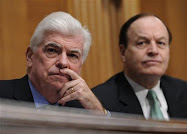
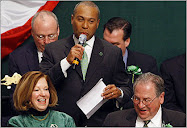










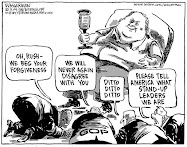












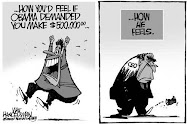










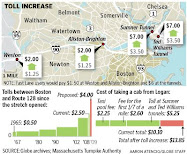




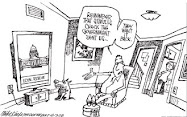


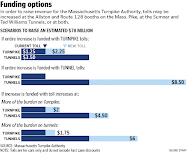

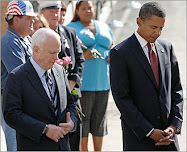

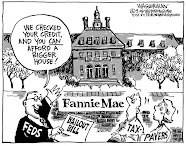



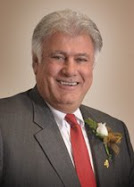



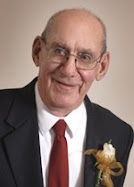

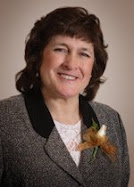

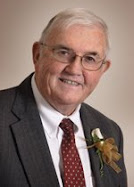


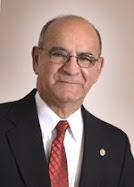
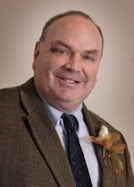


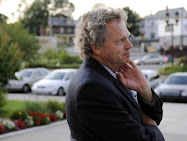

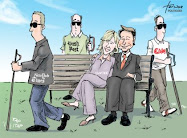

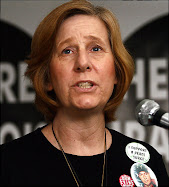




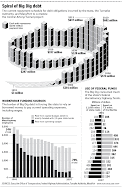
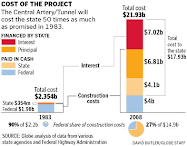




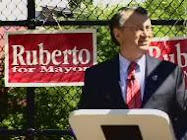




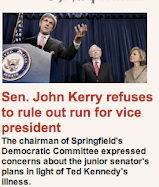



















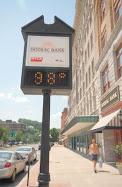






















.png)
